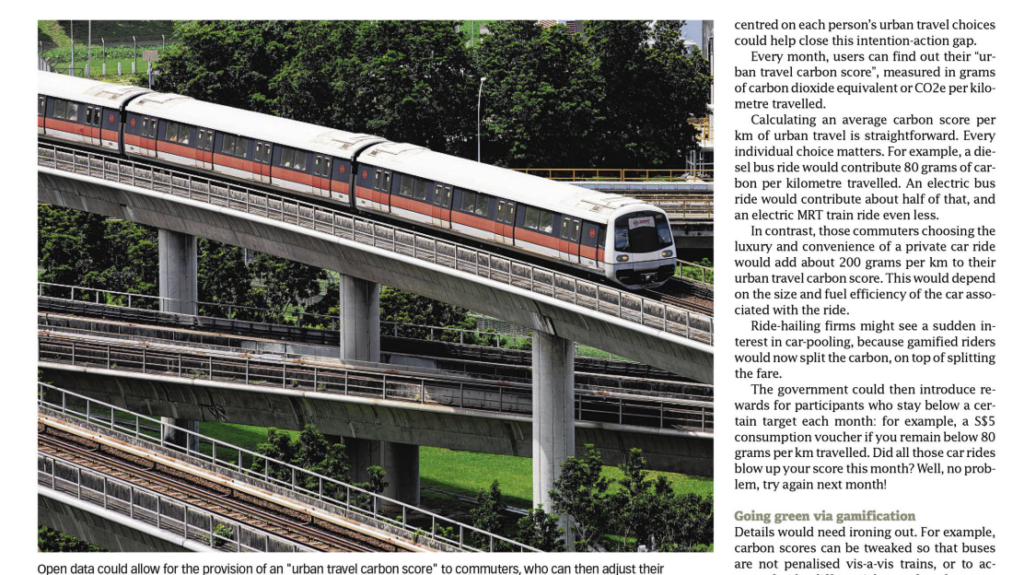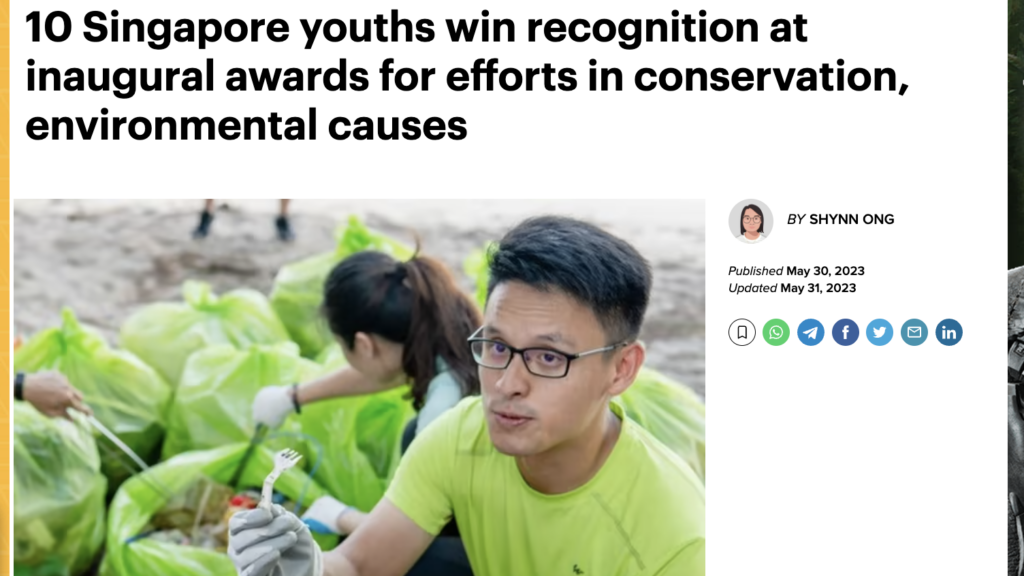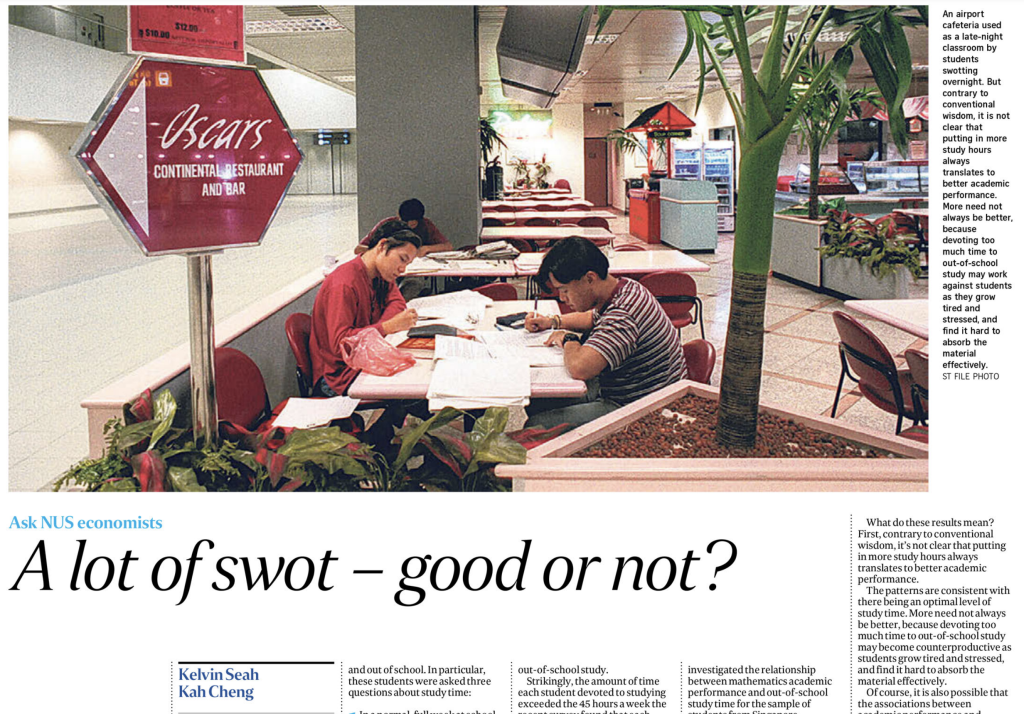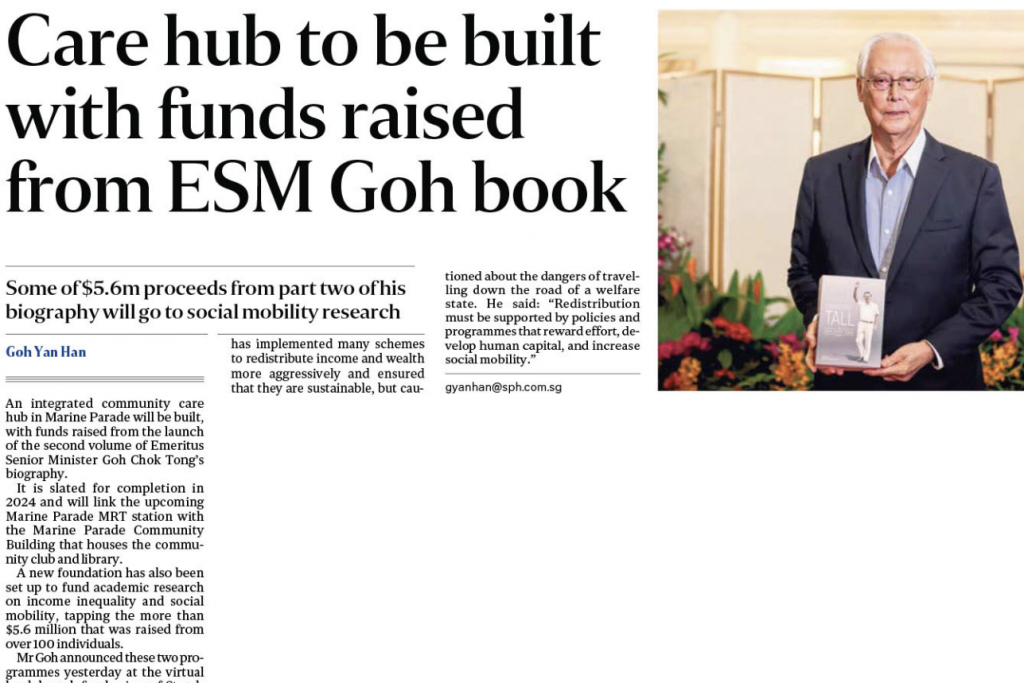News
Li Ming wins Zellner Award from the Journal of Econometrics
The award honours the best theory paper in 2025
![[Edited_3] Ming Li_Original](https://fass.nus.edu.sg/ecs/wp-content/uploads/sites/4/2021/06/Edited_3-Ming-Li_Original.jpg)
Teaching with heart: The human side of higher education

Forget the confines of a lecture theatre, abstract theories and math equations. For their core Economics introductory course at NUS, students found themselves not in a classroom, but outside Sri Mariamman Temple where their phones buzzed with a Telegram chatbot's cryptic challenge: "All are welcome past the door. So when footwear outside are a-plenty, the temple is a ______, and when footwear outside are a-wanting, the temple is a ______."
Exchanging puzzled looks, the students typed "/hint" into the chat. "If there are many pairs of footwear outside, it must be crowded (and uncomfortable) inside," the chatbot prompted. After recognising the relevant concepts, they typed the answers into the Telegram chat before receiving a clue to their next location.
It is not every day that students participate in a chatbot-guided scavenger hunt as part of their core Economics introductory course. But Associate Professor Ong Ee Cheng, Mr Chan Kok Hoe and Dr Timothy Wong from the Department of Economics at the Faculty of Arts and Social Sciences believe that experiential learning can help students better understand key economics concepts in everyday contexts.
This was one of many innovative teaching strategies presented at the Higher Education Conference in Singapore (HECS) 2025. Organised by the NUS Centre for Teaching, Learning and Technology (CTLT), the event held on 10 December 2025 gathered educators from universities across Singapore to explore how to enrich learning experiences.
This year's theme, "Building Relationships in Teaching and Learning", echoes Prime Minister Lawrence Wong's call for education to move beyond narrow definitions of success, and empower learners to discover and develop their unique strengths, in his speech at the Debate on the President's Address 2025.
"It is most fitting that HECS 2025 is championing the human dimension of education. This focus on relational teaching aligns with PM Wong's call to broaden meritocracy, creating environments where learning is joyful, fulfilling, collaborative, inclusive and future-ready," said NUS President Professor Tan Eng Chye in his opening speech.
The power of play
A recurring theme throughout the conference was the role of play in teaching - widely used in early childhood education but often undervalued in higher education despite being found to increase student engagement.

At NUS, faculty members have been experimenting with such approaches, several of which were showcased in the "Playful Minds: Learning Through Play" installation.
One example is the use of tableau, where students create a frozen, dramatic image with their bodies to interpret an abstract prompt. While tableau is most commonly associated with theatre studies, it is also used across humanities disciplines such as anthropology and philosophy, combining embodied, experiential and collaborative learning.
In HS2902: Do Play Play: The Importance of Play, an interdisciplinary course offered as part of the common curriculum of the College of Humanities and Sciences, students design card games about a social issue of their choice. In "We Just Bought a Zoo", for instance, players juggle the welfare of animals against profit-making, exploring ethical dilemmas surrounding captive animal welfare.
On the sidelines of the "Playful Minds: Learning Through Play" installation, Assoc Prof Ong added, "In the context of higher education, play is about moving away from extrinsic to intrinsic motivation - the feeling of 'I'm doing it because it's interesting and I'm curious, not just because I want an A'."
Different strokes for different folks
While much of the conference focused on undergraduate learners, speakers also highlighted the need to tailor teaching to different learner profiles.
In a paper presentation, Dr Ng Boon Yuen and Dr Ganthi Viswanathan from the Singapore University of Social Sciences (SUSS) examined how adult learners' sense of belonging affects their learning in online classes.

Unlike undergraduates who place greater emphasis on social connection, adult learners prioritise practical factors like convenience and flexibility. While the majority of surveyed students reported that they did not feel a sense of community with their peers, most were satisfied with online courses and planned to continue taking them.
However, this absence of a sense of belonging still manifests in challenges such as a lack of trust among members during group work, noted Dr Ng. To foster stronger rapport, one suggestion was for instructors to facilitate early relationship building through icebreakers and breakout rooms.
Creating a culture of care
Speakers also emphasised that meaningful relationships form the foundation of fulfilling learning experience, whether between educators and learners, or learners and communities. Within classrooms, small, intentional gestures can reshape dynamics. Dr Daryl Ooi, a lecturer at the NUS Department of Philosophy, called these "pedagogies of care".
"There are a lot of acts that happen to us and in our hearts, we are sorting out what is caring and uncaring," said Dr Ooi, who was representing an NUS learning community on pedagogies of relationality and care, at the workshop. Pedagogies of care respect students' autonomy and the plurality of their experiences, opinions and emotions. One participant shared how simply sitting on the floor with her students helped to reduce hierarchical barriers.

Reinforcing the importance of relationships in her closing keynote, Associate Professor Chng Huang Hoon, Director of the Chua Thian Poh Community Leadership Centre at NUS, said, "High-impact experiences have to be founded on relationships, community bonds and mutual trust. If we can enact an educational experience that is relationship-rich in- and outside our classrooms, we would have gone some ways in restoring the human in the work we do."
This story first appeared in NUSnews on 26 December 2025.
NUS honours 22 outstanding alumni for their service to alma mater and contributions to society

Twenty-two outstanding alumni were honoured at the NUS Alumni Awards 2025 on 25 November 2025. First held in 2005, the biennial Awards recognise alumni who have distinguished themselves through significant and impactful contributions to their alma mater, society and the world.
In his opening address at the Awards dinner, NUS President Professor Tan Eng Chye said, "This year's Awards are particularly meaningful as they fall within NUS120, our year-long celebration of the University's milestone anniversary. There is no better testament to the enduring legacy of NUS than its alumni, making this a fitting occasion to honour those who have embodied and advanced what it means to be a graduate of our institution."

Eminent Alumni Award 2025 Recipient - Ms Ho Ching
The Eminent Alumni Award was conferred on Ms Ho Ching, Chairman of Temasek Trust, in recognition of her exemplary leadership and lasting impact on Singapore.
After graduating from NUS in 1976 with an engineering degree, Ms Ho began her career at the Ministry of Defence. She went on to serve as Director of the Defence Materiel Organisation and Deputy Director of the Defence Science Organisation.
In 1987, she joined Singapore Technologies (ST), where she played a pivotal role in advancing its engineering and technology capabilities, and led the formation of one of the largest engineering and development companies in the region. Her appointment as CEO of ST Group in 1997 distinguished her as one of the few women leading a major industrial group at the time.
Ms Ho joined Temasek Holdings as Director in 2002, later becoming Executive Director and CEO in the same year. She positioned Temasek as an active long-term investor, guiding its expansion into growth markets and emerging sectors, navigating multiple economic cycles, and expanding its network of international offices. Under her leadership, Temasek also nurtured local companies, with many evolving into strong regional or global players. When she stepped down in 2021, Temasek's portfolio had grown from S$90 billion to over S$380 billion.
Since 2022, she has chaired Temasek Trust, the philanthropic arm of Temasek Holdings. In this role, she provides strategic oversight and guidance to the management team, shaping its vision and mandate and overseeing the stewardship of its philanthropic assets.
A strong champion for social causes, Ms Ho is a longtime supporter of the Autism Resource Centre (Singapore) and patron of the Autism Association (Singapore). As the founding Chairman of Trailblazer Foundation, she has backed its initiatives in education, health, sports, music and community development for the uniquely talented. She has also supported organisations focused on dignity in healthcare, such as the Assisi Hospice.
Over the years, Ms Ho has received numerous awards, including the Public Administration Medal (Silver), the Public Service Star, and the Institution of Engineers Lifetime Engineering Achievement Award.
Delivering the citation for Ms Ho's conferment, Prof Tan commended her as "a leader who is building, shaping institutions, investment platforms, and social impact systems in Singapore and beyond."
"I thank NUS for the signal honour of this award. It is a reminder of the privilege of a university education, and the responsibility it carries - to help open more pathways for others to strengthen society and build better for generations to come," said Ms Ho Ching.
Past award recipients include Mr Lee Kuan Yew, Mr Goh Chok Tong, Professor S Jayakumar, Dr Noeleen Heyzer, Ambassador Chan Heng Chee and Madam Halimah Yacob.
Lifetime Service Award Recipients
Three NUS alumni received the new Lifetime Service Award for their contributions to the success and growth of NUS alumni networks, interest groups and/or volunteer programmes, including internship and mentorship programmes, through a decade or more of service.
These recipients were:
- Mr Andrew Lim Ming-Hui, Partner, Allen & Gledhill LLP, and former Member, NUS Board of Trustees
- Mr Johnny Tan Khoon Hui, past Co-Chairperson, NUS Alumni Advisory Board, and former Co-Opted Member, NUS Board of Trustees
- Mr Yeo Keng Joon, Chairman and Director, Bharat Luxindo Agrifeeds Private Limited, India

Distinguished Alumni Award Recipients
Nine NUS alumni received the Distinguished Alumni Award for demonstrating excellence and leadership in their chosen field or industry, including significant accomplishments, innovations, or contributions that have made a positive impact on the sector, community, and country.
These recipients were:
- Dr James Geng Jing, CEO and Director of the Board, Greenland Holdings Group
- Professor Lim Chwee Teck, NUSS Chair Professor, College of Design and Engineering, and Director, Institute for Health Innovation and Technology, NUS (2025 President's Science Award)
- Mr Lim Huan Chiang, Group CEO and Executive Director, A-Smart Holdings Group
- Er. Lim Peng Hong, Managing Director, PH Consulting Pte Ltd
- Dr Sharon Nai, Principal Scientist, A*STAR Singapore Institute of Manufacturing Technology (A*STAR SIMTech) and Director, Additive Innovation Centre
- Mr Ng Wai King, Chairman and Senior Partner, WongPartnership LLP, and Member, NUS Board of Trustees
- Professor Benjamin Ong Kian Chung, Professor, Department of Medicine, Yong Loo Lin School of Medicine, NUS (The Public Service Star (COVID-19), National Awards (COVID-19)]
- Justice Judith Prakash, Senior Judge, Supreme Court of Singapore, and Member, NUS Board of Trustees
- Mr Bahren Shaari, Member, Council of Presidential Advisers; Founder, Maha2 Advisory Services; and Member, NUS Board of Trustees

Outstanding Young Alumni Award Recipients
Nine NUS alumni below the age of 40 received the Outstanding Young Alumni Award for distinguishing themselves in their chosen fields. They may also have rendered excellent volunteer service to NUS and/or the community while exemplifying the best attributes of youth in today's world.
These recipients were:
- Mr Zamiq Azmeer bin Borhanudin, Commercial Counsel APAC, Energy Exemplar
- Ms Chang Qingyang, Co-Founder and CEO, ConcreteAI
- Ar. Chio Wen Tian, Principal Architect, CHIO Architects and Founding Partner, mono.poly
- Ms Chung Wing Lam, Senior Principal Clinical Pharmacist, Watson's Personal Care Stores Pte Ltd
- Mr Alvin Lim, CEO and Co-Founder, Climate Bridge International
- Mr Harry Pham Van Anh, Founder and President, ECO Vietnam Group
- Mr Janson Seah, Co-Founder and CEO, StaffAny
- Dr Sui Xiaonan, Professor, Northeast Agricultural University
- Dr Jackie Tan, Venture Builder, Circles
Read more about the 2025 NUS Alumni Awards recipients here and here.
This story first appeared in NUSnews on 26 November 2025.
ALUMNI STORIES | Soaring Ambitions

A beautiful princess is held captive by an evil queen until a fisherman - washed up on the shores of this magical kingdom - comes to the rescue, braving great heights and deep waters. Since late August, audiences of House of Dancing Water at City of Dreams in Macau have been watching Singaporean performer Ms Megan Lau in the lead female swing role of Princess Aani.
In April, Ms Lau was conferred a Bachelor of Arts (Honours) degree with Distinction. But her life at present hardly fits the conventional narrative of a young graduate's path. While her peers may be busy with internships or new jobs, the 24-year-old is a performer in House of Dancing Water, a circus spectacle that features breathtaking acrobatics and dance performed in and over water.
"We watched the show in 2014 and 2016, and I absolutely loved it," she said. As a 13-year-old, she declared to her mother that she wanted to be a 'water princess'. When she saw the casting call for the show in June last year, it was like a dream come true. Ms Lau sent off her show reel - "I was trying my luck" - and quickly got a callback. By September 2024, she had been offered a role - she would train to be the water princess she wanted to be all those years ago.
The fact that she was considering moving abroad for this job drew concern from her otherwise supportive mother. She recalled: "My mum said, 'Megan, don't be crazy. Why do you want to hang and fly left and right?' Her hesitation came from a place of love and worry, but on the other hand, I don't think it came as a surprise to her that I wanted to do something like this."

Although the prospect was exciting, Ms Lau admitted it was a tough decision to make. "In Singapore, we're sort of ingrained to follow this road map of success," she said. "To veer off this road, you have to be willing to put in the hard work and be determined to lean into that fear - to not be afraid to find success in something less conventional."
Once she made up her mind, there was no stopping Ms Lau. She joined the 80-person cast in October last year as an aerialist perched some 20 metres in the air. Although she had been a dancer all her life, there was a lot of learning and training to be done to perform in and out of water for the 100-minute show. To add to the challenge, Ms Lau had a fear of heights - one she quickly overcame.
Halfway through the semester in her Honours year, Ms Lau was on a plane to Macau. In an Instagram reel, she explained how she calculated every possibility: whether to graduate without honours, whether she could complete a thesis instead of modules. By "sheer grit or a miracle", she made it work: She dialled in for classes from her hotel room in Macau, corresponded regularly with her professors by email, flew back for classes on her days off and for her exams - all without breaking pace at her new job. This level of tenacity is what sets Ms Lau apart. And today, her mother and older brother, reassured of her safety, remain her biggest supporters. They flew to Macau for the premiere of her lead role.
UNIVERSITY IN THE TIME OF COVID"I was in the COVID batch of undergraduates; I enrolled in 2020," said Ms Lau. "For the first semester, we didn't step foot in university at all. All our lessons were online." This was challenging for a young woman who, by her own admission, "cannot sit still". However, being a resident of Temasek Hall made all the difference. "At least I could make friends and be on campus. Though there were COVID restrictions, it made hall life and university life enjoyable," she shared. Ms Lau counts among her best memories of university the time in-person lessons resumed. "Transitioning to real-life lessons was great," she recalled. "We had done all our intro classes online, and I was finally seeing my friends in person."
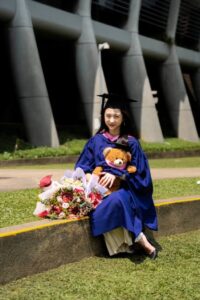 Ms Lau was in the fourth cohort of the PPE department (Philosophy, Political Science and Economics) at FASS, which she chose because "I wanted to do something in economics - it was my best subject." Prof Loy Hui Chieh (Arts & Social Sciences '98, MA '00), the head of PPE, was "a figure any PPE student could turn to. He was on Telegram and in all our group chats," she remembered. "If I ran into any problem, he would respond with help."
Ms Lau was in the fourth cohort of the PPE department (Philosophy, Political Science and Economics) at FASS, which she chose because "I wanted to do something in economics - it was my best subject." Prof Loy Hui Chieh (Arts & Social Sciences '98, MA '00), the head of PPE, was "a figure any PPE student could turn to. He was on Telegram and in all our group chats," she remembered. "If I ran into any problem, he would respond with help."
Being in a hall of residence fulfilled Ms Lau's other interests beyond academics. She credits Master of Temasek Hall Mr Victor Tan (Science '87, MSc '91) and Resident Fellow Mr Nisar Keshvani for creating "a lovely community."
Ms Lau was in the Temasek Hall dance club and its swimming team. She was also involved in the hall's yearly theatre production. "I'm someone who operates on a tight schedule," she admitted. "Being in hall and part of all the activities has shaped me in a way I didn't expect."
 FOLLOWING THE FLOW
FOLLOWING THE FLOW
That Ms Lau performs in a world-class aquatic show seems only natural if one were to take a peek into her background. She began dancing at the age of 5, when she passed by a ballet school in a shopping mall and asked her mother to sign her up for classes. She pursued ballet all the way through secondary school, before exploring other areas of dance like jazz and contemporary dance. She also took rhythmic gymnastics in primary school. "During university, I worked as a freelance dancer. In 2021, I picked up aerial - to me it was a very natural flow," she added.
Ms Lau is cognisant of the fact that this is not a long-term job. "Being an aerialist or doing any kind of physical job, you definitely can't do it forever, right? But for now, I'm just really enjoying my time here in Macau. A lot of my fellow cast members have done other big shows, and I'm really enjoying training and learning from the people around me."
She added that she has been very lucky that no one has really commented that she has 'wasted' her degree. "I don't think it's a waste at all," she stated. "I think university is more like a whole package: going to school, building friendships, gaining education - these are like building systems I will take with me through life. It's essentially an experience that I will always carry with me. A degree is something that has shaped me - it's about the journey of learning."
This story by Theresa Tan first appeared in The AlumNUS on 30 October 2025.
Faculty Teaching Excellence Award AY2024/25
Congratulations to the following faculty members for winning the Faculty Teaching Excellence Award AY2024/25.
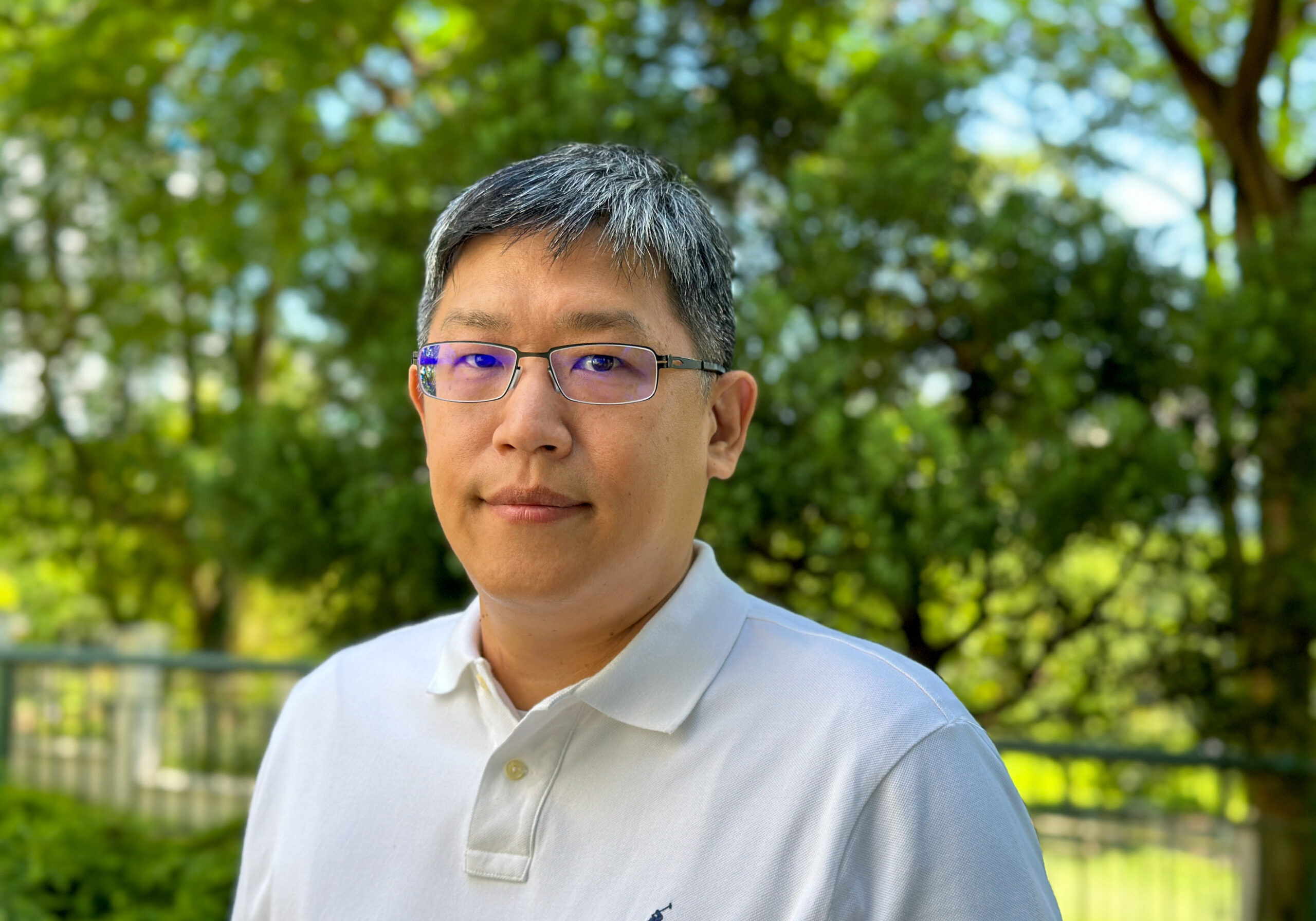 Huang Ta-Cheng teaches economic and financial forecasting and financial economics
Huang Ta-Cheng teaches economic and financial forecasting and financial economics
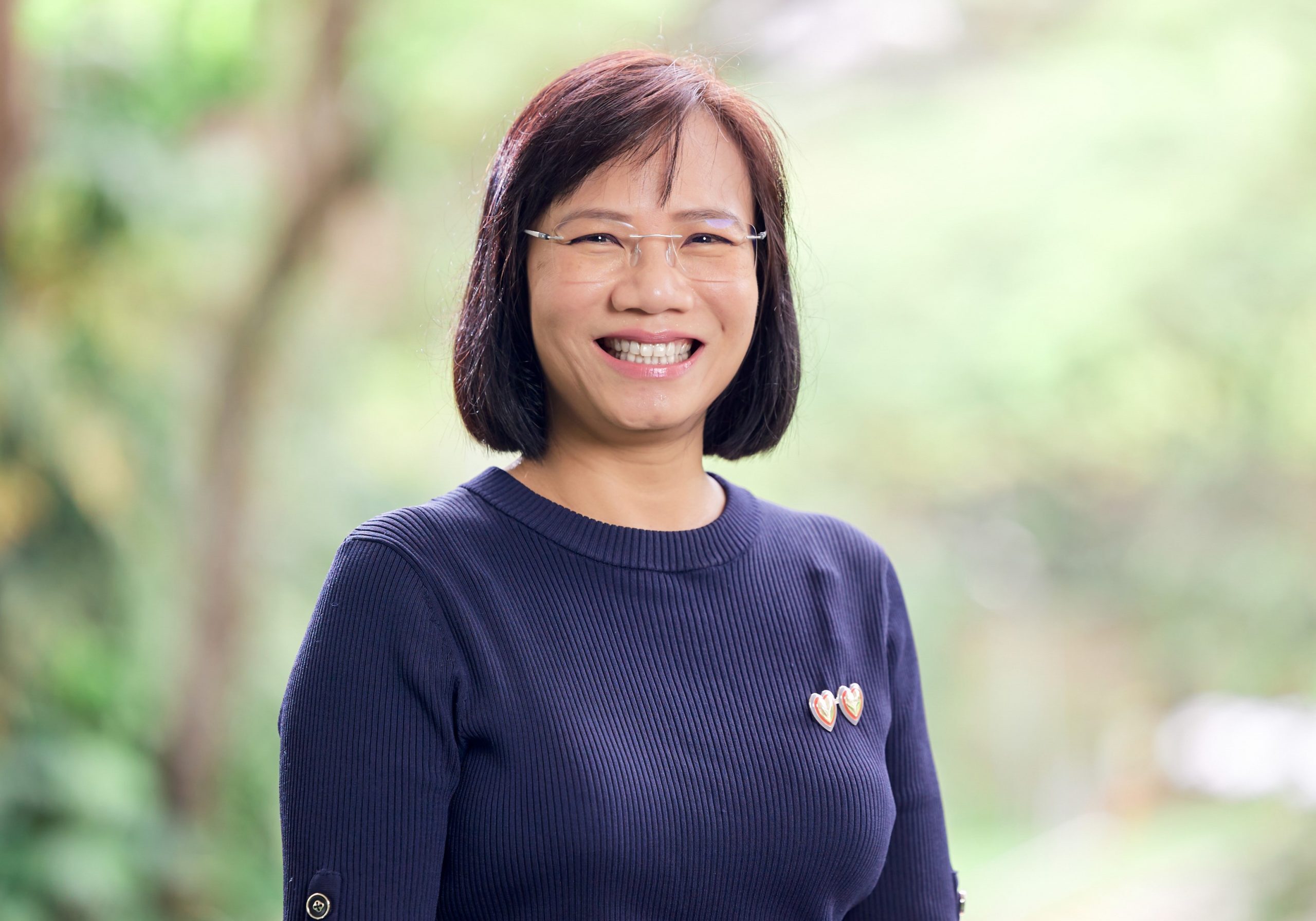 Mun Lai Yoke teaches international finance
Mun Lai Yoke teaches international finance
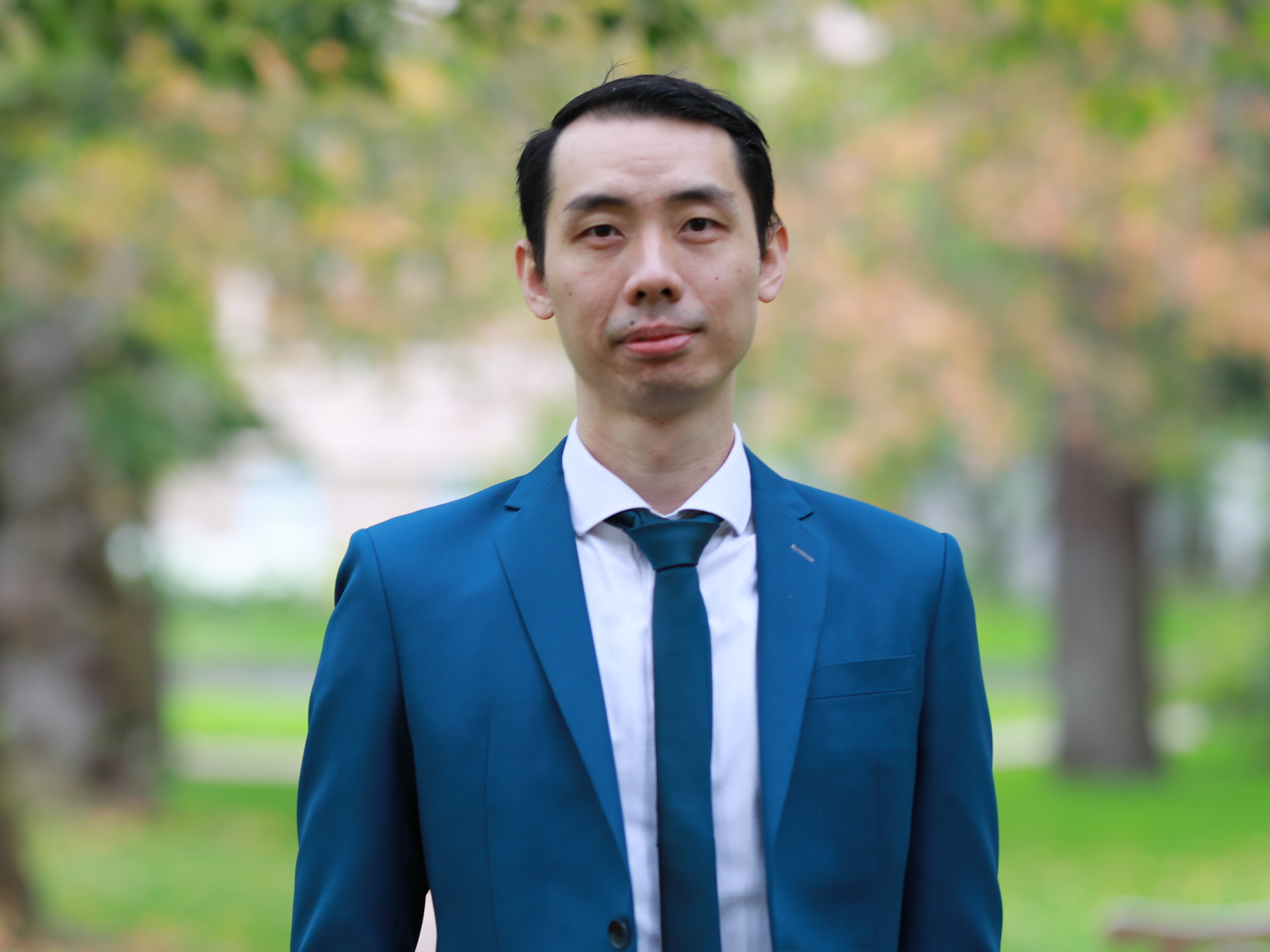 Wong Kwong-Yu teaches microeconomic theory and the economics of competition policy
Wong Kwong-Yu teaches microeconomic theory and the economics of competition policy
NUS Faculty of Arts and Social Sciences rolls out its first alumni-to-alumni mentoring initiative
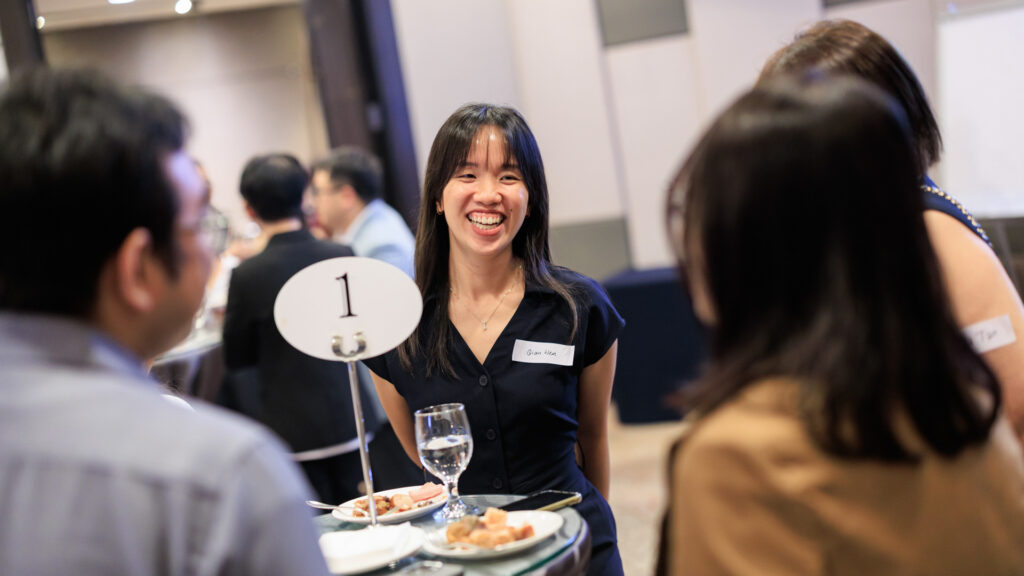
The NUS Faculty of Arts and Social Sciences (FASS) marked a new chapter for its alumni community with the launch of its very first alumni-to-alumni mentoring initiative - the FASS Alumni Mentoring (FAM) programme on 20 August 2025. The programme aims to connect senior and junior alumni to discuss career and industry insights, skills development and networking opportunities.
The launch was marked by an inaugural networking session that brought together over 35 alumni - experienced alumni mentors as well as young working alumni mentees who have graduated from NUS within the past 15 years - for an engaging evening themed around the art of networking.
A community built on shared growth
The FAM programme was created to nurture a supportive, intergenerational network, empowering participants to share knowledge, offer advice, and inspire one another with their insights and experiences. Recognising the demands of work and family life and a growing preference for short-term, targeted mentoring over traditional long-term programmes, the programme emphasises short-term, session-based mentoring to allow alumni to connect meaningfully without the pressure of long-term commitments. The FAM programme will be conducted twice a year.
FASS Dean Professor Lionel Wee noted how the FAM programme reflects the spirit of the FASS community, where alumni look out for one another, share experiences generously, and create opportunities for growth across generations. He said, "My hope is that FAM will become a cornerstone of our alumni network, sustaining our graduates through every stage of their personal and professional journeys."
From contacts to connections: FASS alumni Mr Soh Yi Da on the art of networkingMr Soh Yi Da, Singtel Director of Strategic Government and Institutional Relations and an alumnus from FASS Political Science and the former NUS University Scholars Programme delivered his compelling keynote speech on "From contacts to connections: The art of relationship cultivation in networking."
Mr Soh drew on Social Network Theory to illustrate the value of cultivating meaningful connections. The theory highlights how people are linked through networks of relationships, and how these ties shape the flow of information, opportunities and influence.

He emphasised the importance of both strong ties (such as with family and close friends) and weak ties (looser connections such as acquaintances or contacts from different fields), and the value of bridging gaps between different groups. He encouraged alumni to go beyond transactional networking, invest in genuine relationships, and find common ground to build trust - reminding them that while a tribe - a close‑knit group bound by shared identity, values, and mutual support - provides support, networks built on meaningful connections fuel growth and innovation.
Mr Soh praised the FAM programme as a meaningful new platform for fellow FASS alumni to connect and learn from one another.
He reflected, "It was a privilege for me to share my personal reflections on nurturing authentic relationships and growing a lasting network that truly matters. What was most rewarding was the immediate impact afterwards - I received numerous LinkedIn connection requests, and attendees reached out for deeper follow-up conversations. It was an affirmation that effective mentoring occurs when people feel empowered to take action right away."
The quick and active application of the discussion's insights by participants, he noted, was clear evidence of the programme's immediate impact.
Mentoring in action: Lively exchanges
The rest of the evening saw lively, candid exchanges between mentors and mentees in smaller groups. Mentors shared their insights and personal approaches to building professional relationships. These included Ms Yeap Su Phing, Political Science '06, Principal Speechwriter, Singapore Management University; Ms Carolyn Lim, History '05, Head of Corporate Communications, Musim Mas Group; Mr Chua Ching Hock, Political Science '08, General Manager of Seletar Airport, Changi Airport Group; and Mr Edwin Koh, Economics and Sociology '91, CEO of Centrum Global Tech Pte Ltd. Together, the mentors underscored Mr Soh's point - that authentic networking can open doors, strengthen communities and provide enduring support throughout one's career.
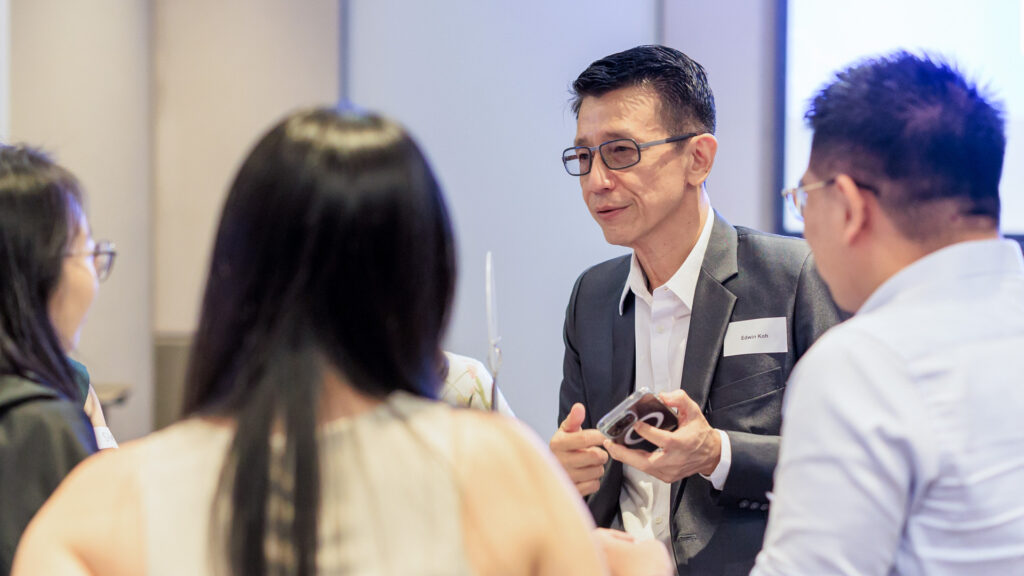
Ms Joelle Ngooi, a Communications and New Media '25 alumna, remarked, "These mentor-speakers have a wealth of experience in their respective fields and offered valuable insights into how they progressed in their careers, such as transitioning from being a specialist to being a generalist. I also had the chance to connect with people from the same industry, which was particularly meaningful as I step into the workforce. Additionally, I gained exposure to other industries, which broadened my perspective"
Building on the strong turnout and lively exchange at its debut, the FAM programme is set to become a meaningful part of the FASS alumni experience. The next session is slated for the second quarter of 2026. Announcements on the event will be made via the Faculty's website and social media channels.
This story by the NUS Faculty of Arts and Social Sciences (FASS) first appeared on NUSNews on 19 September 2025.
Learning labour economics through narrative interviews on the work that people do
Many university modules have traditionally adhered to a fixed lecture-tutorial format, culminating in written examinations. However, Associate Professor Ong Ee Cheng (NUS Economics) has reimagined this approach by uniquely designing a labour economics module centred on narrative inquiry for the final project. Narrative inquiry involves translating verbal information into stories that enhance understanding of a subject. In her module, students engaged in project-based assignments that required them to communicate with strangers about real-life shifts in labour market equilibrium over time. She details her key findings in ‘Learning Labour Economics through Narrative Interviews on the Work that People Do’ (International Review of Economics Education, 2023).
After learning the fundamental mechanisms of the labour market through economic theories, students in Assoc. Prof. Ong’s labour economics module embarked on a project that required them to research and analyse a local occupation in decline. These occupations, often highly specialised but diminishing due to digitalization, include roles such as cobblers, mom-and-pop provision shop owners, and newspaper vendors. Students are expected to complement economic concepts and models with narrative interviews, class discussions, and written reflections. The project aims to hone the 4Cs of 21st-century skills: critical thinking, communication, collaboration, and creativity, fostering cooperation with both peers and strangers.
Assoc. Prof. Ong's innovative approach highlights the power of narrative inquiry in economic research and teaching. The insights gleaned from verbal interviews, interactions, and the concrete experience of observing practitioners at their trades and work environments help reconcile textbook models with real-world observations. For instance, students observed that markets do not exist in isolation. In Singapore, while there are few blade sharpeners (conferring them market power), consumers can avoid using their services by purchasing cheaper blades. This demonstrates the relationship between blade-sharpening services and blades, showing that the blade sharpener cannot substantially raise their prices due to the price-elastic demand for their service.
The project culminates in group presentations and the identification of common themes across different industries. Students appreciate the autonomy to direct their own learning and develop crucial analytical skills that extend beyond theoretical classroom learning. All in all, Assoc. Prof. Ong emphasises the tangible learning outcomes from these verbal educational deliverables, which contribute to the development of the 4Cs of 21st-century skills, essential in today's ever-evolving world.
Read the article here.

The Amazing Transit Adventure
NUS Economics Society collaborates with LTA and NTU Economics Sub Club to organise a puzzle-solving economic adventure on public transit.
The NUS Economics Society collaborated with the Land Transport Authority (LTA) and the NTU Economics Sub Club to organise The Amazing Transit Adventure. From 7 to 11 July 2025, 35 students cracked clues to navigate Singapore on public transit and solved puzzles to learn about transport economics and policy.At the Closing Ceremony on 12 July, students participated in a fireside chat with LTA Group Director for Policy and Planning, Priscilla Tan on topics like the Walk-Cycle-Ride initiative and the reliability and frequency of buses. They also interacted with Howard Pak, Director of Private Transport and Dr Leong Wai Yan, Chief Transport Economics, at the event.
NUS students from Arts and Social Sciences and Business clinch top prize at 2025 UBS Finance Challenge in Shanghai
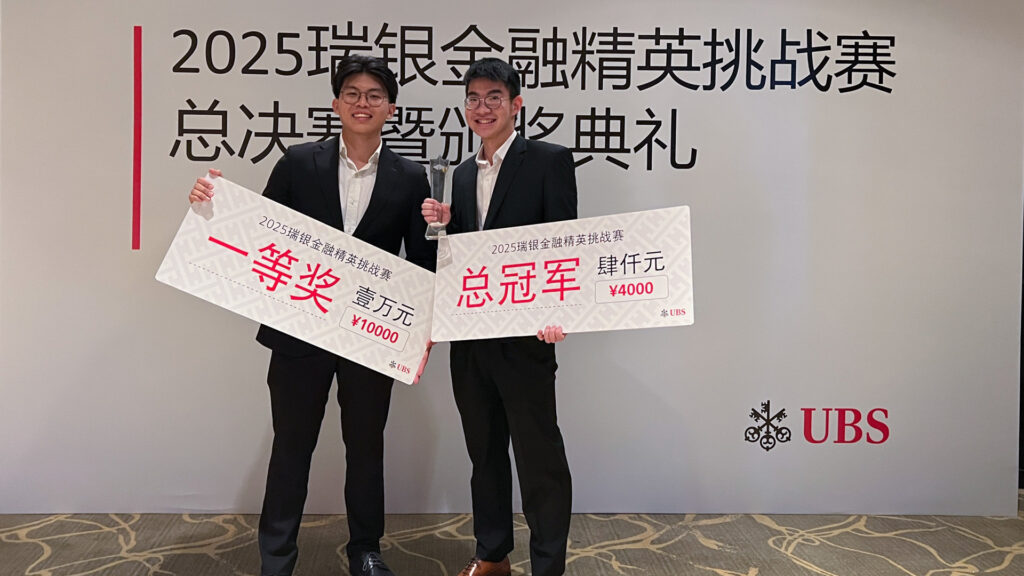
Driven by a shared passion for finance and investing, second-year students Fong Zhi Heng from NUS Faculty of Arts and Social Sciences and Brandon Lim from NUS Business School teamed up for the 2025 UBS Finance Challenge. The pair beat 300 other teams to clinch the first prize at the competition.
The UBS Finance Challenge is a high-profile stock pitch competition that brings together some of the brightest and most innovative university students in finance from around the world to showcase their market research and equity analysis skills. Now in its fifth year, the competition has expanded to a dual-region format, allowing participants to compete in either Hong Kong or Mainland China, with top teams from both tracks advancing to the finals in Shanghai to vie for the coveted Greater China Championship title.
United by a shared passion for financeZhi Heng and Brandon first connected through the NUS Asset & Wealth Management Club and the Next Gen Investors Endowment Ltd, a Singapore-based non-profit organisation that promotes investor education to local and international students. They quickly became friends over a shared passion for applying their classroom learnings to solve real-world challenges through competitions.
In April, the pair had already made waves by winning the Singapore & Southeast Asia rounds of the 2025 CFA Institute Research Challenge at NUS. Following this success, they were eager to take on a bigger stage.
"For us, the UBS Finance Challenge presented yet another valuable learning opportunity," said Brandon. "We wanted to put our finance skills into practice again and push ourselves, especially since it was our first time doing a long/short equity research pitch."
Pitching with precision and perseveranceTeams in the UBS Finance Challenge were required to analyse stocks from one of six sectors - industrials, consumer, technology, internet, healthcare and energy - and to develop a long-short pairs trade strategy. This involved evaluating trade logic, industry outlook, company financials, stock valuations and presenting actionable trade recommendations.
Zhi Heng and Brandon centred their investment pitch on China's restaurant sector, comparing two major players - Yum China, the country's largest quick-service operator, and Jiumaojiu International Holdings, a full-service restaurant specialising in Chinese cuisine. They argued that Yum China would outperform Jiumaojiu; driven by the long-term growth trend toward takeaway and fast food convenience in China. Conversely, dine-in models, such as Jiumaojiu would suffer as they face headwinds from declining foot traffic. On this basis, they proposed a pair trade strategy of buying Yum China stock and shorting Jiumaojiu stock.
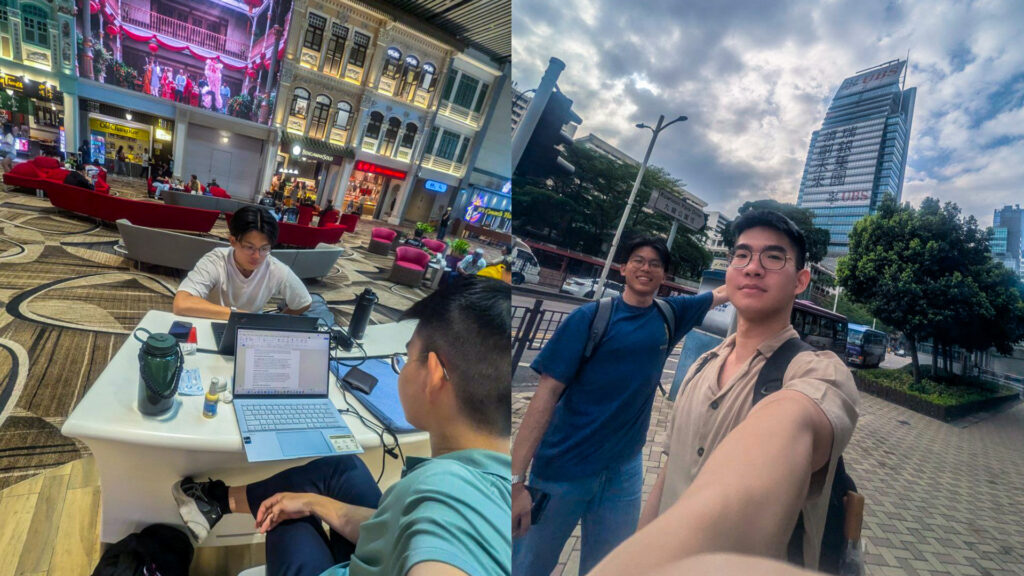
Having just wrapped up the CFA Research Institute Challenge in April, the pair had only two weeks to prepare for the UBS Finance Challenge. Balancing competing priorities made it even more intense.
Zhi Heng recalled, "It was a tough balancing act - I was interning, and Brandon was studying for his finals during the day, so we had to work on our presentation late into the night. Some nights we barely slept. But with sheer determination and a genuine passion for understanding the company we were pitching, we pushed through and made it work."
The duo also made the strategic decision to personally fund their travel to Hong Kong for an in-person semi-final presentation - a move they believed gave them a competitive edge. "We felt that presenting in person gave us a better opportunity to connect with the judges and communicate our ideas more effectively," shared Brandon.
Both students credited their earlier experience in the 2025 CFA Institute Research Challenge as instrumental to their success in the UBS challenge, noting how they benefitted immensely from the mentorship received, as the experience shaped their thought processes and helped refine their research and pitching abilities.
Zhi Heng also acknowledged the role of the NUS Investment Society, a student-led club promoting financial literacy, in sharpening his analytical capabilities. "Regular stock pitch sessions and feedback from seniors and alumni really honed my research skills," he said. "Courses like Accounting and Economics gave me the technical foundation to understand financial statements and market dynamics, but it was the student groups and competitions that brought those concepts to life."

More than a win: Valuable skills and future careers in finance
For their win, the pair received prizes worth 14,000 yuan (S$2,500) and secured the opportunity for fast-tracked interviews with UBS.
"We're definitely elated," Brandon said. "But more than the win, it was the invaluable skills gained and the personalised feedback from the judges that mattered most. They were able to provide meaningful and actionable insights that we could use in our future internships and careers in finance."
This story first appeared on NUSNews on 29 July 2025.
Celebrating a legacy of growth and global impact
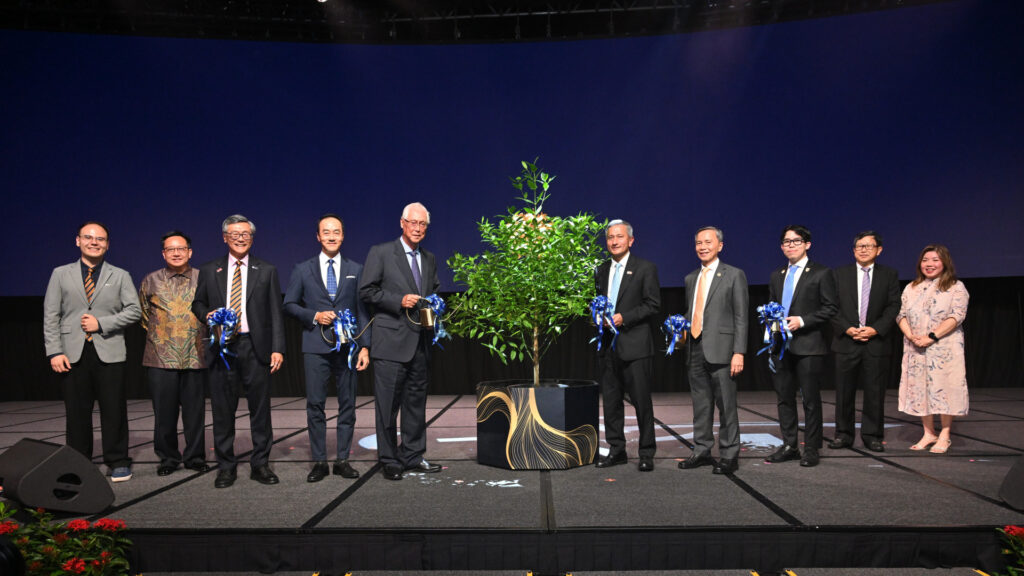
NUS marked its 120th anniversary with a grand gala dinner on 3 July 2025 at Marina Bay Sands, gathering close to 2,000 alumni, donors, partners and friends, including Guest-of-Honour Minister for Foreign Affairs Dr Vivian Balakrishnan (Medicine '85, MMed '91), Emeritus Senior Minister Goh Chok Tong (Economics '64, HonLLD '15), and Senior Minister of State for Health and Manpower Dr Koh Poh Koon (Medicine '96, MMed '03). The evening paid tribute to NUS' astounding journey of service, innovation and impact since its founding in 1905.
From its roots as the Straits Settlements and Federated Malay States Government Medical School with only 23 students, NUS has grown into a globally renowned institution spanning 15 colleges, faculties and schools across three campuses.
In his opening remarks, NUS President Professor Tan Eng Chye (Science '85) reflected on its founding purpose: "The Straits Settlements and Federated Malay States Government Medical School was the forerunner of the Yong Loo Lin School of Medicine, honouring a legacy of service from tending to the wounded in World War II to serving on the frontlines during the COVID-19 pandemic," he shared. "Today, the School of Medicine is pushing the frontiers of groundbreaking research discoveries such as developing life-saving CAR-T cell immunotherapy to treat leukaemia, and the world's first blood-based diagnostic test for early gastric cancer detection."
Prof Tan noted that this same spirit of service still drives NUS today, which now educates over 7,000 undergraduates each year, producing graduates who contribute across society - including more than half of today's Cabinet ministers.
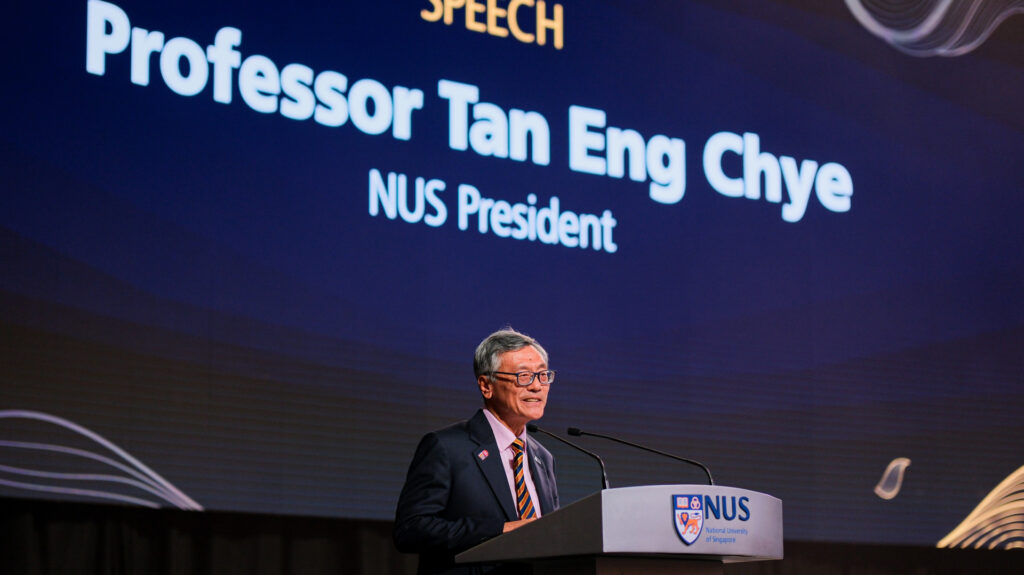
Relevance in a changing world
Yet Prof Tan was clear-eyed about the challenges ahead. Rapid technological disruption, shifting student expectations and geopolitical uncertainties will test the University's resilience and relevance. "To remain relevant, we must continuously adapt - renewing our value in each new generation, not only in how and what we teach, but how we lead and inspire," he emphasised.
Against this backdrop, Prof Tan reaffirmed the role of education as an intrinsic part of the Singapore social compact. "A significant number of our students and alumni are the first in their families to go to university. In providing opportunities to study at NUS, we are nurturing the best and brightest talents, uplifting families, and inspiring the next generation to realise their aspirations."
In the last financial year, NUS received S$233 million in philanthropic gifts, including S$26 million earmarked to support students from low-income families through the Enhanced Financial Aid Scheme, benefitting around 3,000 undergraduates annually.
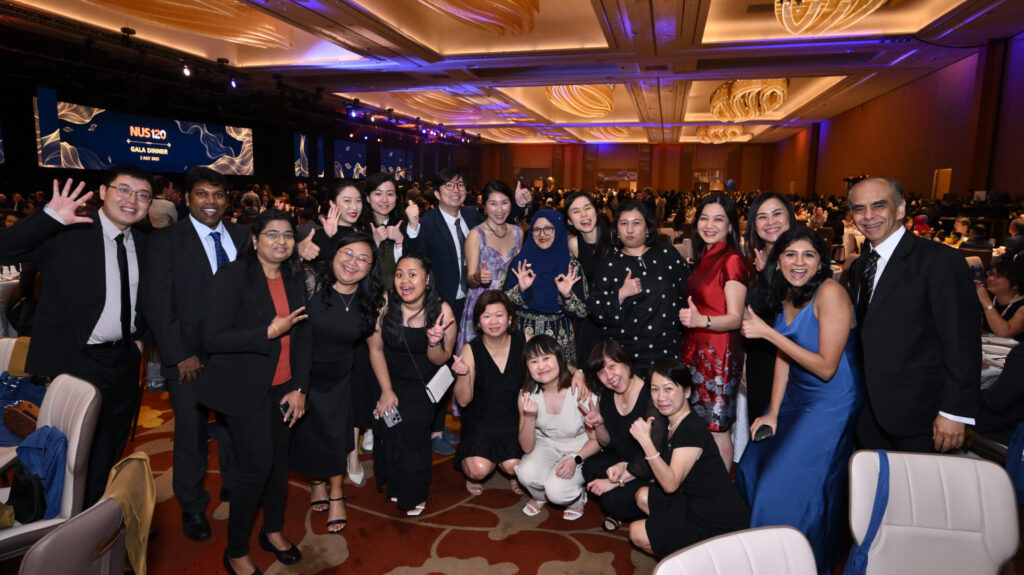
Addressing global health challenges
Next to address the guests was the Dean of NUS Medicine, Professor Chong Yap Seng (Medicine '88, MD '07), who highlighted how NUS' founding mission - to meet public health needs - is just as critical today. He described an increasingly complex health landscape marked by geopolitical instability, climate change, the promises and threats of artificial intelligence and misinformation spread on social media.
"A whole-of-society, whole-of-planet approach is required more urgently than ever," he said, adding that "the combined efforts of people with diverse skills, expertise and perspectives will be vital to creating a healthier and more sustainable future."

A citadel with open gates
Guest-of-Honour Dr Vivian Balakrishnan, a former president and chairman of the NUS Students' Union, spoke about how global volatility will inevitably affect academia and science, potentially leading to higher inflation, greater risks for smaller nations and a slowdown in innovation. He described NUS through three vivid metaphors: first, as a cradle nurturing Singapore's national identity and unity since 1905; second, as a citadel with open gates - strong yet welcoming to talent and ideas.
"NUS needs to have open gates, and we need to have our fair share of access to talent and ideas, while still remembering that this is the citadel based in Singapore, to protect Singapore," he explained.
Lastly, he urged NUS to be a launch pad for new technological breakthroughs, ensuring Singapore and Asia do not get left behind in a fast-changing world. His words echoed NUS' international outlook, which is supported by a global alumni network of nearly 390,000 across more than 100 countries.
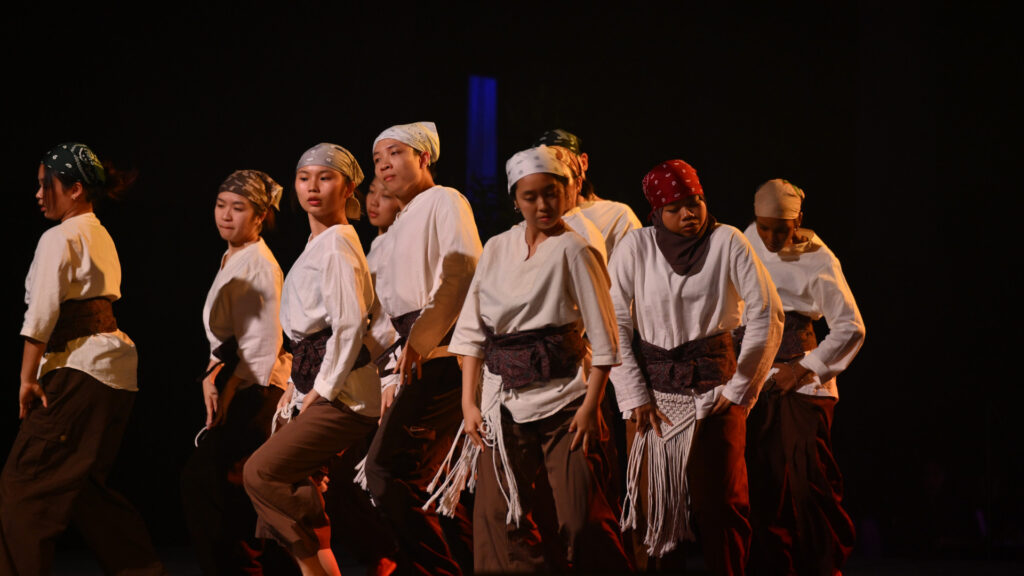
A night of joy, gratitude and pride
The gala dinner was a lively celebration of NUS spirit and camaraderie. Guests were welcomed by a candle-lined walkway and a playful photo wall with handheld props featuring messages like "I love NUS" and "Where I Found My Tribe." Student and alumni performances from NUS Dance Blast! and The Jazzlings provided entertainment during the dinner, while video segments highlighted NUS' incredible growth and brought celebratory greetings from alumni across the world. The occasion was also truly global, with alumni travelling to Singapore from cities such as Tokyo, Jakarta, Yangon, Vancouver, London, and Melbourne.
Interactive exhibits filled the foyer, from the AiSee assistive technology demonstration by NUS Computing to a showcase of Duke-NUS young alumni leading in innovation. NUS Libraries also delighted guests with a fun campus landmark quiz. In a meaningful gesture, Dr Balakrishnan, Prof Tan, Prof Chong and Chief Alumni Officer Ms Ovidia Lim-Rajaram (History and Political Science '89) unveiled and watered a Tembusu tree - a living symbol of resilience and growth.
"Tonight, we celebrate 120 years of NUS - but this evening is about so much more than a number. It's about the remarkable journey of a humble medical school that has grown into one of the world's leading universities," Ms Lim-Rajaram told the guests.

Celebrating milestones and a vision for tomorrow
The celebration also honoured key milestones across NUS' schools and faculties, including the 120th anniversary of the Yong Loo Lin School of Medicine, 70 years of NUS Engineering, 60 years of the NUS Business School, 50 years of NUS Computing, 45 years of Kent Ridge Hall, 20 years of Duke-NUS Medical School and NUS High School, and 15 years of Tembusu College.
As the evening concluded with a cake-cutting ceremony, guests looked forward to a year of commemorative events - from the NUS120 Homecoming at Bukit Timah Campus, the Distinguished Speaker Series, the #NUSLife Photo Exhibition, NUS120 SuperNova, to Rag and Flag - that will continue to connect past, present and future generations. As NUS looks ahead to its next 120 years, it stands ready to nurture bold thinkers, responsible leaders and a community grounded in service and shared purpose.
This story by the NUS Office of Alumni Relations first appeared on NUSNews on 10 July 2025.
Five Arts and Social Sciences alumni honoured for their service and contributions to society
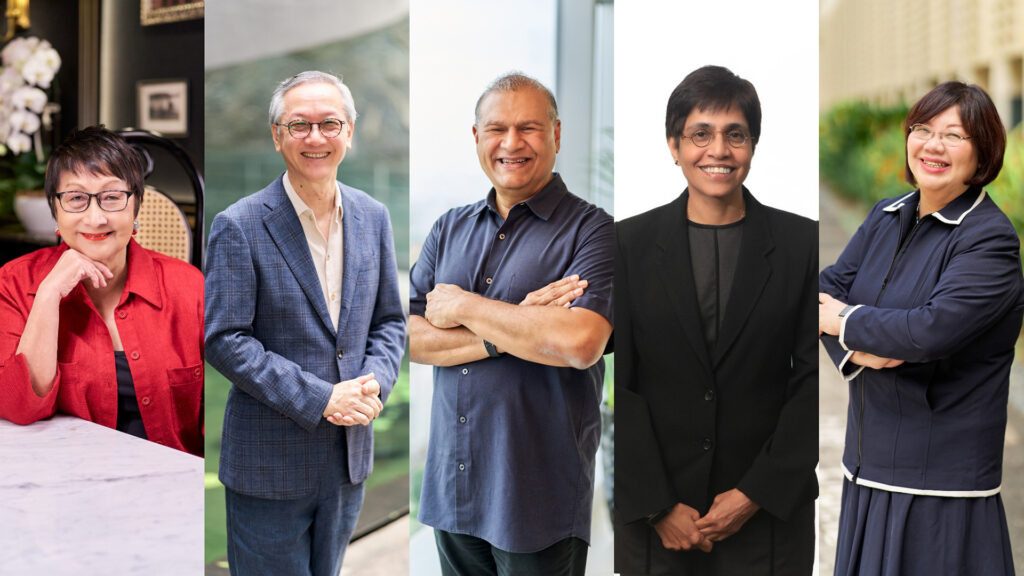
Five stellar alumni from the NUS Faculty of Arts and Social Sciences (FASS) were lauded with the FASS Distinguished Arts and Social Sciences Alumni Awards (DASSAA) on 10 July 2025 for their outstanding service and contributions to society.
Established in 2015, the DASSAA celebrates alumni who have made a meaningful impact on the University, the wider community, and Singapore, or who have advanced the arts and social sciences through their dedication and achievements locally or internationally.
This year's honourees are culinary curator and chef Ms Violet Oon; diplomat and former politician Mr Sam Tan Chin Siong; diplomat, Brigadier-General (Retd) and respected community leader Mr Ishak Ismail, pioneering social worker and advocate Dr Sudha Nair; as well as academic and innovator in education, Professor Low Ee Ling.
Changemakers shaping the aspirations of the next generation of FASS mindsFASS Dean Professor Lionel Wee underscored how the Faculty has long stood as a beacon of intellectual curiosity, cultural advancement, and social responsibility and that the vision has "always been to nurture not only thinkers and creators, but also compassionate leaders who use their knowledge for the greater good."
These recipients, he added, inspire current and future students not only to dream boldly but also to use their knowledge in the service of others. "In a time when the world needs thoughtful leadership more than ever, your examples inspire others. Your journeys remind us that success is not just measured by personal accolades, but by the positive impact we create in the lives of others," he said.
The event featured videos of the award recipients reflecting on their university days as they shared key moments in their professional journeys.
Mr Ishak fondly recalled his time at NUS, where he bonded with fellow Sheares Hall hostelites over sports and activities, and spent long hours studying with friends in the library after classes. It was also at NUS that he met his life partner.
When asked how her FASS education had shaped her career, Ms Oon shared that studying sociology and political science made a "world of difference" in how she approached food heritage and culture.
"So I don't interpret food as delicious or not - that is a given," she said. "What matters is what does it mean to a people? How do you judge the food? You have to learn about the culture and the proper techniques of cooking. That comes from studying, from checking. And if you take a subject like sociology, everything is based on facts and on research - I think that is so important."
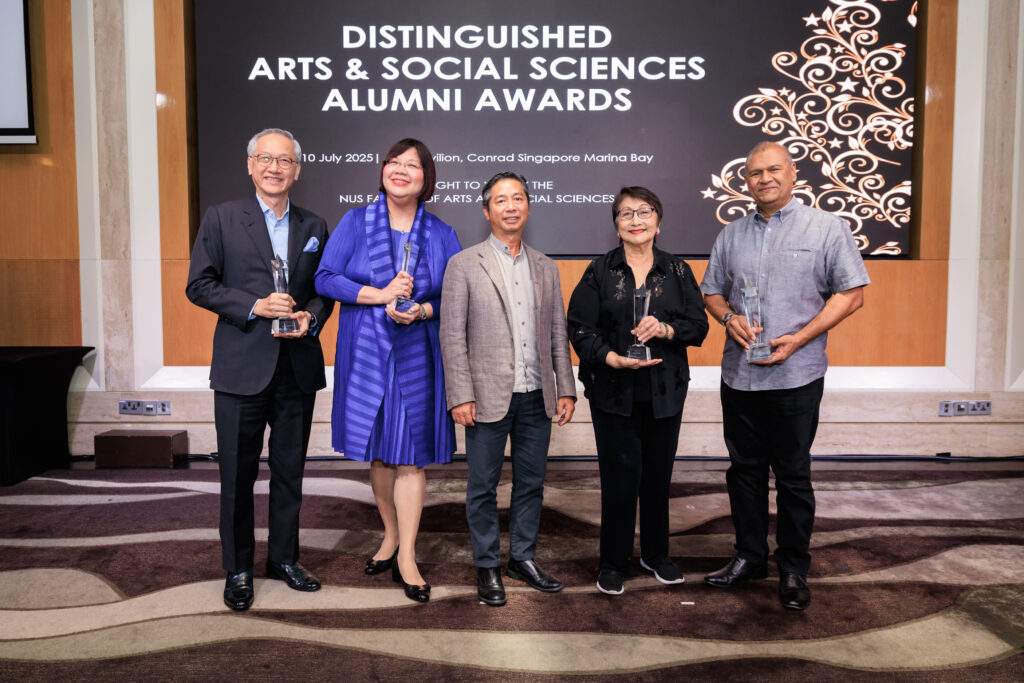
From food heritage to public leadership: FASS Alumni who left their mark on Singapore society
This year's award recipients have left their mark in areas ranging from Peranakan cuisine and diplomacy to family violence intervention and academic leadership.
Widely regarded as the grande dame of Singaporean cooking, Ms Oon began her career as an arts and music critic before pioneering a food column that launched her decades-long career as Singapore's leading food writer. She opened her first Peranakan restaurant in 1993, and today, the "Violet Oon Singapore" restaurant group is synonymous with heritage cuisine, with iconic outlets like Violet Oon Singapore at Jewel Changi Airport. As Singapore's food ambassador, she led national chef delegations at international culinary festivals and her accolades include being inducted into the Singapore Women's Hall of Fame (2016) and receiving the Singapore Tourism Board's Lifetime Achievement Award (2019).
Mr Tan is Singapore's Special Envoy for Arctic Affairs and Non-Resident High Commissioner to Canada. He has built a distinguished career in public service, diplomacy, and civic leadership. From 2009 to 2020, he served as Senior Parliamentary Secretary and Minister of State in several ministries, including the Ministry of Foreign Affairs and the Ministry of Culture, Community and Youth. He was also a Member of Parliament from 2006 to 2020. Mr Tan held key community and cultural leadership roles, including CEO of Business China (2007 to 2009), where he strengthened Singapore-China ties. For his longstanding service, he was awarded the Public Service Medal in 2002.
Mr Ishak served in the Singapore Armed Forces (SAF) for over 29 years, rising to the rank of Brigadier-General and playing a pivotal role in transforming SAF's training systems and leadership development. He later held senior roles in private firms that focused on defence solutions and regional growth. He is now Singapore's Non-Resident High Commissioner to Pakistan, and chairs both the Families for Life Council and the National Maritime Safety at Sea Council. He is also Principal Consultant at i-Grow Partners Pte Ltd, where he has been a certified coach appointed by the SAF to facilitate team leadership and development since 2016. He received the Public Administration Medal (Military) in 2008 and the Public Service Medal in 2023.
A social work veteran for over 30 years, Dr Nair began her career in 1987 at the Ang Mo Kio Family Service Centre (FSC), transforming it in 17 years into a model for other FSCs to follow. In 1999, she co-founded the Centre for Promoting Alternatives to Violence (PAVE), Singapore's first one-stop specialist centre for family violence, which now manages around 2,000 cases annually. Beyond frontline work, Dr Nair has nurtured future social workers through research and teaching at the NUS Department of Social Work, and has served on national bodies such as the Council of Presidential Advisers. Her many accolades include the Outstanding Social Worker Award (1998) and the Public Service Star (2022).
Prof Low is President's Chair Professor in Education (Applied Linguistics and Teacher Education) and Dean of Academic and Faculty Affairs at the National Institute of Education (NIE), Nanyang Technological University. A leading voice in teacher education, applied linguistics, and educational policy, she has shaped NIE's strategic directions through initiatives like "A Teacher Education Model for the 21st Century. For her dedication, she received the Public Administration Medal (Bronze) in 2012. Internationally, she was recognised for her exemplary scholarship by the Academy for Leadership in Teacher Education (ALiTE) at the University of Hong Kong in 2021, and has been selected as the President-Elect of the International Academy of Education (IAE) in 2024.
The recipients were presented with their awards at a simple ceremony at Conrad Singapore Marina Bay. Joining to celebrate the occasion with them were 56 family and friends of the honourees, as well as FASS staff and faculty.
Click here for more information on the award recipients.
This story first appeared on NUSNews on 11 July 2025.
Empowering tomorrow’s economic leaders in a divided world
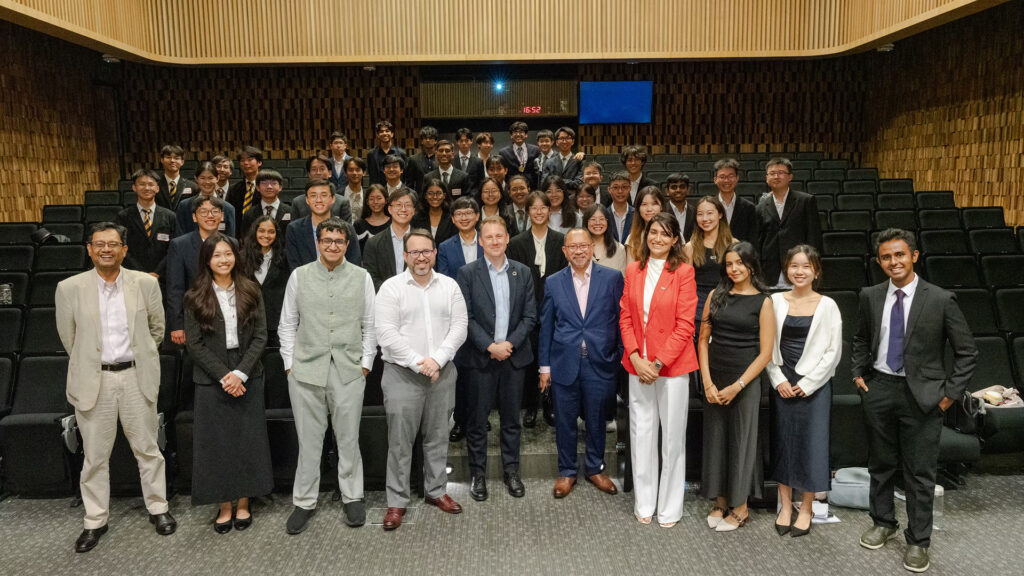
In a time marked by rising global tensions, fractured trade relations, and deepening social and economic divides, the National Economics and Financial Management Challenge (NEFMC) 2025, organised by the NUS Economics Society (ECS), brought together nearly 1,000 pre-tertiary students in June to grapple with a question that could define their generation: What does economic resilience look like in a world that's increasingly divided?
This year's theme, "Economic Resilience in a Divided World", reflects a reality that young people are already living through - a world where geopolitical instability, climate shocks, and market fragmentation are no longer abstract headlines, but defining features of the systems they will one day lead.
Hridayansh Khera, the incoming 63rd ECS President and a first-year Faculty of Arts and Social Sciences Economics major, remarked at the opening ceremony, "The theme couldn't be more timely. Our participants aren't just solving economic problems - they're building the mindset needed to lead through disruption."
A landmark year of record participation, esteemed collaborations and thought leadership
Organised annually by ECS, NEFMC 2025 saw its biggest edition yet with participation expanding nearly threefold in scale this year compared to previous iterations. This year also marked a major milestone, with the Monetary Authority of Singapore (MAS) joining as the event's key sponsor for the first time, underscoring the challenge's increasing significance in the national pre-tertiary academic landscape.
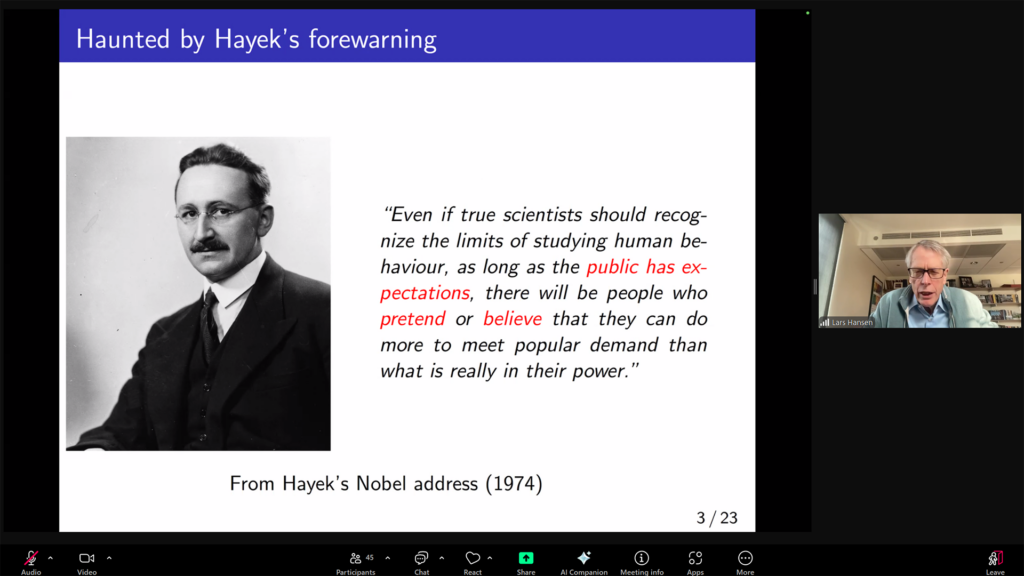
The competition scored another first when it hosted Professor Lars Peter Hansen, the 2013 Nobel Laureate in Economic Sciences from the University of Chicago, for a virtual keynote dialogue on 10 June 2025 titled "Scientific Uncertainty in Climate Policy: Conceal or Confront?".
At the session, Prof Hansen emphasised that uncertainty in climate models should not be a justification for inaction but directly integrated into policymaking. He cautioned against the risks of overconfidence in the modelling process and explained why effective policies must strike a balance between preparation for worst-case scenarios and waiting for better data.
During the competition, students across three regional rounds tackled real-world economic challenges through case analyses, policy strategy and live presentations. The first two rounds saw teams of four or five competing in an online assessment that tested their understanding of economics and finance fundamentals, followed by a research analysis of the effects of geopolitical tensions on supply chain dynamics. The top six teams entered the final round and presented their cases for how low- and middle-income countries can navigate geopolitical shocks in areas such as trade finance, energy transition, and wealth and income inequality.

The esteemed panel of judges included Mr Joe Hooper, Director of the United Nations Development Programme (UNDP) Global Centre for Technology, Innovation and Sustainable Development; Mr Eduardo Pedrosa, Executive Director of the Asia-Pacific Economic Cooperation Secretariat; Mr Richard Stein, Managing Director at Goldman Sachs; and Ms Benish Aslam, Regional Lead of Government Affairs and Policy at The Asia Pacific Medical Technology Association (APACMed).
After intense deliberation, the judging panel awarded the top prize to Team Financial Decimators from NUS High School of Mathematics and Science. Their presentation stood out for its detailed analysis and strong, evidence-based policy recommendations tailored to the needs of developing countries. The winning team represented Singapore at the Australasian Economics Olympiad last week and emerged in second place in the team category!
Building a green Singapore

The finals also saw Mr Stanley Loh, Permanent Secretary at the Ministry of Sustainability and the Environment, deliver his keynote address titled "Sustainable Singapore: Building a Green Economy in an Ever-Evolving World". Mr Loh, who is also an alumnus of NUS Economics and former ECS President, then participated in a fireside chat with Mr Khera, discussing the impact of geopolitical tensions on the development of a green economy and some of his personal experiences from when he was a student.
Mr Loh laid out the stark implications of climate inaction, warning that sea levels could rise by up to 1.15m by 2100 - a scenario that would place large parts of Singapore at serious risk. He noted that temperatures could rise by up to 5°C, with today's coolest month (January) being warmer than the hottest month (May) in the 1960s. Beyond these extremes, he emphasised the severe externalities climate change could bring, including detrimental impacts on public health, infrastructure, and food systems.
Global coordination, he reminded participants, is essential, with the global community leveraging the diverse relative strengths of nations to create a more efficient and globally coordinated response to the climate crisis. "Each country brings something different - some have advantages in alternative energy, others in R&D or systemic implementation. We need to tap on comparative advantage in climate action too."
Inspiring young economists
Reflecting on the experience, Zhu Yancun from Team Financial Decimators noted how the NEFMC was an incredible opportunity for the team to explore the exciting intersection of economics, geopolitics, and finance. "We worked across multiple time zones during the competition period because we were in different countries across the competition period. The challenges of collaborating online only strengthened our bond as a team and made our success more rewarding. We now walk away inspired by the role economists can play in building a more sustainable and equitable world."
At the closing ceremony, outgoing and 62nd ECS President Colin Chow shared, "At its core, NEFMC has always been more than just observing policy from the sidelines. It's about sparking curiosity, challenging assumptions, and empowering students to reshape the way we think about policy. I believe that the best ideas come when students are given the space to experiment and reimagine-and it's been incredibly rewarding to watch this cohort do exactly that."
This story by the NUS Economics Society first appeared on NUSNews on 9 July 2025.
Two faculty members win Annual Teaching Excellence Award for AY2023/24
The department congratulates Mun Lai Yoke and Denis Tkachenko for winning the Annual Teaching Excellence Award for AY2023/24.
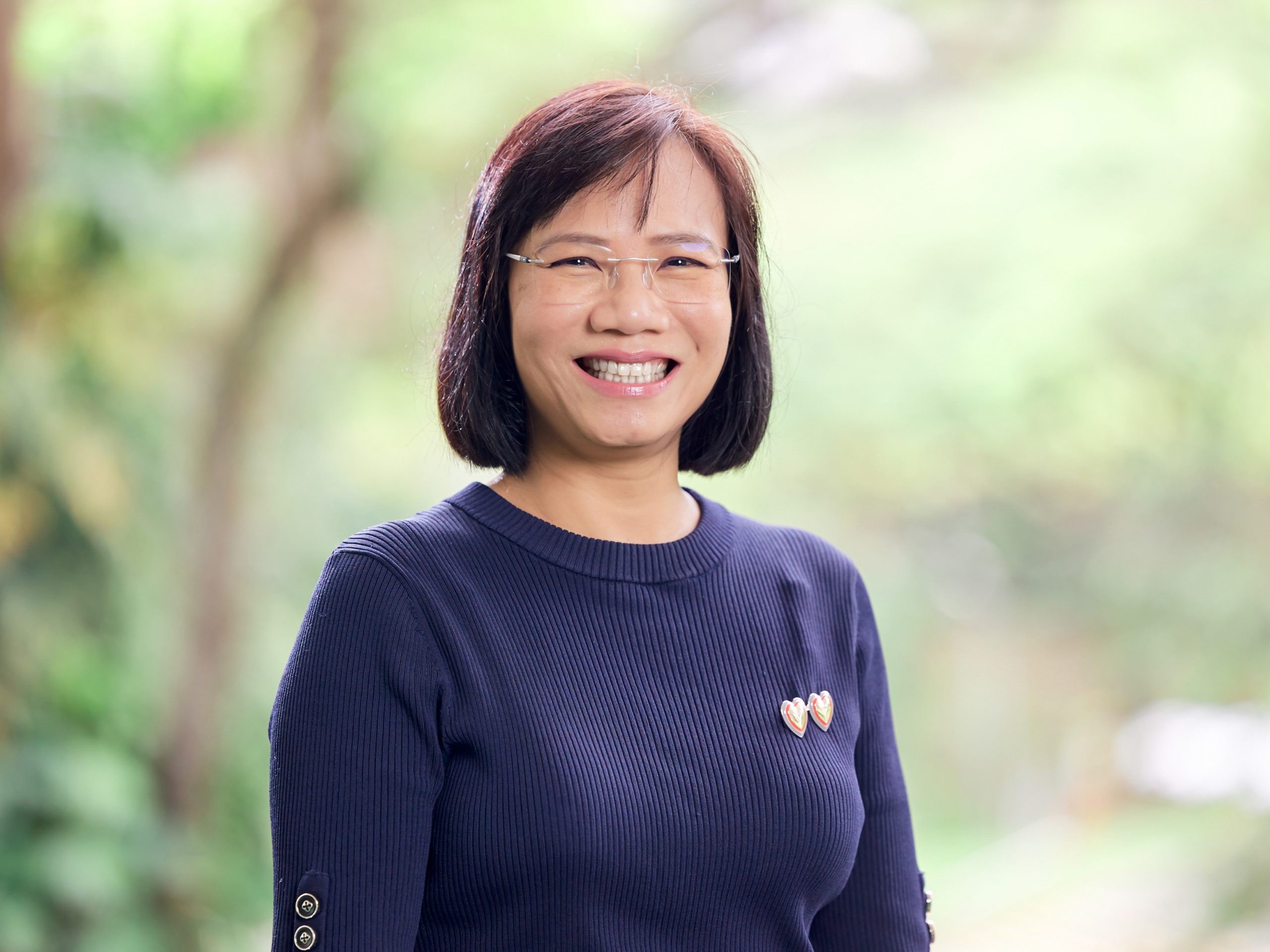 Mun Lai Yoke teaches courses in International Finance and Financial Economics
Mun Lai Yoke teaches courses in International Finance and Financial Economics
 Denis Tkachenko teaches courses in Econometrics, Economic and Financial Forecasting and Machine Learning
Denis Tkachenko teaches courses in Econometrics, Economic and Financial Forecasting and Machine Learning
Interning in the FASS Lane: An NUS Economics Student’s Growth Journey at Sanofi

Each morning, as Farah Firzanah Binte Rahman (Year 4, NUS Economics) walks into Sanofi's offices in downtown Singapore, she carries more than just her coursework knowledge - she brings the growing confidence of someone transforming classroom theory into real-world impact. Currently midway through her FASSIP (FASS Internship Programme) internship in Corporate Affairs at the pharmaceutical giant, Farah has already experienced what many students hope for from such placements: meaningful projects, authentic mentorship and those unplanned moments of growth that happen between scheduled tasks. In this interview, she reflects on finding her voice as an event MC, the art of networking through pantry conversations, and how embracing discomfort led to her most rewarding challenges.
How was your first day of work?Farah Firzanah: My first day felt like a rollercoaster of emotions, as this was my very first internship and I wasn't quite sure what to expect. I met many of the colleagues I would be working closely with, which initially made me a bit nervous. However, the nerves eased significantly after a warm welcome lunch with my managers, where we had the chance to get to know each other better in a relaxed setting. Later, we had a briefing session that helped set clear expectations and goals for my time at Sanofi, which gave me a strong sense of direction and confidence moving forward. What is your daily routine at work?
I usually start my day with a cup of coffee from our in-house baristas, who are part of an inclusive hiring initiative - a small but meaningful reminder of the company's commitment to diversity. They make excellent coffee and matcha, which adds a nice start to the morning.
Once I'm settled in, I begin by checking my emails and catching up on any updates from the region. I then outline my to-do list for the day, which helps me stay focused and organized. Given the fast-paced nature of the pharmaceutical industry, it's essential to stay agile and proactive in managing tasks and priorities. This routine helps me stay on top of my responsibilities and adapt quickly to any new developments.
What makes your day-to-day internship experience fun? Feel free to share lighter moments at the office, such as team lunches, fun activities or office pets/plants.One of the lighter highlights during my internship was when the in-house baristas introduced a new menu item - the Matcha Latte. I had never tried matcha before and was initially hesitant, but my fellow intern and I decided to give it a go after lunch. To my surprise, I really enjoyed it! It became a small but fun ritual we looked forward to.
The office pantry, or as we call it the community centre, had a foosball table, which turned into a great spot for quick breaks. We would unwind there, playing a few rounds to relieve stress and recharge before heading back to work.
Although there weren't any office pets or plants, what truly made my day-to-day experience enjoyable was the people. My colleagues were incredibly warm and welcoming, and the positive atmosphere they created made the office feel like a comfortable and friendly space to learn and grow.
One of the highlights of my internship experience was having the opportunity to emcee an event - my very first time doing so! The event was a Chinese New Year celebration, which made it especially memorable. It was fascinating to hear how colleagues from different countries celebrate Chinese New Year in their own unique ways, adding a rich cultural dimension to the event.
How was your experience attending company events, networking sessions and/or team bonding outings? Do share some takeaways and tips.While the term "networking sessions" can sound formal and sometimes intimidating, I found that at Sanofi, networking happened quite naturally. Whether it was while waiting for a cup of coffee or grabbing a snack from the pantry, casual moments often led to meaningful conversations. Company events held at the community centre also created a relaxed environment to connect with colleagues over food and drinks, making it easier to build relationships in a more organic way.
As for tips:-
Set small, realistic goals. For those who are more introverted, large gatherings can feel overwhelming. Before attending an event, I found it helpful to set a small goal - such as speaking to three new people. This made the experience more manageable and intentional.
Switch up where you sit. Instead of staying at the same desk every day, try sitting in a different section of the office from time to time. I noticed that by simply sitting in a new area for a week, I naturally started interacting with new colleagues around me. It created opportunities for informal conversations and helped me integrate more comfortably.
Make use of pantry moments. The pantry is one of the best places for casual conversations. A simple "good morning" while waiting for coffee can lead to unexpected and engaging discussions. These small exchanges help build rapport over time.
Say Yes to lunch invitations - or initiate one. During my first week, I had not met the other interns yet and found myself exploring the area alone at lunchtime. A colleague of my manager kindly invited me to join her for lunch, which turned into a valuable opportunity to connect and learn more about different roles in the company.
Overall, I have learned that meaningful connections often grow from everyday interactions. Being open, approachable, and intentional even in small ways can go a long way in building a strong professional network.
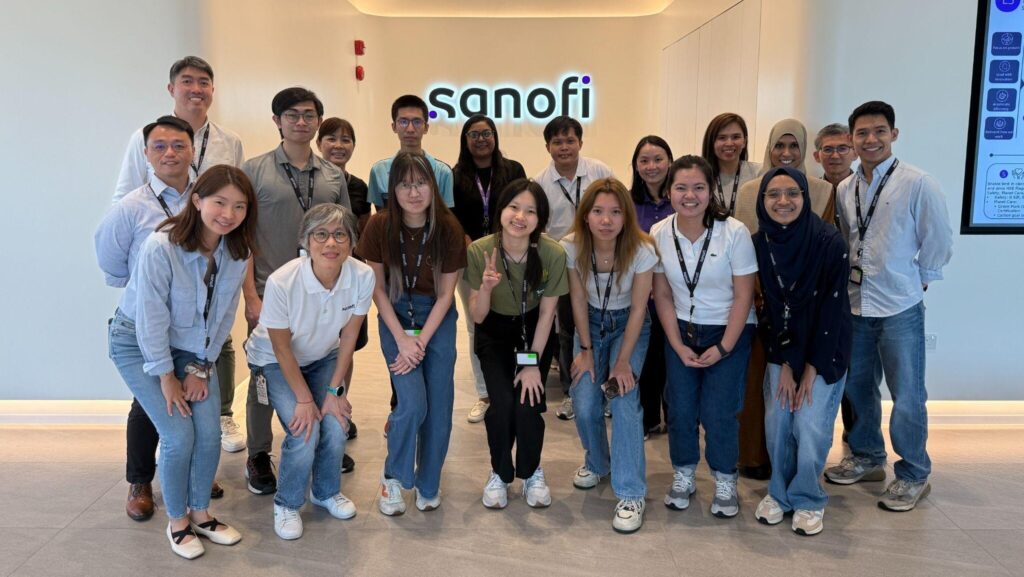
What projects or tasks are you most proud of having contributed to?
During my internship at Sanofi as a Corporate Affairs Intern, I have had the opportunity to contribute to several meaningful initiatives. The regional scope of the role exposed me to cross-cultural collaboration and gave me insight into the pharmaceutical industry from multiple perspectives through close work with various departments. One project that stands out was supporting a patient advocacy event held in Thailand. Despite joining the project in the later stages, I quickly adapted to Sanofi's collaborative culture and took ownership of diverse responsibilities.
Together with a Thai colleague, we took the initiative to understand new processes, working late hours to ensure compliance with internal requirements and to coordinate communications with both internal stakeholders and external partners. Despite the challenges, the event came together successfully, and it was incredibly rewarding to see participants enjoy and appreciate the effort that went into it.
In addition to this project, I was also grateful for the opportunity to volunteer with my colleagues during Rare Disease Day in partnership with KKH. We helped run game booths and engaged directly with patients, an experience that was both humbling and heartwarming.
A particularly memorable moment came when a colleague invited me to support communications coverage for a mentoring program in partnership with the NUS Career Access Team. Being able to give back and share my journey with students who were now in the position I once was felt like a full-circle moment - a reminder of how far I had come and the impact I could make.
What are some new skills or lessons learnt from your experience so far?Adaptability is key in fast-paced industries. From the very first day, it became clear that no two days would look exactly the same. Tasks and priorities could shift quickly based on regional developments, business needs, or unforeseen challenges. It is important to stay calm under pressure, learn quickly, and be resourceful. Being open to change and stepping outside your comfort zone can lead to significant personal and professional growth. In dynamic work environments, adaptability isn't just a helpful trait-it's an essential one.
One of the most meaningful takeaways from my internship at Sanofi was the value of teamwork and collaboration. Coming into a regional role that spanned across Southeast Asia and India, I knew I would be working with people from different cultural and professional backgrounds. However, I didn't fully grasp how enriching and essential that collaboration would become until I was deep into the experience.
Every project I worked on involved interacting with colleagues from different departments, and this required a balance of communication, openness, and respect for diverse perspectives. It taught me that effective teamwork isn't just about sharing responsibilities-it's about learning how to listen, adapt, and support one another even when things are uncertain or unfamiliar. How has your internship experience shaped your career?
My internship at Sanofi has been a transformative chapter in my early career journey. It has provided not only a glimpse into the fast-paced pharmaceutical industry but also an environment where I could grow both professionally and personally. The experience solidified my interest in corporate affairs and communications while expanding my understanding of how cross-functional teams operate in a regional, multicultural context.
Through hands-on involvement in real projects-such as organising a regional patient advocacy event-I discovered the importance of adaptability, proactive problem-solving, and clear communication. Being trusted with responsibilities early on gave me the confidence to step outside of my comfort zone and make meaningful contributions, even in unfamiliar situations.
Moreover, the internship sharpened my interpersonal skills. Collaboration with colleagues across the region taught me how to work effectively across cultures and time zones, a skill that is increasingly valuable in today's globalised workforce. Natural networking moments, volunteering activities, and mentoring opportunities all helped me develop a stronger sense of professional presence and community engagement.Most importantly, the internship helped me see the kind of professional I aspire to be-one who is adaptable, collaborative, and driven by purpose. It affirmed my passion for work that involves communication, stakeholder engagement, and impact-driven initiatives. Moving forward, I feel better equipped and more motivated to pursue roles where I can continue growing in these areas while contributing meaningfully to the organizations I join. If there is one piece of advice that you would like to share with your juniors about your internship, what would it be?
Don't be afraid to jump into the unknown!
Of state and society: Does Singapore have social capital?
IN BRIEF | 10 min read
- By Dr Georgios Georgiou (NUS Economics).
Click through image below to read this piece.
This story first appeared in The Business Times and on NUSNews on 19 April 2025.
Ong Ee Cheng speaks at Economic Society of Singapore and Ministry of Education Annual Economics Seminar
Ong Ee Cheng was invited to speak at the The Economic Society of Singapore and Ministry of Education Annual Economics Seminar 2025, for more than 250 junior college students and teachers. The event was held on 12 April.
In her session titled "What is our Comparative Advantage in the 21st Century?", Ee Cheng spoke on skills we must recognize and cultivate relative to Artificial Intelligence.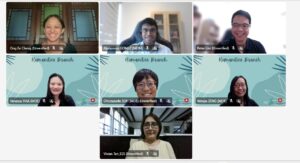
NUS Economics Alumni Reunion Conference 2025
Over 40 PhD alumni from our department attended the NUS Economics Alumni Reunion Conference at Wuhan University on 23 March 2025. Representatives from the department included the current head of Department, John Quah, two previous heads of department, Sun Yeneng and Satoru Takahashi, as well as Zhang Jie, Chew Soo Hong and Sng Tuan Hwee.
The keynote presentations were given by John Quah, Zhang Jie, Sun Yeneng and Chew Soo Hong. The conference included sessions on microeconomics, empirical topics, behavioral and experimental economics and macroeconomics.
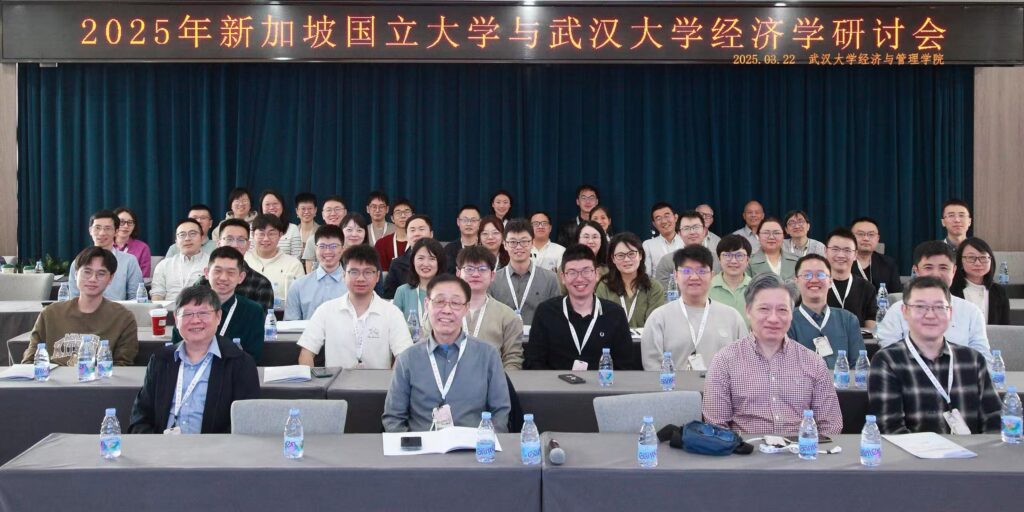
Front row (left to right): Sun Yeneng, Zhang Jie, John Quah, Satoru Takahashi
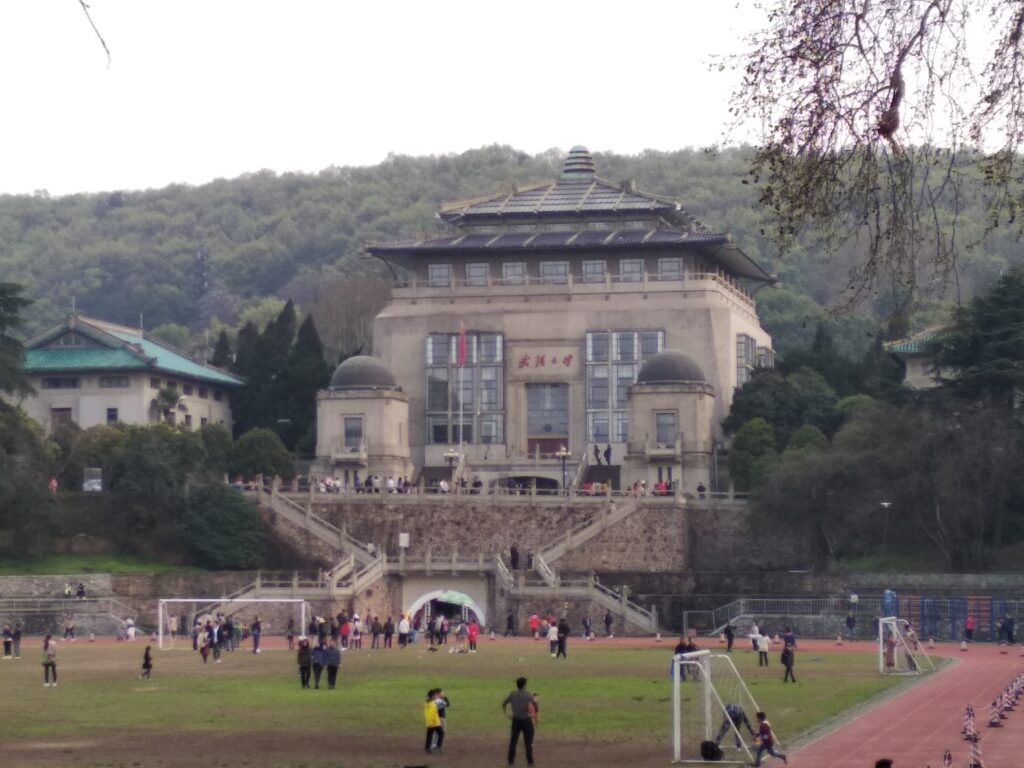
Two department faculty win FASS Inspiring Mentor Award 2024
The department congratulates Ong Ee Cheng and Jessica Pan who both won the FASS Inspiring Mentor Award for 2024. The award acknowledges and recognises inspiring colleagues in our community who demonstrated an exceptional commitment to mentoring through their work and are passionate in nurturing the intellectual, professional, and personal growth of other colleagues.
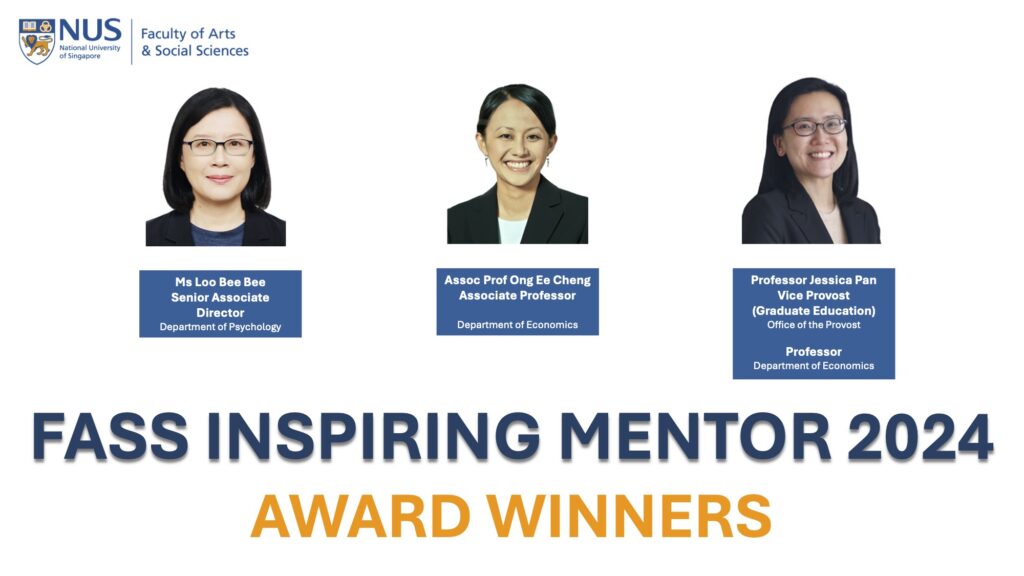
FASS Inspiring Mentor 2024 Award Winners Announced
We extend our congratulations to the winners of the 2024 FASS Inspiring Mentor Awards.
- Ms. Loo Bee Bee, Senior Associate Director, Department of Psychology
- Associate Professor Ong Ee Cheng, Department of Economics
- Professor Jessica Pan, Office of the Provost and Department of Economics
Malaysia won’t be able to solve its traffic woes without better bus networks
IN BRIEF | 10 min read
- By Dr Timothy Wong, NUS Economics.
Click through image below to read this piece.
This story first appeared in CNA Online and NUSNews on 18 March 2025.
Undergraduate Teaching Excellence Award Winners for AY2024/2025 Semester 1
The department recognizes the following six undergraduate teaching assistants for excellent teaching
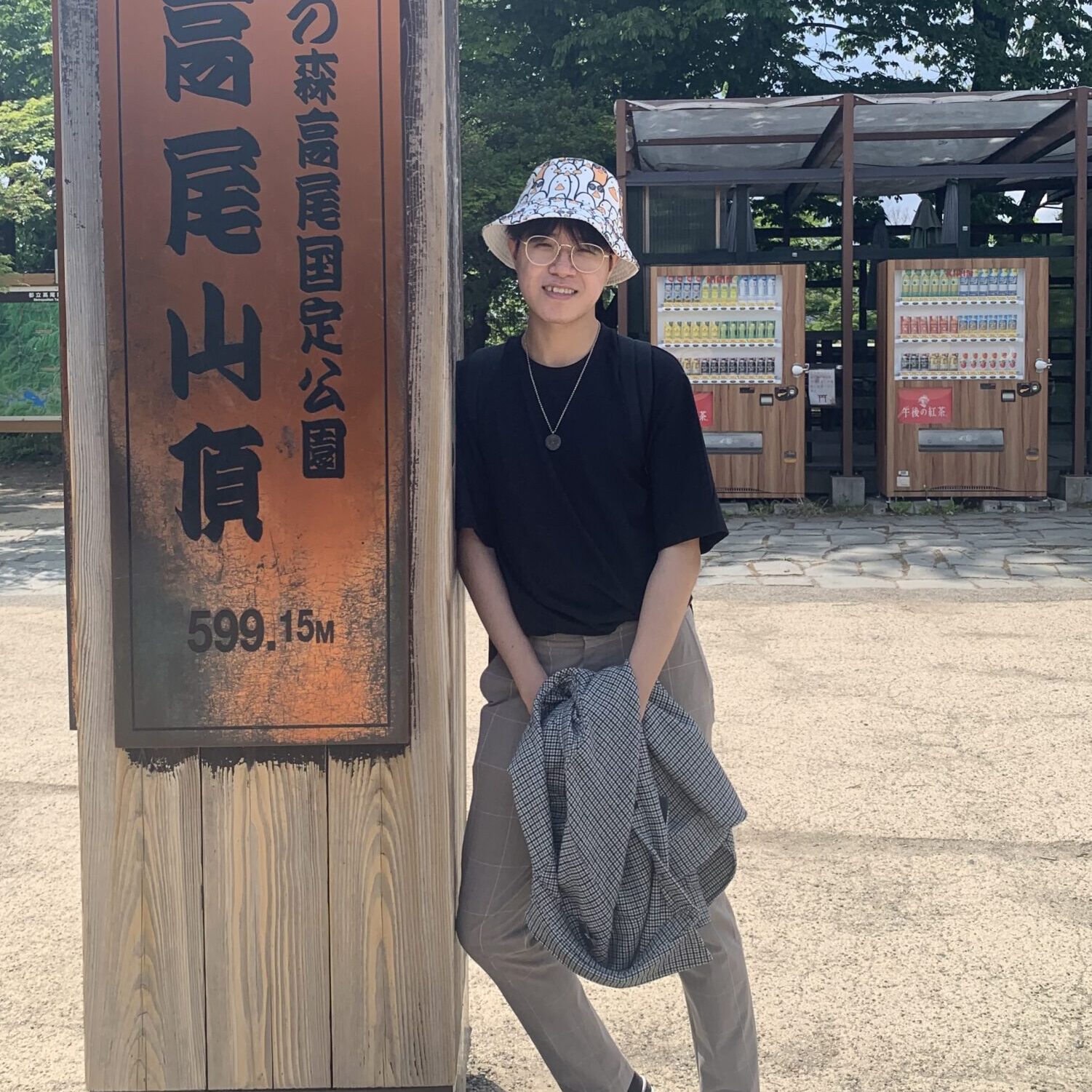 Chen Lei (EC1101E)
Chen Lei (EC1101E)
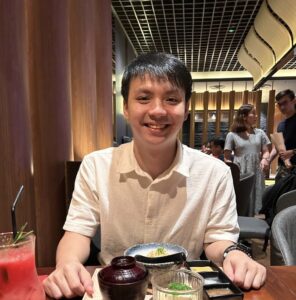 Keith Ng (EC1101E)
Keith Ng (EC1101E)
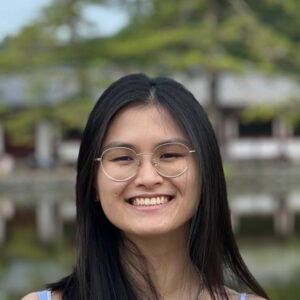 Chan Yu Cheng (EC2101)
Chan Yu Cheng (EC2101)
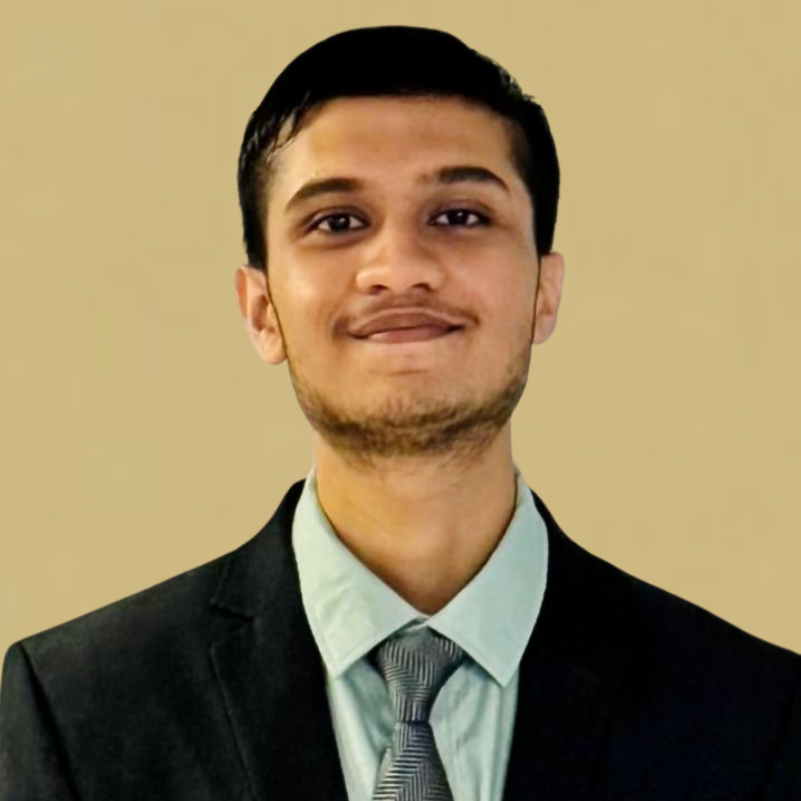 Naman Agrawal (EC2102)
Naman Agrawal (EC2102)
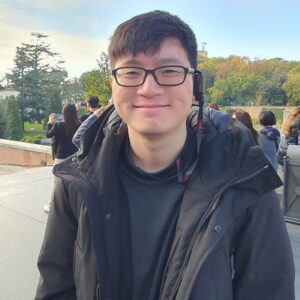 Teh Zhi Yuan (EC2102)
Teh Zhi Yuan (EC2102)
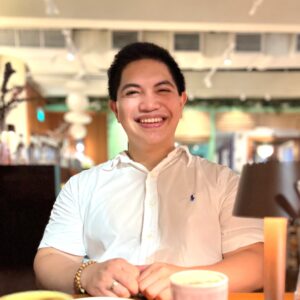 Michael Cabinian (EC2303)
Michael Cabinian (EC2303)
In addition, the Exemplary Sustained Teaching Excellence in Economics Medal (ESTEEM) is awarded to an Undergraduate Teaching Assistant who has done an exemplary job in at least two difference courses over at least four semesters. This year, the awards is given to
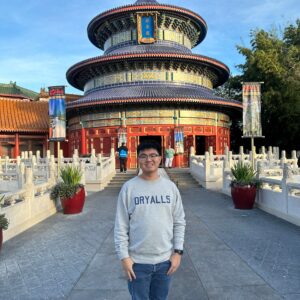 Justin Goh (EC2101 and EC2102)
Justin Goh (EC2101 and EC2102)
Congratulations to all for their good work!
NUS Economics awards Teaching Excellence Awards AY2023/24
Award Winners:
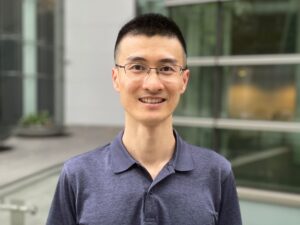 Li Ming for excellence in teaching EC4303 (Econometrics III) and EC5103 (Econometric Modelling and Applications I) over the past three years.
Li Ming for excellence in teaching EC4303 (Econometrics III) and EC5103 (Econometric Modelling and Applications I) over the past three years.
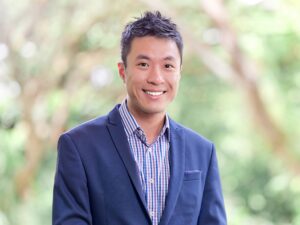 Kelvin Seah for his contributions to both introductory and honours-level courses over the past three years, where he has consistently received outstanding student feedback.
Kelvin Seah for his contributions to both introductory and honours-level courses over the past three years, where he has consistently received outstanding student feedback.
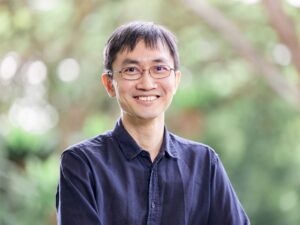 Sng Tuan Hwee for his role in developing and teaching the new interdisciplinary course HS2909 (The Rise and Fall and Rise of China), as well as excellent teaching in EC3101 (Microeconomic Analysis II) in recent years.
Sng Tuan Hwee for his role in developing and teaching the new interdisciplinary course HS2909 (The Rise and Fall and Rise of China), as well as excellent teaching in EC3101 (Microeconomic Analysis II) in recent years.
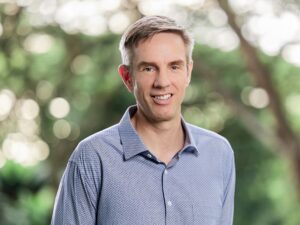 Julian Wright for his long-standing contributions to EC4325 (The Economics of Digital Platforms), one of the most popular 4000 level courses offered by the Department.
Julian Wright for his long-standing contributions to EC4325 (The Economics of Digital Platforms), one of the most popular 4000 level courses offered by the Department.
Do college admissions criteria matter? Evidence from discretionary vs. grade-based admission policies
The NUS Open House, generally held every March, welcomes prospective students and provides answers to their questions about university life. This coincides with when students receive their GCE A-Level grades and begin to decide on whether to pursue a college education. This can be a stressful time due to the importance of this decision, with considerations like how it might affect their later outcomes in employment and further education. Students also have to navigate the challenging realm of college admissions, from writing applications to fulfilling the criteria imposed by the various universities. In ‘Do college admissions criteria matter? Evidence from discretionary vs. grade-based admission policies’ (Economics of Education Review, 2023), Mr Rais Kamis (NUS ALSET), Professor Jessica Pan (NUS Economics), and Dr Kelvin Seah (NUS Economics) look into how college admissions criteria have affected students in the long-run, by studying the differences between two admission tracks – a regular track, that relies solely on academics, and a discretionary track, that considers non-academic qualities as well. The researchers find that the discretionary admission (DA) track tends to produce students with better academic performance, more holistic development, and notably higher earnings post-graduation, as compared to regular track students that were marginally admitted. The study was conducted in NUS through analysing the data of students enrolled from 2009 to 2013. NUS is perceived as a highly selective and well-ranked university in Singapore. Since 2004, NUS begun admitting students on not only the regular track, but also through discretionary admissions, to adhere to the Ministry of Education’s guidelines to reduce emphasis on academic qualifications alone. The researchers find that the students that enter via DA, although having slightly lower academic achievements than those marginally admitted on the regular track, do not fare any worse. In fact, a significant number of DA students outperform these marginally admitted students on a number of measures. These findings call into question the usefulness of typical college admissions based on academic qualifications and provide useful insights for education policymakers to reconsider the admissions process and pay more heed to DA options. Read the article here.

Love stories come full circle as NUS campus couples give back

In the 1990s, an unlikely friendship blossomed at NUS Sheares Hall between a motorcycle-riding long-haired Arts student and a popular bubbly freshman from the NUS Faculty of Science. When Mr Aznan Bin Ghazali (Arts & Social Sciences - Economics and Malay Studies, '92) jokingly quipped to Ms Khalijah Binte Masud (Science - Mathematics and Biology, '92) that one day she would marry him, she shot back: "No way I am going to marry you!"
Years after graduation, fate proved her wrong - they fell in love and married on Valentine's Day in 1999.
26 years later, they have returned to their alma mater to reminisce and support the next generation of NUS students through the NUS Campus Couples Bursary. They were among 250 guests at the Celebration of Love and Giving Dinner held on 13 February 2025 at NUS.
"Reflecting on our blessed life and giving back are ways of commemorating our time in NUS," shared Mr Aznan, quoting his wife during his speech at the event. "At this point in our lives, it's also important for us to set an example for our children."
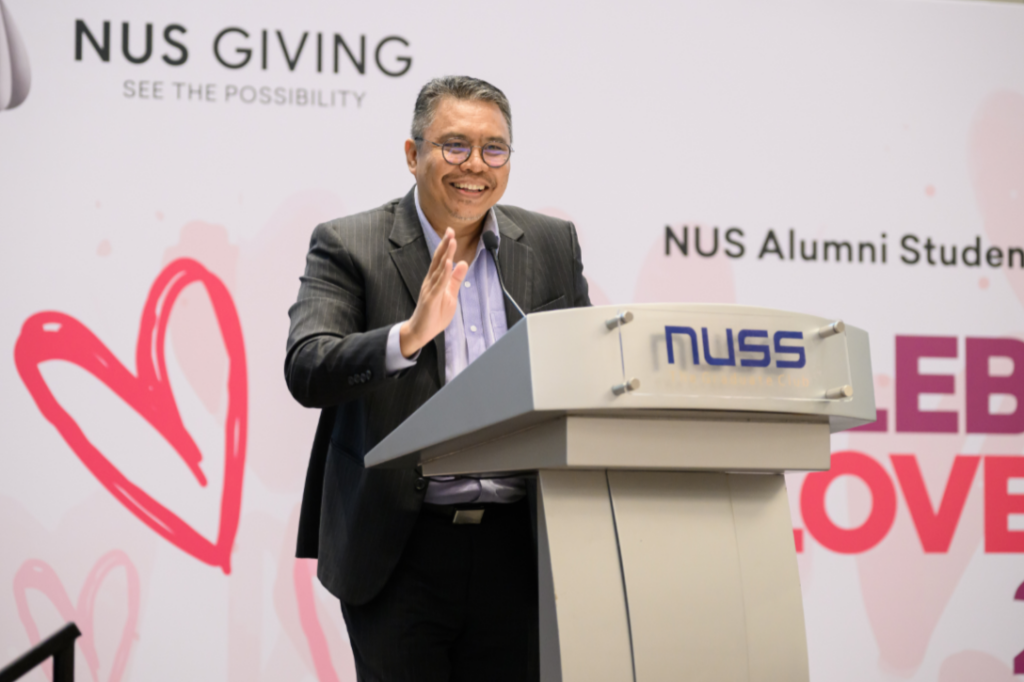
The annual donor appreciation event, which brings together couples who found love and purpose on the University's grounds, is organised by the NUS Campus Couples Alumni Group and supported by the Alumni Student Advancement Committee (ASAC) and the NUS Development Office.
Reflecting on how the Campus Couples Bursary began, Mr Yeo Keng Joon (Business '85), Chairman of the event's organising committee and ASAC member, shared how he rallied fellow alumni with a heartfelt appeal: "If you met your spouse on campus and have achieved a fulfilling life, it's important to acknowledge the role the University played in shaping your journey, as it may have been quite different without it."
His message resonated deeply with the NUS community, and over $1 million has been raised for the NUS Campus Couples Bursary since its establishment in 2015. To date, the funds have supported 223 students in financial need.
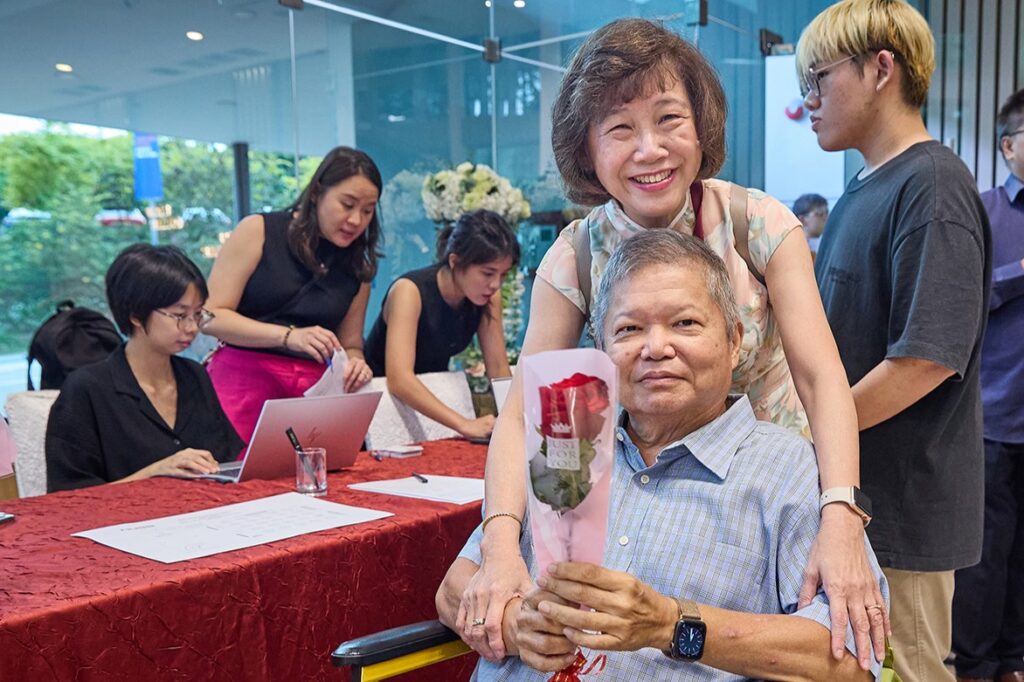
Among the bursary's dedicated supporters are Ms Wong Lai Quen (Science '80) and Mr Steven Lau Hwai Kien (Accountancy '80), who found love as undergraduates and built a life together after graduation. "We are very thankful for whatever we have received, whether through our hard work or from our lecturers, the community and the government," said Ms Wong. "That's why we believe in giving back. Even when Steven is now living with dementia, he is always thinking about how to support others. That's how we came to support the Bursary."
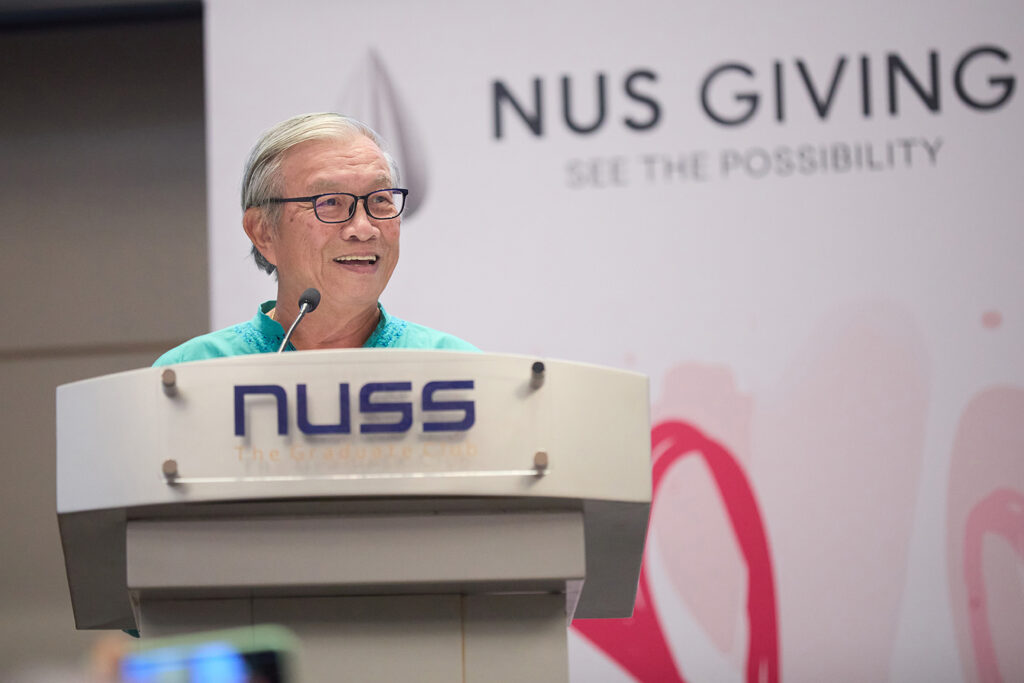
For Mr Yeo and his wife Mdm Kong Yuet Peng (Business '86), watching their contributions transform students' lives brings deep fulfilment. "We talk to the students, and we get to understand the difficulties and suffering they face. When we know that we have made a difference in their lives, it makes us happy," he said.
The NUS Campus Couples Bursary and other financial aid for university students showcase the profound impact of alumni giving-turning generosity into life-changing opportunities.

One such beneficiary is Ms Nur Husna Faqihah, a Year 4 Geography student at the NUS Faculty of Arts and Social Sciences, whose story exemplifies social mobility through education. When her parents faced retrenchment during the pandemic, a bursary became her lifeline. Not only did it enable her to continue her studies, the bursary also opened doors to experiences she never imagined possible - from representing NUS at the Youth Green Summit in Bangkok to participating in an exchange programme in Croatia.
"I feel so lucky to be born in Singapore and to be part of an institution like NUS," she reflected. "Because of these bursaries and financial aid schemes, students can pursue their passions as long as they have the desire to do so. Thank you for impacting the lives of students like me, and for making a difference that extends far beyond our time at NUS. You have helped us walk a smoother path, free from the worries of burdening our families, so that we can focus on our education and future contributions to society."
These stories of NUS campus couples have come full circle. What started as serendipitous meetings in lecture halls and dormitories have evolved into a legacy of giving, creating ripples of impact that continue to shape future generations.
This story first appeared on NUS Giving News on 20 February 2025.
A Lifelong Family Legacy Inspired by S$300
IN BRIEF | 15 min read
- A one-time gift of S$300 to FASS alumna Mrs Lim Weng Sam (NUS Economics '73) when she was a young girl has changed many lives.
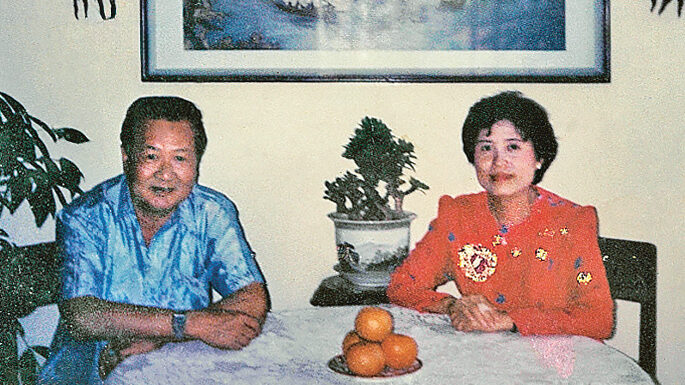
When Mrs Lim Weng Sam's husband passed away in July 2023, there were two doctors who turned up at the wake. They were not family members or friends, but beneficiaries of a scholarship that Mrs Lim, 73, set up in 2009, which fully paid for their medical education.
Besides the Gan Guat Ching Medical Scholarship (named using her maiden name), Mrs Lim established two other funds at the National University of Singapore (NUS) - the Gan Eng Teck and Maria Tan Ah Ho Bursary (named after her parents) in 2008, and the Mr and Mrs Lim Weng Sam Medical Scholarship, which was set up more recently in 2023. Mrs Lim's kindness has benefitted over 150 students and her kindness will continue to live on with her legacy gift to NUS.IMPACT OF A S$300 GIFT
The retired public servant and teacher's motivation to give stems from her parents, who were extremely generous people. But there was also a gift that she never forgot. Mrs Lim was fresh out of St Anthony's Convent, and her father's business was not doing well at the time. As a consequence, her parents told her that they could not afford to send her to university.
Hearing of her plight, Father Domingos Lam from St Joseph's Church, whom she was acquainted with, gave her S$300. When the funds from a PSC Merit Bursary she applied for came in later and she tried to return the gift to Father Lam, he declined. "He moved my heart and I never forgot his kindness," she said. "I want to return to society the blessings I received."
Her husband, whom Mrs Lim called "a man of few words with a heart of gold" was also very generous. He, too, chose to leave a legacy via a scholarship.
Supporting Future DoctorsOn why she chose to give to NUS, Mrs Lim, who graduated from the then-University of Singapore with an Economics degree with Honours, explained, "NUS is a very credible institution of higher learning and has a good global ranking and reputation."
As to why her legacy gift is for medical education, Mrs Lim felt that medical scholarships were few and far between. "I wanted to give children from poor families who are capable of becoming doctors a chance to study medicine in a university," she explained. "That has been my goal and I have been able to fulfil that."
One of her greatest joys is sharing some personal values with the recipients. "I tell them: 'I don't want to subject you to a bond'," she said. "However, do study hard, get a degree and be committed to your job. Also, remember to look after your parents because they brought you up."
Clearly, paying forward the blessings she has received is Mrs Lim's inspiration in her lifelong journey of giving. Knowing that education can be a life-changing experience, she believes that by making a gift to the University, it is "a good avenue to lift people out of the vicious cycle of poverty and that you can help generations of students long after you are gone".
In light of Mr Lim's recent passing, Mrs Lim's words are a clarion reminder that generosity is not just a one-time gift, but a legacy with the power to echo through generations.
The story first appeared in the Jul-Dec 2024 edition of TheAlumNUS.
Cultivate the spirit of volunteerism in youth to contribute to society
IN BRIEF | 10 min read
- By Ms Humaira Safiya Mohd Helmi, student from NUS Political Science and Economics, and Mr Amirul Daniez, student in NTU.
Click through image below to read this piece.
This story first appeared in Berita Harian and NUSNews on 20 November 2024.
New Course Charts Interdisciplinary Paths to Effective Altruism
IN BRIEF | 10 min read
- HS2921 by Assistant Professor Martin Mattsson (NUS Economics) and Dr Joel Chow (NUS College) prepares students to craft and execute interdisciplinary solutions "to help others as much as possible."

'How can we best use our resources to help others? How do we ensure that our efforts are effective in improving the wellbeing of others? The newly launched course at the NUS College of Humanities and Sciences (CHS), HS2921 Effective Altruism in Theory and Practice, is devoted to teaching approaches to answering questions such as these along interdisciplinary (crossing Economics and Philosophy) lines.
We ask the creators and instructors of this course in its maiden semester this year - Assistant Professor Martin Mattsson (NUS Economics) and Dr Joel Chow (NUS College and the Philosophy, Politics and Economics Cross-Disciplinary Programme, PPE-XDP) - why they developed this course on Effective Altruism and why it needs to be interdisciplinary.
"'Effective altruism' is growing as a social movement globally, but there aren't many university courses on the topic," says Dr Mattsson, moving on to explain the need for interdisciplinarity. "A popular definition of Effective Altruism is to 'use evidence and reason to figure out how to benefit others as much as possible and taking action on that basis'. When trying to figure out how to benefit others, we inevitably have to deal with complex questions such as 'How can we best improve the lives of others?' and 'How can we reliably tell if our methods of benefiting others are effective?' To address these questions, one has to leverage multiple academic disciplines. So, while the course mostly draws on Philosophy and Economics, it also touches on subjects like Political Science, Psychology, Engineering, and Computer Science."
"Therefore, we believe it is a natural fit with the CHS common curriculum, as we hope to show students that to address complex real-world problems, we need to bring together insights from multiple disciplines and integrate them," adds Dr Chow, who further points out that the syllabus they crafted and the assignment they set reflect this approach. "For example, in their work on the group project students are expected to analyse an intervention using philosophical and economic tools, and bring together these disciplines to better examine, and ultimately evaluate, an intervention on its impact and ability to benefit others."
Equipping and Inspiring Students to Act on their OwnDr Mattsson and Dr Chow's syllabus for HS2921 seeks to train students in how to approach questions as a philosopher by evaluating non-empirical values such as our moral obligation towards the global poor, non-human animals and future populations. It also trains students in how to think like economists. For example, students are taught to identify situations in which markets can lead to good outcomes and in what situations interventions by governments or philanthropists are needed. Furthermore, the class encourages quantitative analysis using concepts such as expected value calculations and operationalised measures of human wellbeing such as quality adjusted life years.
"The main goal of the course is to provide students strategies for how to answer the question, 'How can I benefit others as much as possible?' and hopefully inspire some students to act on their own answers to that question," says Dr Mattsson. "To do this we discuss different theories for what constitutes morally good behaviour, basic economic logic and evidence, and finally we do a deep dive into three fields that many in the Effective Altruism community think are areas where one can benefit others a lot."
In examination of these three areas - welfare of the global poor, animal welfare and our legacy for future generations - with their students, Dr Mattsson and Dr Chow do not only just draw from the perspectives and ideas of other fields like social psychology and politics, but also call in major thought leaders, such as renowned utilitarian and Ira W. DeCamp Professor of Bioethics at Princeton University, Peter Singer, who delivered a lecture to their class early this month.
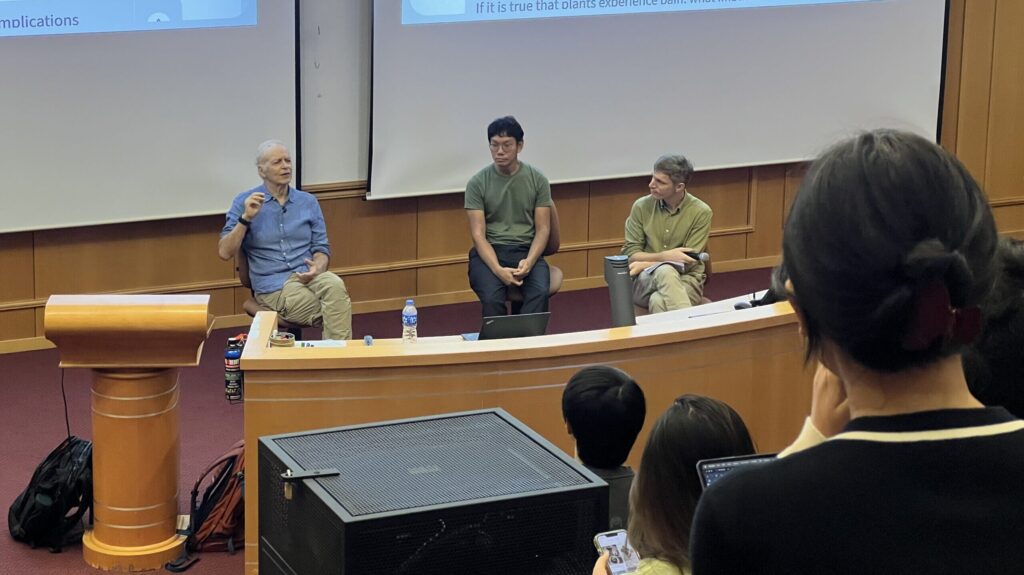
HS2921 is one of a few university courses in the world devoted to Effective Altruism and while that speaks well for its future popularity among students it also brought on unique challenges towards its launch.
Dr Mattsson explains. "Although Effective Altruism is growing as a social movement, there aren't many university courses on the topic and there are no textbooks. We are happy to teach the first university course on Effective Altruism, that we are aware of, in Asia, but it meant we had to create a lot of the materials ourselves," he says. This was challenging as some of the topics, like existential risks, are quite far away from our own research and teaching focus. Fortunately, there are lots of great materials like books, blogposts, and podcasts, created by people both inside and outside the effective altruism movement and we drew on these materials to create our course.
Dr Chow indicates another issue they had to contend with in the development of their course. "It is also always challenging to teach students from very diverse academic backgrounds and with very different interests, most of whom have no background in neither Philosophy nor Economics," he says. "We have tried to design the course so that students can follow their own interests and leveraging their own strengths by doing group projects and writing essays on topics of their choice. We hope that for some of the students these projects will be the first step towards a deeper engagement with these topics."
All their challenges aside, Dr Mattsson and Dr Chow have seen enrolment to their course this semester exceed their initial expectations and are encouraged to consider hosting a larger class in future. "This is the first year that we are teaching the course, so we really didn't know what to expect in terms of student interest. We had set a cap of 100 students and gotten a lecture theatre with capacity for that enrollment," says Dr Mattson. "We thought that this would be more than enough, but we were pleasantly surprised that more than 150 students tried to enroll in the course!"
"Yes, unfortunately we had to say no to some students due to space constraints," says Dr Chow. "But we intend to increase the number of students we can accommodate in future years and hopefully the interest among students will continue to be strong."
For more information on HS2921 go to Canvas (for NUS Students) or NUSMods.
Touching the Lives of Those Young and Old, Through Community Service
IN BRIEF | 10 min read
- Embodying the University's spirit of service to country and society, members of the NUS Community Service Club (NUS CSC) have been key drivers of volunteerism among our student population over the past 22 years.
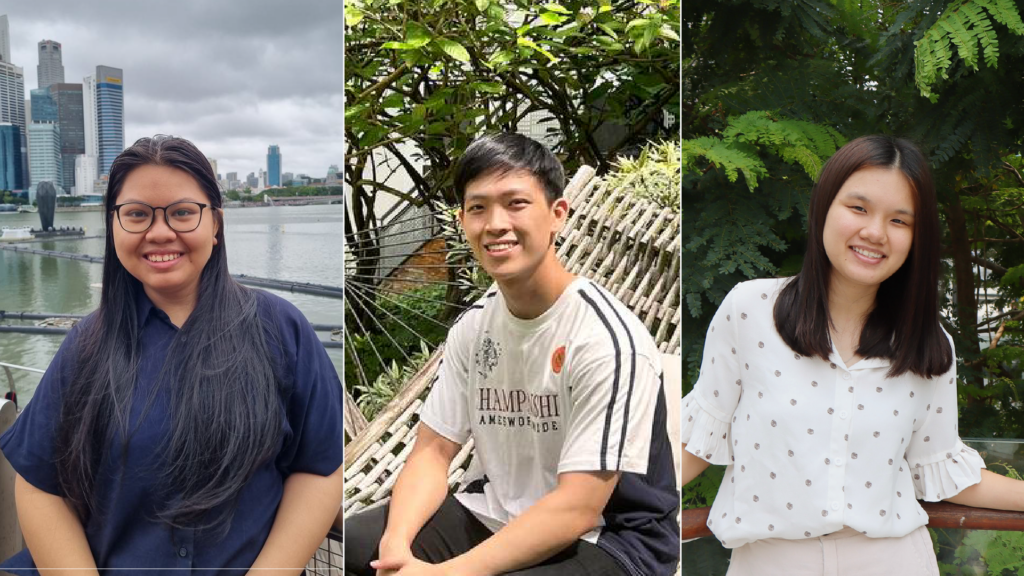
Whether it is providing academic support to vulnerable youth or befriending seniors living alone, heartwarming stories of NUS students working to uplift local and regional communities abound each year. Embodying the University's spirit of service to country and society, members of the NUS Community Service Club (NUS CSC) have been key drivers of volunteerism among our student population over the past 22 years.
Through NUS CSC programmes, more than 1,300 NUS students clocked close to 15,500 volunteer hours in the last academic year. Three of the club's members share what inspired their passion for service, the various ways they are making a difference in the community and how their efforts have enriched the lives of many - including their own.
Dewi Murni Bte Musa: Leading change through community service
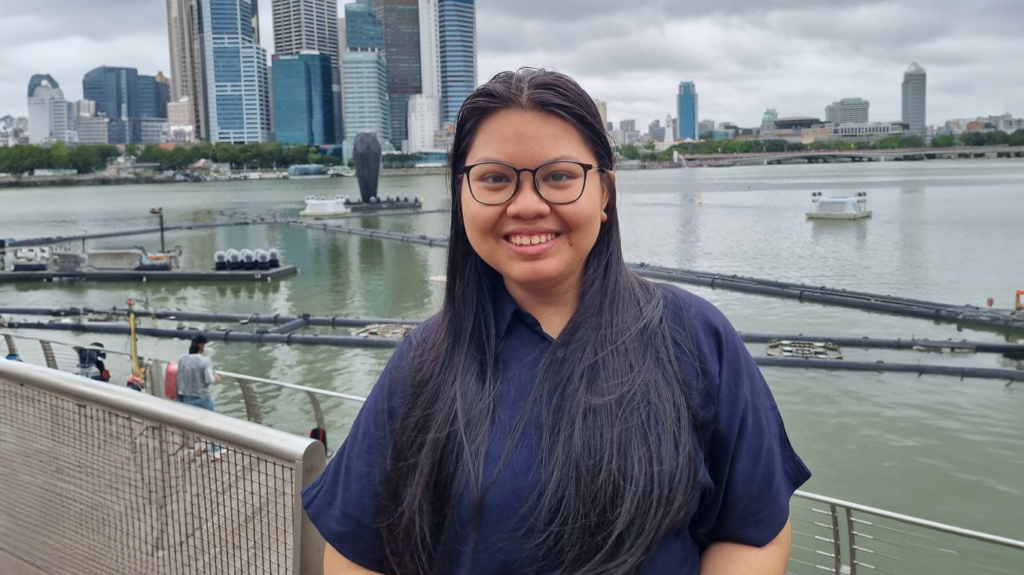
Dewi Murni Bte Musa, a Year 4 student at the NUS Faculty of Science, began volunteering at the age of 16. But it was a seemingly ordinary day chaperoning primary school students for a national education show in 2018, held in conjunction with Singapore's National Day Parade, that ignited her passion for community service.
At the end of the show, a primary schooler, beaming with excitement, thanked her for the day he had and told her that he aspired to be like her in the future. "It was a touching moment that made me realise the power of making someone's day," said Dewi, recalling that pivotal moment.
Since then, Dewi has dedicated herself to various community projects, both within and beyond Singapore. Now, in her fourth year at NUS CSC, Dewi has been elected the Club's president, and set her sights on making an even bigger impact.
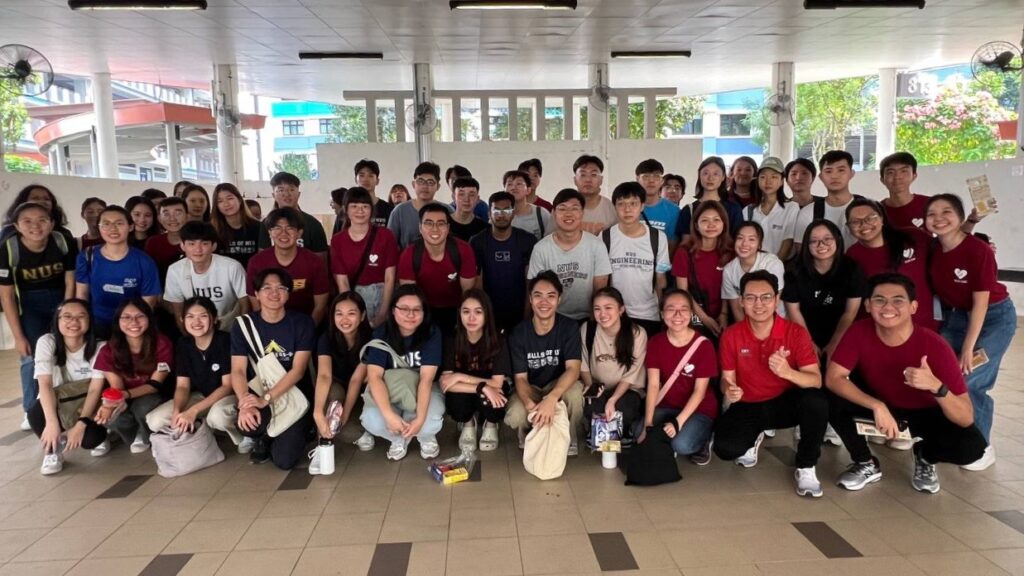
Reflecting on her time at NUS CSC, Dewi shared that her involvement in various programmes and projects played a significant role in her personal development. For example, as former Assistant Project Director, Dewi led a team of nearly 160 volunteers in Project C.A.N. XXI to prepare specially curated care packs containing food and essential items for low-income households in Choa Chu Kang and Tampines. The massive undertaking sharpened her organisational skills and taught her the importance of adaptability in team dynamics.
Yet, it was her moments of connection with community members at one NUS CSC Day that stood out most vividly to her. The annual event brings together NUS CSC's four main sectors - children and youth, persons with intellectual disabilities, the elderly and those with life-limiting illnesses and healthcare. As a game master for the day, Dewi met a secondary school student from one of their partner organisations who told her that it felt like a dream to come to NUS. Her words struck a chord with Dewi who was reminded of her own childhood, when a university education seemed like an unattainable dream. "I'm the first in my extended family to attend university, so growing up, I didn't really have anyone to talk to about getting a higher education," she said. "But I was so happy that through CSC Day, we were able to give this young girl that opportunity," she added.
Empowerment for youth and children is a cause that resonates with Dewi deeply, and she aspires to one day, build a passion project working with schools in rural areas, particularly in Indonesia, where she is fluent in the language and familiar with the culture.
As the incoming president of NUS CSC, Dewi envisions a club that not only mobilises volunteers but also fosters leadership and personal growth for its members. "We want to ensure that our volunteers are adequately prepared before they engage with community members and cultivate an environment where they can thrive as volunteer leaders," she said. "I also want to see our club evolve to meet the changing needs of both our volunteers and the community."
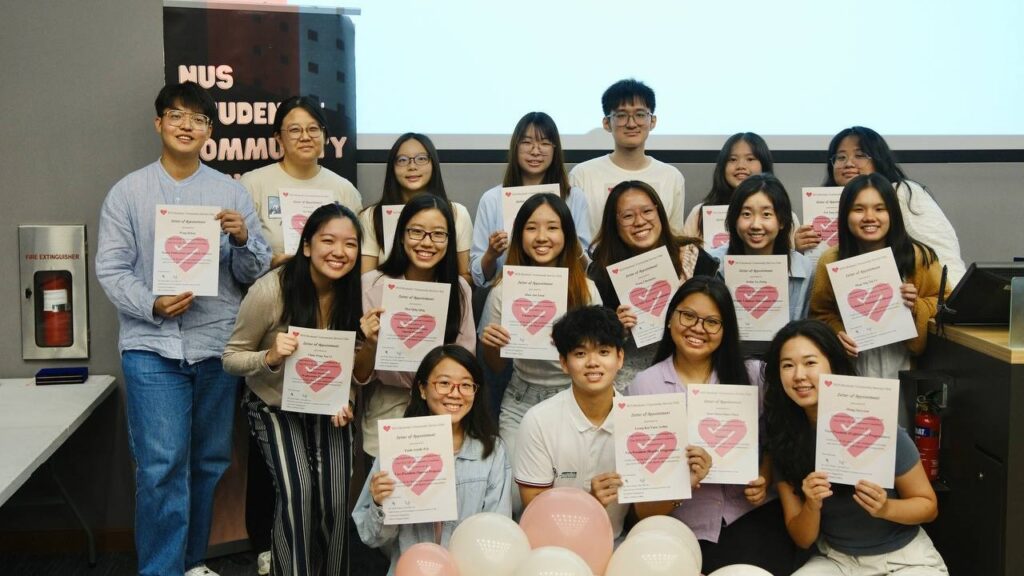
For those considering joining NUS CSC, Dewi encourages them to embrace the experience with an open mind and a willingness to learn. "It's all about stepping out of your comfort zone and discovering the impact you can make," she says, inviting new volunteers to share in the transformative power of community service.
Lim Si En: Painting lives, one home at a time

Like Dewi, Lim Si En, a Year 3 student at the NUS Faculty of Arts and Social Sciences (FASS), began his volunteering journey in junior college, tutoring primary school students and volunteering his time at national events like the National Day Parade. His passion for service led him to join NUS CSC in his first year at NUS. "Volunteering called out to me more than other CCAs," he recalled, highlighting the breadth and accessibility of projects that resonate with his desire to help others.
In his second year, Si En took on the role of Project Director for NUS CSC's annual Paint-A-Home initiative, pouring his heart into every detail of the six-month-long project, from recruiting committee members to collaborating with partner organisations. "Seeing our labour pay off was incredibly fulfilling," he says, reflecting on the tangible improvements made in the homes they painted.

For Si En, the initiative was more than just applying a fresh coat of paint; it was about building relationships with community members to understand their needs and preferences, ensuring that his team's work truly reflected the desires of those they served.
"The initial visit helped break the ice and build rapport," he explained. This rapport was crucial, as many of the community members they assisted were elderly or from low-income families, facing various challenges. As Si En and most of his team members had no prior experience with painting, they contacted an organisation for painting lessons. The team also held a practice run, painting the multipurpose hall at the PERTAPIS Centre for Women and Girls, which kindly offered them use of the space for a trial session.
"Once we finished painting, the visible improvement felt great. We knew we made a difference," he shared, acknowledging that their work wasn't perfect but was heartfelt and impactful.
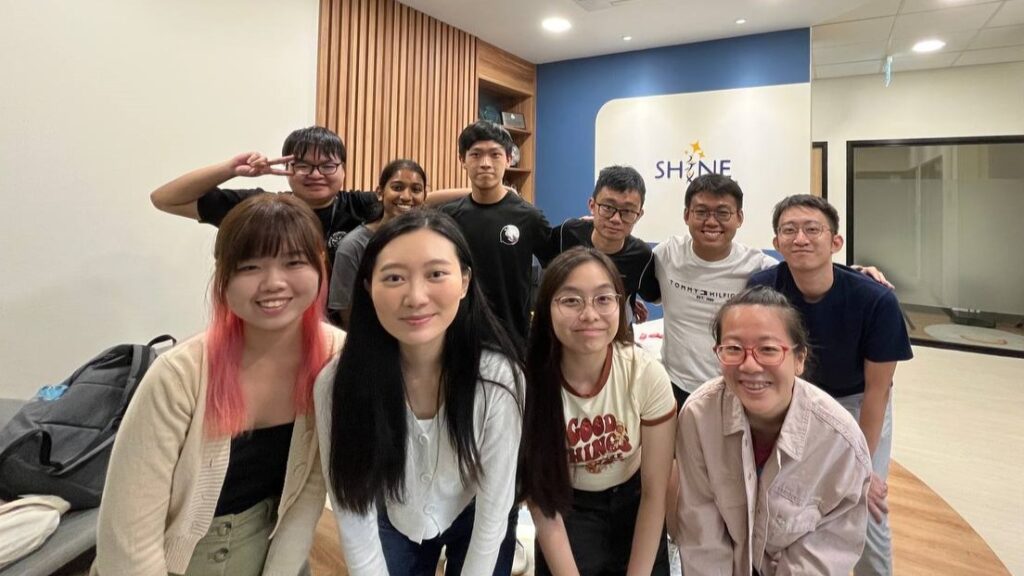
Si En's commitment to the community extends beyond NUS CSC. As a Volunteer Welfare Officer with the Ministry of Social and Family Development since 2023, he conducts check-ins with families at risk of child neglect. "It's an eye-opening experience," he admits. "Even as I help others, I learn so much about the challenges they face."
Hope Sng Xin Le: A heart for service

Taking over the reins from Si En at Clementi Youth Sparks this semester is Hope Sng Xin Le, a Year 2 NUS FASS student who embodies the spirit of service and compassion. Specialising in Social Work and Political Science, Hope's journey into the realm of social service is deeply rooted in her own experiences and the values instilled in her by her family.
Growing up, Hope faced some challenges in her childhood. "My grandparents helped me through that tough time," she recalled, citing this early experience as the spark that ignited her passion for social work.
Another source of inspiration was a documentary that highlighted how exposure to domestic violence can ripple through generations. "It's important to break the cycle of violence," she remarked.
Hope's academic pursuits complement her passion. Studying Political Science gives her insight into governmental structures and resource allocation, while her Social Work studies provide a ground-level perspective on societal issues. "Social work is where my calling is," she says, expressing a desire to join Child or Adult Protective Services upon graduation to safeguard vulnerable individuals and families.
Hope's commitment to volunteering blossomed at NUS, where she joined NUS CSC in her first year. At Ethelontêr, the NUS CSC's orientation camp for incoming NUS students, she was introduced to various volunteer opportunities, including Havenue, a programme supporting individuals with life-limiting illnesses. "Havenue is my happy place," she states with warmth, volunteering there two to three times a month.
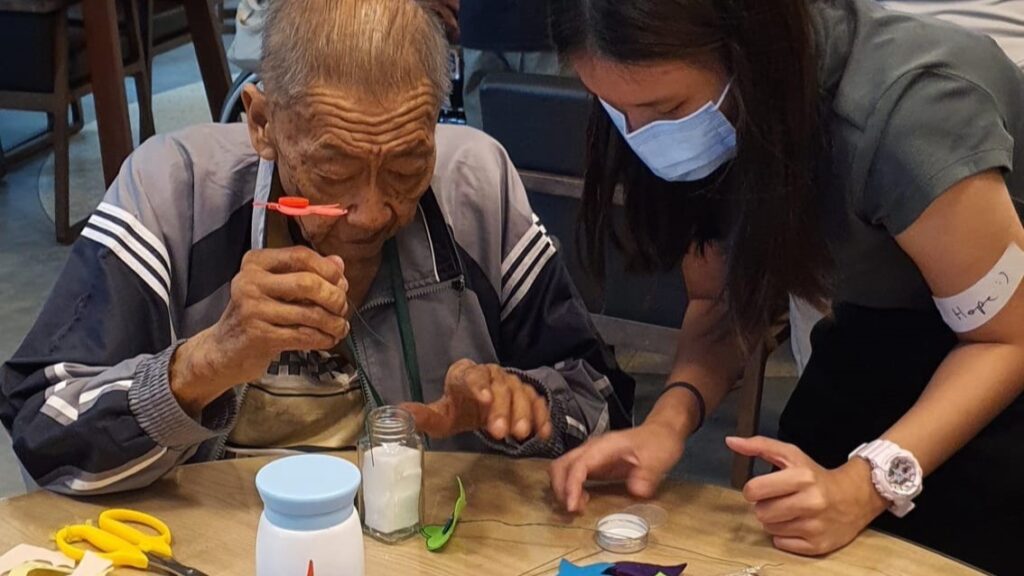
Her work at Havenue holds a profound significance for her. Engaging with the elderly patients has reshaped her perspective on life and death. One particularly poignant memory is of Uncle Chew, a vibrant 90-year-old she befriended during his last days. His passing, along with that of another patient, reminded her of life's fragility and the importance of cherishing every moment. "These experiences have shown me how precious life is," she reflects, prompting her to be more expressive of her love and appreciation for those around her.
In Academic Year 2023/2024, Hope served the highest number of volunteer hours among all NUS CSC volunteers, staggering her time between seven projects throughout the year. Pulling off the 2024 edition of Ethelontêr as Assistant Project Director is something she is particularly proud of and she expressed her deep appreciation for her fellow organising committee members for being a strong support system during the five-month project where things were 'fast and furious'.
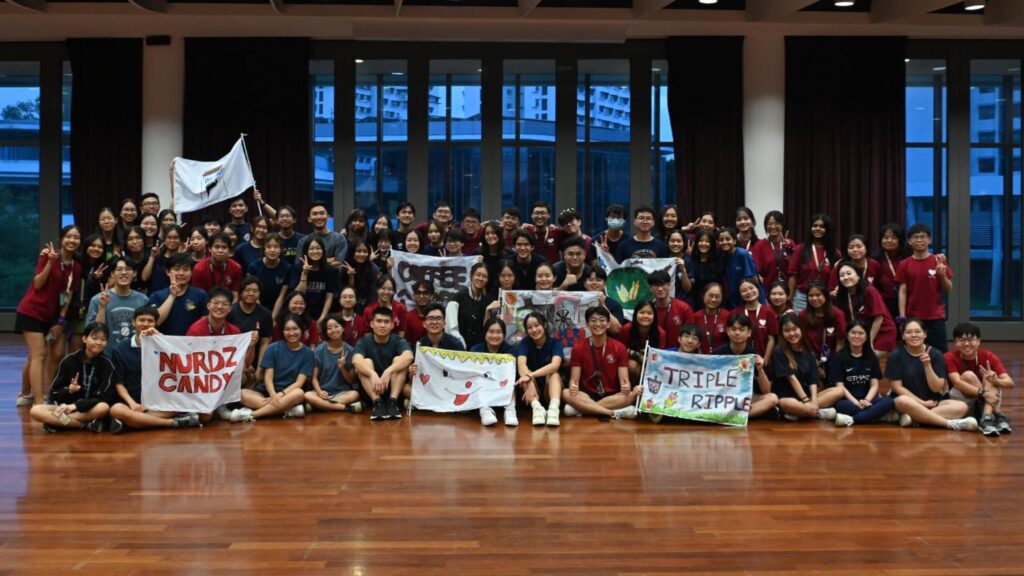
"Prior to university, I thought of volunteering as something that was part of the school requirements. But over the past year, I realised my deeper calling to serve the community. It has strengthened my desire to pursue social work as a major and has been a source of joy and meaning in my life," said Hope.
This story first appeared on NUSnews on 12 November 2024.
Positioning Singapore for a low-carbon and climate-impaired world: Ravi Menon, Singapore’s first climate action ambassador
IN BRIEF | 10 min read
- Although the world is falling short of its climate goals, Mr Menon believes that Singapore is well placed to drive national and regional decarbonisation efforts.
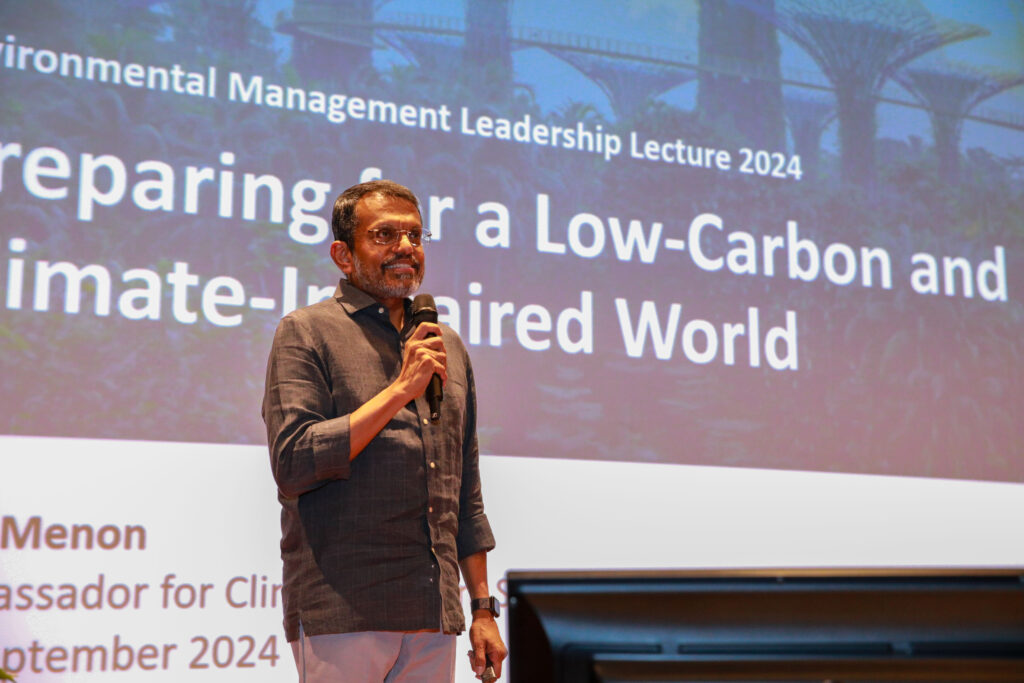
Singapore is prepared to facilitate Asia's transition to a low-carbon future. But Singapore cannot do this alone, it will work with like-minded partners. This was a point underscored by Mr Ravi Menon (NUS Economics '87), Singapore's first Ambassador for Climate Action and member of NUS Board of Trustees, at the inaugural NUS Environmental Management Leadership Lecture (EMLL), on 14 September 2024.
Highlighting the urgency of preparing for a climate-impaired world, Mr Menon noted that climate-related disasters in 2022 affected over 52 million people and led to US$36 billion worth of damages.
At the same time, decarbonisation efforts are also on the rise in many countries.
"Global momentum on climate action is picking up because people are beginning to see what is happening," he added, emphasising that the world will continue to face the dual realities of being climate-impaired while striving for low carbon emissions.
Mr Menon addressed over 150 NUS students, alumni, staff and industry partners at the lecture titled "Preparing for a Low-Carbon and Climate-Impaired World" which kickstarted the Highlight edition of this year's NUS Sustainability CONNECT. He is also Chairman of the Glasgow Financial Alliance for Net Zero (GFANZ) Asia-Pacific Advisory Board and a member of the GFANZ Principals Group.
Organised by the NUS School of Continuing and Lifelong Education under the Master of Science (Environmental Management) programme, the annual EMLL series aims to facilitate interdisciplinary discussion about key issues and new developments in environmental management. Themed "Transformative Leadership in Climate Action: Navigating Challenges, Harnessing Innovation", the series explores the role of transformative leadership as the driving force behind successful environmental management efforts, providing insights on how visionary and innovative leaders overcome obstacles and leverage new technologies to create a sustainable future.
Singapore's triple transition to thrive in a low-carbon worldSingapore aims to achieve its long-term net-zero emissions aspiration by 2050, with intermediate targets across sectors as outlined in the Singapore Green Plan 2030. Referring to the changes as "complex and not easy, but necessary", Mr Menon highlighted that the first change is a carbon transition which involves reducing our primary emissions to net-zero across sectors including industry, transport, and households.
Next is the energy transition which entails progressively decarbonising Singapore's electricity grid while ensuring that it remains resilient. This requires striking a balance across energy security, affordability and sustainability. While Singapore's unique geographical constraints make it difficult to harness certain forms of renewable energy, the nation can tap on the "four switches" to progressively decarbonise the grid - namely natural gas, solar, electricity imports from regional power grids, and low-carbon alternatives.
Mr Menon also noted that nuclear energy is another energy source the government has been looking at. However, he cautioned that there must first be public acceptance and adequate safety measures.
Lastly, an economic transition will also be necessary. He urged participants to "grow the green and green the brown", referring to how Singapore must grasp green growth opportunities, transform carbon-intensive sectors, and turn being low-carbon into a competitive advantage.
To prepare for a climate-impaired world, Singapore must not only strive to reduce our emissions but also adapt to the direct impacts of climate change and its potential knock-on effects. Singapore has started implementing various measures to strengthen coastal protection, flood resilience, heat resilience, and food security. The government is also conducting in-depth studies to plan ahead and develop solutions in these areas.
"It will take a whole-of-nation effort," he said. Significant scientific and technological advances will be necessary - which is where universities and academics can contribute - but individuals and communities must do their part too, he added.
Leading the way in transiting to a low-carbon futureClimate action must go beyond our borders, noted Mr Menon, with a nod to the ASEAN Power Grid initiative that is currently underway.
Having a system of cross-border power connections will allow renewable energy from typically remote generation sites to reach population centres across the region. This will spur decarbonisation in the region and enable the free trade of clean energy.
The city state can also drive green efforts in the region through blended finance, where governments invest in climate projects to reduce risk and make it easier for private entities to invest. Under the Financing Asia's Transition Partnerships initiative, Singapore aims to raise US$5 billion with international partners to finance the effort to decarbonise the region.

The lecture was capped by an engaging Question-and-Answer segment that was facilitated by Professor Benjamin Cashore, Li Ka Shing Professor in Public Management and Director at the Institute for Environment and Sustainability.
During the segment, Mr Menon fielded questions about green finance and the need for a just transition in Asia, where countries should not have to forgo development for the sake of decarbonisation.
Noting that climate change is a "classic problem of collective failure", he emphasised the need for collaboration to resolve the issue.
"There isn't going to be one global leader that will solve the climate problem. We should look at where we can seize leadership at various levels," he said. One way to exercise leadership in science and technology is by pivoting resources and capabilities towards developing climate solutions. In finance, financial institutions can exercise leadership through working with clients and customers to channel finances to activities that reduce emissions.
While strong government support is needed, it is only possible if it is supported by the rest of society. Community efforts and collective individual actions can signal demand for greener products and support for decarbonisation. "No one acting alone can solve the problem…we need collective action," he concluded.
This story first appeared on NUSnews on 29 October 2024.
Going the Distance: NUS Athletes Scoop Up Medals and Degrees
IN BRIEF | 10 min read
- No matter the sport, being a competitive athlete is an exhilarating journey that can push you to your emotional, mental, and physical limits. Now, imagine going through all this while studying for a degree. Three student athletes who are graduating from NUS in July 2024 did just that, rising admirably to the challenge of balancing training, schoolwork, and competitions.
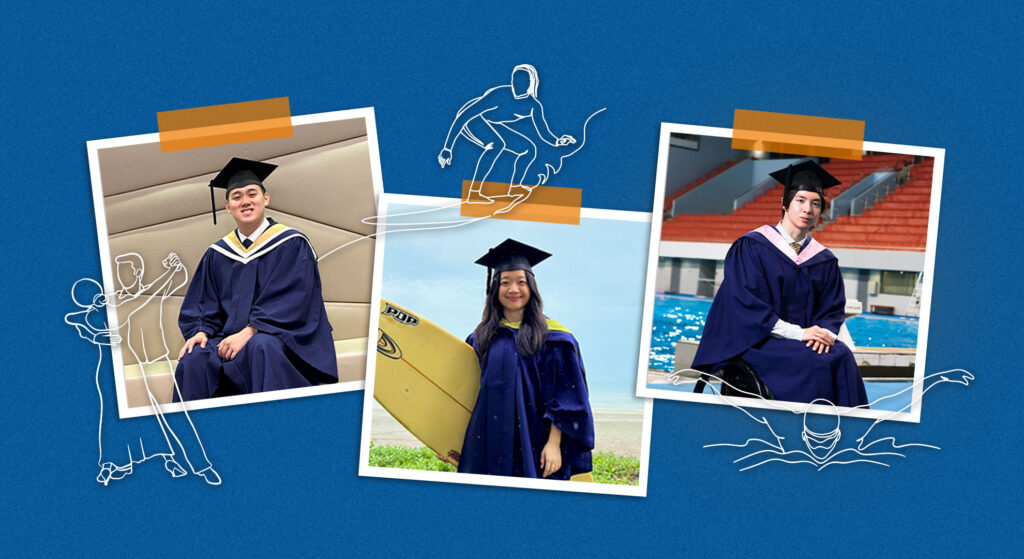
No matter the sport, being a competitive athlete is an exhilarating journey that can push you to your emotional, mental, and physical limits.
Now, imagine going through all this while studying for a degree. Three student athletes who are graduating from NUS in July 2024 did just that, rising admirably to the challenge of balancing training, schoolwork, and competitions.

Dancer Jerome Teo Sze Yong excels at displaying grace under pressure. At NUS, he was a national DanceSport athlete, President of Tembusu College's Students' Committee, and a double-degree major in Electrical Engineering and Philosophy, Politics and Economics (PPE) at the NUS College of Design and Engineering and NUS Faculty of Arts and Social Sciences respectively. In both student life and competitive ballroom dancing, this was his key secret: keeping perfect time.
"I tried to balance everything by knowing my priorities for each day, week and month," said Jerome, 26, noting the importance of time management.
With dates of competitions confirmed months in advance, Jerome could dance to the beat of his schedule. "When am I a student? When am I an athlete? Most of the time, the situation was not binary," he said.
Sometimes he needed to spend more time in the ballroom, while sometimes the lecture notes waiting to be reviewed required his immediate attention.
Juggling a packed schedule, Jerome had to navigate purposefully. When he went for dance practice, he set out to accomplish specific objectives, such as working on smaller sections of a routine, building stamina, or honing fundamental techniques.
When he ran into scheduling issues which simple time management could not solve, NUS swooped in to help. In his freshman year in 2019, Jerome and his dance partner - his younger sister, Rachel Teo Jia Hui, who was also an NUS student - represented Singapore at the Southeast Asian Games. They won a silver and two bronze medals, but Jerome missed his end-of-semester exams.
"I wanted to make sure I could pass the modules and not have to retake them the next semester," he recalled. "NUS was very supportive to make alternative arrangements, like make-up examinations at the start of the next semester."
Jerome is taking a hiatus from DanceSport, and he is now working as a digital design engineer, designing hardware for Internet of Things (IoT) devices, such as smart home devices and smart lighting. "At any point in time, if I want to resume dancing, I can always return to it," he added.
On 17 July 2024, Jerome will be graduating with Bachelor of Engineering (Electrical Engineering) with Honours (Highest Distinction) and on 19 July 2024, he will receive a Bachelor of Arts in Philosophy, Politics and Economics with Honours (Highest Distinction).

The most important thing about sports, said former competitive canoeist Kok Hui Wen, is to enjoy what you do. "As much as training is serious, it should be fun as well. It should fill you up," she remarked.
This was what drove the water sports enthusiast, who studied Nursing with a second major in Public Health, to join NUS Canoeing and also surf in her own time.
Hui Wen, who started competitive canoeing in junior college, credits the sport for developing her resilience and self-assurance. "It gave me the confidence to know that whatever hardships I am facing now, I have what it takes to overcome it," the 23-year-old said.
These qualities proved to be invaluable during her clinical postings as an NUS Nursing student. The first two years of Nursing studies were not easy for Hui Wen as she delved deeper into the complexity of the Nursing profession. The resilience that she developed from canoeing, her trust in her mentors, and the reassurance that she would eventually find her own footing in Nursing helped her navigate the period of uncertainty. "I am sure there's a place in Nursing for me and I could value-add to healthcare in my own special way," she reflected.
Keen to apply her healthcare knowledge to benefit the community, Hui Wen took on the role of Programme Head for Project Barrios, a nursing-led project that focused on providing health education for overseas and local communities. Initiated as an overseas Community Involvement Project, Hui Wen and her team restructured the project to serve underserved local communities during the COVID-19 period. They ran education programmes for the elderly, migrant workers and underprivileged children to raise awareness of common health ailments specific to each group and educate them on the prevention, early detection and community resources to mitigate these health risks.
The Nursing programme's hybrid learning approach, with a mix of online tutorials and lectures as well as in-person classes, made it easier for her to fit canoeing and surfing into her schedule. During the semester, Hui Wen would sometimes travel to Indonesia, Malaysia, the Philippines, and Sri Lanka to ride the waves.
She has retired from canoeing, but still does recreational water sports such as surfing. For now, she is looking forward to starting her new job as a nurse at the National University Hospital.
Hui Wen will be graduating on 14 July 2024 with a Bachelor of Science (Nursing) with Honours (Highest Distinction).
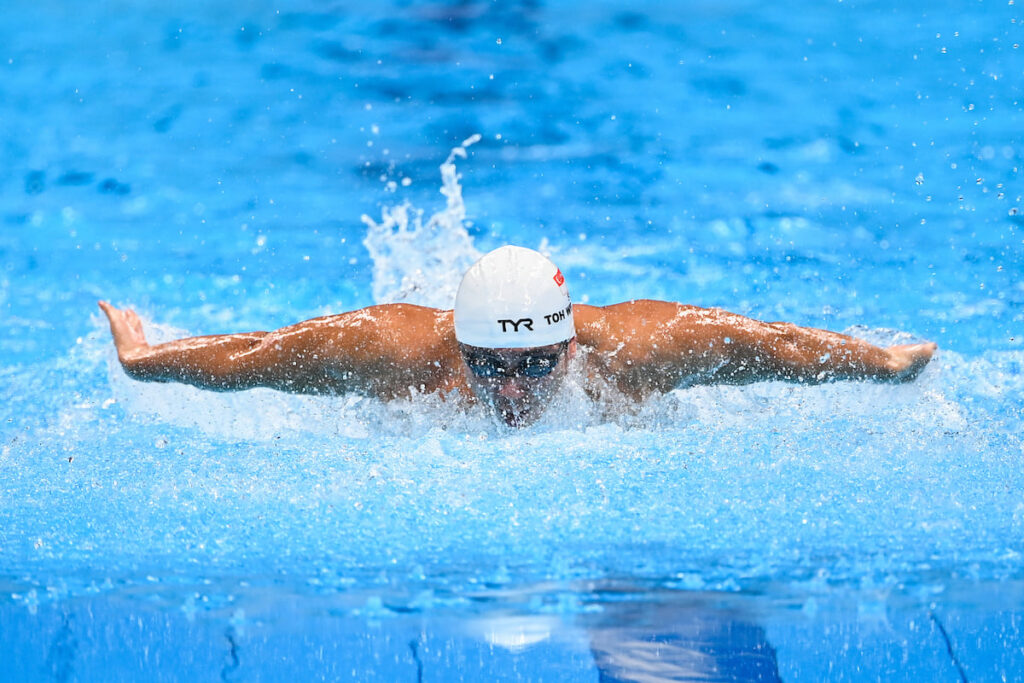
National para-swimmer Toh Wei Soong pulled off a stunning victory at the 2023 Hangzhou Asian Para Games, scooping up gold medals in backstroke, freestyle, and butterfly. But the competitions were not his only race against the clock.
Then a PPE undergraduate at NUS, he had spent the previous few years juggling classes and assignments on top of a gruelling training schedule for international competitions, including the Tokyo 2020 Summer Paralympic Games.
It was not easy. Wei Soong - who has Transverse Myelitis, a rare neurological condition affecting his lower spinal cord - had to take Leave of Absence to make time for swimming, and he also chose classes that best suited his training and competition schedule.
His passion for philosophy and interest in PPE since secondary school were what kept him going, said Wei Soong, who penned an Honours thesis on "A Wittgensteinian Solution to Vagueness", and helped set up an undergraduate student academic journal for Philosophy - The Red Stone - during his time as Deputy Director for Publications for the Republic, a PPE undergraduate journal.
"I am very glad these journals are continuing to serve our communities, and giving students opportunities to learn how the publishing system works and to commemorate the best student essays from each semester," noted the 25-year-old graduate of NUS Faculty of Arts and Social Sciences and NUS College.
As a PPE student, Wei Soong enjoyed interacting with his peers on complex and broad-ranging topics during class. "Overall, I did have a lot of fun in my undergraduate degree and a lot of fun in learning the subjects," he mused.
After more than a decade as a student athlete, Wei Soong, who is gearing up for the Paris 2024 Summer Paralympic Games, will be focusing on swimming and savouring life as a full-time athlete.
On 19 July 2024, Wei Soong will be graduating with a Bachelor of Arts in Philosophy, Politics and Economics with Honours (Merit).
This story first appeared in NUSNews on 12 July 2024, as part of a series covering Commencement 2024, and celebrating the achievements of NUS graduates from the Class of 2024.
NUS Receives Philanthropic Gift to Advance Healthy Longevity Initiatives in the Health District @ Queenstown
IN BRIEF | 10 min read
- The newly established Gloria Lee Woo Award will start with supporting initiatives focused on mental and social wellbeing and Malay female caregivers.
The National University of Singapore (NUS) has received a gift from the family of the late Mrs Gloria Lee Woo, founder of stock brokerage Kim Eng Holdings, towards the Health District @ Queenstown (HD@QT).
HD@QT is a multi-stakeholder, whole-of-society endeavour spearheaded by NUS, the National University Health System and the Housing & Development Board, to increase healthy longevity, enable purposeful longevity, promote intergenerational bonding, and support a community of all ages.
The gift was made by Mr Douglas Ooi, Mr Ronald Ooi, and Ms Carole Ooi to honour their late mother, Mrs Gloria Lee Woo. In appreciation of their generosity, NUS has established the Gloria Lee Woo Award, which was formalised at an appreciation luncheon held on 12 June 2024. The Award aims to provide important seed funding for research projects in HD@QT.

The first Awards will support three projects in the HD@QT: the development of an intergenerational programme to improve mental and social health in adolescents, adults in the sandwich generation, and older adults; to understand the challenges of Malay women caregivers in the sandwich generation and from low-income families as well as the factors that impede their access to health services and support; and investigating the impact of labour market engagement on retirees' socioeconomic, physical, and mental well-being.
Professor Liu Bin, NUS Deputy President (Research and Technology), said, "We are deeply grateful for the philanthropic gift from Mr Douglas Ooi, Mr Ronald Ooi, and Ms Carole Ooi. Their gesture is a significant boost for the forward-thinking projects undertaken by the Health District @ Queenstown. This support enables us to seed fund new research endeavours which can potentially attract more competitive grants and be scaled for greater future impact."
"Our mother was deeply committed to the wellbeing of others. In her memory, we chose to support the impactful initiatives at the Health District @ Queenstown. This gift is our way of giving back to Singapore and ensuring her legacy lives on and continues to benefit future generations, and we hope to be able to support this meaningful project at Queenstown in years to come," shared Mr Douglas Ooi.
"This gift by Mr Douglas Ooi, Mr Ronald Ooi, and Ms Carole Ooi is testament to the generosity of Singaporeans in developing programmes to enhance the lives of the residents of Singapore. We are honoured by the trust they have placed in the vision of the Health District @ Queenstown in shaping a better Singapore," commented Professor John Wong, Executive Director of the NUS Centre for Population Health, and Co-Chair of the HD@QT Steering Committee.
Intergenerational programme for wellness building
Assistant Professor Cyrus Ho, who holds a joint appointment in the Department of Psychological Medicine at the NUS Yong Loo Lin School of Medicine and the Department of Psychological Medicine at the National University Hospital, will be leading the development of an intergenerational programme to address the underlying psychological and emotional factors contributing to mental resilience in individuals across various life stages - older persons, adolescents, and adults.
During the 12-week programme, 30 adolescents will be paired up with 30 older persons and 30 adults in the sandwich generation to engage in various activities such as arts and crafts, storytelling, park exercises and gardening. By assessing the effectiveness of the different approaches, Asst Prof Ho and his multidisciplinary team hope to develop effective interventions to improve the mental and social health of the participants by targeting areas such as psycho-social behaviour, lifestyle, help-seeking behaviour, and economical assessment.
The project, which will be conducted in collaboration with schools, elder care centres and senior activity centres, will commence in July 2024 and is expected to be completed by June 2025.
Health needs and access to services among sandwich generation Malay women caregivers from low-income families
Led by Associate Professor Noor Aisha Abdul Rahman from the Social Service Research Centre and the Department of Malay Studies at the NUS Faculty of Arts and Social Sciences, this pilot study seeks to understand the challenges and needs of Malay female caregivers from low-income families who are in the sandwich generation.
By understanding their needs and the factors that impede their access to health and support services, early interventions can be designed to facilitate their participation in health services and programmes to mitigate their own health challenges and improve their wellbeing. This, in turn, will help enhance the quality of their caregiving for their elderly care recipients.
This qualitative study will involve 40 Malay female caregivers between 40 and 60 years old who are living in Queenstown and social service providers with relevant knowledge and experience working with this generation of caregivers. The study is expected to commence in June 2024 and be completed by December 2025.
Healthy and fulfilling ageing through micro jobs
Research shows that retirement or separation from the labour market may influence mental and physical health. Assistant Professor Shan Xiaoyue from the Department of Economics at the NUS Faculty of Arts and Social Sciences, together with Professor Uri Gneezy, visiting professor at the NUS Yong Loo Lin School of Medicine, will be conducting a study to investigate the impact of labour market engagement - such as taking on part-time work - on the senior population's socioeconomic, physical, and mental wellbeing after retirement.
About 250 participants who are above the age of 50 and living in Queenstown will be recruited for this project, which will commence in July 2024. Over a 12-week period, the project will provide participants with part-time work at different intensities and monitor their wellbeing along various dimensions, such as physical health, mental health, cognition, sleep quality, happiness levels, quality of relationships with family, and sense of financial security. A follow-up survey will be conducted about three months after the end of the study.
This project will provide an understanding of the short-term and long-term impact of micro jobs on the well-being of older persons.

A healthy town for all
These three programmes, which will involve residents in HD@QT as well as stakeholders from across society, contribute towards the development of effective, scalable and sustainable interventions to achieve the goals of HD@QT. Sustainable and successful implementation of these programmes in HD@QT could lead to similar programmes being adopted across Singapore.
This story first appeared in NUSNews on 12 June 2024.
The returns to an additional year of education for college graduates

NUS Faculty of Arts and Social Sciences alumni honoured for contributions to public service, education, literature and the corporate sector
IN BRIEF | 10 min read
- The four awardees were Mr Bilahari Kausikan, an iconic veteran of diplomacy; Professor Paul Cheung, a highly regarded statistician; Ms Suchen Christine Lim, a critically acclaimed writer; and Mr Tan Yam Pin, a prominent businessman and corporate heavyweight.
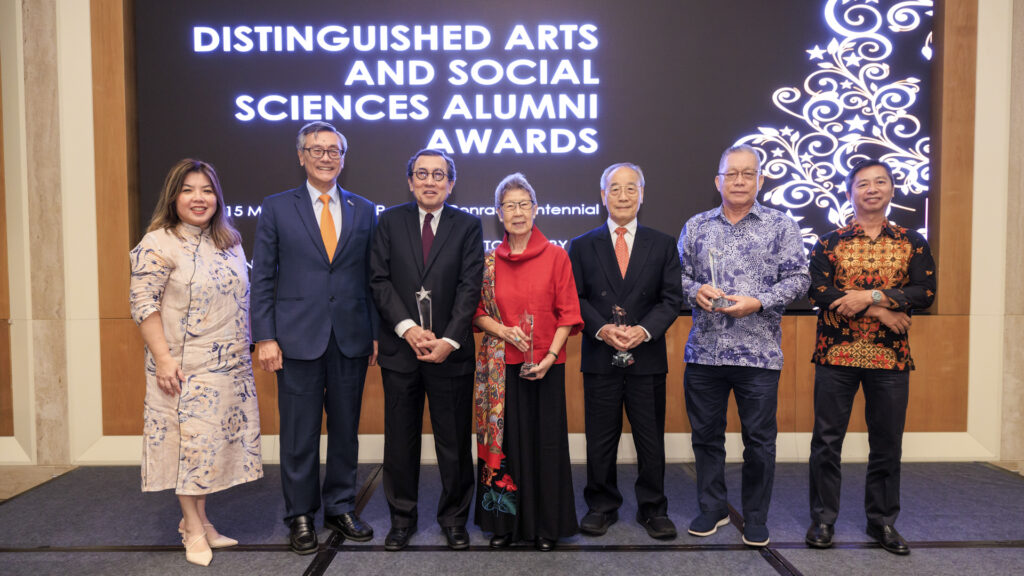
The NUS Faculty of Arts and Social Sciences (FASS) paid tribute on 15 May 2024 to four eminent alumni for their outstanding contributions towards nation-building, growth of the university, the promotion of the arts and social sciences, and impact in the private sector. The four were Mr Bilahari Kausikan, an iconic veteran of diplomacy; Professor Paul Cheung, a highly regarded statistician; Ms Suchen Christine Lim, a critically acclaimed writer; and Mr Tan Yam Pin, a prominent businessman and corporate heavyweight.
Established in 2015, the Distinguished Arts and Social Sciences Alumni Award lauds notable FASS alumni who have made exemplary contributions to the nation, community, University, or the faculty, and who have dedicated themselves to the betterment and promotion of the arts and social sciences.
The trailblazers who inspire young generations of FASS students and alumni
In his speech, FASS Dean Professor Lionel Lim highlighted how each of the recipients has pursued their passions with tenacity and purpose. They have made an incredible impact in their respective fields, and have done so "with integrity, compassion, and a dedication to excellence," he said.
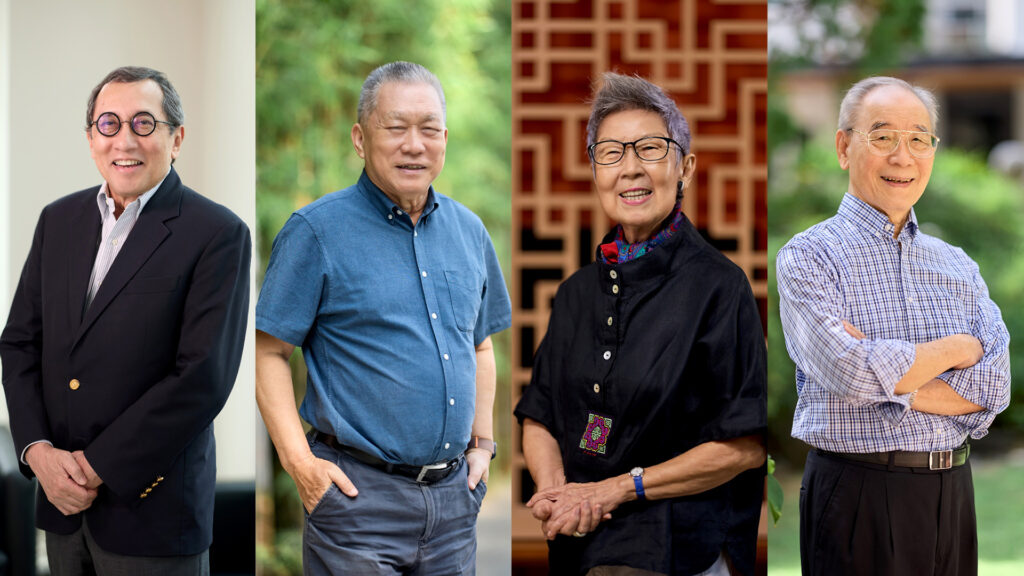
A diplomat for over three decades, Mr Kausikan has been an influential voice in shaping Singapore's positions on regional and international issues. His 37 years in the Ministry of Foreign Affairs (MFA) saw him serving in a variety of appointments at home and abroad, including as Ambassador to the Russian Federation, Permanent Representative to the United Nations (UN) in New York, and notably as the Permanent Secretary of the MFA from 2010 to 2013. He is actively engaged in ASEAN forums, facilitating dialogue, cooperation, and conflict resolution among member states. His articles and speeches, which provide thought-provoking analyses of regional issues, have influenced policymakers and scholars alike. He is currently Chairman of the NUS Middle East Institute.
Professor Paul Cheung is Director of the Asia Competitiveness Institute at the NUS Lee Kuan Yew School of Public Policy and is well-known for his pioneering research in the fields of official statistics, social planning, manpower and population. In a previous role as Chief Statistician of Singapore, he transformed the national statistical system - the 2000 Singapore population census was the first in Asia to make full use of population and business registers and the Internet to collect data. As Chief Statistician of the UN from 2004 to 2012, he played a pivotal role in developing the global statistical system and establishing an inter-governmental platform on Global Geospatial Information Management.
A 2023 Cultural Medallion winner, highly accomplished author Ms Suchen Christine Lim's critically acclaimed fiction explores themes of cultural identity, the complexities of history, and Singapore society's diverse cultural and linguistic tensions. Her 1984 debut novel Rice Bowl established her as a significant voice in Singapore's literary scene. Her third novel, Fistful of Colours, was awarded the inaugural Singapore Literature Prize in 1992. Another, The River's Song, was featured in Kirkus Reviews (US) as one of the "100 Best Books of 2015". She was also awarded the Southeast Asian Writers Award in 2012 for her body of work. Keen on fostering the next generation of literary talent, she mentors, teaches and provides platforms for young writers to showcase their work.
Mr Tan Yam Pin is a prominent business leader who built an illustrious career spanning three decades in the corporate world - he led the Cold Storage group of companies in Singapore and Malaysia; the Fraser & Neave group of companies, including Centrepoint Properties Ltd; and the Asia Pacific Breweries Ltd group of companies across Asia. Post-retirement, Mr Tan served on the boards of prominent companies in Singapore. Mr Tan also has a scholarly bent. Before his foray into business, he taught in the Department of Economics under the then University of Singapore's Faculty of Arts. Together with three colleagues, he subsequently established the Department of Business Administration, now known as the NUS Business School.
Congratulating the recipients at the ceremony, NUS President Professor Tan Eng Chye noted that their contributions to Singapore and passion for what they do will inspire many, especially current and future FASS students who will follow in their footsteps and create their own legacies.
He added, "As educators, it is deeply encouraging when we see our graduates achieve success in their endeavours. It reaffirms the transformative power of education, and it inspires us to continually improve how we teach, how our students learn, and how the student life experience can set our graduates up to thrive and contribute positively to society."
More information on the award recipients can be found here.
This story first appeared in NUSNews on 16 May 2024.
Looking to 2024: Singapore Budget – Navigating Present Challenges while Enhancing Long-term Social Inclusivity and Economic Sustainability
IN BRIEF | 5 min read
- Academics from NUS Economics, the Institute of Policy Studies at the Lee Kuan Yew School of Public Policy, and NUS Business School share their insights on the salient objectives and initiatives of Budget 2024.

Since Singapore's early years, the Budget has played a pivotal role in laying out the nation's fiscal framework and shaping its economic trajectory. Following independence, its focus was on employment and infrastructure. In the 1980s and 1990s, as the economy accelerated and matured, the focus shifted towards high-value manufacturing and the growth of the services sector.
In more recent times, the Government has signalled increased emphasis on aspects such as the social compact, inclusiveness, social mobility and equality, while balancing the exigent demands of a more uncertain global political and economic environment, and a stepped-up pace of technological disruption and transformation. Sustainability has also emerged as a strong theme.
Budget Statement 2024 was delivered by Deputy Prime Minister and Minister for Finance Mr Lawrence Wong in Parliament on 16 Feb 2024. What are the key themes that have emerged and how will the measures impact Singapore's future directions, as well as address the everyday concerns of Singaporeans?
Academics from the NUS Faculty of Arts and Social Sciences, the Institute of Policy Studies at the Lee Kuan Yew School of Public Policy, and NUS Business School share their insights on the salient objectives and initiatives of Budget 2024 below.
Towards a Cohesive and Inclusive Society
Dr Kelvin Seah, Senior Lecturer at NUS Economics, believes that the Budget continues to build on efforts to shape an inclusive Singapore through a multi-pronged approach that addresses an array of issues through varied initiatives.
"This year's Budget is a special one because it bears the fruit of the Forward Singapore exercise - a government endeavour to engage people from all walks of life in collectively shaping Singapore's future progress. It seeks to unite our people amidst a more uncertain and fragmented international environment. Beyond addressing the immediate cost-of-living concerns and longer-term strategies to raise the productivity of workers and businesses, what stands out to me is its multi-pronged effort to build a fairer and more inclusive Singapore, through initiatives such as the ITE Progression Award to uplift the capabilities and career prospects of ITE graduates, the ComLink + Progress Packages to provide customised support for lower-income families, moves to alleviate the cost pressures on families with children with special needs, and financial help for workers who find themselves involuntarily unemployed. Though the measures are well-intended, there will be challenges - to be successful, many of them will require the buy-in of stakeholders. Clarity of public communication is therefore key. A case in point is the decision to close the CPF Special Accounts for those aged 55 and older. Greater public communication and education through easy-to-comprehend examples should be given, so that the public, particularly the elderly, understand the rationale for the move and how exactly it will affect them."
A Balancing Act
Dr Clara Lee, Senior Research Fellow at the Institute of Policy Studies, observed that the Budget seeks to balance near-term and long-term goals, such as assisting households - especially those at the lower-income levels - with more support, while raising overall long-term labour competitiveness and mobility through skills upgrading.
"Measures to alleviate rising living costs are evident in Budget 2024, with a S$1.9 billion enhancement to the Assurance Package providing cash, rebates and vouchers that will particularly benefit low- and middle-income households. However, it is relatively modest compared to the S$3 billion boost in Budget 2023. This indicates the start of a possible transition away from substantial financial assistance that peaked during the pandemic years, as fiscal prudence remains a priority of policymakers in managing the nation's economic resources.
Complementing near-term financial relief, the Budget also focuses on building long-term economic resilience by expanding SkillsFuture and supporting the involuntarily unemployed. Possessing relevant skillsets reduces one's vulnerability to labour market disruptions, but beyond cost concerns that can be addressed through more subsidies and allowances, other barriers that remain will limit its utility, including the lack of time and support from employers and perceived opportunity costs. Initiatives to help the involuntarily unemployed are new to Singapore, and while details are scarce, the government's intention to foster personal responsibility and a strong work ethic suggests the likelihood of relatively strict conditions, which may encompass active job searches and/or participation in upskilling programmes."
Immediate Challenges, Long-term Goals
Dr Xu Le, a lecturer at NUS Business School, notes that the Budget seeks to balance the needs of households and businesses in addressing near-term pressures such as inflation, while pressing ahead with efforts to achieve sustainable economic growth, in particular, through a high-skills labour force strongly supported by a robust SkillsFuture ecosystem.
"The Budget 2024 prioritises addressing the immediate challenges encountered by Singaporean households and firms. A comprehensive package, comprising a special cash payment, additional Community Development Council (CDC) vouchers, and household rebates, is being disbursed to financially support Singaporeans in coping with the escalating cost of living amidst a high-inflation environment. In addition, it provides S$1.3 billion in support to companies to manage the rising costs of operation and raw materials.
This initiative aims to alleviate concerns about the cost of living and running a business, as well as offer robust assistance to citizens and firms during periods of global economic headwinds, ongoing inflationary pressures, and sustained high interest rates.
Furthermore, the budget underscored the importance of redistributing social wealth equitably, providing increased support to lower-income families and larger households with seniors and children. This aids in narrowing the wealth disparity between the affluent and the disadvantaged, thereby fostering societal stability and prosperity.
In Budget 2024, there is a strong emphasis on the importance of pursuing stable and sustainable economic growth. This serves as the cornerstone for creating quality jobs and maintaining a high standard of living for citizens. Economic growth will primarily be driven by two key channels. Firstly, a series of new policies will be introduced to promote high-quality investment, bolster our capabilities in high-tech sectors, and support the development of local enterprises. Secondly, the government will significantly enhance the SkillsFuture ecosystem. This entails allocating more government spending towards enhancing labour productivity by encouraging mid-career workers to pursue new diplomas and facilitating upskilling efforts for young ITE graduates. Consequently, this will enable more workers to acquire higher skills, thus enhancing their competitiveness in the labour market."
This story first appeared in NUSNews on 27 March 2024, as part of the 'Looking to 2024' series, where NUS experts weigh in on what readers can expect in the new year.
NUS Open House 2024 Attracts more than 8.4m visitors as Screens and Campuses Buzz with Action
IN BRIEF | 10 min read
- Open House 2024 returned to an enthusiastic reception as visitors turned up in force to experience one of NUS' largest events of the year. Held in a hybrid format from 2 to 9 March 2024 and pulled together by the efforts of 2,674 faculty, staff, students and alumni, the event attracted more than 8.4 million visitors - up from 7.7 million in 2023 - as they explored the comprehensive showcase of what NUS has to offer both online and in-person.
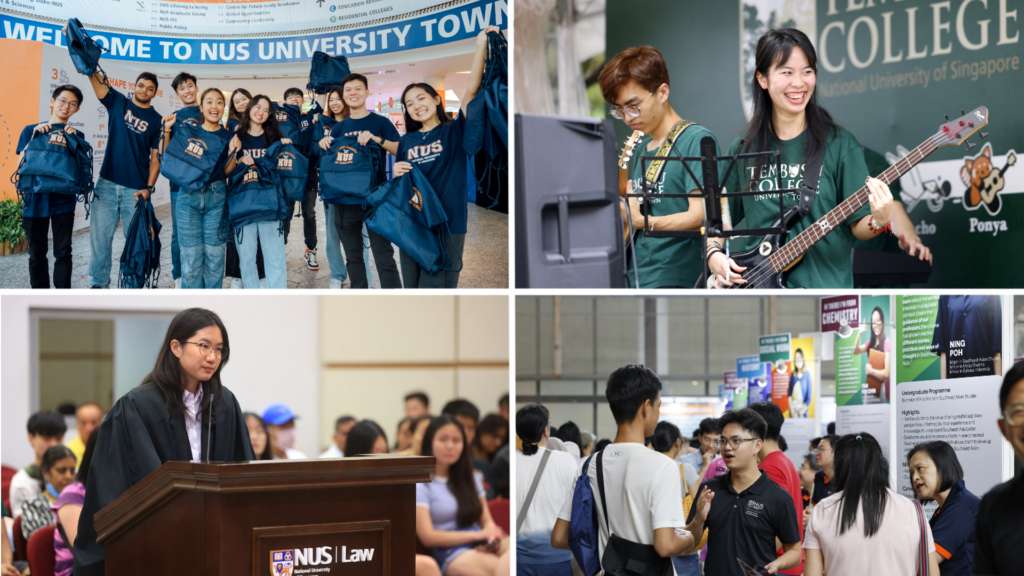
Open House 2024 returned to an enthusiastic reception as visitors turned up in force to experience one of NUS' largest events of the year. Held in a hybrid format from 2 to 9 March 2024 and pulled together by the efforts of 2,674 faculty, staff, students and alumni, the event attracted more than 8.4 million visitors - up from 7.7 million in 2023 - as they explored the comprehensive showcase of what NUS has to offer both online and in-person.
Kicking off the eight action-packed days was a slate of engaging virtual talks, webinars, and social media sessions. NUS Business School put together an informative line-up of virtual sessions featuring an Ask-Me-Anything session with its Vice Dean Associate Prof Chng Chee Kiong, an overview of the various majors with insights from faculty and students alike, and a glimpse of its vibrant student life via the Bizad Club.
At the online showcase by NUS Computing, prospective students joined a Discord live chat to get their questions answered by professors and student ambassadors on topics such as the differences between the school's five degree programmes. During a Zoom session by NUS Global, they heard about the University's exciting study abroad opportunities from students who embarked on exchange programmes with universities in Scotland, Canada, Switzerland and Hong Kong.
The on-campus segment on 9 March saw crowds throng the programme booths, talks, special classes, campus tours, student life performances and residential venues, with students gaining perspectives into all aspects of a world-class education at NUS, from the comprehensive curricula and career prospects to student life and global opportunities.
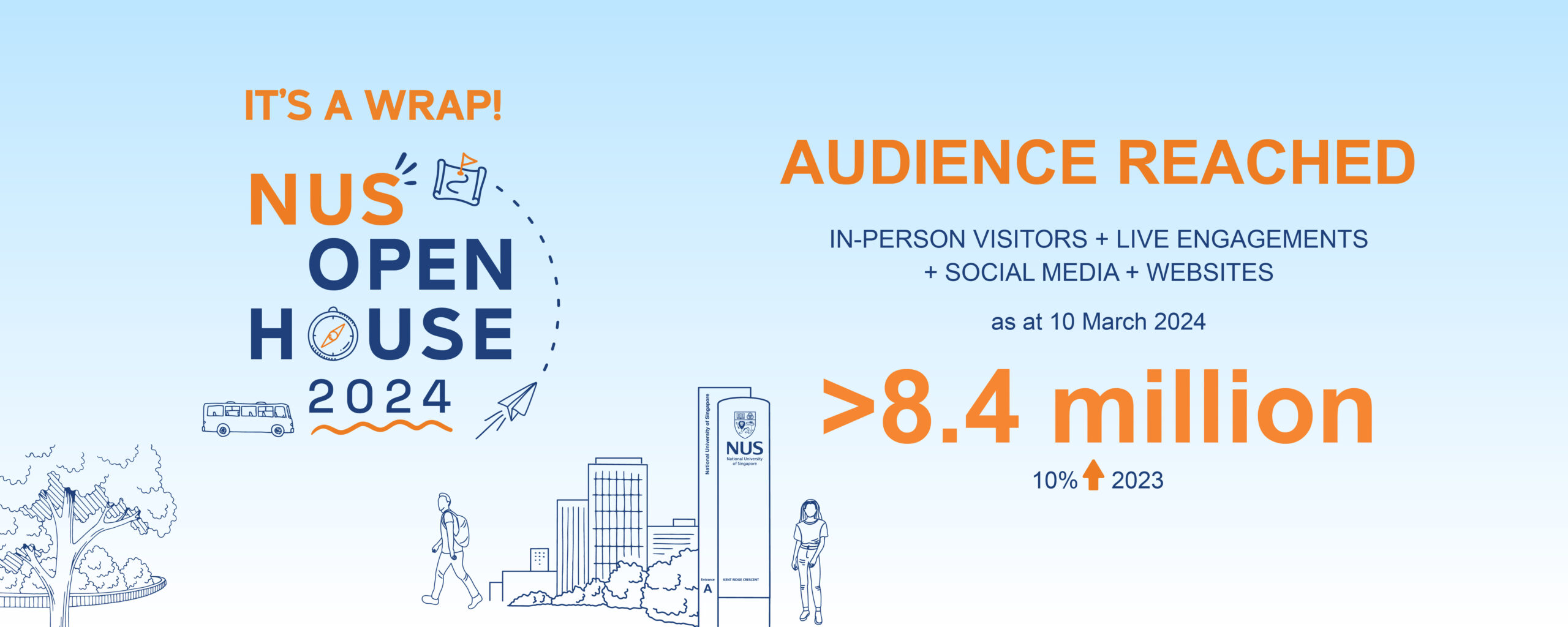
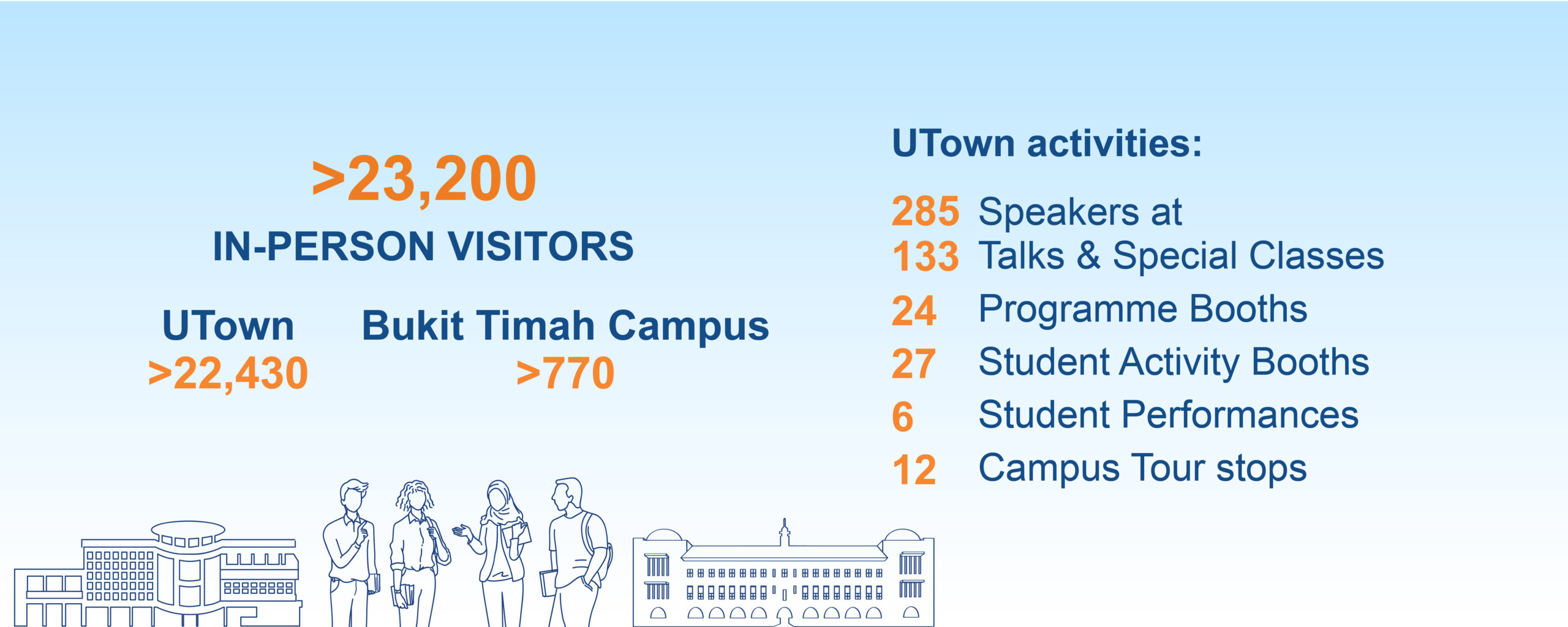


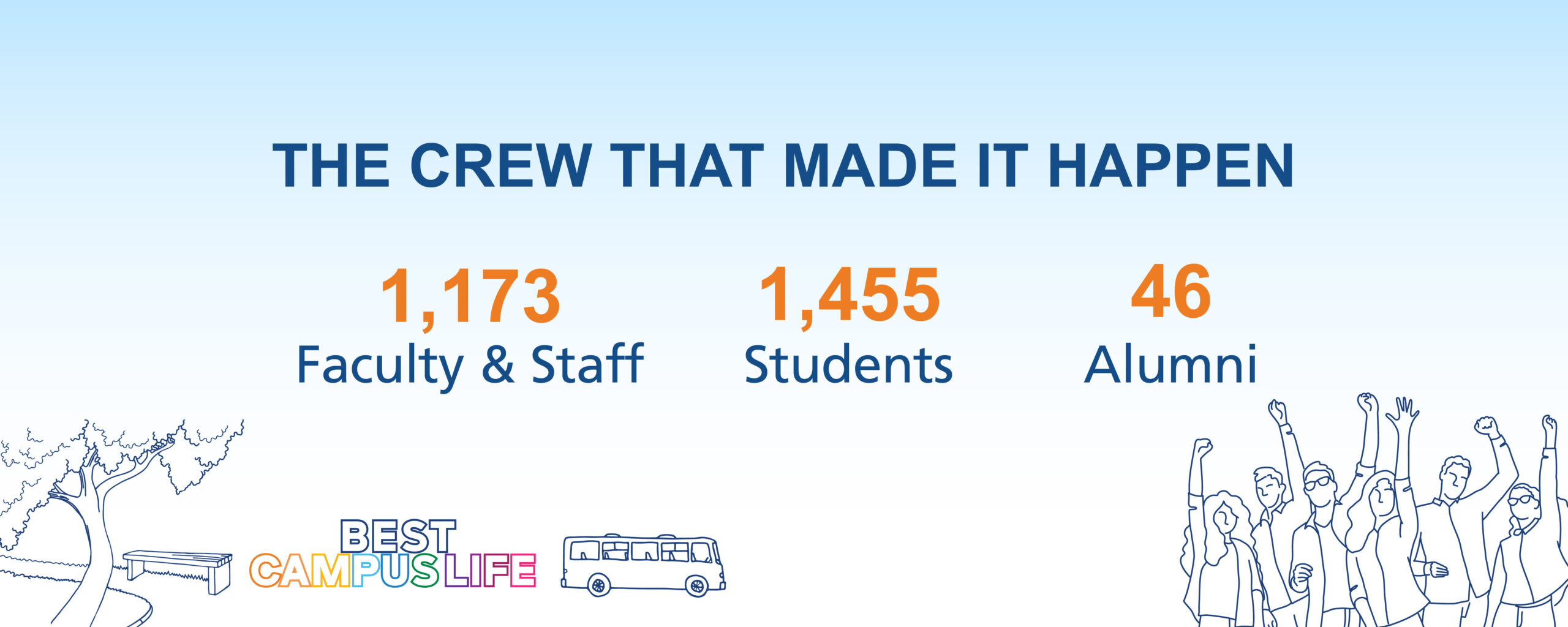 "The NUS Open House was an absolute delight! It provided me with invaluable insights into campus life and academic offerings," said prospective student Sim Wen Hao, who is currently in national service. "From informative discussions to first-hand testimonials, every interaction left me feeling more confident about my potential home away from home."
"The NUS Open House was an absolute delight! It provided me with invaluable insights into campus life and academic offerings," said prospective student Sim Wen Hao, who is currently in national service. "From informative discussions to first-hand testimonials, every interaction left me feeling more confident about my potential home away from home."

Charting pathways in humanities and sciences
The College of Humanities and Sciences (CHS), comprising the Faculty of Arts and Social Sciences (FASS) and the Faculty of Science (FOS), showcased how it is equipping students with skills to integrate knowledge across these domains and the wide range of programmes they can choose from through a variety of major and minor combinations.
An FASS panel featuring a Geography major, a Political Science major with a minor in Economics, a Philosophy major pursuing a Double Degree, and a Southeast Asian Studies major taking a minor in History dispelled misconceptions about their disciplines while discussing the potential career paths. Another joint talk by Psychology and Social Work on addressing mental health challenges in the 21st century explored how the issue is approached from their respective disciplines.
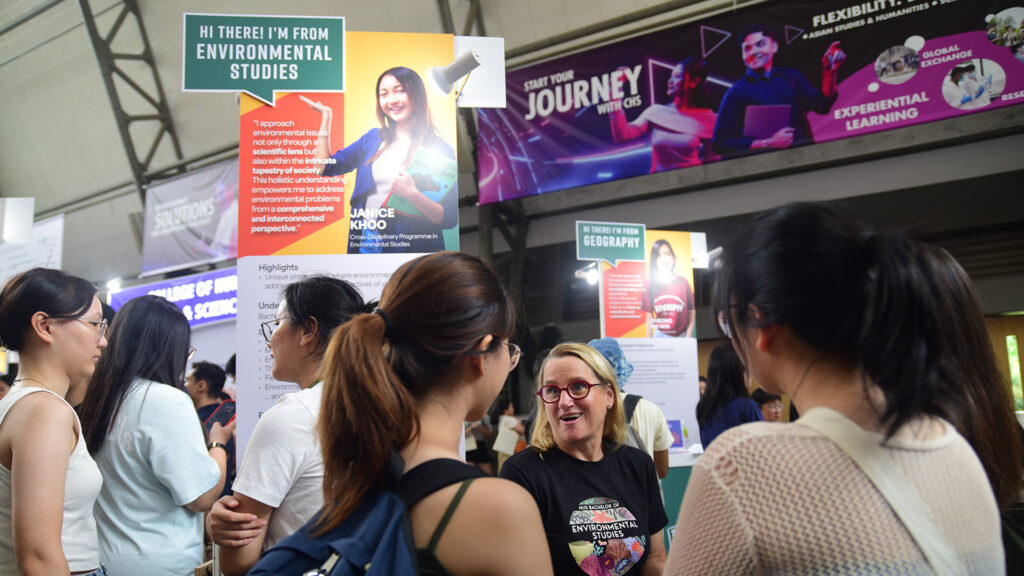
The boom in big data was the focus of the Data Science and Analytics talk that highlighted how the programme offers students industry exposure through real-world projects and internships. Another talk by the Environmental Studies Cross-Disciplinary Programme discussed its mission to develop environmental sustainability advocates keen to derive creative solutions to complex problems, along with its exciting fieldwork opportunities.
Lee Sue Ning, a Hwa Chong graduate who is interested in applying to Psychology, said of the FASS student panel: "The four students were from courses that I would never have considered. Hearing their experiences opened new doors for me, making me consider these courses as possible minors that I can take," she added.
Intersection of design and engineering
The talk on Chemical Engineering, Materials Science and Engineering, and Biomedical Engineering, held by the College of Design and Engineering (CDE) gave students valuable insights on the curriculum and disciplines, as well as showcased students' research. In an Ask-Me-Anything panel, the professors also shared about the flexibility of the curriculum, future career prospects, intersections between the various fields of engineering, and their thoughts on the most challenging yet rewarding aspects of taking a degree in Engineering.
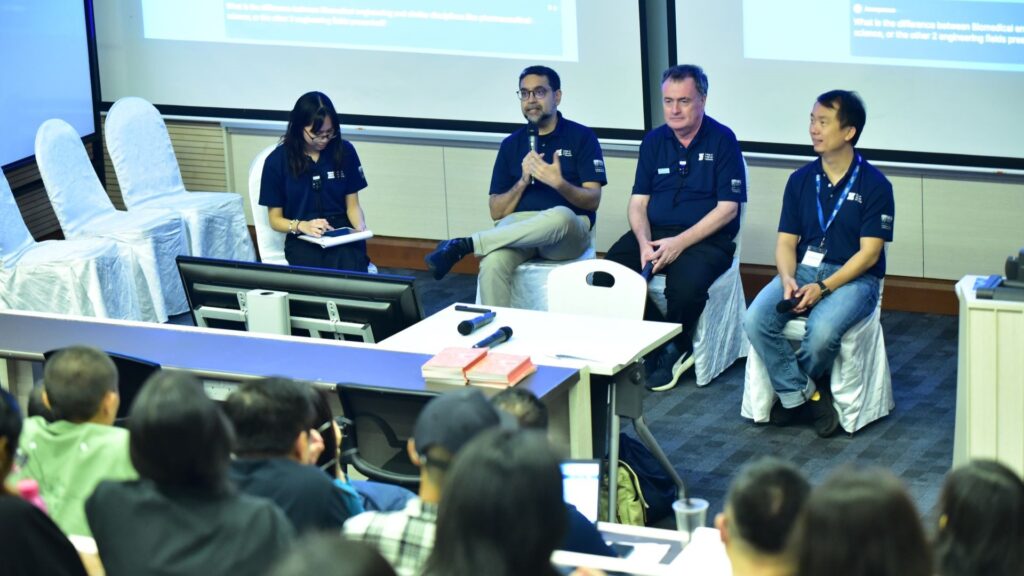
The talk on Architecture, Industrial Design, and Landscape Architecture gave students the inside scoop on how the programmes provide the core foundation, training, skills, and knowledge for students to become the next generation of effective and innovative architects and designers.
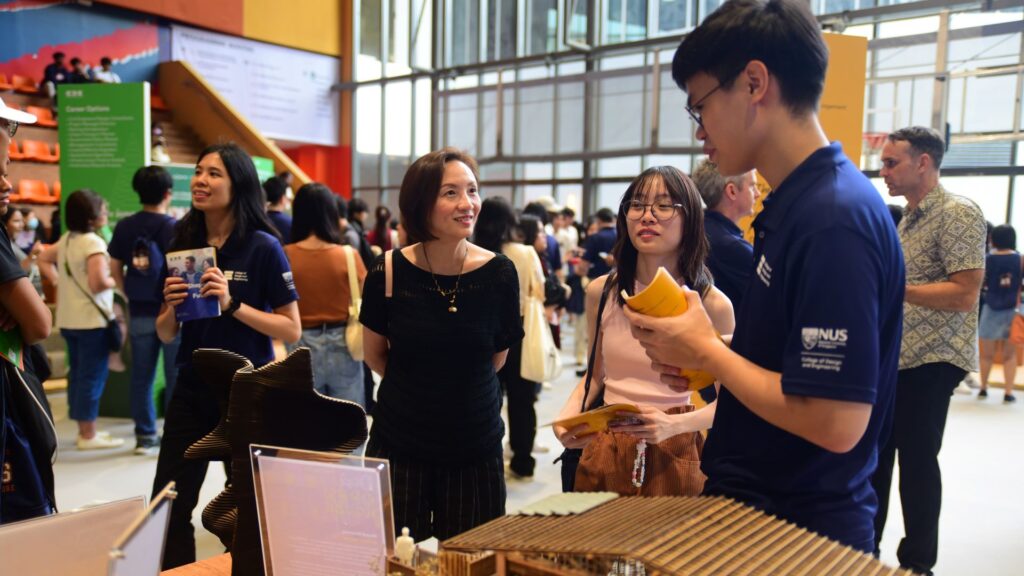
Over at SDE3, CDE's Built Environment Research Tour took participants behind the scenes-from live demonstrations of how 5G robotics reduce manpower and increase efficiency, to a lab tour of NUS' hydraulics laboratory facilities to explore wave mechanics and how natural coastal ecosystems like mangroves can protect shorelines against climate change. Students also participated in a hands-on session to design their own shoreline adaptation, choosing from models of nature-based solutions as well as traditional infrastructure.
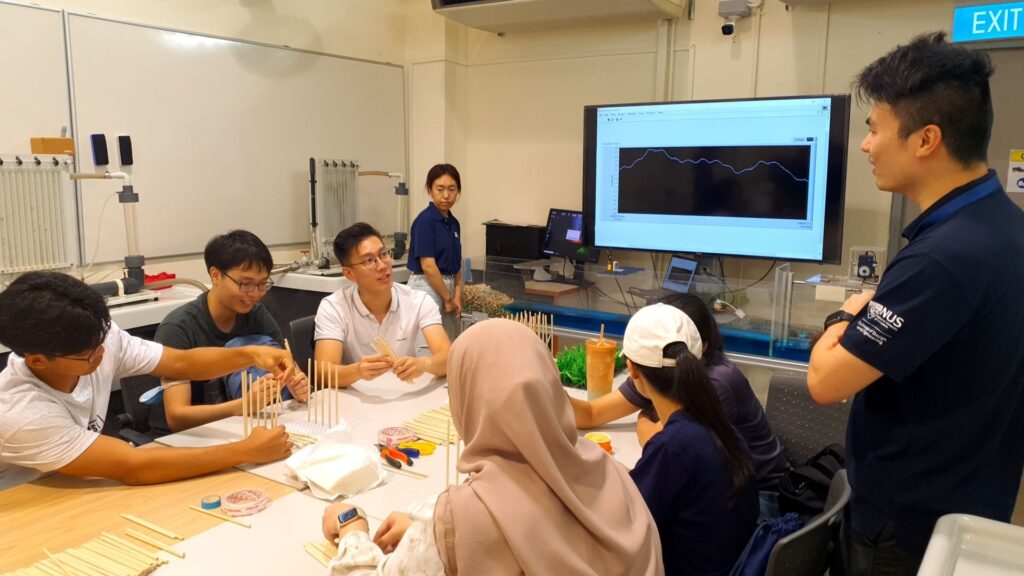
"It was nice to be able to see the facilities and get an idea about what Singapore is currently trying to improve on-designing a world with humans and robots, and coastal protection," Nur Annatasyia Binte Joferi, from Singapore Polytechnic, said. "It made me think about how things will progress and what comes next after those goals are met."
Immersive learning experiences
NUS College offered prospective students a window into its extensive interdisciplinary education that blends small-group seminars with experiential learning and a rich residential immersion through special classes on topics such as love, food, and even Shakespeare's plays. During Dr Chan Chi Wang's class on quantifying facial attractiveness using mathematics and statistical methods, prospective students busily plotted measurements of facial features on graph paper. In Associate Professor Stuart Derbyshire's class, they decoded mysterious sounds and intriguing illusions - sometimes with the aid of 3D glasses - understanding the science behind brain mechanisms that influence our perception.
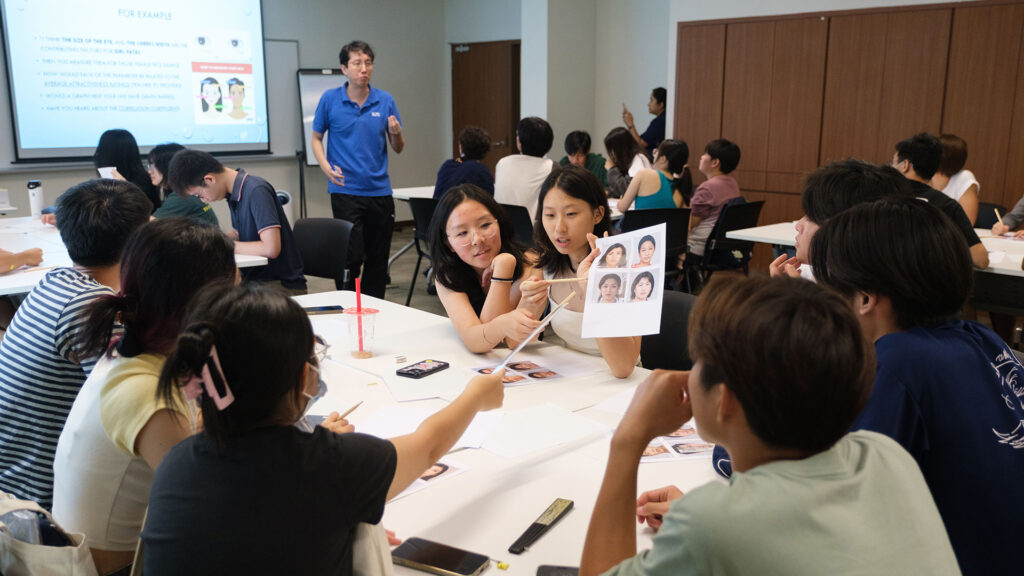
Foo Jun Wei, a Hwa Chong Institution graduate who will be joining Computer Science and NUS College, came away with useful information on what to expect as an incoming NUS student. "I enjoyed taking part in the guided tour where I got to see first-hand the facilities and accommodations that NUS College provides, as well as the immersive sample lesson on quantifying facial attractiveness. Above all, I was glad to be able to clarify my existing doubts and seek advice from the friendly student ambassadors on the ground," he added.
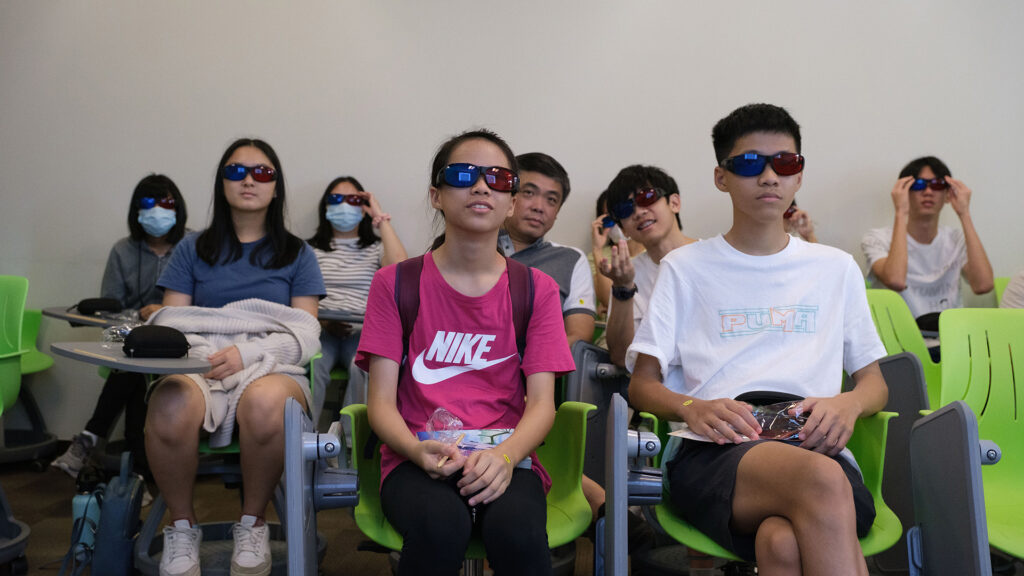
Over at Bukit Timah Campus, visitors to NUS Law had the choice of two masterclasses on criminal justice and conflict resolution approaches. At its mock moot sessions, visitors sat attentively in the gallery witnessing a simulation of a court case.
Mastering the 'heart' and science of healthcare
Prospective students interested in Medicine, Dentistry, Nursing and Pharmacy had the chance to find out about the new Common Curriculum for Healthcare Professional Education, which has been designed to align with Singapore's shift towards preventive healthcare. Aside from touching on the Common Curriculum, talks by NUS Medicine offered an overview of its academic journey, highlighting features such as its strong mentorship support and Pathway programmes aimed at broadening their skill sets. During a special class by NUS Nursing, visitors tried out basic nursing skills like using a stethoscope and learnt the importance of collaboration between healthcare professionals.
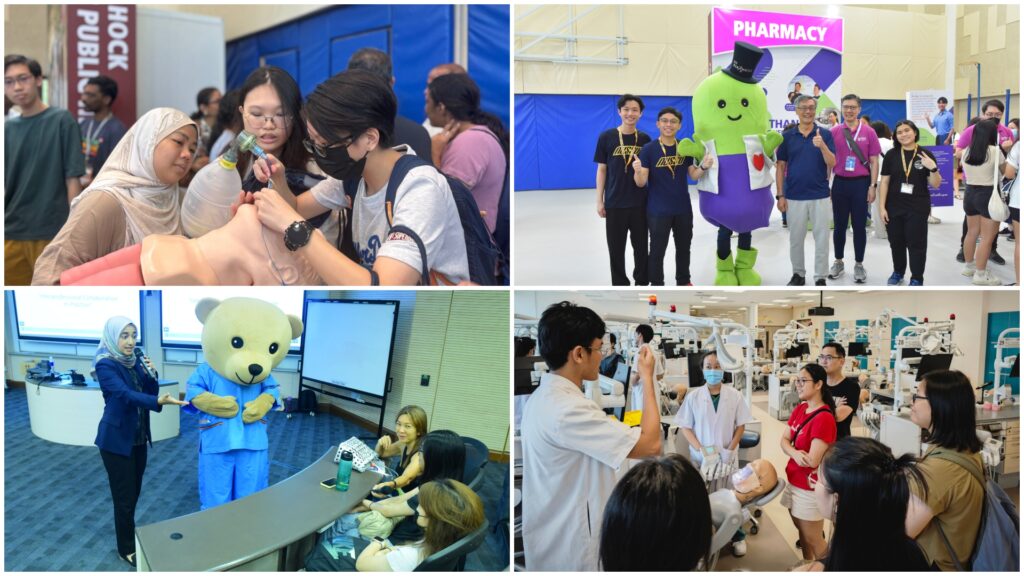
Prospective students interested in Medicine, Dentistry, Nursing and Pharmacy had the chance to find out about the new Common Curriculum for Healthcare Professional Education, which has been designed to align with Singapore's shift towards preventive healthcare. Aside from touching on the Common Curriculum, talks by NUS Medicine offered an overview of its academic journey, highlighting features such as its strong mentorship support and Pathway programmes aimed at broadening their skill sets. During a special class by NUS Nursing, visitors tried out basic nursing skills like using a stethoscope and learnt the importance of collaboration between healthcare professionals.
The interactive Pharmacy masterclass, titled "Unveiling the Pillars of Pharmacy: The Science and Art of Medication Therapy", saw prospective students participate in the decision-making process of a real-life clinical case study. They also gained insight into how NUS Pharmacy structures its curriculum to incorporate live interactive classes, science practicals, skills labs, and collaborative learning workshops, to help students apply concepts in real case studies.
Prospective student Wong Hon Wei from Anderson Serangoon Junior College said, "The Pharmacy masterclass was quite enjoyable yet unique, as the way the collaborative learning workshop was structured was engaging, incorporating the Biology and Chemistry concepts learnt in classrooms into real-world medical applications."
Innovating solutions for society and the world
Another popular feature at this year's Open House was the Innovation and Impact Hub, which showcased groundbreaking projects by students from CDE, Chua Thian Poh Community Leadership Centre, NUS College, and FOS that are making a tangible impact on society and the world.
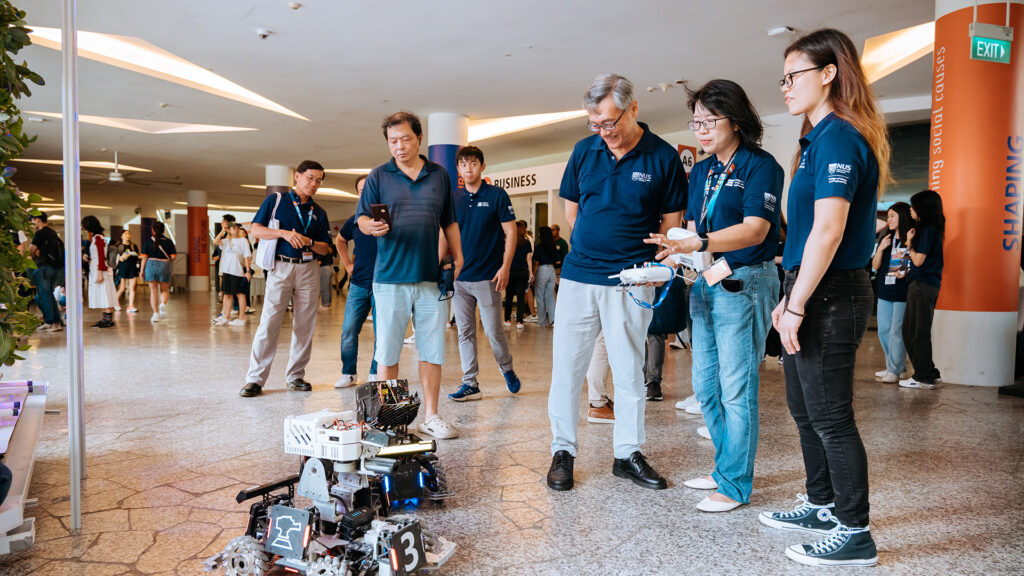
Visitors caught the interactive projects in action, from The Moving Farm, a movable modular tower system for hydroponics farming that increases crop yield sustainably, to TinkerThings, a project on AI-based gamified activities innovated to improve seniors' mental wellbeing and cognitive faculties.
Aside from exploring academic pathways, visitors also discovered NUS Enterprise's suite of entrepreneurship initiatives, including the NUS Overseas Colleges, NUS Enterprise Summer and Winter Programmes in Entrepreneurship, and incubation hub THE HANGAR.
At a panel session on student entrepreneurship, prospective students heard from NUS alumni who founded three start-ups - Pitchspot, Wateroam and Skilio. The founders shared how their involvement in Enterprise's entrepreneurship programmes and the support they received through the HANGAR enabled them to nurture their business ideas.
Exciting array of student and residential life activities
Over at the Student Village, a smorgasbord of vibrant student performances took Town Plaza by storm throughout the day, treating visitors to an exhilarating kaleidoscope of talent from student clubs and interest groups.
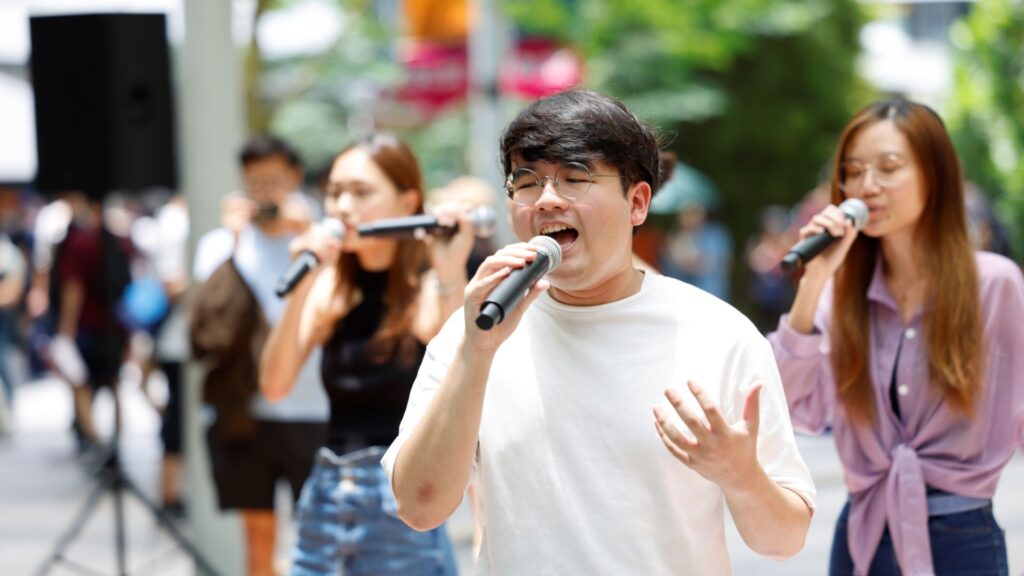
Getting a glimpse of the diverse student life opportunities that await, visitors were hyped up by the energetic cheerleading displays of King Edward VII Hall's KE Titans, the snazzy beats of NUS Rappers, and the slick dance moves of the NUS Korean Cultural Interest Group. They were also serenaded with catchy tunes from the Sheares Hall band, a capella group NUS Resonance, and NUS Fingerstyle Guitar.
On top of A-Day-in-the-Life videos and 360° virtual tours of the various Residential Colleges, Halls, and Houses, Masters and student representatives from the residences mingled with prospective students at the booths, talks, and Ask-Me-Anything panels, where they shared their insights and anecdotes on the on-campus experience, as well as the distinct culture of each residential unit.
Along with offering guided in-person tours and simulated classes, the residential units also showcased the interest groups available. Other engaging activities, such as Tembusu College's live performances and Ridge View Residential College's sports experience zones, coffee pour demonstrations, and warli art making gave prospective students a taste of the many facets of holistic residential life.
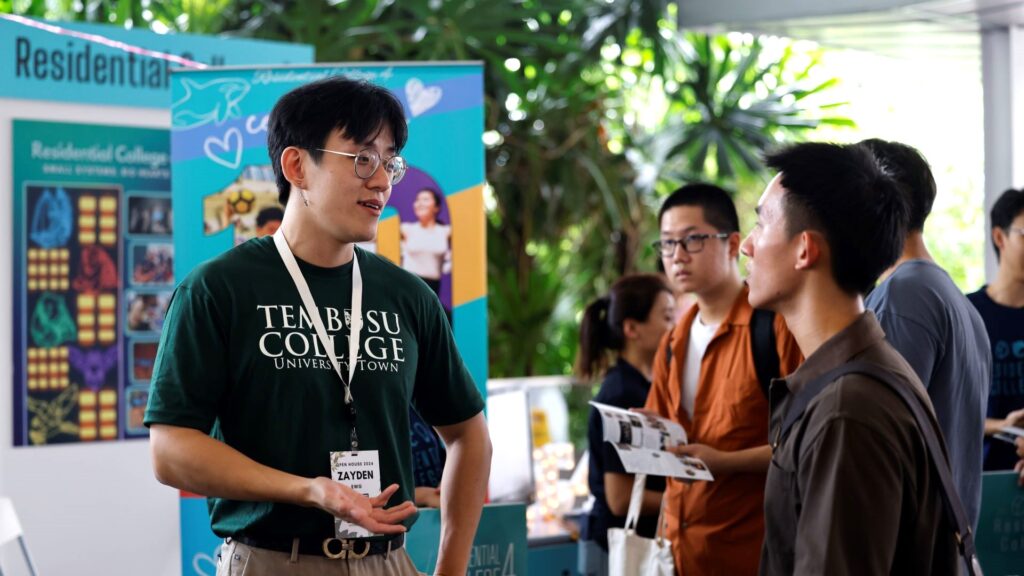
Prospective students Inez Ang from National Junior College and Vishnu Raj from Millennia Institute said the residential showcase gave them a better picture of living on campus.
Runyi Zhang, a graduate of St Andrew's Junior College who is applying to Business, said she had an enlightening experience sampling both the academic and extracurricular options. "Through the Open House, I've managed to capture a glimpse of student life in NUS… allowing me to have a clearer and more vivid image of what my future could be like here," she added.
This story first appeared in NUSNews on 14 March 2024.
With High Ambitions, NUS Graduates Power Towards Career Success
IN BRIEF | 8 min read
- Recent NUS graduates have secured exciting careers, armed with a diverse skill set honed through a rigorous interdisciplinary and experiential NUS education, and future-ready life skills.
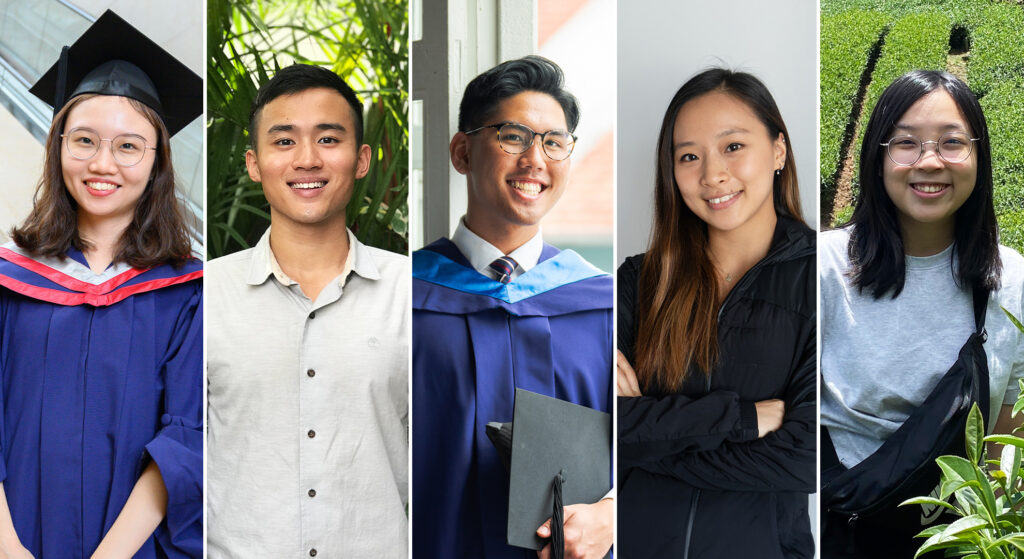
Navigating the ever-evolving landscape of professional opportunities can be both exhilarating and daunting. Yet, recent NUS graduates, most of them from the Class of 2023, have secured exciting careers, armed with a diverse skill set honed through a rigorous interdisciplinary and experiential NUS education, and future-ready life skills.
Interdisciplinary education opens doors to many career pathways
The strong foundation that Estelle Ho Jia Hui, NUS Business School graduate and Valedictorian for the Class of 2023, acquired during her course of study opened doors to a variety of career options upon graduation. Armed with a Real Estate degree, she is now an Associate Product Specialist in the Environmental, Social, and Corporate Governance (ESG) team at Mastercard.
In her current role, Estelle develops go-to-market strategies for customers in Asia Pacific to accelerate their corporate sustainability goals through Mastercard's ESG products. She also works on product enhancements to drive product adoption, collaborating with diverse functional teams to enhance the value proposition of the products.
"The foundation of skills I acquired in my time at NUS opened doors to a variety of career options upon graduation. For instance, I learned project management skills for land development and building lifecycles in Real Estate studies, which I now apply to managing product roadmaps and formulating go-to market strategies at Mastercard," said Estelle.
During her undergraduate years, Estelle completed multiple internships at Shopee, Changi Airport Group, Enterprise Singapore and Inland Revenue Authority of Singapore. She also actively engaged in discussions with her career advisors and sought to upskill herself through workshops conducted by BIZCareers, the NUS Business School's careers centre.
"I acquired stakeholder management and communication skills from internships, mentors, and BIZCareers workshops that help me to navigate challenges and drive impactful change with our customers at Mastercard," she added.
Internships reaffirm choice to pursue a green career
An Economics major at the NUS Faculty of Arts and Social Sciences, Ashruff Ng Wei Sheng Ibrahim was able to hone his interest in social and environmental issues through courses such as developmental and environmental economics. Being a student under the former University Scholars Programme (now known as NUS College) also exposed him to an interdisciplinary learning environment.
Through the advice of NUS career advisors and his peers, Ashruff went on to complete three sustainability-focused internships at the Singapore Business Federation, PricewaterhouseCoopers and Ramboll during his undergraduate years which helped reaffirm his decision to work in the sustainability space upon graduation.
In his current position as a Sustainability Specialist at WS Audiology (WSA), a privately-owned manufacturer of hearing aids headquartered in Denmark and Singapore, Ashruff manages the carbon accounting of WSA's operations and its value chains. This includes measuring carbon emissions produced in WSA's sites, upstream processes such as procurement and logistics, and downstream processes such as the use and disposal of the hearing aids that are sold to the end users.
A unique study opportunity leads to a career in New York
Working as a finance associate in the New York office of global law firm Latham & Watkins and a member of the Banking Practice in the firm, NUS Law graduate Lee Kay Han represents investment and commercial banks, private debt funds, and corporate borrowers in a range of domestic and cross-border finance transactions.
Kay Han, who was Valedictorian for the Class of 2022[1], was fortunate to have landed the coveted opportunity to study in New York through the NYU-NUS LLB-LLM Exchange Plus Programme with New York University (NYU) and eventually pursued his career there. Using the networking skills he picked up from the career guidance departments at both NUS and NYU, he approached several firms in New York during his job search and later aced the interview with his current employer Latham & Watkins.
"At NUS, I developed a strong foundation both in terms of substance and legal skills, with credit to the many resources that NUS provided. Having worked for a while now, this has definitely helped me in analysing legal issues, drafting documents and much more," said Kay Han.
Beyond that, Kay Han also appreciates the NUS Law community's sense of camaraderie and the general willingness to help each other in sharing advice, notes, and life tips to get through law school, internships, job applications and more.
A strong foundation for the corporate world
As a Regional Study Coordinator at clinical research organisation Labcorp, Jeannie Su Ching Ting manages clinical trial projects for pharmaceutical clients in the Asia Pacific region. She works with multiple stakeholders across time zones and oversees the entire project management spectrum which includes managing logistics, lab test results, study monitoring, and patient sample management.
Jeannie, who graduated with a Pharmaceutical Science degree from NUS Faculty of Science, shared that she had a smooth job search thanks to her education. "My foundation in Pharmaceutical Science helps me understand how clinical trials fit into the whole life cycle of drug development. There were a few Pharmaceutical Science courses on the drug development lifecycle, and regulatory guidelines in the pharmaceutical industry which are relevant to my role today," said Jeannie.
Jeannie added that her internship through the NUS Undergraduate Professional Internship Programme, was particularly helpful in imbuing her with transferable skills for the workplace and complemented her academic credentials when applying for jobs.
Holistic education paves the way for career success
For NUS Computing graduate Yoong Yi En, her all-rounded experience at NUS has prepared her well for her career as an IT Security Specialist at the Housing and Development Board (HDB).
An HDB scholarship recipient, Yi En completed her six-month internship under NUS Computing's Advanced Technology Attachment Programme at HDB. During her internship, she was given the opportunity to learn and develop a web application that conducts source code analysis and identifies potential application vulnerabilities.
A semester-long student exchange at the University of Gothenburg in Sweden added to Yi En's personal growth. "The exposure gained away from home enabled me to enhance my global perspective and grow as an individual," she recounted. While in university, Yi En also took courses from the NUS Centre for Future-ready Graduates to equip herself with important soft skills, such as workplace etiquette and effective communication.
Seven months since joining HDB, Yi En finds fulfilment in a role that aligns with her interests in cybersecurity, software engineering and community engagement. But mostly, she is excited to be part of an organisation that contributes significantly to shaping Singapore's communities.
Strong employment prospects and higher starting salaries for NUS graduates
NUS graduates continued to command high employment rates and earned higher starting salaries in 2023, according to the Joint Autonomous Universities Graduate Employment Survey 2023. Please click here for the press release.
5,582 out of a total of 7,629 fresh NUS graduates from the Class of 2023, and 436 out of 819 follow-up NUS graduates, participated in the joint survey.
More than nine in 10 NUS fresh graduates employed within six months after final exams
|
NUS graduates in full-time permanent employment earned higher starting salaries
|
This story first appeared in NUSNews on 23 February 2024.
Historical Storyteller: I had an Amazing Year in 2023
IN BRIEF | 8 min read
- Historical storyteller, public speaker and guest lecturer Shawn Seah (NUS Economics and University Scholars Programme '10) was feted with three awards in 2023 - including an Outstanding Young Alumni Award during the prestigious NUS Alumni Awards event. He reveals what he found most challenging during the year.

A direct descendant of one of Singapore's most prominent pioneers, Seah Eu Chin, Mr Shawn Seah used to pass by streets named after members of his family, like Seah Street, Eu Chin Street, Liang Seah Street and Peck Seah Street.
His wonder at who they were turned into passion which he channelled into becoming an active storyteller of Singapore's history, especially the Seah family's stories.
Outside of his day job as a Deputy Director of Planning, Strategy and Data Analysis at NTUC's Employment and Employability Institute, the father of a three-year-old girl spends his weekends and public holidays working on his books. He has published over 10 books.
He also recounts his family history by giving talks at museums, libraries, and schools including NUS. Since 2019, he has been a guest lecturer for a module on Singapore Studies offered by the NUS Department of Chinese Studies.
How do you manage to do so much in so little time?
I have many more stories that I would love to research and write about, but I have to strike a balance between my work - which is important to me and takes up the majority of my time - my family, and my heritage hobby. It is not easy and striking a harmonious balance has been a longstanding challenge.
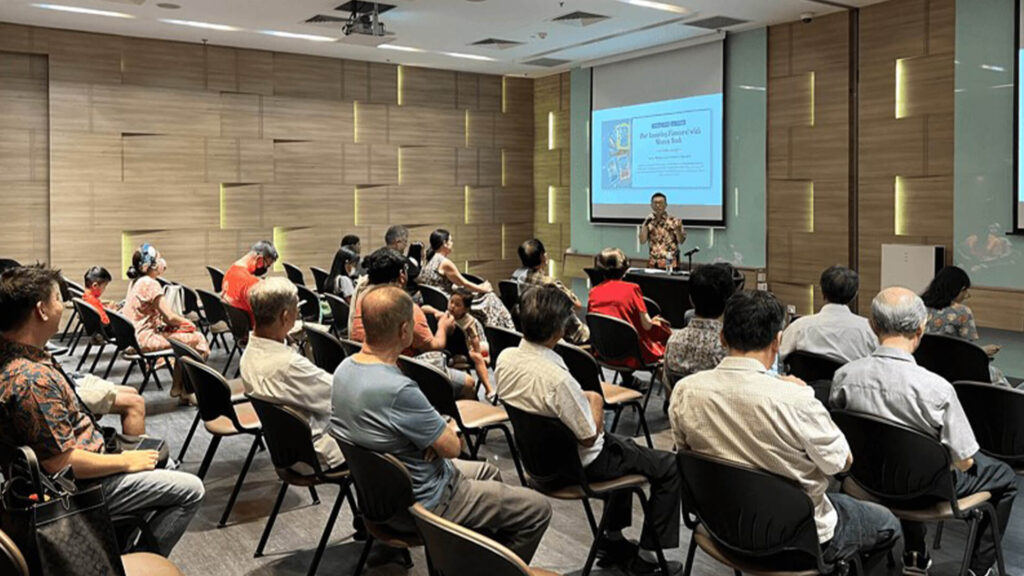
But I have also learnt that with determination and focus, we can achieve any goal we set our minds to. It is a testament to the potential within each of us to overcome challenges and turn aspirations into reality.
What was your biggest challenge in 2023?
The most memorable challenge centred around the launch of Our Amazing Pioneers, my first children's book series, which is a departure from my usual narrative nonfiction writing around family history and community stories.
Writing for children requires a delicate balance of education and entertainment, or 'edu-tainment' as I like to term it. Challenges lay in simplifying complex historical concepts and technical language without compromising substance.
Why do you say 2023 was an amazing year for you?
There were many major highlights other than launching Our Amazing Pioneers. One was receiving the Outstanding Young Alumni award at NUS Alumni Awards 2023, which affirms my efforts to continue inspiring Singaporeans to explore their roots, find out more about their family stories, and be more aware of Singapore's history.
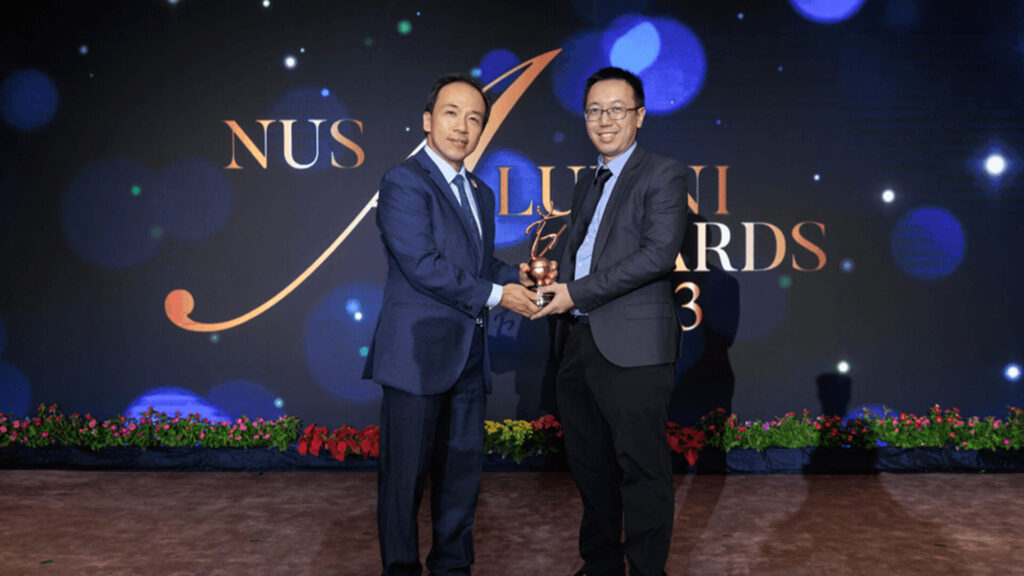
My contributions during the challenging COVID-19 pandemic were recognised with the Commendation Medal and COVID-19 Resilience Medal. I am grateful to have had the opportunity to make a small difference to the lives of migrant workers, who build our Singapore.
In essence, 2023 was a most memorable year, marked by personal and professional milestones on my life's journey.
What are you most grateful for?
My family and friends, especially from the heritage community, and also the NUS professors and lecturers especially Professor Wong Sin Kiong (Affiliate Alumnus '19) from the Arts and Social Sciences faculty's Department of Chinese Studies, who has been incredibly kind to me. What excites you about 2024?
I plan to strengthen my leadership abilities and communication skills, growing and improving my writing, editing, and speaking. One should always be learning and one can always get better.
I also intend to develop new, creative, and innovative approaches to promote local family history and community stories, increasing accessibility to both the young and the young-at-heart.
This story first appeared in the AlumNUS on 1 January 2024. Text by Wong Sher Maine. Photos courtesy of Shawn Seah.
Meritocracy and its discontents
As a young island nation, Singapore has taken pride in its meritocratic system. It sees this system as responsible for propelling its growth into an economic powerhouse. Basing people’s worth on their achievements and hard work, instead of their background and status, is one of the defining traits of meritocracy, and it continues to have roots in Singapore’s competitive education system and job market. While supporters of meritocracy purport that it improves social mobility, many have questioned the true nature of meritocracy, with arguments being made that it further embeds social inequalities instead. In ‘Meritocracy and its discontents’ (The Business Times, February 2024), Dr Georgios Georgiou (NUS Economics) discusses the current state of meritocracy in Singapore, with reference to his observations from teaching about meritocracy in NUS. He presents various perspectives towards meritocracy, from those who advocate for its benefits, to those who criticise the model. Through exploring these perspectives, he argues that a re-evaluation of the meritocratic model is warranted, with more emphasis on eradicating the social inequalities that arise. Dr Georgiou examines the pitfalls of the meritocratic model, outlining two main issues, the first being the social inequalities perpetuated by meritocracy. Richer people can provide more resources for their children, leading to better prospects for their education and employment. Thus, although meritocracy is intended to bypass the advantages of status, it actually exacerbates them. Nevertheless, these privileged children still need to work hard to retain their status and make full use of the advantages given to them. This leads into the second issue with meritocracy, that those with privilege end up locked in a circular chase for wealth, without having any time left to enjoy their wealth. He also discusses his students’ perceptions of meritocracy through polls he took in lectures, with a large majority of students choosing to support meritocracy initially. However, after reviewing the challenges of the model, many students choose to rescind their support. With these challenges in mind, Dr Georgiou argues that there is much room for improvement within education systems, suggesting that measures be taken to ‘fix meritocracy’ and reduce inequalities. Read the article here.
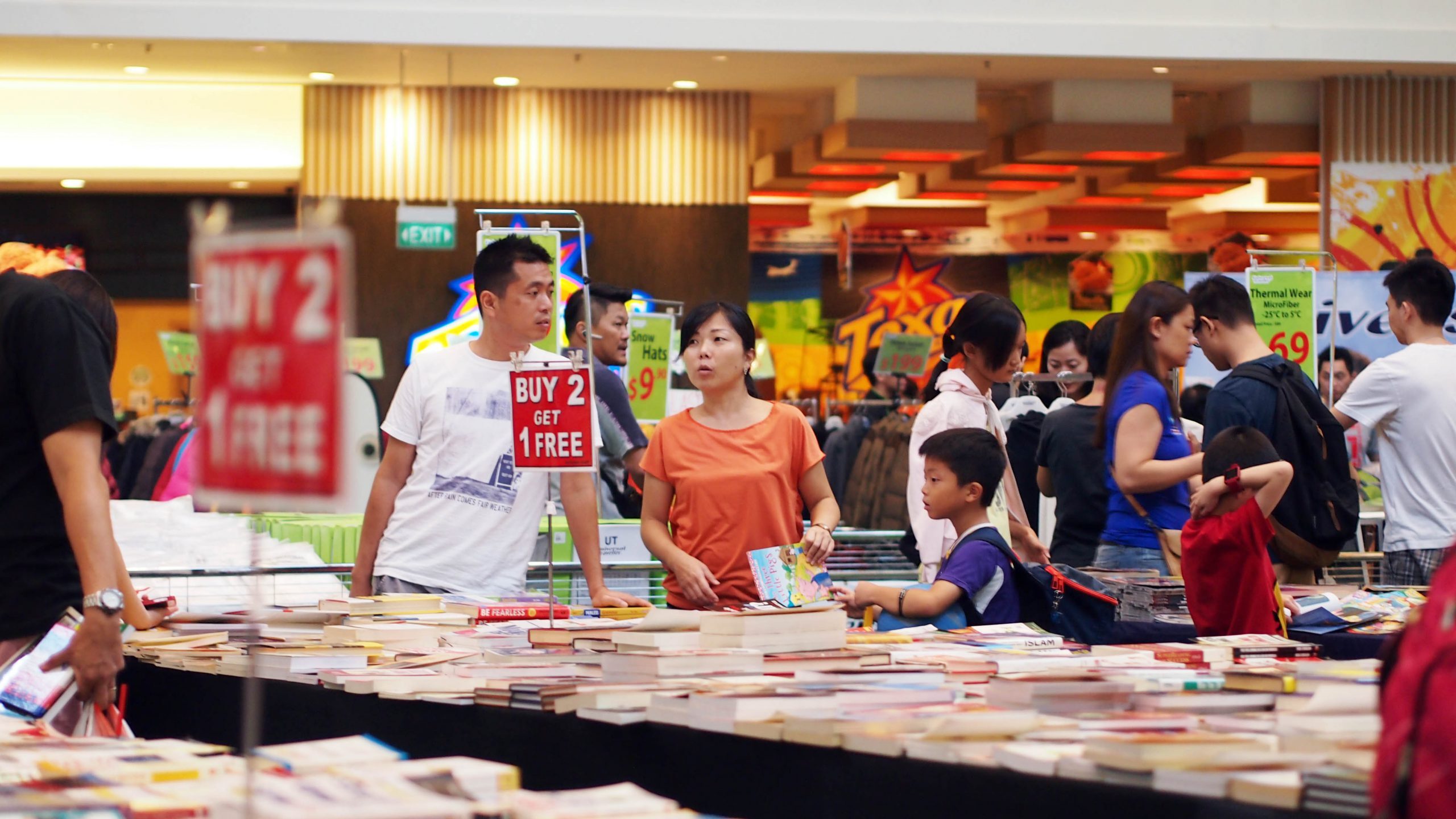
Commentary: After O-Levels, the Choice of Subjects isn’t Always Straightforward
At the end of secondary school, students have to make one difficult decision after the other. For those who choose to pursue junior college, they are almost immediately confronted with the stressful task of choosing what subjects to study for the GCE A-Level examinations. This choice is more complex than it initially seems, as one’s choice of subjects might end up restricting their pick of university courses in the long-term, yet another challenging decision they will have to face.
With these concerns in mind, students often seek advice from the educators around them. While most might advise students to choose based on their career interests, this might not always be an effective approach. In this article, “Commentary: After O-Levels, the Choice of Subjects isn’t Always Straightforward” (Channel NewsAsia, January 2024), Dr Kelvin Seah (NUS Economics) and Distinguished Professor Ivan Png (NUS Business School and NUS Economics) explore the factors behind this decision-making process by examining how past A-Level cohorts have made this decision.
By analysing data from the National University of Singapore (NUS), the Ministry of Education (MOE), and the International Baccalaureate Organisation (IBO), the authors identify several factors that shape one’s choice of subjects. They consider the relation between one’s field of study and their subsequent employment, noting that while most students do pursue employment related to their degree, there is a significant minority that do otherwise. While employment prospects remain an important consideration for students, the authors argue that there is more at hand.
The authors found that students’ choice of A-Level subjects was often informed by entry requirements of undergraduate programmes, with students choosing to take up subjects like Mathematics due to its generic usefulness in many courses’ entry requirements. Finally, they mentioned that students should be more conscious about choosing subjects that would be useful not only on paper, but also in developing skills and competencies that could be helpful in the long-term.
Read the article here.

Commentary: After O-Levels, the Choice of Subjects isn’t Always Straightforward
IN BRIEF | 10 min read
- Dr Kelvin Seah (NUS Economics) and Distinguished Prof Ivan Png (Department of Strategic & Policy, NUS Business School) consider how recent A-level cohorts have chosen their courses of their study from a range extending across the academic to the practical-oriented in their commentary for CNA Online.
Click through image below to read this piece.
This article first appeared on CNA Online and on NUSNews on 9 January 2024.
Breadth of University Curriculum and Labor Market Outcomes

Heart of the Matter – Do high cost of living concerns in Singapore affect everyone the same way?

127 Recipients Honoured at Ceremonies Celebrating the Best of Student Achievements
IN BRIEF | 8 min read
- Smiles, hugs and congratulatory handshakes were all in order at the NUS University Cultural Centre on 27 and 28 October 2023, as NUS recognised the best of student achievements at the Tan Ean Kiam Arts Awards and the NUS Achievement Awards (NAA). A total of 127 recipients were honoured over the two evenings for their contributions to student life in the Academic Year 2022-2023.
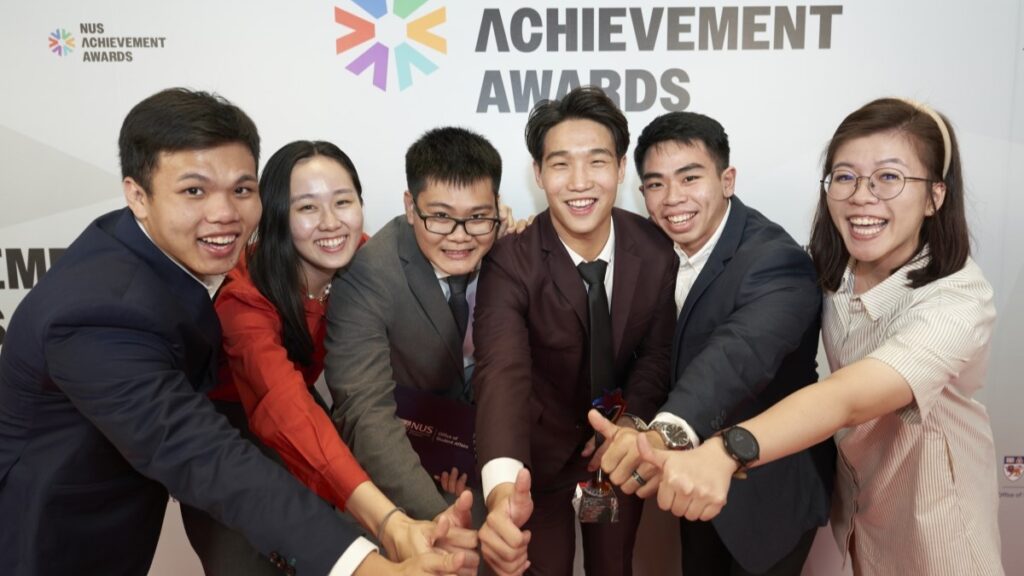
Smiles, hugs and congratulatory handshakes were all in order at the NUS University Cultural Centre on 27 and 28 October 2023, as NUS recognised the best of student achievements at the Tan Ean Kiam Arts Awards and the NUS Achievement Awards (NAA). A total of 127 recipients were honoured over the two evenings for their contributions to student life in the Academic Year 2022-2023.
The NUS Achievement Awards (NAA), formerly known as the Student Life Awards, is the most prestigious and only University-level award honouring the exceptional achievements of student life beyond academics. The Awards were renamed in 2023 to reflect and celebrate the full range and diversity of student life overseen by the NUS Office of Student Affairs.
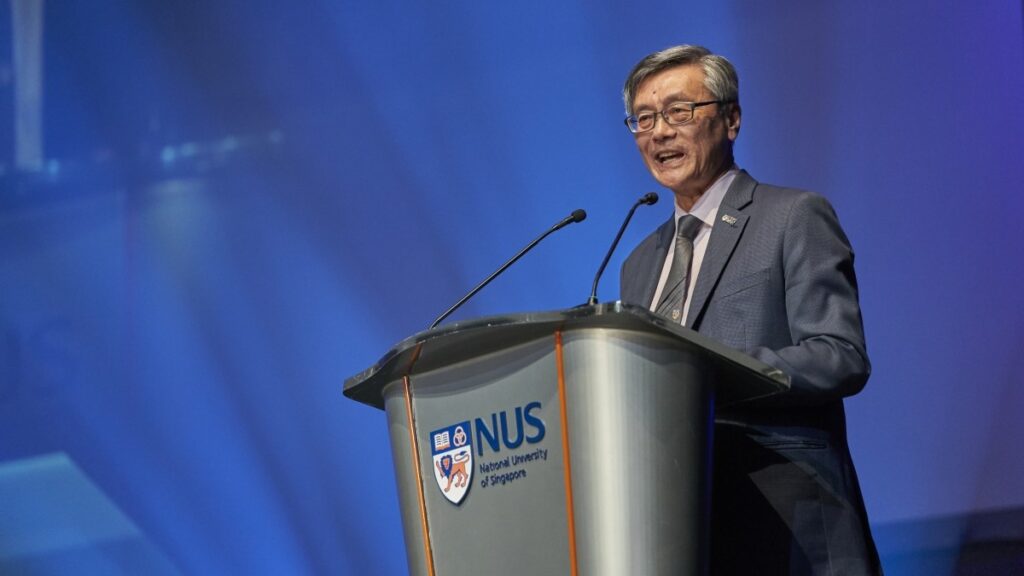
Guest-of-Honour NUS President Professor Tan Eng Chye, who opened the awards ceremony, commended the student leaders for their exceptional contributions during his speech.
"It is a fitting and joyous occasion, to celebrate the unique journeys of our students, how you have grown in mettle to scale new heights in what you set out to do," said Prof Tan. "This evening, the recipients of the NAA are outstanding individuals; they are role models and an inspiration to the NUS community. Not only have they excelled academically, but they are also trailblazers."
Excelling Beyond AcademicsAccolades in Community Impact, Sports, Competitions (General) and Leadership were given out in three tiers - Commendation, and where applicable, Merit and Distinction.
Coming up on top at this year's NAA were three outstanding students who were honoured with Distinction awards for their achievements in various fields:
- Competitive sports shooter Adele Tan Qian Xiu (Communications and New Media, Class of 2023) was awarded the Sportswoman of the Year Distinction award. While pursuing her studies at NUS, she represented Singapore on the international stage, including at the Southeast Asian Games, the Asian Games, and the 2020 Summer Olympics in Tokyo.
- Ryan Quah Kun Hao (Year 5, Department of Architecture) received the Distinction award in the Competitions (General) category. He is making his mark in the Architectural field, having won Gold at Nippon Paint's Asia Young Designer Awards in 2022.
- Final-year Social Work undergraduate Tan Wei Shuang received the Distinction award for her leadership as the two-term President of the NUS Community Service Club.
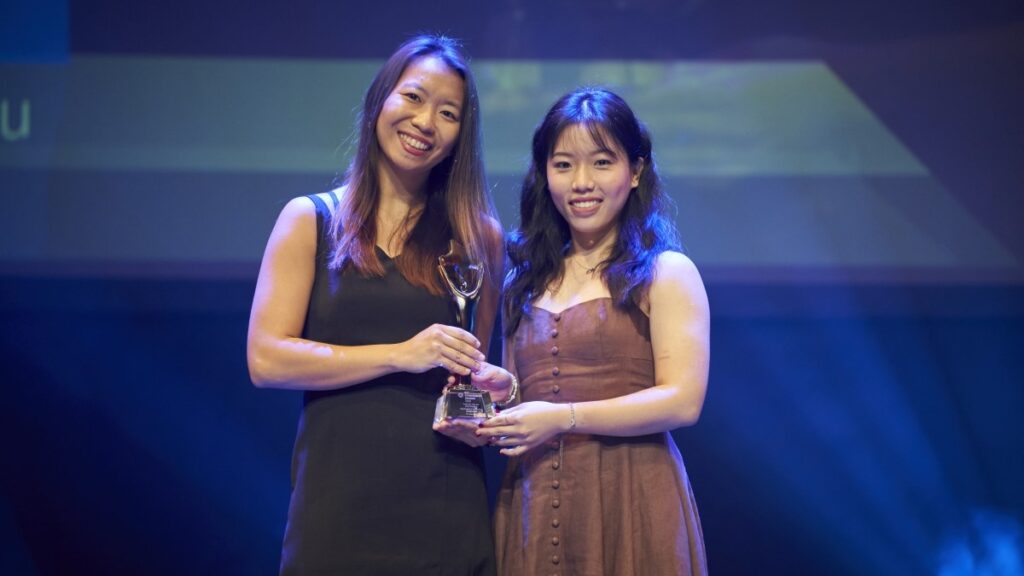
The honourees received their trophies from recipients of the same award in previous years, signifying the passing of the baton from one generation of outstanding student leaders to another. Likewise, the newly minted Distinction award recipients offered words of advice to budding student leaders in the audience.
"This award is only possible because of the efforts of all NUS Community Service Club members, and I would like to thank them for the opportunity to lead a meaningful student club," said Wei Shuang.
"To all juniors, I truly enjoyed my student life being a student leader and learnt a lot more about myself outside of academia. I encourage all of you to step forward and give yourself a chance to try some leadership roles," she added.

The NAA also included the Campus Choice Awards, which are awarded to recipients through voting by the NUS community. Pearlyn Koh (Year 2, NUS Business School), Women's Captain of both the NUS Table Tennis team and the SunNUS team from NUS Students' Sports Club, emerged victorious in the individual and group categories after a month-long campus-wide online campaign.
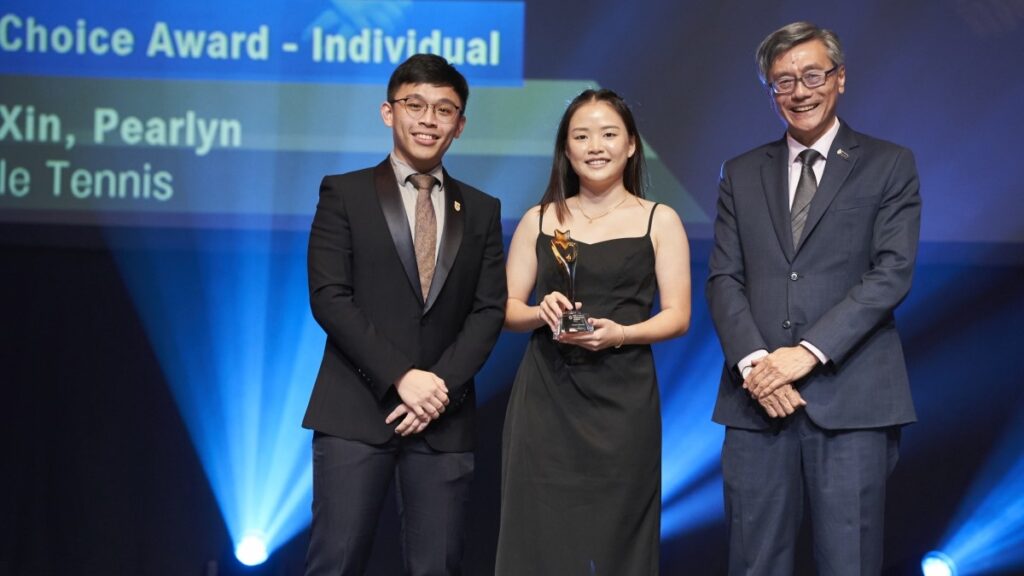
The evening's ceremony also celebrated 12 Staff Advisors who have offered their support and wisdom to various student groups at NUS throughout the year. The awards also recognised student organising teams of university-wide projects such as the Inter-Faculty and Inter-College Games, as well as NUSSU Rag & Flag Day, an event exemplifying the vibrancy of campus life, in the Recognition category.
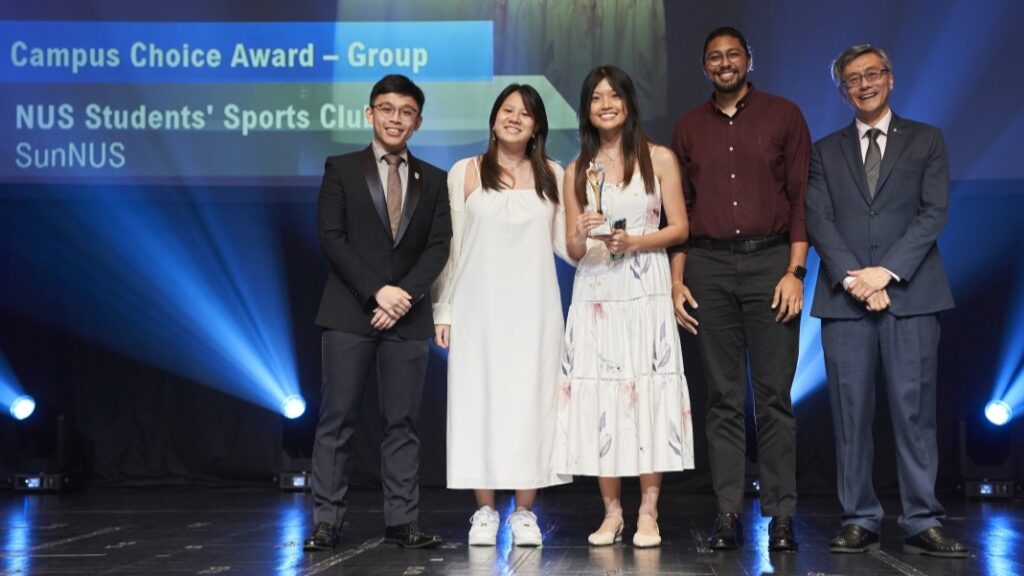
Celebrating the Brightest Stars in Arts and Culture
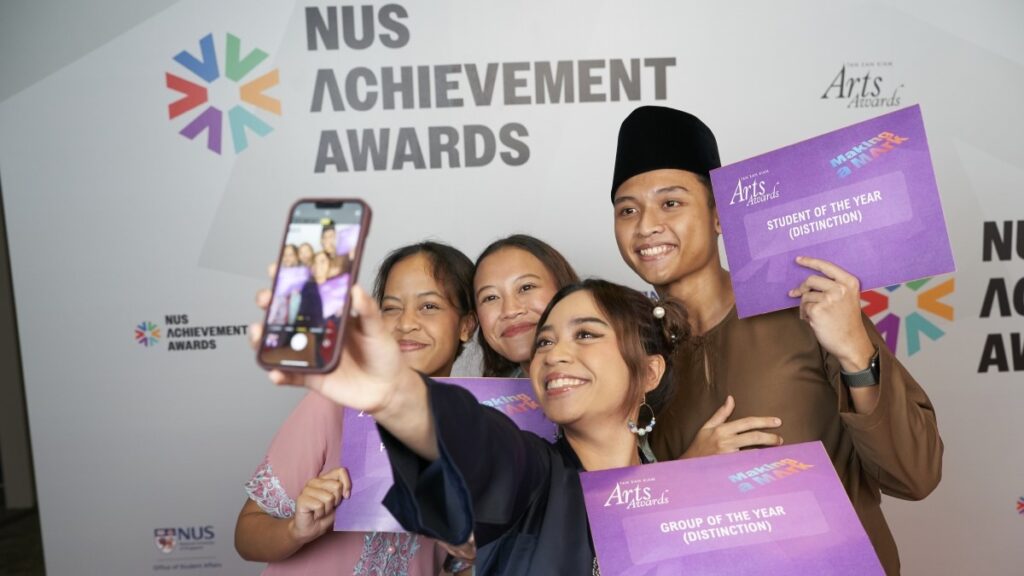
The Tan Ean Kiam Arts Awards on 27 October was a memorable night for Malay dance group NUS Ilsa Tari, which bagged the Group of the Year award. In addition, former NUS Ilsa Tari President (Academic Year 2022-2023) Muhammad Hariz Bin Emran also took home top honours as Student of the Year.
The Tan Ean Kiam Arts Awards celebrates student achievements in arts and culture in six categories, all of which had a respective distinction award winner this year.
- Student of the Year: Muhammad Hariz Bin Emran, President of NUS Ilsa Tari (AY22/23). Hariz is a Year 3 undergraduate at the Department of Malay Studies, with a second major in Communications and New Media.
- Group of the Year: NUS Ilsa Tari, the university's Malay dance group. With strong foundations in various traditional Malay dance forms, as well as the traditional Malay martial art of Silat, NUS Ilsa Tari experiments with both traditional and contemporary Malay dance to push the boundaries of creativity and modernity.
- Original Work of the Year: Bairagi by the NUS Indian Instrumental Ensemble.
- Production of the Year: Essentially Macbeth byNUS Chinese Drama and NUS Chinese Orchestra.
- Outstanding Community Arts Project of the Year: Helping Hands, Moving Bodies 3.0 by NUS Dance Synergy.
- Outstanding Alumni Recognition Award: Since graduating, Ms Ong Xue Min (Economics, Class of 2019), a founding member of NUS Stage Alumni, has held several masterclasses on improvisation and acting for NUS students.
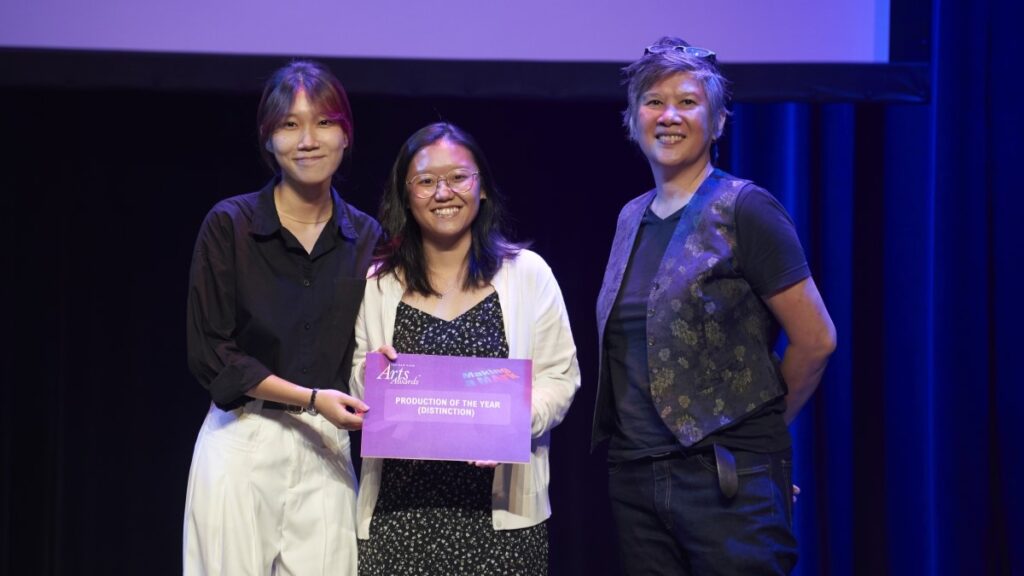
Essentially Macbeth, which won the Production of the Year Distinction award, is a first-of-its-kind collaboration between NUS Chinese Drama and NUS Chinese Orchestra. Staged as a play-within-a-play, the performance follows the lives of young graduates who reconnect with theatre after a prolonged absence, questioning the relevance of the arts in our everyday lives.
Jin Jianzuo and Liew Chet Ming, President of NUS Chinese Drama and Vice-President of NUS Chinese Orchestra respectively in Academic Year 2022-2023, expressed their gratitude for the opportunity to have worked together to create Essentially Macbeth, and to NUS for honouring student achievements through an awards ceremony, a celebration shared by their parents, coaches and peers.
"These awards serve as an affirmation and recognition for the efforts that the students have put in," said Jianzuo, who is also a Year 3 student majoring in Data Science and Analytics. "It also makes us, the student leaders, believe that whatever we have done is truly meaningful," she added.
Moving Ahead TogetherArts groups have much to look forward to in 2024, when the arts category is integrated into the NAA, combining both ceremonies into one event to honour and celebrate the best student achievements beyond academics, cementing the role of student life as an essential part of a holistic university experience.
"I'm happy to hear that the arts are being included as part of the NAA from next year onwards," said Chet Ming, a Year 3 undergraduate at the College of Humanities and Sciences majoring in Chemistry and History.
"I've always believed that the arts have the potential to change people and make an impact on communities, and it's great that its influence is being recognised in a university-wide platform such as the NAA!" he enthused.
Watch the Event Highlights!
This story by the NUS Office of Student Affairs appeared in NUSNews on 8 November 2023.
NUS Alumni Awards 2023: Celebrating Outstanding Changemakers and Trailblazers
IN BRIEF | 8 min read
- NUS honoured the achievements of 21 outstanding alumni and three alumni teams comprising another 14 alumni, at the prestigious NUS Alumni Awards 2023.
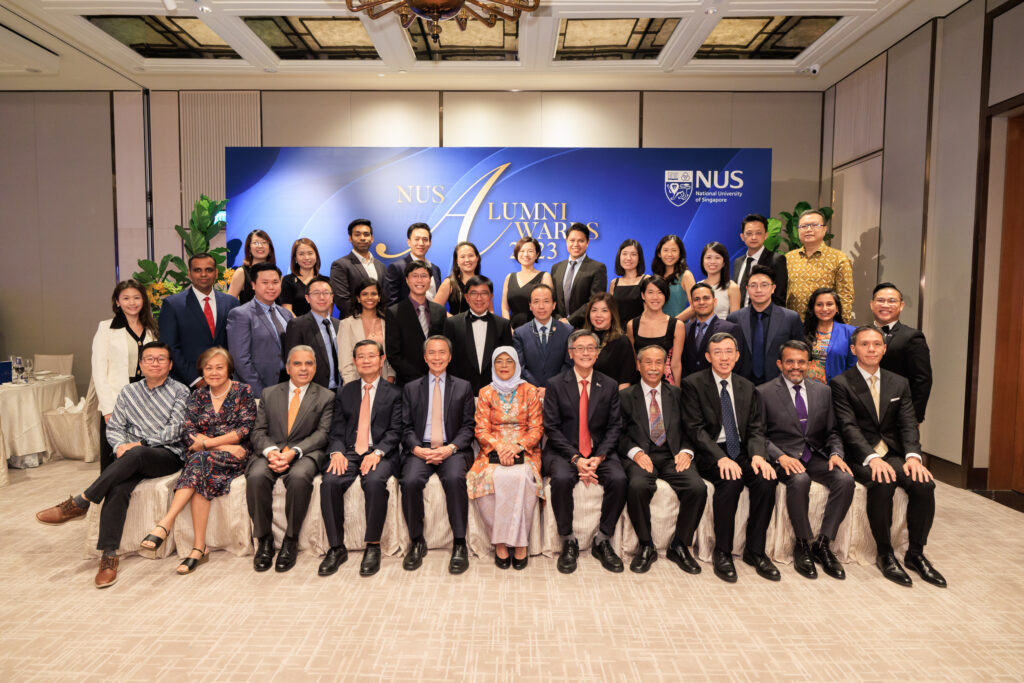
Twenty-one individual alumni and three alumni teams, comprising another 14 individuals, were honoured at the NUS Alumni Awards 2023 on 2 November.
Now in its 10th edition, the biennial NUS Alumni Awards recognise alumni who have distinguished themselves through significant and impactful contributions to their alma mater, society and the world.
Speaking at the celebratory event, NUS President Professor Tan Eng Chye noted that the award recipients have, “not only found success in their respective fields, but elevated what it means to be an alumnus or alumna of our institution: their achievements have enriched our culture, advanced our science, deepened our humanity, and bettered our society”. Read Prof Tan's speech here.
Eminent Alumni AwardThe Eminent Alumni Award was conferred on Mdm Halimah Yacob, former President of the Republic of Singapore, for her achievements in public service, as well as her exemplary service to the University as the former Chancellor of NUS from 2017 to 2023. Mdm Halimah Yacob
Mdm Halimah graduated in 1978 with a Bachelor of Laws from the University of Singapore and obtained her Master of Laws from NUS in 2001. She spent 33 years with the labour movement, rising to become Deputy Secretary-General of the National Trades Union Congress (NTUC). In 1999, she became the first Singaporean elected to the International Labour Organisation (ILO), where she served for 12 years, representing workers globally. She entered politics in 2001, serving as a Member of Parliament until 2017. In a career filled with firsts, she became the first woman appointed Speaker of Parliament in 2013; and the first woman to be elected President of Singapore in 2017, a role she held until 2023. For her service, she was conferred the Order of Temasek (With High Distinction), the nation’s highest civilian honour, this year.
As Chancellor of the University, Mdm Halimah conferred close to 76,000 undergraduate, master’s, doctorate and honorary degrees over six years, and presided over the Main Commencement ceremonies for graduates and honorary graduates. She also graced various NUS events, including NUSSU Rag & Flag Day 2018, NUS Bizad Charity Run 2020, the Bukit Timah Homecomings of 2018 and 2022, the Institute of Policy Studies’ Women’s Conference in 2021, and the 52nd UM-NUS Inter-University Tunku Chancellor Golf Tournament in 2023.
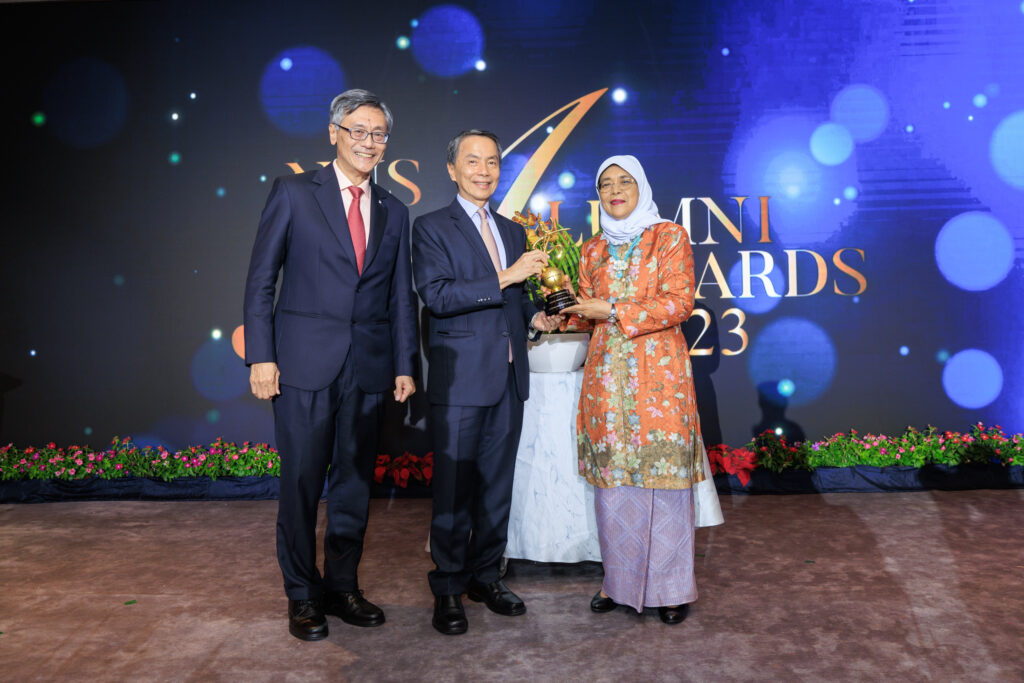
Delivering the citation for Mdm Halimah’s conferment, Prof Tan commended Mdm Halimah as an “inspiring leader” and “trailblazing alumna”, noting her “unwavering dedication to advancing the lives of individuals and communities, particularly the underprivileged”. Read the citation here.
“I am deeply honoured to receive the Eminent Alumni Award from my alma mater. NUS has played a formative role in my life, shaping not only my academic development but the values I have carried throughout my career,” said Mdm Halimah.
Watch this tribute video on Mdm Halimah’s contributions to the University and Singapore.
Distinguished Alumni Service AwardEight NUS alumni were conferred the Distinguished Alumni Service Award for their achievements in their chosen fields, as well as their excellent volunteer service to NUS, its predecessor institutions and/or the community.
These award recipients were:
- Professor Kishore Mahbubani (NUS Philosophy '71), Distinguished Fellow at NUS Asia Research Institute
- Mr Kok Heng Leun, founder of the Drama Box theatre group
- Ms Janet Lim Yuen Kheng (NUS Sociology, 75), former Assistant High Commissioner (Operations) at the United Nations High Commissioner for Refugees (UNHCR)
- Justice Andrew Phang Boon Leong, Senior Judge of the Supreme Court of Singapore
- Mr Ravi Menon (NUS Economics '87), Managing Director of the Monetary Authority of Singapore
- Mr Brian Tan Kai Piang, Regional President of Applied Materials Southeast Asia
- Mr Wong Kan Seng (NUS History and English '70), former Deputy Prime Minister of Singapore
- Mr Yatiman Bin Yusof (NUS Geography and Malay Studies '72), High Commissioner of Singapore to Kenya and Malay language champion
Twelve young NUS alumni were honoured for their achievements and outstanding contributions to their chosen fields.
These award recipients were:
- Dr Aishwarya Bandla, Regional R&D Manager at Paxman Coolers
- Ms Akanksha Batura Pai, Head of Strategy and Growth at Sinoda Shipping Agency
- Dr Rena Dharmawan, Assistant Dean and Assistant Professor at Duke-NUS Medical School
- Mr Faris Bin Ridzuan (NUS Sociology '15), academic tutor at the National University of Singapore
- Dr Izzuddin Bin Mohd Aris, Assistant Professor at Harvard Medical School and Harvard Pilgrim Healthcare Institute
- Mr Khoo Yi Feng (NUS Southeast Asian Studies and Psychology '17, Social Work (postgraduate diploma) '20), social worker and mental health advocate
- Mr Kwok Ka Ming Andre, founder of Good City Foundation
- Mr Samson Leo, Chief Legal Officer of Fazz
- Mr Raghuram Natarajan, Chief Executive Officer of Blueleaf Energy
- Mr Seah Li Song Shawn (NUS Economics '10), local history author
- Dr Shravan Verma, Co-founder of Speedoc
- Ms Frances Tho Siao Ting, Vice President of Sales at Numerix
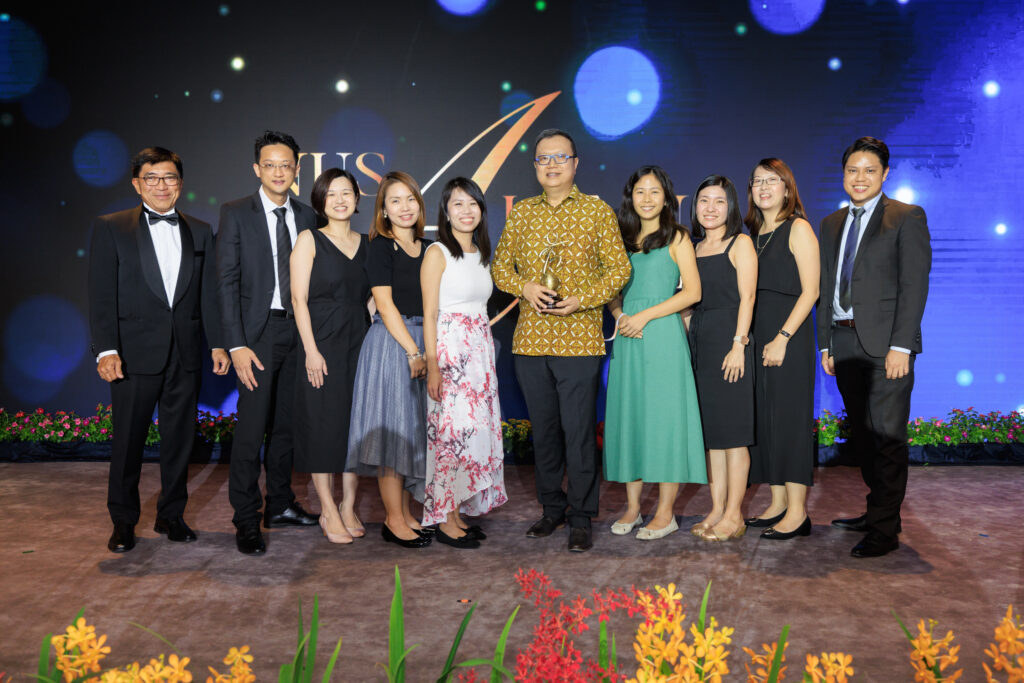
Team (Alumni) Award Recipients
The Team (Alumni) Award recognises the outstanding achievements of alumni teams who have collectively distinguished themselves in their chosen fields.
Three awards recipients were:
- Co-founders of Growthbeans: Ms Shamantha Yan Shiya (NUS Sociology '09) and Ms Shane Yan Shiyan (NUS Psychology '09)
- Co-founders of Janio Asia: Mr Ng Jun Kai and Mr Nathaniel Asher Yim
- REACH (Response, Early Intervention and Assessment in Community mental Health) Team, Institute of Mental Health: Ms Esther Chew Yuki (FASS '14), Dr Daniel Fung Shuen Sheng, Mr Ho Weng Siong (FASS '16), Ms Li Jiaying Grace, Mr Ong Guo Xiong Jeffrey (FASS '09), Ms Ong Tze-I Cheryl (FASS '08), Ms Sim Si Lin (FASS '12), Ms Tan Ke Jia (FASS '03), Mr Tan Zheng Xin, Jason (FASS '08) and Ms Kelly Yeo (FASS '07)
Read more about the NUS Alumni Awards 2023 recipients here and here.
This story by the NUS Office of Alumni Relations first appeared in NUSNews on 2 November 2023.
Singapore Has Long Resisted Unemployment Benefits, So Why the Change of Heart?
IN BRIEF | 5 min read
- Op-Ed on CNA Online by Dr Kelvin Seah, Senior Lecturer at NUS Economics.
Click through image below to read this piece.
This article first appeared on CNA Online and in NUSNews on 19 October 2023.
2023 CHS Case Competition: Tackling Screen Dependency in the Age of Social Media
IN BRIEF | 5 min read
- Themed “Solutions for Tomorrow”, the third iteration of the competition saw 47 teams compete to devise the best solutions to screen dependency among Singaporean youth and adults. Conceptualised by the Dean’s Offices at the NUS Faculty of Science and NUS Faculty of Arts and Social Sciences (FASS), the competition’s unique features – an unlimited team size, the ability to change members during the competition and a Telegram group to facilitate team formations – were designed to simulate the way complex problems are tackled in the real world.
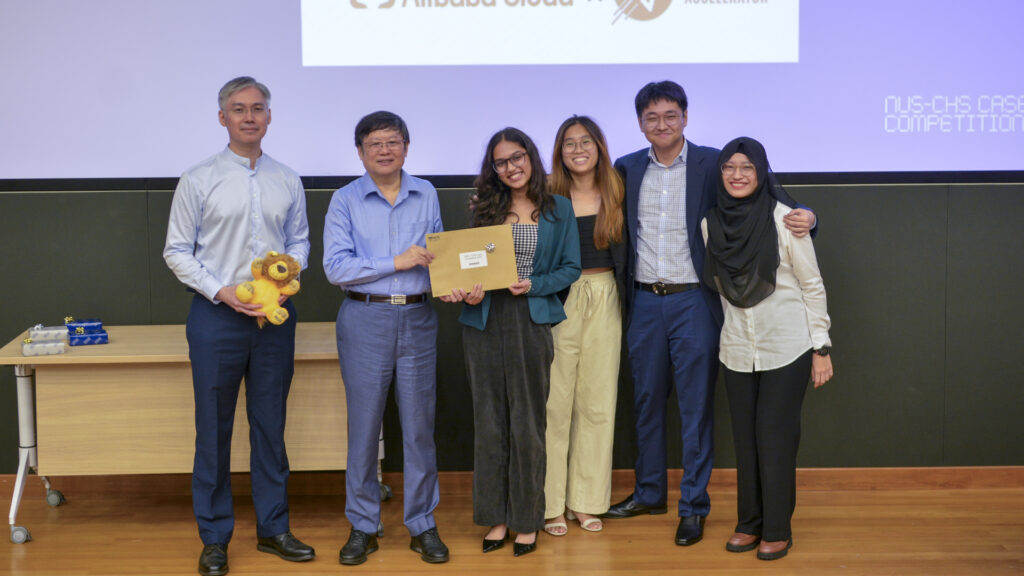
A national campaign to tackle screen dependency, a phone app that scrambles your other apps or an inbuilt phone setting that greys your screen when you spend too much time on social media – these were just some of the creative solutions proposed to counter the burgeoning social phenomenon of screen-related addictions at the recent NUS College of Humanities and Sciences Case Competition.
Themed “Solutions for Tomorrow”, the third iteration of the competition saw 47 teams compete to devise the best solutions to screen dependency among Singaporean youth and adults. Conceptualised by the Dean’s Offices at the NUS Faculty of Science and NUS Faculty of Arts and Social Sciences (FASS), the competition’s unique features – an unlimited team size, the ability to change members during the competition and a Telegram group to facilitate team formations – were designed to simulate the way complex problems are tackled in the real world.
“The CHS case competition is premised on the creation of innovative and workable solutions to complex real-world issues by drawing from the multidisciplinary expertise of team members,” CHS Co-Dean and Dean of the NUS Faculty of Science, Professor Sun Yeneng said. “This is an invaluable opportunity as students get to apply curriculum learning and adopt an interdisciplinary lens to problems, whilst also receiving mentoring and guidance from NUS faculty members and industry experts.”
Understanding the root of the problem
Screen dependency is becoming a worrying trend in recent times. Easy access to cyber technology over the last two decades has led to an unhealthy dependency on internet devices such as smartphones and computers. This was exacerbated by COVID-19 – the e-Conomy SEA 2020 report revealed that Singaporeans spend an average of 4.1 hours online daily, up from an average of 3.6 hours before the pandemic.
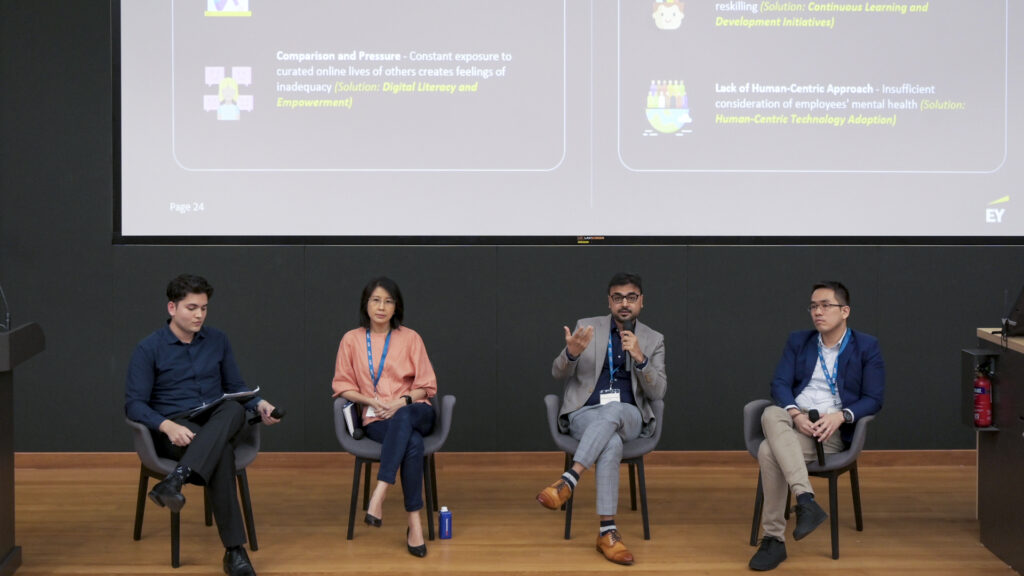
To give participants a deeper understanding of the problem they were tackling, a panel session on “Navigating the Digital Era – Technology Dependency” was organised at the launch event on 11 August, where business, technology and government representatives from EY and Infocomm Media Development Authority (IMDA) shared their insights on tech addiction and its impact on individuals, workplace demands to maintain productivity, and the lack of human-centric approaches to employees' mental health and wellbeing in technology adoption.
Teams were also mentored over two mid-term workshops delivered by faculty members from FASS and the NUS Centre for English Language Communication, who shared domain knowledge on digital dependency and provided guidance on communications and case writing skills.
Building on this foundational knowledge, the teams submitted essays offering potential solutions using a multitude of approaches including policy, technology and education, among others, and an impressive array of fun and out-of-the-box solutions resulted.
Panel judge and Head of NUS Business School’s Department of Management and Organisation Prof Sam Yam remarked, “It was a great event. The finalists all had innovative ideas to reduce social media addiction and the judges from the industries as well as academia were impressed. At the end, we chose three proposals that were innovative, practically feasible, and potentially scalable.”
Fun and feasible solutions for the win
Team Delulu won the top prize for their “Beta than Meta” campaign, an annual national campaign that comprises three phases: raising awareness of social media overuse, a detox challenge with friends and family, and incentives to stay away from screens in the form of recreational activities for campaign participants (sourced through partnerships with local small- and medium-sized enterprises). The campaign’s success leverages the psychological Theory of Planned Behaviour which assumes that individuals act rationally and according to their attitudes and subjective norms.
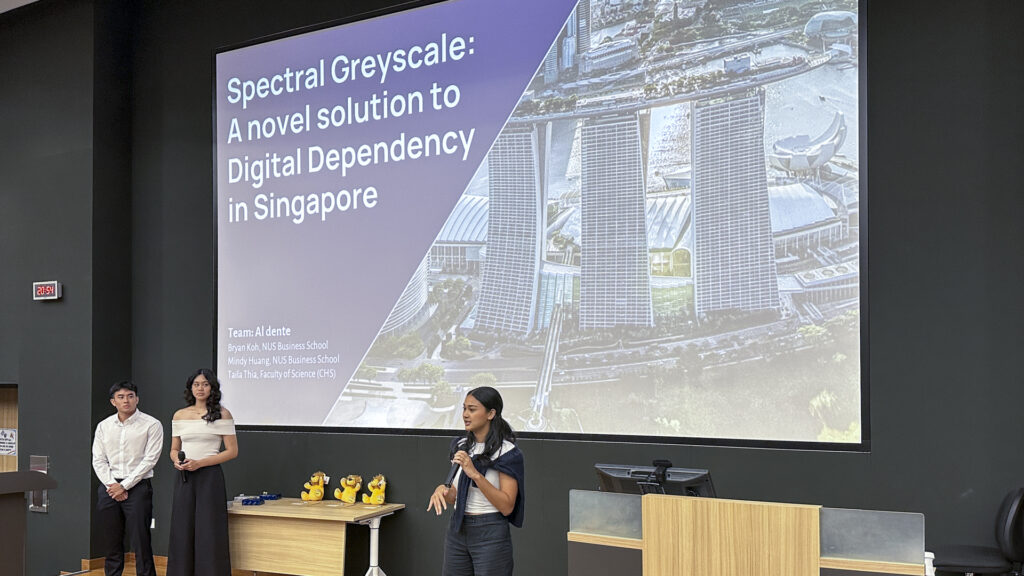
Second prize winner Team Al dente’s solution is “Spectral Greyscale” – an inbuilt phone setting that applies a monochromatic filter which mutes the visual experience for users after prolonged periods spent on social media and games, but rewards users for taking healthy breaks by restoring screens to full colour. The innovative, science-based solution was inspired by neuroscientific studies on the important influence of colour on capturing attention, prolonging attentive response and intensifying emotions compared to their monochromatic counterparts.
The third prize went to Team Apple Ecosystem whose “Scramble” mobile app allows users to personally define achievable targets on healthy screen times, scrambles the user’s apps on their screens when targets are exceeded, and offers in-app streaks and challenges as well as a forum for app users. The app is designed to encourage consistency in healthy screen behaviour while providing a support system for screen-dependent individuals.
The first, second and third cash prizes were worth S$1,500, S$1,000 and S$500 respectively. All finalist teams also received cloud computing credits and F&B vouchers from competition sponsors.
Associate Professor Nicholas Hon, FASS Vice Dean of External Relations and Student Life thanked all who participated. “We were overwhelmed by the response to the competition this year. It was created to promote an awareness of interdisciplinary thinking and interdisciplinary approaches to problem-solving. The fact that everyone who took part got a chance to practise this important skill means there are no losers in this competition.”
Tavisha Jain, Year 2 FASS Economics student, shared her team’s plans post-win, “Looking ahead, we are fully committed to taking the ‘Beta than Meta’ Campaign to the next level. Our objective is to make it a reality and transform it into a tangible initiative that nurtures a culture of digital well-being throughout Singapore.”
On her team’s biggest takeaway, she added, “This case competition has shown us that when a dedicated team comes together with a passion for change, remarkable things can happen. Witnessing the diverse ideas and approaches from other teams showcased the immense potential within our university community. We’ve learned the value of diverse perspectives and the significance of constructive feedback, which will undoubtedly fuel our future endeavours.”
This story first appeared in NUSnews on 9 October 2023.
How Open Data and Gamification Can Make Singapore’s Urban Travel Greener
IN BRIEF | 5 min read
- An Op-Ed in The Business Times (16 September 2023, p29) by Associate Professor Alberto Salvo, Deputy Head (Research) at NUS Economics; and Prof Leonard Lee, from the Dept of Marketing at NUS Business School and Director of the Lloyd's Register Foundation Institute for the Public Understanding of Risk at NUS.
Click through image below to read this piece.
This article first appeared in The Business Times and NUS News on 16 September 2023.
New Career Navigator Series Launched for Young NUS Alumni
IN BRIEF | 5 min read
- The NUS Office of Alumni Relations has launched NUS Be A-HEAD, a new seminar series designed to help graduating students and young alumni make a smooth transition from university campus to the professional world.
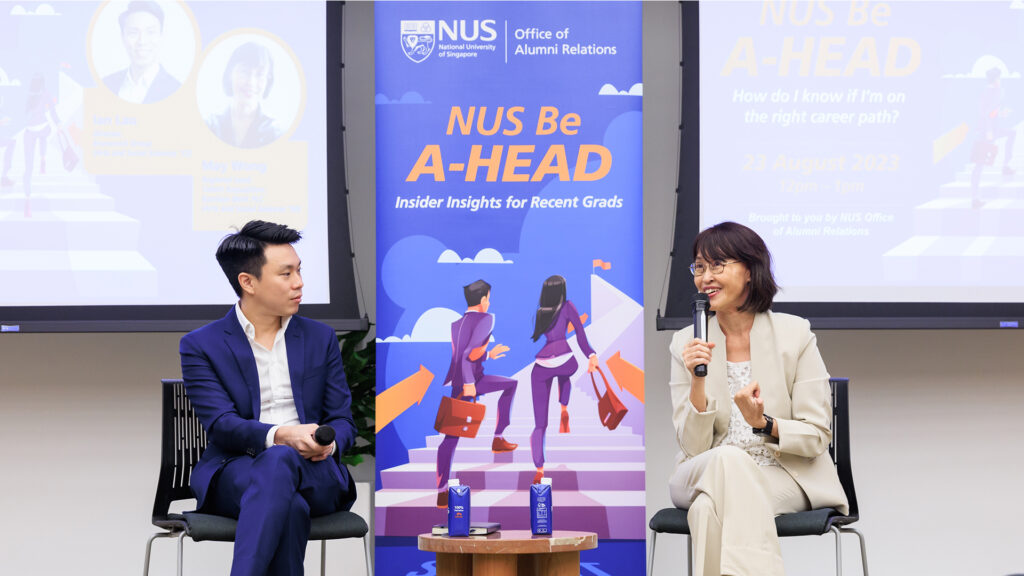
Today’s graduates are entering an increasingly complex work environment, where the idea of the traditional career trajectory has largely given way to one that is less predictable, non-linear, and will require continuous upskilling. Add to this the pace of technological change and industry disruption, and the contemporary workplace can appear both daunting and confusing.
Against this background, the NUS Office of Alumni Relations launched NUS Be A-HEAD, a new seminar series designed to help graduating students and young alumni make a smooth transition from university campus to the professional world.
“One of the greatest benefits of a university education is the alumni network,” said NUS Chief Alumni Officer Ms Ovidia Lim-Rajaram. “With several NUS alumni speakers lined up to share their experiences with their peers, NUS Be A-HEAD is a great example of how our alumni community supports and helps each other succeed.”
Scheduled for an initial three-month run from August to October 2023, the series will delve into various topics related to early-to-mid career growth, addressing some of the largest concerns confronting new graduates today: from finding the right job fit, to grappling with imposter syndrome, navigating difficult professional relationships, and learning how to thrive at work.
The first seminar in the series was held on 23 August at WeWork in Collyer Quay, bringing together close to 50 NUS alumni and graduating students in an event themed around the question of “How Do I Know if I’m on the Right Career Path?”
Featuring Mr Ian Lau (NUS Economics '12), a Director at Brunswick Group, and Ms May Wong (NUS English, Linguistics and Theatre Studies '90), Regional Lead, Talent Acquisition, Barclays Bank PLC, the session highlighted learning points from the speakers’ own careers while providing tips to the audience on interviewing, networking, and learning how to become comfortable marketing themselves.
With both speakers having pivoted to a field different from the one they started in, much of the conversation centred around making the individual determination of whether a job is right for yourself and knowing how and when to move on.
For Mr Lau, this has meant a segue from corporate banking to consulting by way of investor relations, as each experience strategically grew his resume with skills that are relevant and applicable to multiple jobs. “I knew what my career at the bank would look like, the seniority that I would have in five years, and the skills I would attain. [By joining an SME], I was hoping that maybe I would be able to climb the ladder a little faster, get a bit more hands-on training, and more mentorship. And that’s exactly what happened.” What was critical to his development, Mr Lau shared, was remaining “available and present to new opportunities”.
Likewise, having made the transition from journalism to human resources, Ms Wong emphasised the importance of identifying transferrable skills, as well as evaluating one’s interests, talents, as well as lifestyle preferences against any potential position. She also noted the difference between having a job and a career, asking the audience to question whether they have “five years’ experience or five times one”. If they are at a stage where they are no longer able to add anything new to their performance appraisals or their CVs year after year, professional growth may require a new environment or position.
The audience was appreciative of the numerous insights shared by the speakers.
“The session inspired me to think deeper about my existing career, and how I can find my own strength and area of growth. It was also very helpful to hear about strategies and tips to land a new job, especially when pivoting into a different career path,” shared Rebecca Koh (Business '10).
“I think the biggest takeaway is that there is no rubric or matrix for a perfect career path. As your life stage changes, some of your goals and ideals may also change, which is why the so-called ‘right career’ path is always in fluidity,” added Yang Sheng (Arts and Social Sciences '18).
The second NUS Be A-Head event will be held in September. For more information, please refer to the event website: https://www.nus.edu.sg/alumnet/events/results/nus-be-a-head-survive-or-thrive-at-work.
This story by the NUS Office of Alumni Relations first appeared in NUSnews on 31 August 2023.
Students Explore World of Investing and Financial Markets at NUS Economics Society Competition
IN BRIEF | 5 min read
- The annual challenge, organised by the student-led NUS Economics Society since 2007, attracted participation from more than 200 pre-tertiary students representing 14 schools in Singapore.
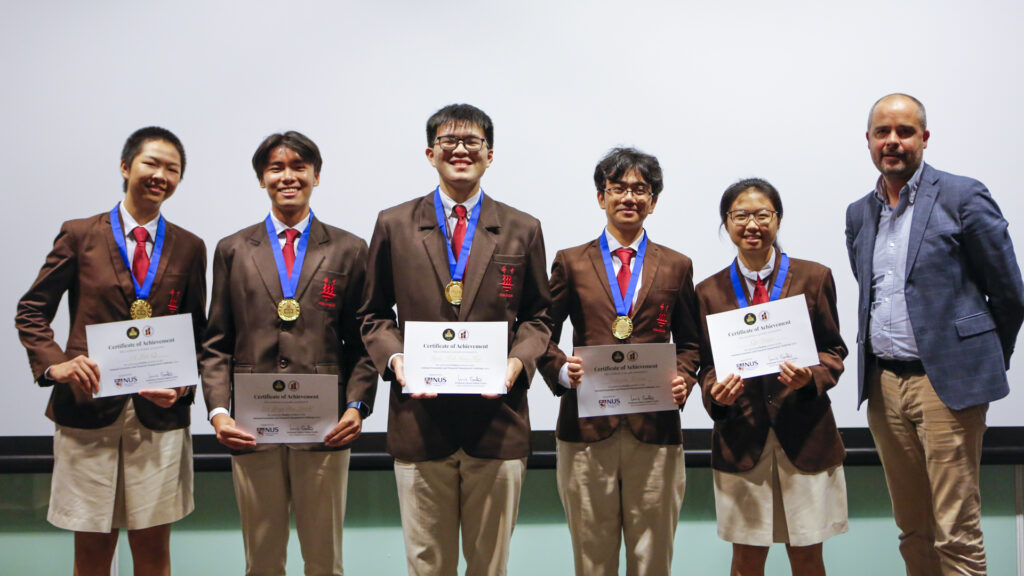
A team of five students from Hwa Chong Institution (HCI) emerged winners of this year’s National Economics and Financial Management Challenge, hosted by the NUS Economics Society, edging out 47 other teams to bag the top prize.
The annual challenge, organised by the student-led society since 2007, attracted participation from more than 200 pre-tertiary students representing 14 schools in Singapore. Themed “Financial Crises and Bank Runs”, this year’s edition will give the top performing individuals a chance to represent Singapore in the International Economics Olympiad and Australasian Economics Olympiad that are taking place from July to August this year.
Games and Simulations Test Participants’ Resolve and Decision-making
This year’s theme was prompted by the growing usage of online brokers and trading platforms, the rise of cryptocurrency investments among young investors, and the increased post-pandemic volatility in global financial markets.
The annual competition assessed participants via three exciting competitive rounds comprising tests, a game simulation and a case competition over the course of four weeks, giving them the opportunity to learn about the basics of investing while analysing markets to identify policies that could prevent the world from plunging into a financial crisis.
Grouped into teams of four or five, participants in the first round were tested on their economics and financial knowledge through an online assessment. The top 21 scoring teams moved on to the second round where they had to make critical investment decisions to maximise their returns in a live simulation scenario of a stock market and floor trading.
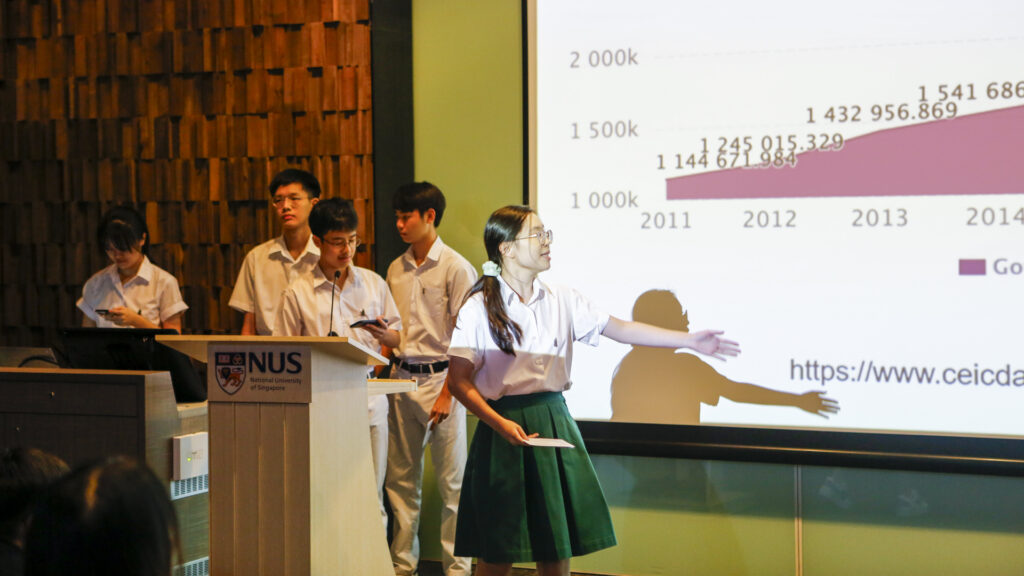
The eight best teams went on to battle it out in the final round, buckling down to analyse a real-life case study – that of China’s troubled financial markets due to the country’s zero-COVID policies during the pandemic. The teams identified the symptoms and the significance of the causes of China’s financial instability, and recommended policies which the Bank of China could adopt to prevent the country’s lapse into a financial crisis.
After much intense deliberation by an esteemed panel of judges including senior representatives from HSBC, Goldman Sachs and the NUS Faculty of Arts and Social Sciences’ (FASS) Department of Economics, the top prize was awarded to Team Silicon Heights from Hwa Chong Institution for their detailed analysis and strong evidence-based policy recommendations for the Chinese economy.
A Learning Experience Beyond the Classroom
The competition finals held on 17 June also saw Guest-of-Honour, Deputy Prime Minister and Coordinating Minister for Economic Policies, Mr Heng Swee Keat, speaking about the importance of economics and its applications to his various jobs, as well as its continued relevance today. DPM Heng also urged participants to remain curious and to keep up with the latest research in the field.
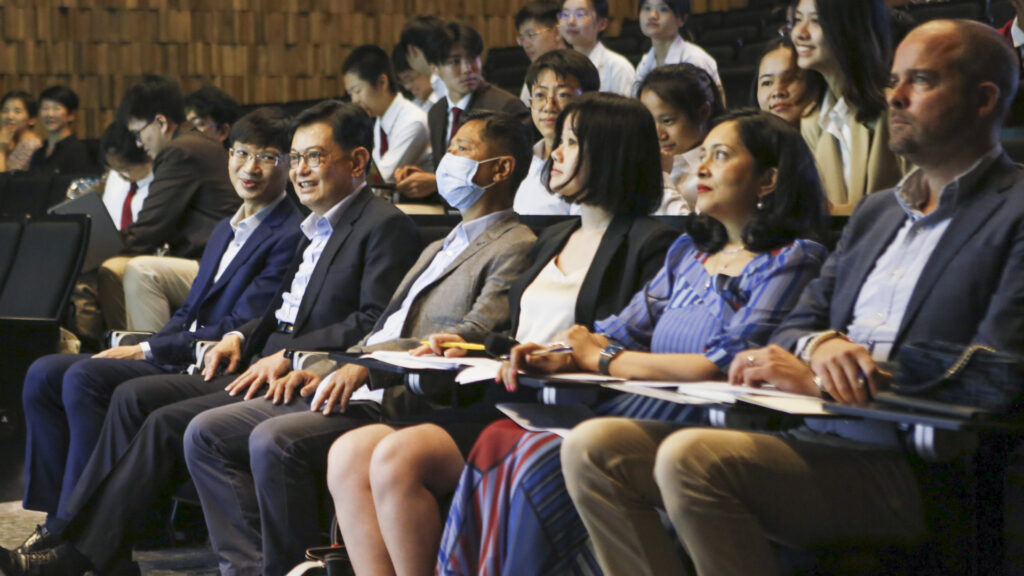
Reflecting on the experience, 18-year-old Team Silicon Heights team leader Qiu Xinyu shared, “With each round that covered various aspects of economics and finance ranging from investment to macroeconomic policy, we have grown as budding economists and grown closer as friends and as a team. Being able to hear from, and network with various industry experts, have also furthered our exploration of economics and finance as a career path, as well as the state of economics today.”
Echoing similar sentiments, 18-year-old Dunman High School student from Heng Yi Wang, whose team came in third place, said, “Just like how short-term sacrifices are necessary for long-term gains in a game of chess, round three’s policy suggestions further educated us on the inexorable trade-offs that will always be incurred when implementing policies. We also managed to network with industrial experts and academics to better understand what working in the financial sector entails.”
The competition’s project director and Year 1 FASS economics student Celest Lam was heartened to witness the high quality of analyses and proposals by participating teams. The exercises demonstrated the students’ impressive knowledge of economics and finance. “Moving forward, we are more motivated than ever to build upon this momentum to create more opportunities for pre-tertiary students to explore their passion for the field.
This story by the NUS Economics Society first appeared in NUSnews on 20 July 2023.
In Memoriam: Professor Emeritus Lim Chong Yah, Eminent Economist and Educator, Founding Chairman of the National Wages Council
IN BRIEF | 5 min read
- Professor Lim Chong Yah was an eminent economist whose profound impact on the field of economics in Singapore and beyond will be remembered for years to come. His dedication to applied research and his passion for teaching set him apart as a truly remarkable academic.
- He was the founding chairman of the National Wages Council – a tripartite advisory body comprising representatives from government, trade unions, and employers charged with formulating guidelines on wage policy – which played a major role in ensuring smooth industrial relations and wage adjustments, and ultimately contributed significantly to Singapore's record of almost uninterrupted economic growth.
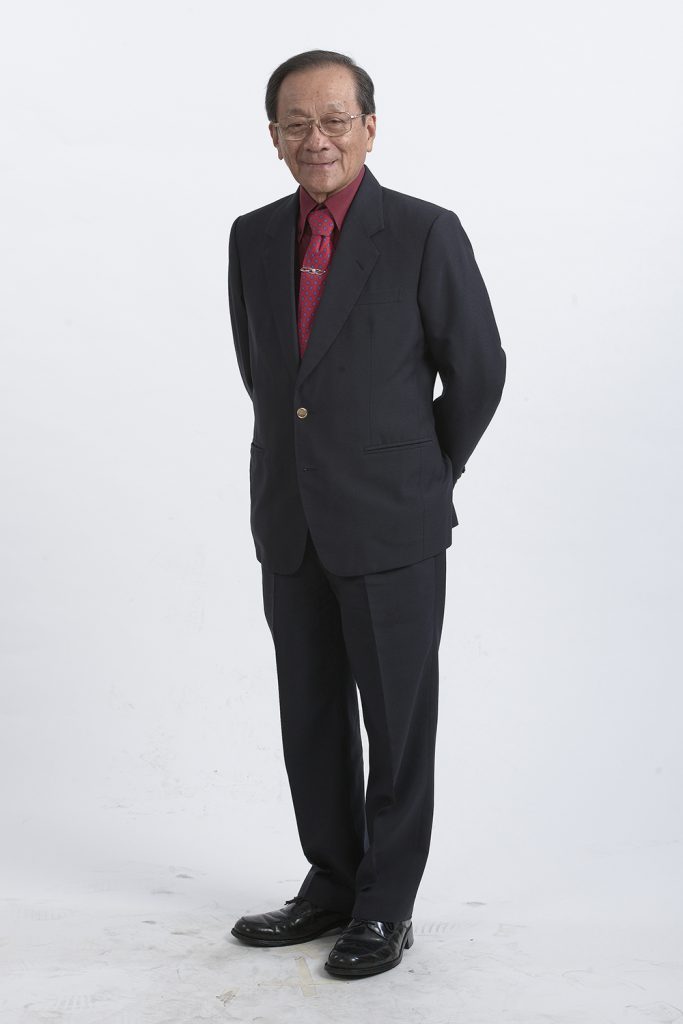
Professor Lim Chong Yah was an eminent economist whose profound impact on the field of economics in Singapore and beyond will be remembered for years to come. His dedication to applied research and his passion for teaching set him apart as a truly remarkable academic.
One of the most noteworthy aspects of Prof Lim's career was his commitment to conducting research that was not only academically rigorous but also had real-world implications. He understood the importance of bridging the gap between theory and practice, and he consistently sought to apply economic principles to solve practical problems. He was widely recognised as one of the foremost experts on the Singapore economy. In the 1980s he led study groups on the Central Provident Fund and on development options for the Singapore economy; their published findings have influenced policy-making. (FOOTNOTE to the two cited publications below.)
He was the founding chairman of the National Wages Council, set up in 1972, and continued to helm the organisation for almost three decades. This council is a tripartite advisory body comprising representatives from government, trade unions, and employers, and is charged with formulating guidelines on wage policy. It played a major role in ensuring smooth industrial relations and wage adjustments, thus contributing very significantly to Singapore's record of almost uninterrupted economic growth.
In addition to his groundbreaking research, Prof Lim was a gifted educator. His ability to convey complex economic concepts in a clear and accessible manner made him a beloved professor among his students. His passion for teaching was evident in his lectures, which were engaging, thought-provoking, and inspiring. Many of his students credit him as a pivotal influence in their academic and professional journeys, with his guidance shaping their careers in academia, as well as in the public and private sectors.
Prof Lim's impact on the field of economics extended beyond his individual contributions. His dedication to fostering the next generation of economists led to the establishment of the Lim Chong Yah Professorship in Arts and Social Sciences, ensuring that his legacy will continue to inspire future generations of scholars. This professorship serves as a testament to his lasting influence and the high regard in which he was held by his peers and the academic community.
The loss of Prof Lim Chong Yah is deeply felt, not only by his family, friends, and colleagues but also by the broader academic community in Singapore and beyond. While we mourn the passing of this exceptional economist, let us also celebrate his life and the enduring legacy he has left behind. Prof Lim Chong Yah's contributions to economics, both in terms of his research and his mentorship, will continue to inspire and guide future generations of economists. His unwavering commitment to making a meaningful impact on society serves as a lasting reminder of the potential of economic knowledge to shape the world for the better.
Prof Lim served as FASS Dean from 1971 to 1977, and headed the NUS Department of Economics and Statistics from 1977 to 1992. Under his leadership, the department became the largest economics department in the Asia-Pacific region, and introduced master’s and doctoral programmes. In 1980, he became a senior professor at NUS, when the University of Singapore merged with Nanyang University to form the National University of Singapore (NUS). In May 1992, he joined NTU to become a professor of economics and, in September 1992, he was named professor emeritus at NUS.
References:
* "Report of the Central Provident Fund Study Group." Singapore Economic Review 31.1 (1986).
* "Policy Options for the Singapore Economy." McGraw-Hill (1988).
Competition and the Environment: Less Willing to Fight On When the Air is Hot or Dirty
IN BRIEF | 5 min read
- A study by NUS Economics faculty Alberto Salvo, Haoming Liu, and Jingfeng Lu has found that heat and pollution significantly impact the play strategy of professional tennis players.

| By Associate Professor Alberto Salvo |
In popular outdoor sports competitions, players, fans, and advertisers have to contend with an ambient environment of varying quality that is hard to predict weeks or even days in advance. The environment may deteriorate, for instance, because it is unseasonably hot, or due to the build-up of air pollution from excessive use of fossil fuels that calm winds have failed to clear.
In research published last month, my colleagues Haoming Liu, Jingfeng Lu, and I ask how heat and pollution impact the strategy of professional athletes. These super-achievers are at the top of their game – they are highly skilled, fit, and disciplined. In short, these individuals are adept at the physical, emotional, and strategic aspects of their sport.
To understand the relationship between the environment and the strategy of professional contestants, we looked at Women’s Tennis Association (WTA) tournaments held in Melbourne in the summer, when the weather can get very hot, and in varying cities and seasons in China, with air that can be loaded with particle pollutants.
The 2004-2016 matches we studied are singles, “matching” two opponents. The matched players are often of similar ability, as inferred from betting markets and WTA rankings. As play starts, each competitor has a similar chance of winning and taking the prize money, which makes the confrontation all the more exciting for fans and lucrative for sponsors.
These tennis matches are played as “best of 3” contests. The players fight over three successive sets, each lasting almost one hour. The winner of the match is the player who first wins two sets. So, a third set (“best of 3”) is disputed only if after the second set the playing field remains level, each player having secured one set.
A protracted contest that is fought over three sets, instead of two, can raise the duration of play by over 50 per cent. We hypothesised that players would be less willing to play over three sets, and “get it over in two”, particularly when playing in the heat or in light haze.
An alternative possibility, voiced by a WTA spokesperson, was that a degraded environment would not change the likelihood that players put up a fight over three sets. While heat and pollution might make players more tired, they would be equally tired, so the tightness of the competition might not change.
The intriguing fact we uncover lends weight to the first hypothesis. When the weather is cool and the air is clean, there is a 45 per cent chance that spectators and advertisers are treated to a prolonged competition, in which one player gets ahead but her similarly able opponent fights back and takes the match to a nail-biting third set.
Now add heat or pollution to the picture and the probability that fans and sponsors enjoy a lengthy contest drops precipitously, by about 15 percentage points to 30 per cent.
So an almost 1 in 2 chance of a really exciting spectacle drops to a 1 in 3 chance.
Our interpretation is that sports professionals are calculating individuals, at every turn balancing the expected returns from staying in the game against the cost of exerting effort, including the likelihood they suffer an injury and retire for the season.
A player who is paired against an opponent of similar skill may, for fortuitous reasons, start out by losing the first set. She would then ponder: How much should I fight to try to level the score in the second set and take this encounter to yet a third tough set?
As the environment deteriorates, this calculation shifts even more in favour of the player who starts out winning, a process known as momentum. Her unlucky opponent feels that it is just not worth fighting back as much, only to stay longer in those harsh conditions in an unclear attempt to win the contest.
Therefore, the player who falls behind now volleys the ball back (sponsors and fans would not simply let her walk out) and gets the contest over and done with. Fans, hot-dog sellers, and TV advertisers will have to wait another day for an exciting contest.
We are able to quantify how heat and pollution change the willingness to fight on. For example, raising the temperature from 27 to 37 Celsius reduces a contestant’s expected payoff by US$670. The details can be found in the open-access article here.
What we learn from the tennis court has implications beyond an outdoor sports industry that enjoys a protracted competition. The strategic behaviour applies equally to other competitive ‘tournaments’ where we observe ‘players’ deciding to settle early as the competitive environment – natural, corporate, or regulatory – deteriorates.
Take a corporate office for example. The management often puts job promotion candidates through projects, tasks and challenges that test their ability, akin to a multi-stage competition similar to tennis tournaments. In that situation, difficult working conditions which can be both physical and emotional can blunt candidates’ incentives to fight on and compromise the organisation’s ability to identify the most suited candidate for promotion.
In tennis, with contestants who by chance fall behind deciding to throw in the towel, the player with the head start wins, but society – tennis fans, sponsors, and TV advertisers – can lose out.
All the more reason to protect our precious environments.
About the Author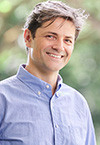 Alberto Salvo is Associate Professor, Dean's Chair, and Deputy Head for Research with the Department of Economics at the NUS Faculty of Arts and Social Sciences. He studies how the behaviour and incentives of economic agents, such as households, workers, and firms, interact with scarce environmental resources, such as climate, urban air, and water. Beyond NUS, Assoc Prof Salvo is a co-editor at the Journal of the Association of Environmental and Resource Economists.
Alberto Salvo is Associate Professor, Dean's Chair, and Deputy Head for Research with the Department of Economics at the NUS Faculty of Arts and Social Sciences. He studies how the behaviour and incentives of economic agents, such as households, workers, and firms, interact with scarce environmental resources, such as climate, urban air, and water. Beyond NUS, Assoc Prof Salvo is a co-editor at the Journal of the Association of Environmental and Resource Economists.
This story first appeared in NUSnews on 30 June 2023.
10 Singapore Youths win Recognition at Inaugural Awards for Efforts in Conservation, Environmental Causes
IN BRIEF | 10 min read
- FASS alumna Pamela Low (NUS Economics ’18 ) and nine other Singaporeans under 35 received the inaugural 10 for Zero Awards conferred by the Singapore arm of US-based non-profit Conservation International for the social and environmental impact of their work, and influence on the community to work towards a zero-waste future.
Click through image below to read this piece.
This article first appeared in TODAY and NUSNews on 30 May 2023.
Acing with Grit and Grace: TeamNUS flies Singapore’s Flag High at SEA Games 2023
IN BRIEF | 5 min read
- The strength and grit displayed by the TeamNUS athletes at the 32nd Southeast Asian (SEA) Games, and the excellence and camaraderie they showed on the regional sporting stage, pulled off 23 podium finishes consisting of 11 gold, two silver and 10 bronze medals.
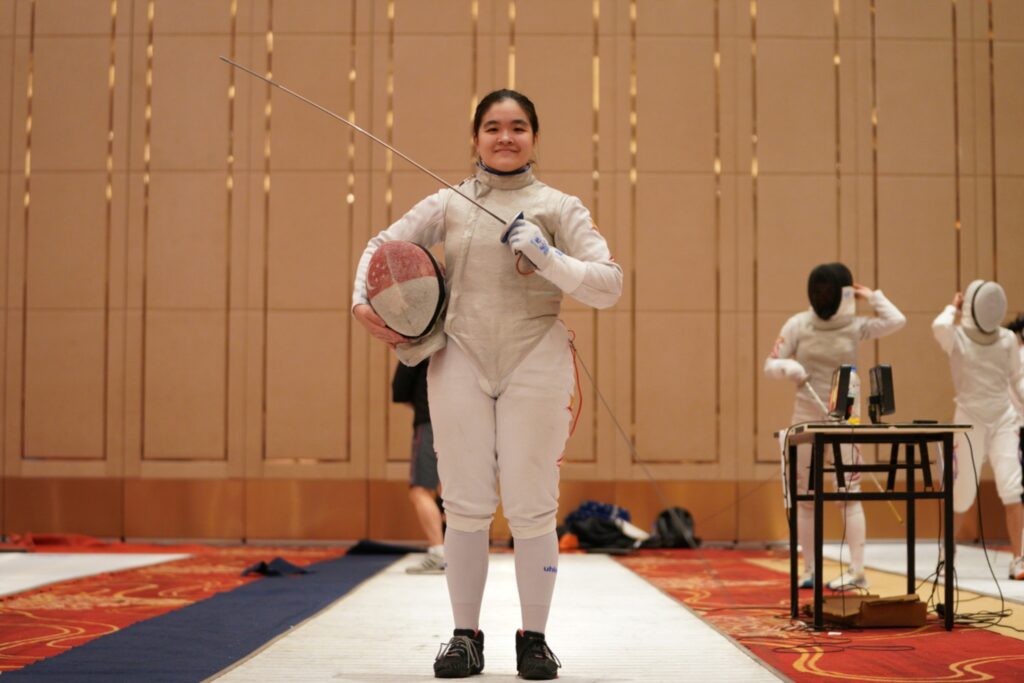
The 32nd Southeast Asian (SEA) Games came to a close last week, marking the end of a stellar showcase of sporting action and excellence from the region. Held in Cambodia, this year’s games saw a bumper crop of 59 representatives from TeamNUS, comprising 33 students and 26 alumni, who were part of the excellent outing by the 558-strong Singapore contingent that brought home the nation’s landmark 1,000th SEA Games medal.
TeamNUS athletes took part in a wide range of events ranging from athletics to aquatics, cricket, fencing and wushu, amongst others. The strength and grit displayed by the TeamNUS athletes, and the excellence and camaraderie they showed on the regional sporting stage, pulled off 23 podium finishes consisting of 11 gold, two silver and 10 bronze medals.
Double-gold joy for national fencer
For national fencer Maxine Wong (Year 3, NUS Economics), it has been a hectic road to the SEA Games with the preceding weeks full of training and competitions overseas, and then a stop back in Singapore for her university exams in May, before heading off to Cambodia.
Undaunted by her relentless schedule, Maxine gave it her all and brought home a gold medal, her first of two, in the Women’s individual Foil event. This was also Maxine’s first individual gold medal at the SEA Games. She then returned to the piste with her team mates a few days later to bring home a second gold medal in the team Foil event, contributing to a much-lauded performance by Team Singapore fencers at this year’s games.
“I am very proud to represent Singapore at my third SEA Games,” said Maxine. “I am also very happy and thankful to have achieved my personal goal of winning double gold in both the individual event and the team event!”
“It has not been easy, especially juggling studies and training and travelling, but it was all made possible with the support from my coach, my mother, my family, and Fencing Singapore,” she added.

With Strength and Confidence
Joining Singapore’s gold medal haul was wushu athlete Kimberly Ong (Year 1, NUS Law), who clinched the top prize in the women’s daoshu and gunshu combined event. Coming into the games as the defending champion in this event, Kimberly admitted to feeling nervous about retaining her crown. However, the nerves did not get the better of her and she brought home the gold medal again with a strong and confident display.
It was a remarkable achievement for the athlete who had undergone surgery just a few months prior to remove a cyst from her womb. She also joined her fellow teammates to clinch a second medal, a bronze, in the women’s duilian team event several days later.
“This SEA Games has been extremely rewarding and eye-opening for me,” Kimberly shared. “Especially with the many challenges I faced along the way like having to undergo surgery, continue training and balancing my studies at the same time, this victory feels extra sweet and I will cherish it for a long time!”

Bringing their A-game to the field
The recent years have been a tough period for the national cricket team, who have faced various challenges including the lack of an adequate space for training. Despite this, they triumphed against the odds to achieve three podium finishes at this year’s games. TeamNUS cricket players Aahan Gopinath Achar (Year 3, NUS Business), Avi Dixit (Year 4, Yale-NUS College) and Aman Desai (Year 1, NUS Computing) were right in the thick of the action playing their part in the team.
All three were part of the team which brought home bronze medals for the men’s T20 and T10 events. Avi was also part of the team which emerged victorious in the men’s Sixes.
“It feels amazing to be able to contribute to the medal tally for Singapore,” said Aman. “We are glad all the hard work and sacrifices that we had put in paid off very well, despite all the challenges we face at home.”
“All this would not have been possible without the sacrifices and support of our family, coaches and friends who have been behind us for more than half a decade now!” quipped Aahan.
Congratulations to all our NUS student and alumni athletes who have continued to fly Singapore’s flag high! Find out more on the list of participants and medal tally below.
This story first appeared in NUSnews on 25 May 2023.
Tackling Population Challenges? Be Bolder, says Ho Kwon Ping
IN BRIEF | 10 min read
- The 1st SR Nathan Fellow of the Institute of Policy Studies (Lee Kuan Yew School of Public Policy), prominent businessman and FASS alumnus Ho Kwon Ping (Economics, History and Political Science, '78) suggests that Singapore's large transient community of foreign workers could be a future source of permanent residency or citizenship.’.
Click through image below to read this piece.
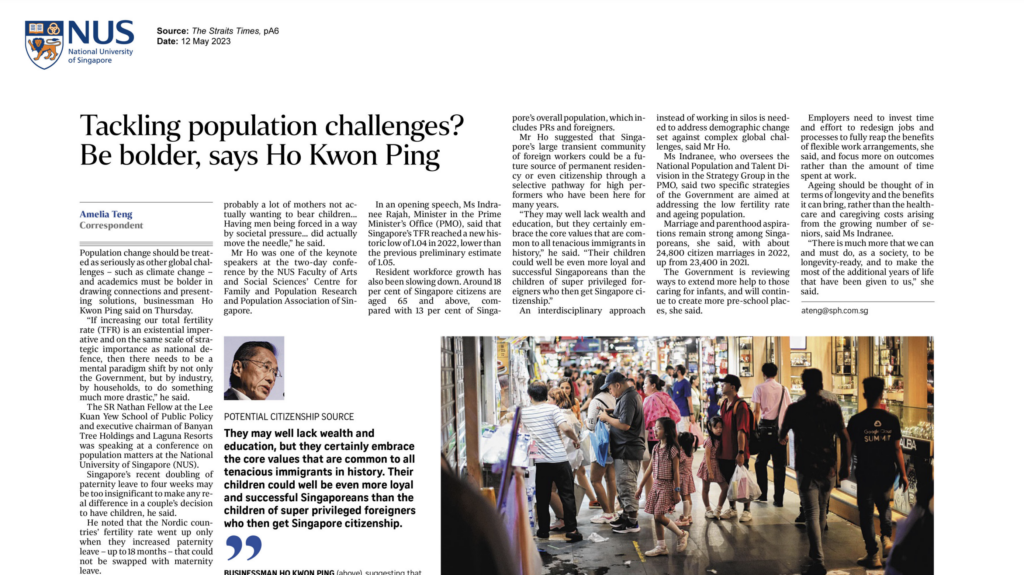
This article first appeared in The Straits Times on 12 May 2023 and NUSNews on 11 May 2023.
FASS Honours Alumni for their Profound Impact on Community and Nation
IN BRIEF | 8 min read
- This year’s honourees are Mrs Elizabeth Sam, a prominent banker; Mr Othman Bin Haron Eusofe, an influential unionist; Dr S Vasoo, a passionate social worker; Mr Benny Lim, a dedicated civil servant and policymaker; and Mr T. Sasitharan, a celebrated actor and respected voice in arts and culture – all of whom have dedicated their careers and lives to service and community in different ways.

The NUS Faculty of Arts and Social Sciences (FASS) paid tribute to five outstanding alumni for their service and contributions in various capacities towards Singapore’s nation-building, and the growth of the University and Faculty, at the recent 2022 Distinguished Arts and Social Sciences Alumni Awards (DASSAA) dinner.
The DASSAA was established in 2015 to recognise individuals who have made significant contributions to the nation and community, and dedicated their lives to the betterment and promotion of the arts and social sciences. Each of them played important roles in many areas, whether it was in shaping domestic and international policies, the business landscape, the creative environment, or in improving the lives of those around them.
This year’s honourees are Mrs Elizabeth Sam, a prominent banker; Mr Othman Bin Haron Eusofe, an influential unionist; Dr S Vasoo, a passionate social worker; Mr Benny Lim, a dedicated civil servant and policymaker; and Mr T. Sasitharan, a celebrated actor and respected voice in arts and culture – all of whom have dedicated their careers and lives to service and community in different ways.
Speaking at the awards ceremony, NUS Provost Professor Aaron Thean said, “The Faculty has honoured many alumni who have played important roles in many areas, be it in the shaping of local and international policies, the business landscape, the creative environment, or in improving the lives of NUS FASS students and beyond. The achievements of its graduates are one of the best testimonies to the work done by the Faculty.”
“The five outstanding FASS alumni who will be presented with the Distinguished Arts and Social Sciences Alumni Awards 2022 have excelled in their respective fields in public service, politics, finance, education and the arts. Their contributions to Singapore and their continued passion for what they do serves as an inspiration to many of us, especially to the FASS students who will follow in their footsteps and create their own legacies,” he added.
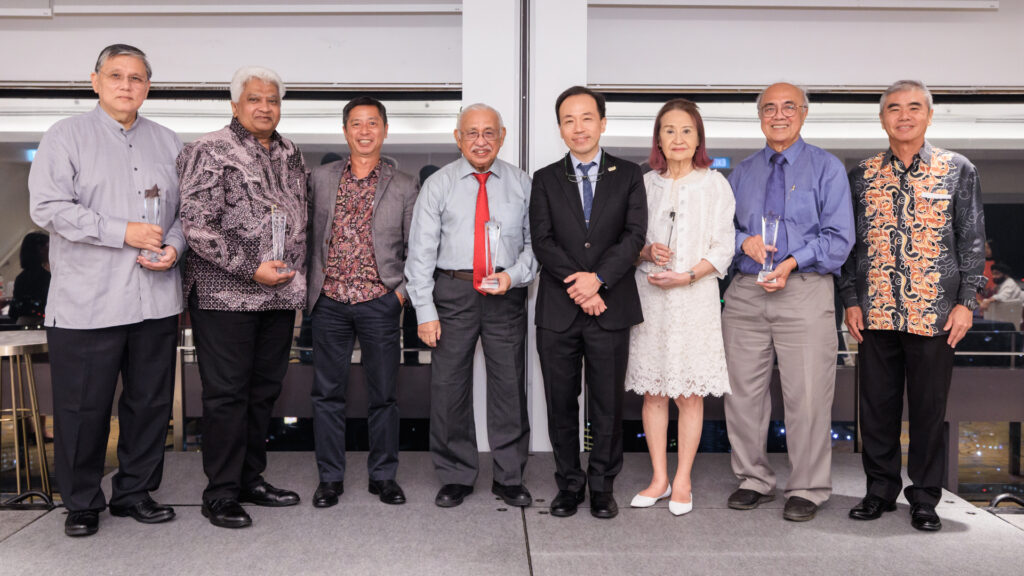
Inspiring the Next Generation of FASS Students
Mrs Elizabeth Sam is one of Singapore’s best-known female bankers. Her career spanned over 40 years, with the first half of it in the public sector where she played a key role in the growth of Singapore as a global financial centre. In 1996, Mrs Sam was awarded the Public Service Star (BBM), Republic of Singapore, for her contributions to the nation’s development as a global financial centre. The following year, she was recognised as one of the top 50 outstanding women globally in finance by Euromoney.
Currently a member of the Presidential Council for Minority Rights, Mr Othman Bin Haron Eusofe graduated with a Bachelor of Arts (Honours) from the then University of Singapore in 1964. He was a Founder Member of Yayasan Mendaki which was established in October 1982 to introduce programmes to help Malay students to improve in their educational performance. He continues to serve on the Mendaki Council. Mr Othman was also a key member of the NTUC team on the National Wages Council, and served on several Statutory Boards including the Public Utilities Board and the Civil Aviation Authority of Singapore.
Dr S Vasoo, Emeritus Professor in the NUS FASS Department of Social Work, has authored several monographs on social issues and has published various such articles both internationally and locally. He recently co-edited a book, “Singapore Ageing: Issues and Challenges Ahead”. He was awarded the Honorary Life Member of the Singapore Association of Social Workers for his outstanding contributions to social work in Singapore.
Mr Benny Lim is Chairman of the National Parks Board and the Chairperson of the Housing & Development Board. He is also Special Advisor to the Centre for Liveable Cities as well as Special Advisor to the National Security Studies Programme at the S. Rajaratnam School of International Studies (RSIS) at the Nanyang Technological University. He is also concurrently Chairman of Temasek Foundation CLG and Chairman of Temasek Lifesciences Laboratory IPC. Mr Lim started his career in the public service as a police officer, and went on to develop an illustrious career in the public sector, holding prominent roles in the Ministry of Home Affairs, Ministry of National Development and the Prime Minister’s Office, amongst others.
Mr T. Sasitharan, or more fondly known as Sasi to the arts community in Singapore, is widely acknowledged as one of the foremost thinkers and contributors to the development of the local arts scene. A former Philosophy teacher and arts journalist, Mr Sasitharan is a respected voice in discourses on arts and culture. His essays, commentaries and reviews, on the place of the arts in society, the value of culture, actor training, arts education, theatre criticism, aesthetics and creativity, have been published internationally while his speaking engagements have been at universities, conferences and arts forums around the world.
Congratulating the 2022 DASSAA recipients for their achievements, FASS Dean Professor Lionel Wee said, “Your achievements and your journey inspire the next generation of students who will follow in your footsteps. You have paved the way for them to build on your successes, to take risks, and to innovate in ways that will help make our world a better place. I want to congratulate each of the FASS Distinguished Alumni Award recipients. You have made your mark on the world, and you have done so with integrity, compassion, and a commitment to excellence.”
Read the full citation of the 2022 DASSAA recipients here.
This story first appeared on NUSnews on 10 May 2023.
NUS Researchers Propose Ways to Enhance Workfare for Low-income
IN BRIEF | 10 min read
- The research team – comprising Associate Professor Irene Ng of NUS Social Work, and Dr Ong EeCheng and Research Assistant Tan Zhi Han of NUS Economics – made their recommendations at a joint NUS Social Service Research Centre and Leap201 roundtable on 20 April 2023..
Click through image below to read this piece.
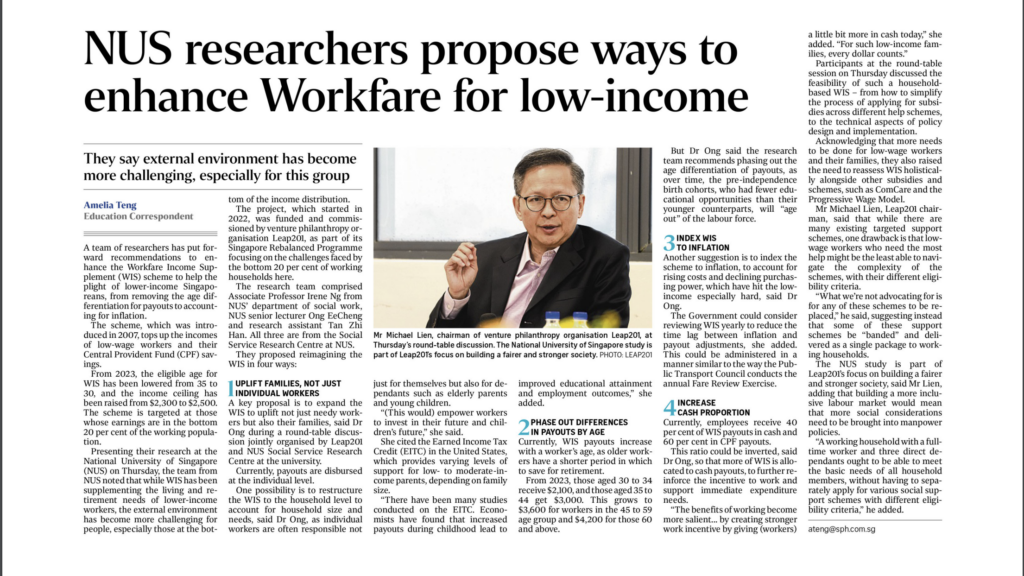
This article first appeared in The Straits Times and NUSNews on 21 April 2023.
Carbon Scorecards for Individuals, ESG and Supply Chain Resilience Take Spotlight at Wee Cho Yaw Business Forum
IN BRIEF | 5 min read
- This novel proposal is a possibility in a world where digital payments are becoming increasingly common, making it easier to track the items people buy, observed Alberto Salvo, Associate Professor in Environmental Economics and Associate Director at the National University of Singapore (NUS) Global Asia Institute.
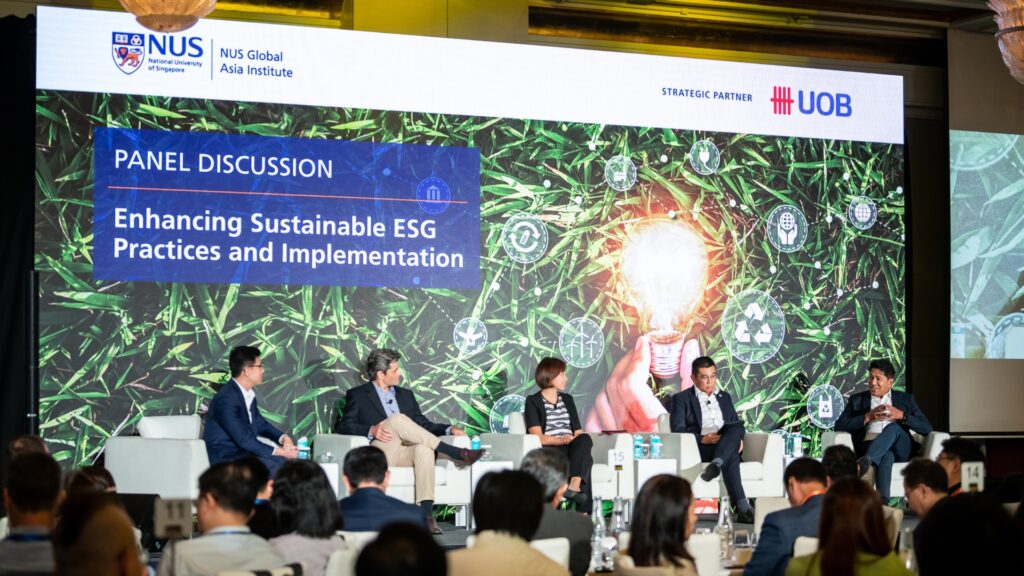
The world has a carbon budget, and corporations pay carbon taxes for greenhouse gas emissions. But what about holding individuals accountable too, and taxing them based on their carbon footprint?
This novel proposal is a possibility in a world where digital payments are becoming increasingly common, making it easier to track the items people buy, observed Alberto Salvo, Associate Professor in Environmental Economics and Associate Director at the National University of Singapore (NUS) Global Asia Institute.
“When I fill up the tank at Shell, getting 40 litres of petrol, or when I go to FairPrice and buy a kilogramme of beef, it’s conceivable that through my digital payment, the retailer would know my NRIC or my FIN, and report the quantities of my purchase to IRAS (tax authority), and the carbon content of those purchases,” said Assoc Prof Salvo.
Going by these purchases, a carbon scorecard could be calculated. For instance, beef tends to be a high greenhouse gas emitter. “If you switch out beef and (opt for) chicken, you are reducing the carbon emission by 80 per cent,” he noted.
In this vein, Assoc Prof Salvo supported the idea of a carbon scorecard as it would make people more aware of the environmental impact of their actions. “Our choices matter,” he stressed. “We are part of the problem, but also part of the solution.”
Different ways to go green
Assoc Prof Salvo was sharing his views during a panel discussion at the Wee Cho Yaw Business Forum, held at the Four Seasons Hotel Singapore on 17 March. Organised by NUS Global Asia Institute and supported by UOB, the forum was a platform for thought leaders to share perspectives and best practices on business-related issues. More than 240 people attended the one-day forum.
In line with the theme, Building Connected and Sustainable Organisations and Ecosystems, 10 experts from academia and industry shone a spotlight on topics such as environmental, social, and corporate governance (ESG) and supply chain resilience amid rising geopolitical tensions and climate change.
At agri-food company JAPFA, various things have been done to bolster sustainability efforts. “We issued a sustainability-linked bond in 2021, and it was three times oversubscribed,” said Mr Kevin Monteiro, its Executive Director and Chief Financial Officer.
The company also offers sustainability training to its top management as well as its financial controllers, and will be extending this to other staff in a bid to get everyone on board the green drive.
Some panellists also proposed policies they hope to see implemented to further spur sustainability.
The authorities could also grant “first movers” – firms that spearhead new ESG initiatives – certain advantages, added construction group Samwoh’s Chief Executive Officer Eric Soh.
Banks can also make a difference by offering incentives to companies to support them in their efforts to embrace sustainability within their organisations, suggested Mr Monteiro. He noted that the costs of going green could put off some businesses. “Organisations might have people that want to follow sustainability but cannot because of (the) ESG cost versus benefit.”
Supply chain resilience
Aside from issues involving ESG, the experts also pondered the future of supply chains.
“The world can never go back to where it was before the 2022 (Russia-)Ukraine War, the 2020 COVID-19 outbreak or the 2018 US-China trade war,” said keynote speaker Frederick Chin, UOB’s Head of Group Wholesale Banking and Markets.
He highlighted three themes businesses should note in these uncertain times: technology and innovation; ESG becoming mainstream; and opportunities in major economies such as ASEAN countries as supply chains are reorganised.
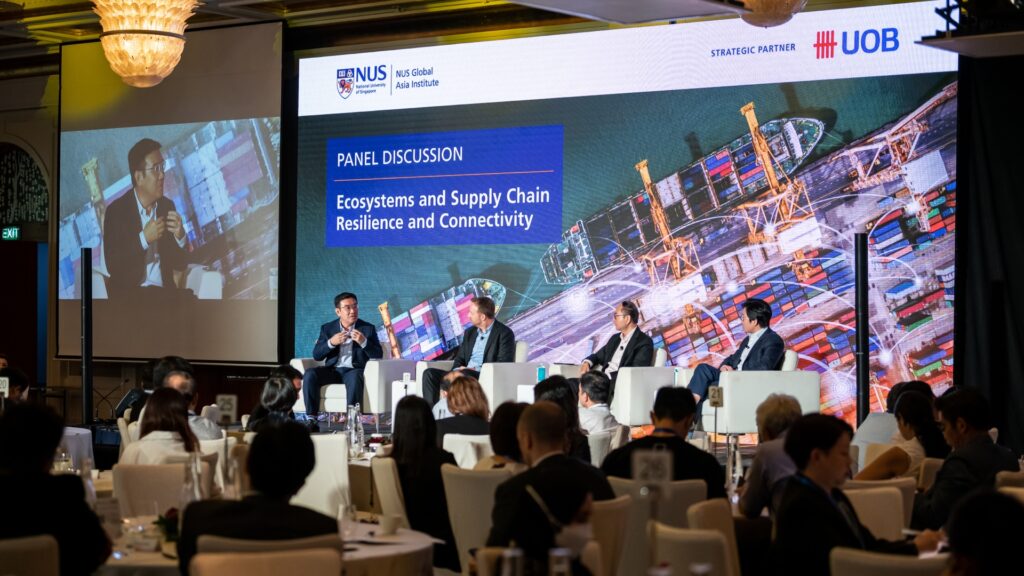
Panellists also spoke about the need for closer collaboration in supply chain management.
“The Holy Grail, so to speak, has always been ‘Can we have supply chain integration and sharing of information across the different parties in supply chain?’” said Associate Professor Goh Puay Guan from NUS, whose expertise lies in supply chain management and technology management.
In such a system, for instance, information across the supply chain might be tracked, gathered and updated in real-time, allowing firms to anticipate disruptions and plan ahead.
“Traditionally, that has been difficult for various reasons,” he added, citing costs as well as companies’ reluctance to share their data.
But things have changed over the last two to three years, as multinational companies become better at putting the idea of a “supply chain control tower” into practice, he noted.
Rising costs in the marine sector – from energy prices to logistics – was another issue addressed during the forum.
Add green energy considerations to the mix, and you have a perfect storm, suggested Mr Choong Sheen Mao, director of Equatorial Marine Fuel Management Services, a marine fuel logistics company.
“As the world goes green, it is creating a kind of hurricane to change the whole supply chain. How do we calculate costs, how do we review our businesses or find new ecosystem partners?... We feel a lot of pressure,” Mr Choong added.
This story first appeared on NUSnews on 28 March 2023.
NUS Open House: More than 7.7M Visitors Drawn to Action-Packed Showcase over 10 Days
IN BRIEF | 25 min read
- NUS Open House 2023 saw a strong showing by visitors eager to find out about the University’s academic programmes, as it returned in from 25 February to 6 March. Some 7.71 million visitors attended the physical and online showcase which involved 3,071 faculty and staff, students and alumni.
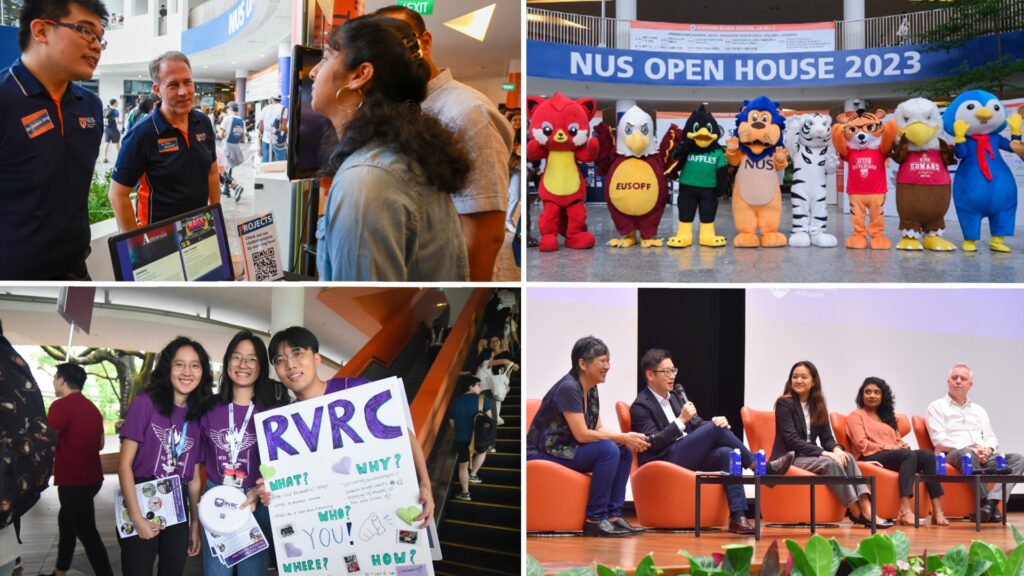
NUS Open House 2023 saw a strong showing by visitors eager to find out about the University’s academic programmes, as it returned from 25 February to 6 March. Some 7.71 million visitors attended the physical and online showcase which involved 3,071 faculty and staff, students and alumni.
Kicking off the 10 action-packed days were the informative virtual talks, webinars, and social media sessions. The on-campus event on 4 March saw packed crowds at the programme booths, talks, special classes, campus tours, student life performances and residential venues despite the heavy downpour. Prospective students gained valuable insights from faculty members, explored the University’s extensive global opportunities, as well as its diverse entrepreneurship platforms and lifelong learning courses, giving them a comprehensive overview of what NUS has to offer.
“I really enjoyed meeting the professors and students who are from the courses I'm interested in as I gained many insights from them on life in NUS and the various possibilities that are open for exploration,” said prospective student Karthika Warrier, an alumna from Raffles Institution who is considering applying to NUS Computing or the College of Humanities and Sciences (CHS).
Jasmine Chiam, an alumna from Nanyang Junior College (NYJC) who is interested in applying to CHS and NUS College, agreed. “The programme was well-run despite the fact that it was raining,” she said. “I felt that it was well-curated for students with different interests.”
A draw for many prospective students were CHS, the newly launched NUS College, and the College of Design and Engineering (CDE) – the University’s recent interdisciplinary pathways aimed at meeting the evolving demands of the workforce.
Addressing Shared Challenges with the Humanities and Sciences
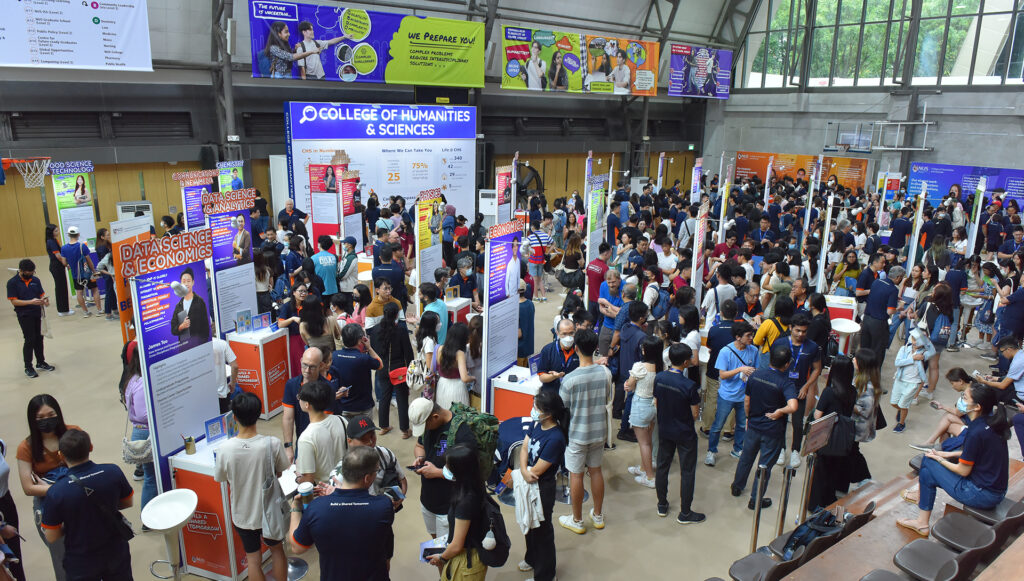
CHS, which provides an enhanced undergraduate experience for students of the Faculty of Science (FOS) and the Faculty of Arts and Social Sciences to pursue breadth and depth across academic disciplines, showcased its Common Curriculum throughout the Open House.
Currently accepting its third intake, it held talks on hot topics such as sustainability, food science and technology, and mental health to demonstrate how students can apply various perspectives to address complex real-world issues.
The panel entitled “Why Sustainability and Climate Change Matter” saw speakers from the Geography, Japanese Studies, Anthropology and English, Linguistics and Theatre Studies departments weighing in on the topic from their respective disciplines. Another session by the Department of Food Science and Technology explained how its programme applies principles from chemistry, biology, engineering and nutrition to address issues such as food safety and security, as well as the careers its graduates can pursue.
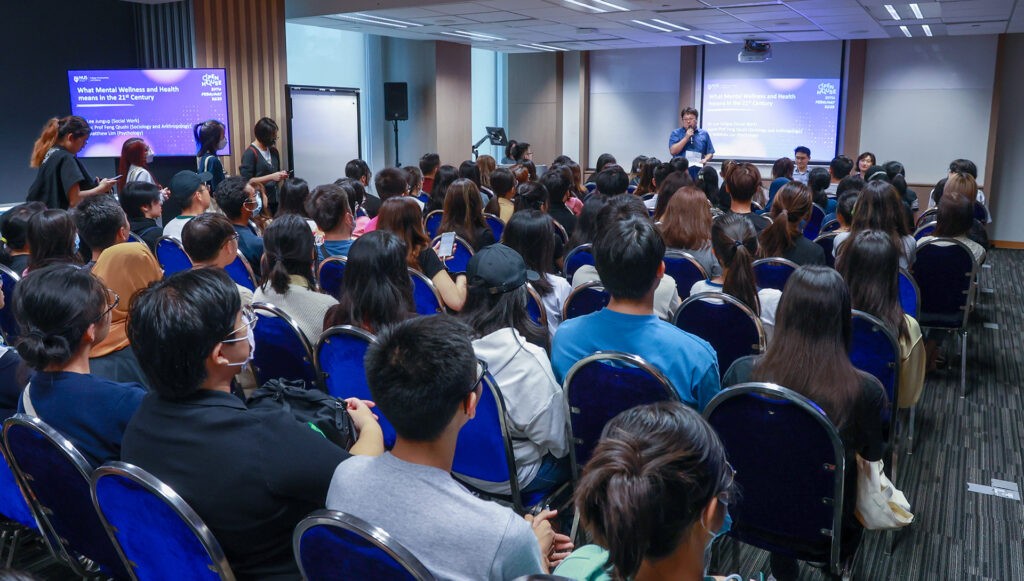
In the same vein, the panel “What Mental Wellness and Health Means in the 21st Century” saw speakers from the Social Work, Sociology and Psychology departments discuss perceptions of mental health in society. Dr Lee Jungup, an Assistant Professor in Social Work, pointed out the close relationship between social work and psychology. “Many of our Social Work students consider a double major with Psychology,” she said, noting that social work emphasises the practical while psychology is more theoretical and clinical in nature.
Jasmine, the NYJC alumna, said the various informative talks reaffirmed her decision to apply to NUS. “The NUS College tour as well as the CHS Common Curriculum sharing were particularly informative. They made the programmes seem quite appealing and I am looking forward to applying for both,” she said.
For some like Christian Chua, an alumnus from the NUS High School of Math and Science, attending the Open House talks helped clarify the career options available for the different programmes.
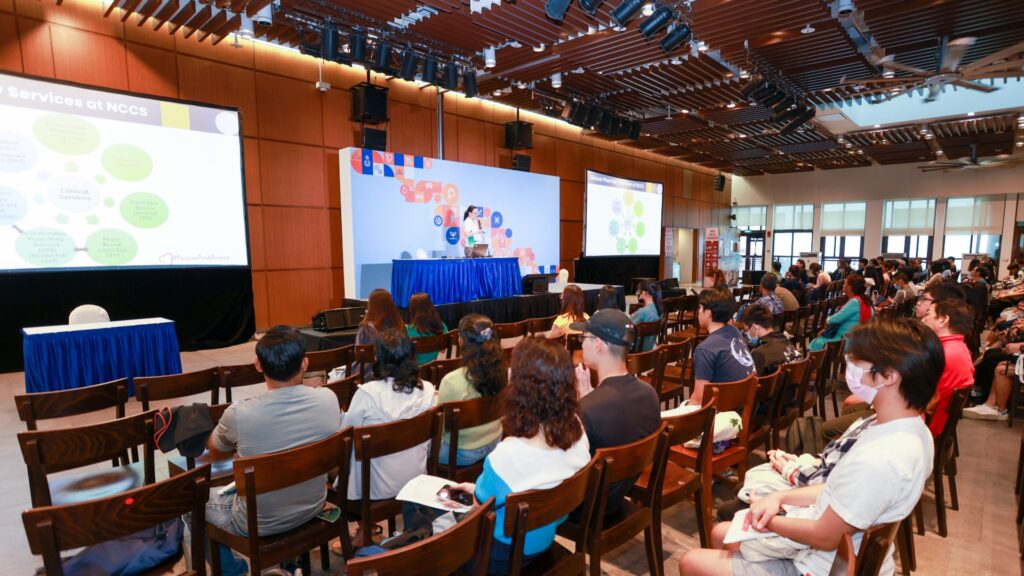
Christian, who is currently considering the Medicine, Pharmacy, and Pharmaceutical Science programmes, attended the Pharmacy talk and booth, where faculty members of different specialisations touched on the various career pathways and the collaborative practices of the discipline.
“It was useful that they discussed the different careers that Pharmacy graduates had gone into so I knew a degree in Pharmacy wouldn't just limit me to community or hospital pharmacy but also to the R&D, drug approval side, or the business side as well,” he said.
Shaping the Future of Design and Engineering
Meanwhile, there was action aplenty over at both the online and in-person Open House by CDE, which is accepting its second intake. Officially launched in November 2021, CDE was a merger of the Faculty of Engineering and the School of Design and Environment, ramping up the distinctive interdisciplinary experience at NUS.
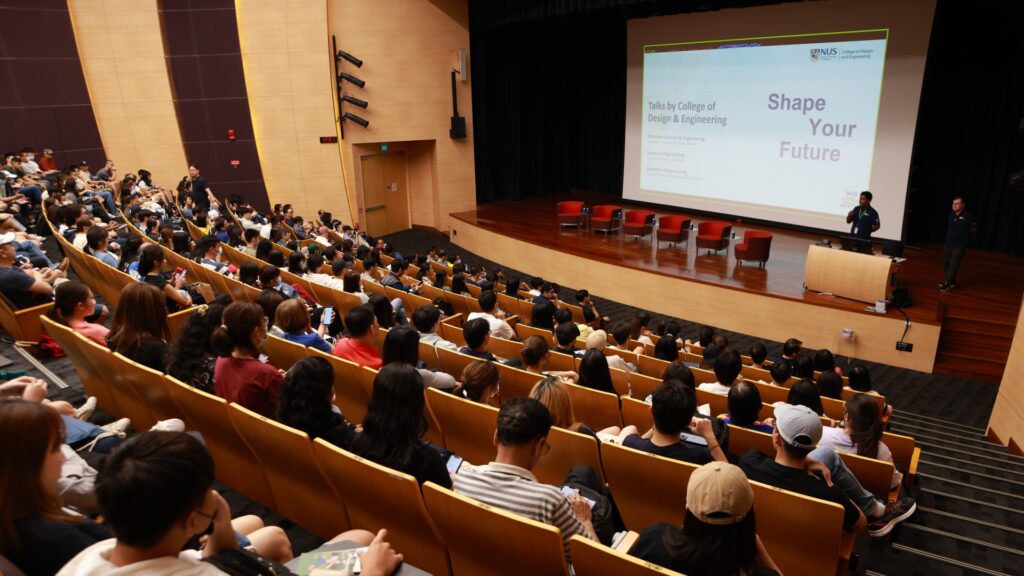
From the Common Curriculum and the multidisciplinary education model, to the Student Exchange Programme and future career prospects, CDE faculty and students shared their insights on a plethora of topics with prospective students.
The talks, such as the one on Biomedical Engineering, Chemical Engineering and Materials Science & Engineering, also provided valuable information. Prospective students learnt how undergraduates are exposed to a range of interdisciplinary topics with global-scale applications in class, and how NUS engineers are taking on the world’s biggest challenges, such as clean energy.
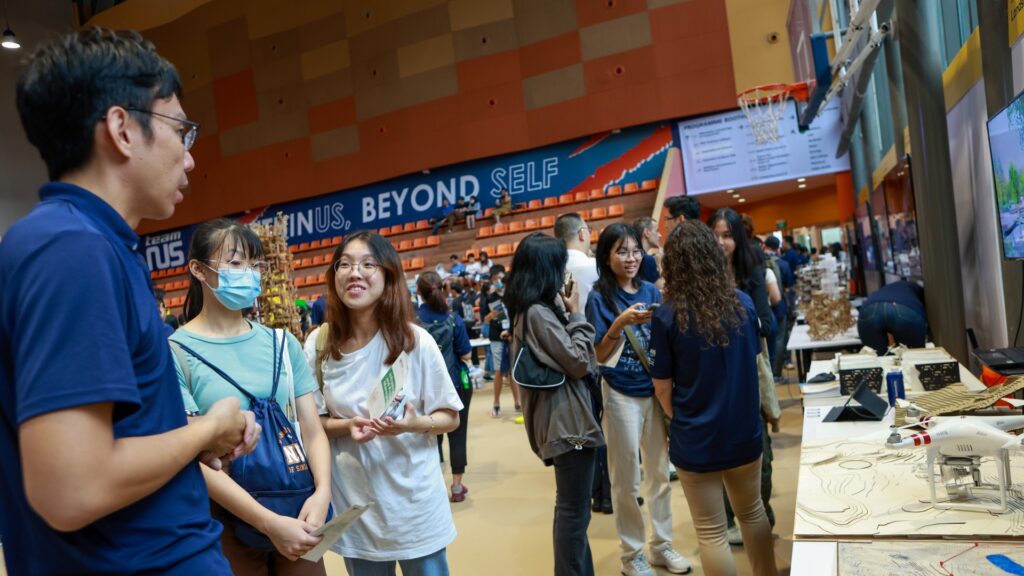
The talk on Architecture, Industrial Design and Landscape Architecture also saw a large turn-out. Discussing the breadth and depth of CDE’s curriculum, it touched on how students will be equipped to face the 21st-century challenges through their education in CDE.
Kaisyn, who is graduating from Nanyang Polytechnic this year, said, “I appreciated that they covered the basic skills and activities done throughout the curriculum. It allowed me to confirm that the Industrial Design course is relevant to my study and career plan.”
The in-person Ask-Me-Anything sessions with student panels also allowed participants to get their burning questions answered.
Tee Jia Hong, a graduate of Anglo-Chinese Junior College who intends to apply to Industrial and Systems Engineering (ISE) and attended the student sharing, said, “By listening to the experience from the ISE senior, I am able to get the hang of the academic and co-curricular prospect of being an ISE student.”
Over at CDE’s Rise of the Robots campus tour, participants were given a look at the Advanced Robotics Centre, which displayed projects such as an autonomous wheelchair, an artificial robotic arm, and a haptic feedback machine.
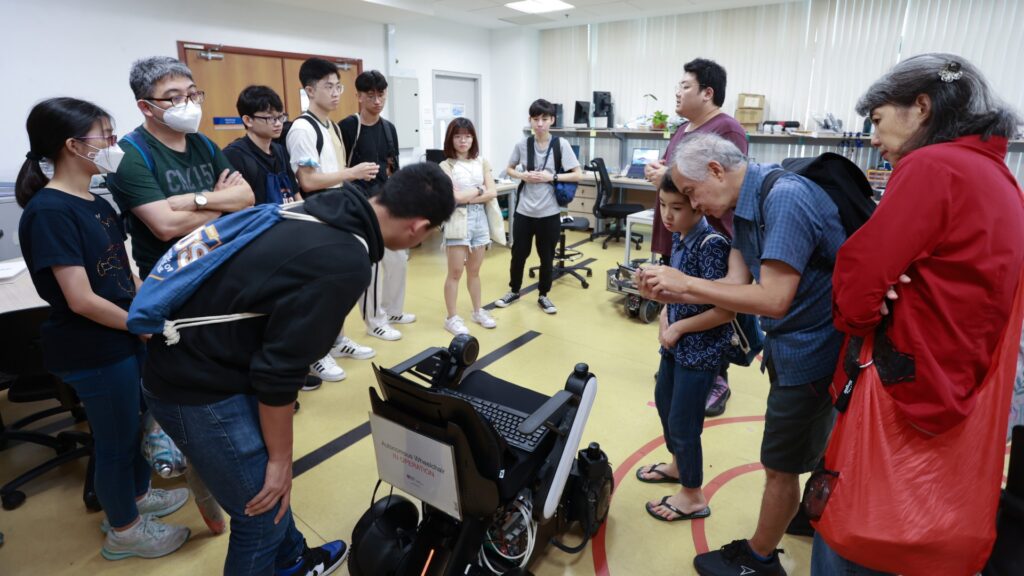
Robert Lim from Singapore Polytechnic, who attended the tour, said, “It was a memorable experience . . . I was able to learn more about what the courses have to offer and what undergrad students have accomplished in NUS.”
Exploring experiential learning
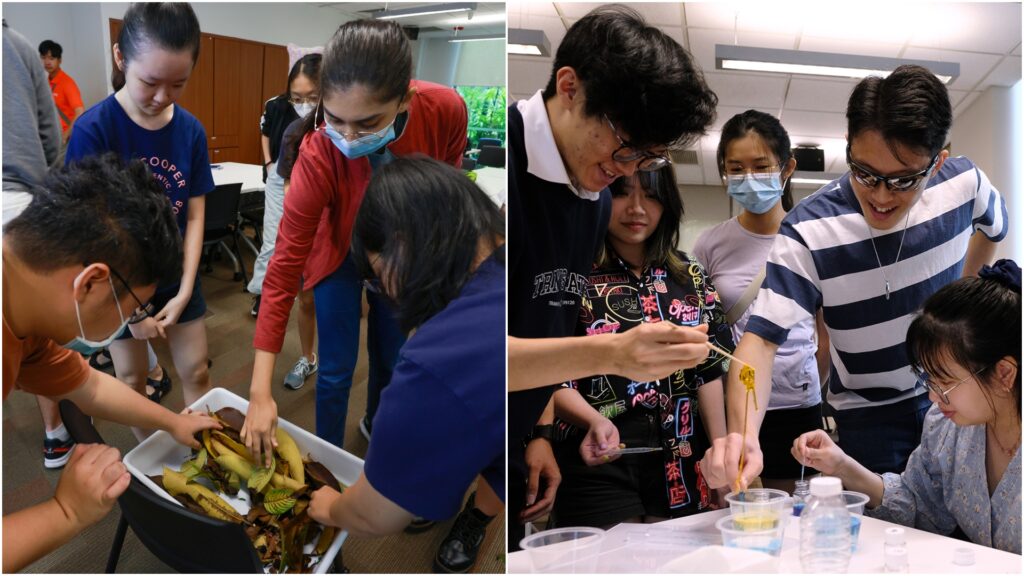
NUS College, Singapore’s first honours college, offered a glimpse of its flagship experiential learning programmes during its online and physical showcase. Faculty members highlighted the Impact Experience programme, where students develop solutions to real-world issues with community partners, and the Global Experience programme, which immerses them in global cities for specially curated courses and field visits based on specific themes.
The college, which is accepting its second intake, also held special classes for prospective students to get a feel of its small-group seminar-style lessons. Dr Ang Yuchen’s special class introduced his field course Biodiversity and Natural History in Singapore, which combines scientific concepts with the visual and language arts and environmental philosophy.
“I found the sample lessons useful in helping me not just get a sense of how lessons are conducted over at NUS College, but also how my potential Profs are like as teachers and facilitators,” said Eugene Teo, an alumnus of Raffles Institution, explaining that small, collaborative discussions was better suited to his learning style. Attending the Open House “also gave me a better understanding of the people I will be interacting with and the environment in which I would be studying in upon entering university life”, he added.
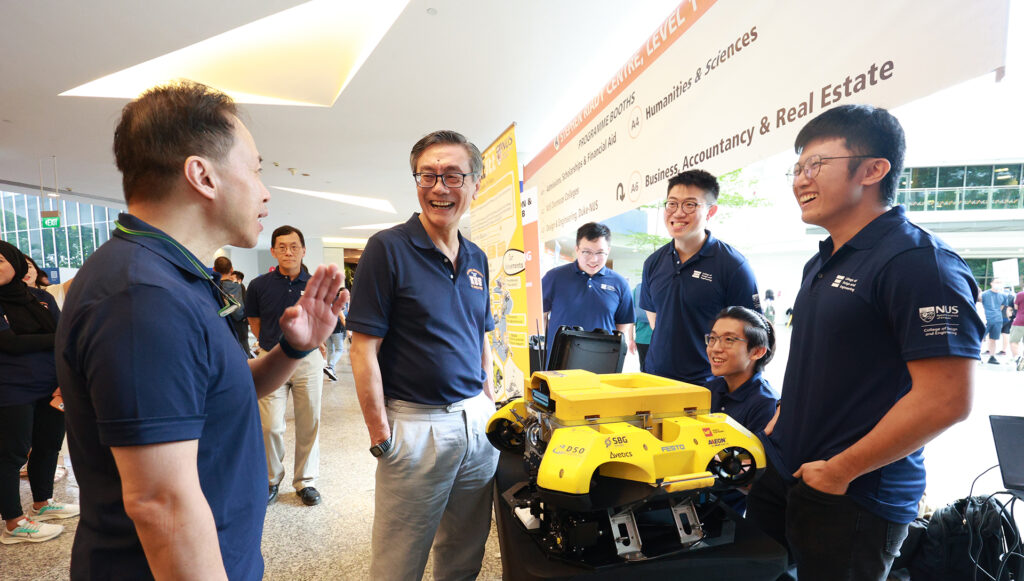
Interactivity was a prominent feature of the Open House. NUS Nursing offered visitors a chance to try basic wound treatment and resuscitation, while NUS Law held moot demonstrations at its Bukit Timah Campus.
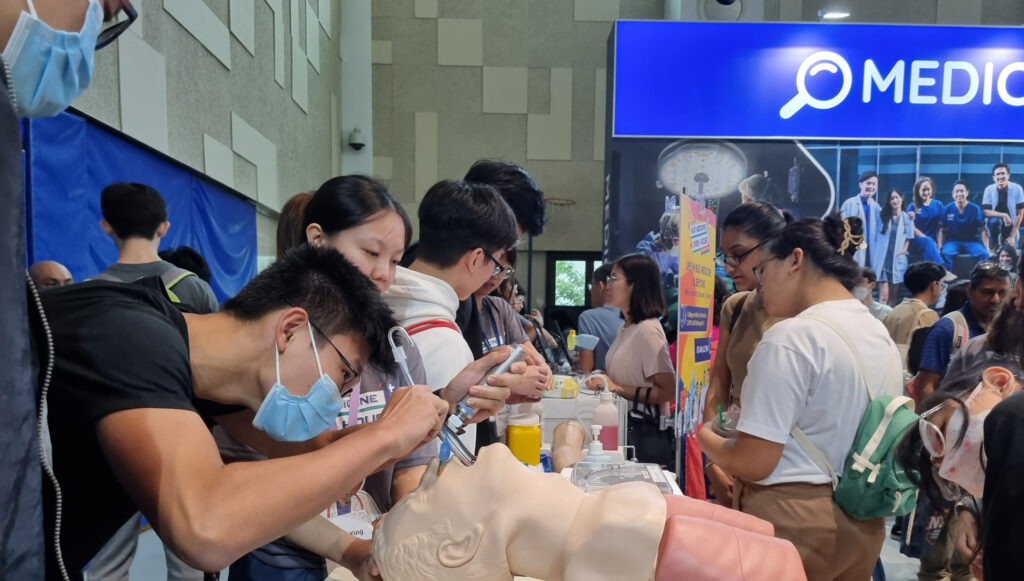 |
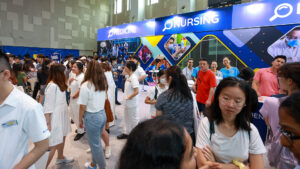 |
Aqirah Bte Azam, who will be graduating from Temasek Polytechnic in May, had the chance to see the Nursing students in action and attended a talk by its alumni. “Hearing their experiences in NUS and their careers have given me the courage to pursue my aspirations in nursing”, she said.
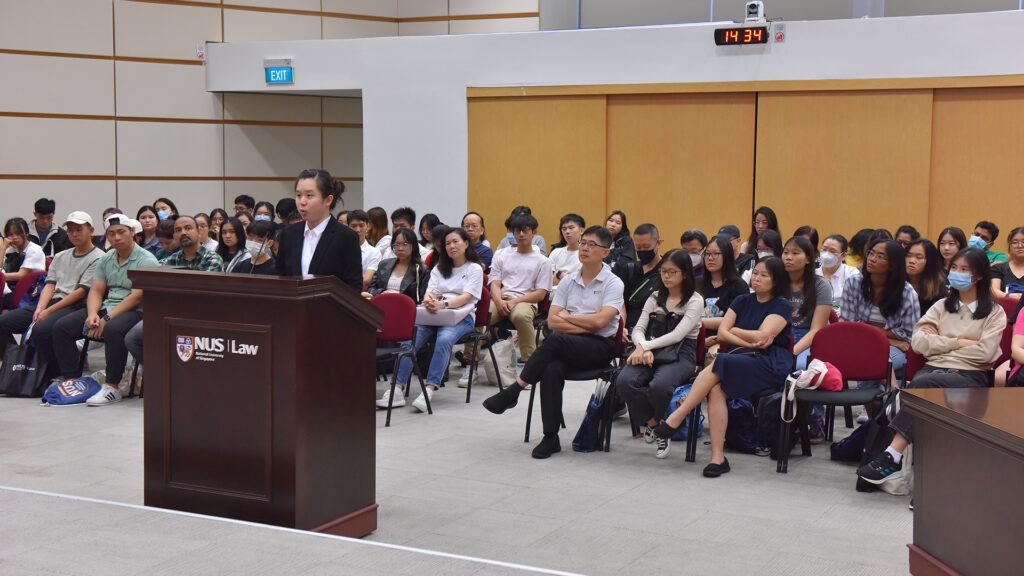
Smorgasbord of Student Life
Visitors also got a taste of the vibrant NUS student life on display. Student clubs and societies, as well as the Hall and Residential College (RC) interest groups, put their best foot forward at the Student Village.
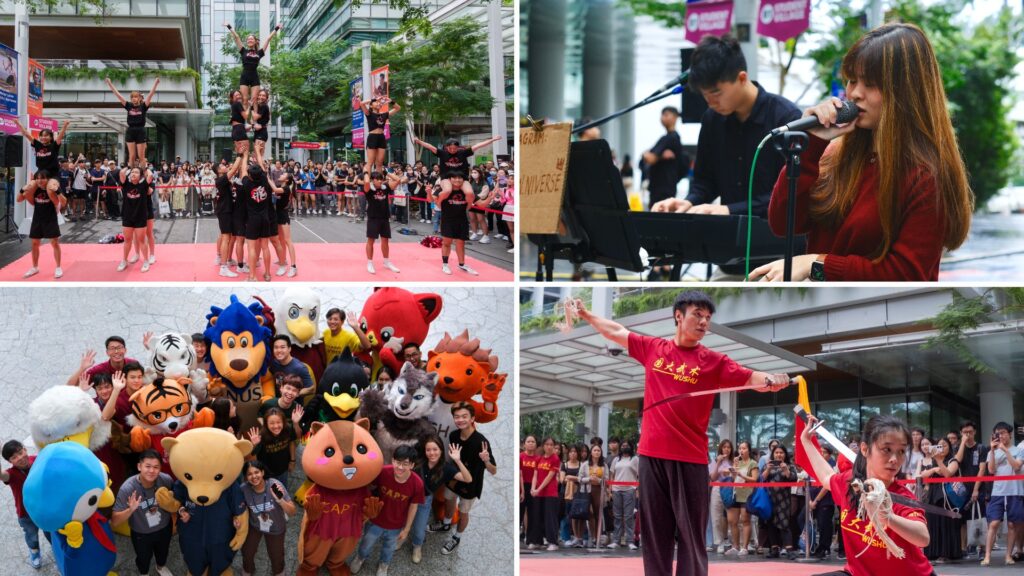
Visitors were wowed by the striking moves of NUS Wushu, the energetic cheerleading displays of King Edward VII Hall’s KE Titans, and the snazzy K-pop dance moves of the Korean Cultural Interest Group. They were also treated to renditions of catchy tunes from Mandopop group NUS CAC Voices, acapella group NUS Resonance, Raffles Hall rock and jazz band RHockerfellas, and many more.
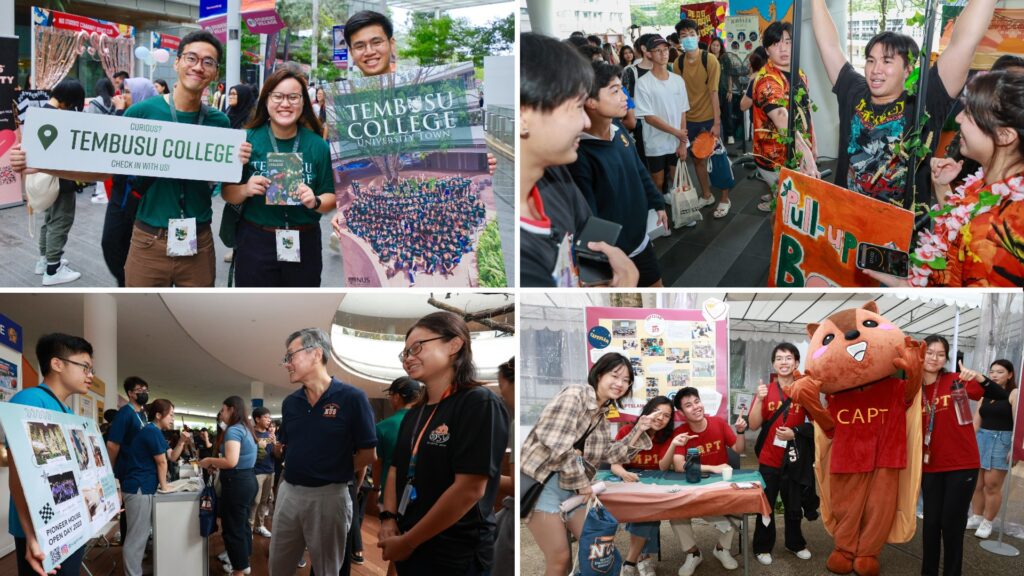
Representatives from the RCs, halls, and houses were present to offer prospective students the inside scoop on the on-campus experience. Complemented by A-Day-in-the-Life videos and 360° virtual tours, the booths, talks, and Ask-Me-Anything panels by student leaders gave participants a sense of the residential options at their fingertips.
“The House Life talk was the most enjoyable and informative event to me since the masters and students really explained to me what living in houses was like, while keeping us engaged through jokes and videos,” said Jia Hong.
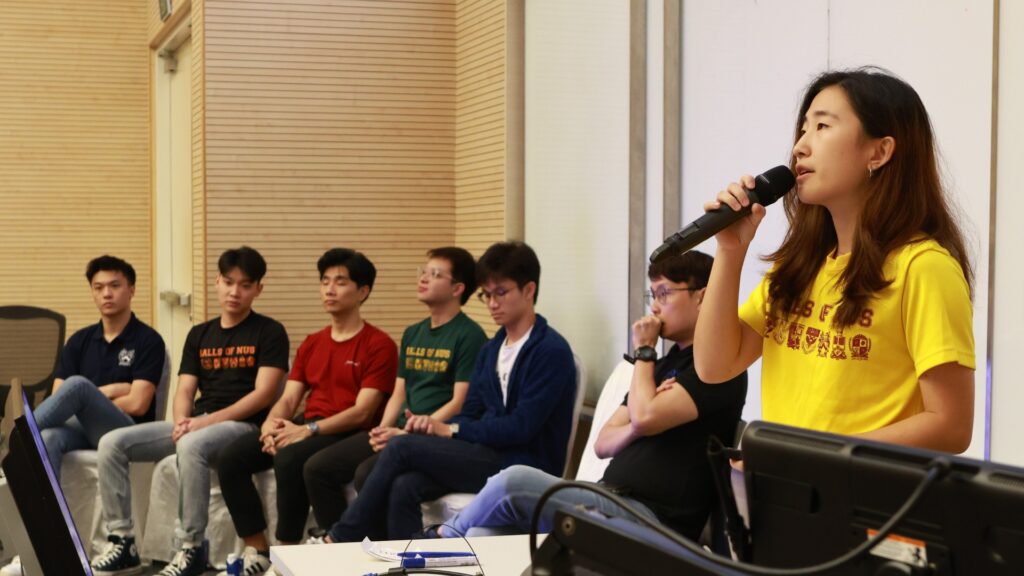
Charlotte Toh from Singapore Polytechnic, said the Halls talk helped her better understand the hall culture and admission criteria.
Guided in-person tours of the various halls and residences, such as King Edward VII Hall, Tembusu College, Ridge View Residential College, and Residential College 4, opened a window to the close-knit community of residential life.
Samuel Liu, who graduated from National Junior College, said, “The well-guided tours and booths set up for each RC that I visited gave me a good indication of which RC would be most suitable for my character and goals.”
This story first appeared on NUSnews on 9 March 2023.
FASS Inspiring Mentor 2022 Award Winners Announced

The NUS Faculty of Arts and Social Sciences is proud to announce the winners of the 2022 FASS Inspiring Mentor Awards.
Congratulations to:
- Assoc Prof Melvin Yap Ju-Min, Associate Professor, Department of Psychology
- Assoc Prof Robin Loon Seong Yun, Associate Professor, Department of English Language and Literature
- Dr Amazaki Osamu, Senior Lecturer, Centre for Language Studies
- Dr Natalie Pang Lee San, Senior Lecturer, Department of Communications and New Media
- Dr Kamalini Ramdas, Senior Lecturer, Department of Geography
The NUS Career Compass 2023
IN BRIEF | 5 min read
- Find out how the University has developed and broadened our curriculum to better prepare our graduates for the swiftly evolving workplace, and how interdisciplinary learning can help students solve complex issues in our society.

In collaboration with CNA938
How does NUS cultivate highly sought-after talents in the workforce of the future?
Find out how the University has developed and broadened our curriculum to better prepare our graduates for the swiftly evolving workplace, and how interdisciplinary learning can help students solve complex issues in our society.
This story first appeared on NUSnews on 23 February 2023.
CHS at NUS Open House 2023: Download the FASS Essentials on 27 February 2023
IN BRIEF | 10 min read
- On 27 February, get the full download on the essentials of academic programmes, student life, career preparation, overseas opportunities and financial aid at CHS via Zoom in the ‘virtual’ edition of CHS@NUS Open House 2023.
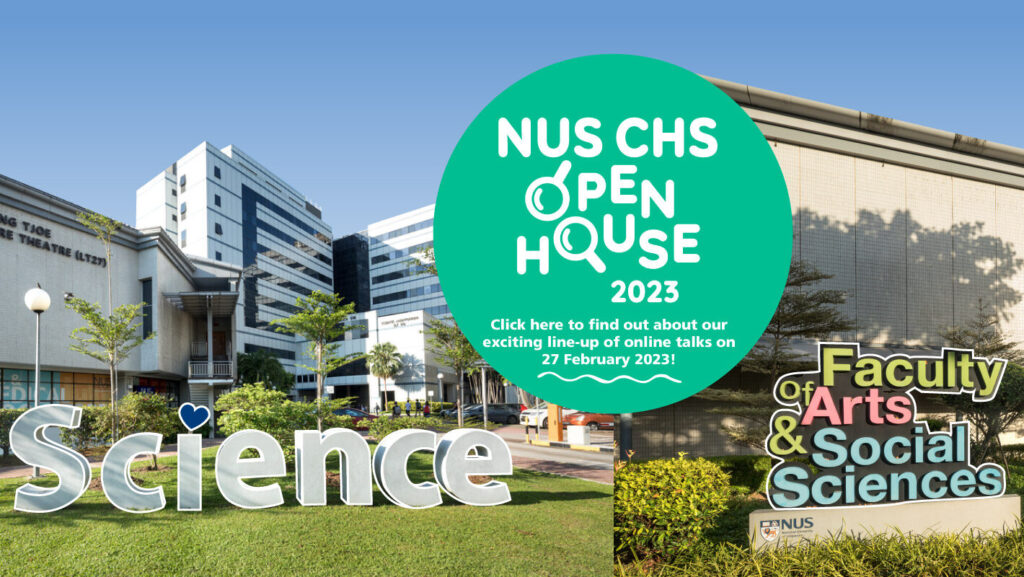
If you have not already marked your calendars for two dates with the NUS College of Humanities (CHS) during NUS Open House 2023, do it now!
On 27 February, get the full download on the essentials of academic programmes, student life, career preparation, overseas opportunities and financial aid at CHS via Zoom in the ‘virtual’ edition of CHS@NUS Open House 2023. Go to https://bit.ly/CHSatNUSOH2023-Virtual for the full 27 February programme.
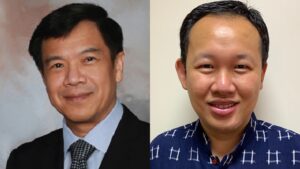
Then prepare to come on-campus on 4 March to engage with our award-winning faculty members, advisors and students to experience interdisciplinary education and explore your future vocation. Go to https://bit.ly/CHSatNUSOH2023-OnCampus for the full 4 March programme.
To help you plan your way through the lineup of FASS-specific talks and activities, read on for some of our highlights on 27 February 2023 that ought not to be missed.
Academics at the Forefront
The online edition of CHS@NUS Open House is meant to provide you with as comprehensive a briefing of what CHS, and its component Faculties of Arts and Social Sciences, and Science, have to offer students.
Academics is at the forefront and the day starts with a session devoted to the CHS Core Curriculum (9:00 – 11:00 am), a specially curated interdisciplinary programme that provides unprecedented freedom to choose the pursuit of breadth and depth across a broad spectrum of disciplines. This session will be led by Professor Sow Chorng Haur, Vice Dean (Outreach & Admissions), NUS Faculty of Science (FoS), and Dr Noorman Abdullah, Assistant Dean (External Relations & Student Life), FASS.
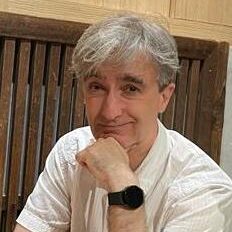
Associate Professor Luke O'Sullivan
The CHS Cross-Disciplinary Programmes
Three one-hour talks devoted to introducing Cross-Disciplinary Programmes (XDPs) offered by CHS will be running concurrently from 11:00 am. One programme FASS offers that embodies the concept of interdisciplinarity is the Philosophy, Politics, and Economics XDP, and the session for that will be led by Associate Professor Luke O’Sullivan (NUS Political Science) in discussion with fellow PPE Joint Programme Committee member, Dr Joel Chow (NUS Philosophy).
"This session is an opportunity to ask questions about the PPE-XDP. Philosophy, Politics, and Economics is a classic combination of disciplines that was first taught in Oxford and has spread globally because of its proven effectiveness. It brings together the ability to think about ideas in abstract and analytical terms, explore their practical implications for society, and model their costs and benefits in quantitative terms,” says Assoc Prof O’Sullivan. “PPE students can expect to develop a unique knowledge base and set of skills that leaves them suited for a wide range of careers in today's complex and fast-changing world."
Attendees are required to come prepared, because in addition to providing an overview of the PPE-XDP, Assoc Prof O’Sullivan expects audience engagement. Join the PPE-XDP session on 27 February at 11:00 am here.
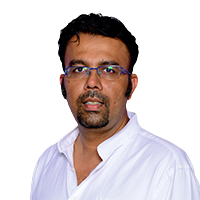
Associate Professor Rajesh Rai
Asian Studies @ CHS
NUS is recognised as a global centre of excellence in Asian Studies, where a multidisciplinary and comparative approach to the study of Asia and its regions is adopted. The session on programmes by the various Asian Studies departments at NUS (2:00 – 2:50 pm) will feature Associate Professor Rajesh Rai (NUS South Asian Studies), Dr Faizah Zakaria (NUS Malay Studies), Associate Professor Tham Shiao Wei (NUS Chinese Studies), Dr Clay Eaton (NUS Japanese Studies) and Dr Mohamed Effendy Abdul Hamid (NUS Southeast Asian Studies).
“You probably hear a lot about how Asia is the largest continent in the world, with the greatest diversity of cultures, philosophies, political thought and economic might, as well as scientific and technological advancement,” says Assoc Prof Rai, offering up a brief on the discussion he will be leading as moderator. “This session will take you through an interdisciplinary journey through history and current affairs to show you just how influential Asia has been a force for change, both positive and negative, on the world’s stage.”
Join this session by clicking here.
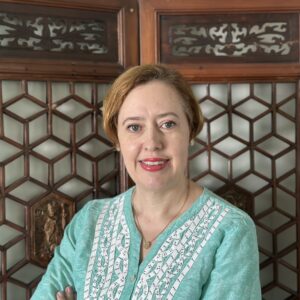
Humanities @ CHS
Learn more about the academic disciplines that focus on studying different aspects of the human condition from: Dr Donna Brunero (NUS History); Associate Professor John Whalen-Bridge, Associate Professor Graham Wolfe and Dr Leslie of NUS English, Linguistics and Theatre Studies; and Dr Zachary Barnett (NUS Philosophy).
“Do you: Ponder big questions regarding life, society, and culture? Wonder how language develops? Hold theatrical ambitions? Find yourself curious about connecting the past and present, the local and global?” session moderator Dr Brunero asks rhetorically. “If so, join us as we answer questions regarding our disciplines and share insights into how studying with us at NUS can broaden your horizons.”
To join Dr Brunero and her fellow speakers in this 3:00 - 3:50 pm session click here.
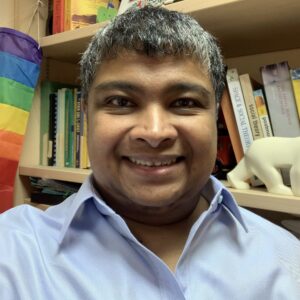
Social Sciences I: Same, Same but Different
This session features Dr Kamalini Ramdas (NUS Geography), Associate Professor Feng Qiushi (NUS Sociology and Anthropology), Dr Elaine Tan (NUS Political Science) and Dr Georgios Georgiou (NUS Economics), and will delve into their respective programmes as well as approaches toward forging a “collective identity”.
Session moderator Dr Kamalini explains. “This panel brings together social scientists from Economics, Geography, Political Science and Sociology to discuss what it takes to develop a collective identity as social scientists,” says Dr Kamalini, who will be working with her fellow speakers toward answering questions such as, “What are the benefits and challenges of a collective approach to learning and research? How might our students benefit from our commitment to engage?”
Click here to join the Social Sciences I (4:00 – 4:50 pm) session.
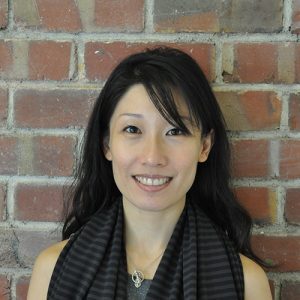
Social Sciences II: Understanding Social Complexity
Dr Adelyn Lim (NUS Sociology and Anthropology), Associate Professor Irene Ng (NUS Social Work), Dr Nina Powell (NUS Psychology) and Dr Alex Mitchell (NUS Communications and New Media) will be introducing the disciplines offered by their respective Departments, and show how they can each be applied to enable a deeper understanding of our world.
“The world we live in today can feel exciting but also downright contradictory. Global friendships are in many ways easier to make than in the past, yet we see terrorism, violent crime, wars, and enduring social inequality,” says session moderator Dr Lim, who will be discussing in detail with her fellow speakers complex issues thrown up by questions such as, “How did this world come about? Where are we heading in the future?”
To join the Social Sciences II (5:00 – 5:50 pm) session, click here.
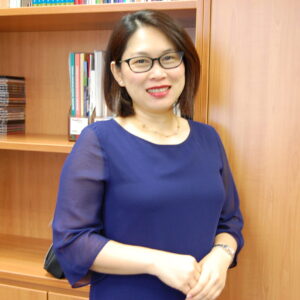
Ms Sasiwimol Klayklueng
Foreign Language Studies: Passport to the World
Meet leading Language instructors Ms Sasiwimol Klayklueng (Thai), Dr Sandhya Singh (Hindi and Tamil), Ms Indianti Tjan (Indonesian), Ms Rungnapa Kitiarsa (Thai) and Ms Sophie Undorf Bouvier (French), who will elaborate on the Minor in Language Studies and Proficiency Certificates conferred by the NUS Centre for Language Studies, which are very much sought after by students looking to enhance their career prospects.
NUS Career Fest 2023: Shining a Spotlight on Green Careers
IN BRIEF | 10 min read
- Organised by the NUS Centre for Future-ready Graduates (CFG), the NUS Career Fest 2023 shone a special spotlight on the sustainability sector with a number of targeted activities aimed at deepening students’ understanding of sustainability and sustainability-related careers.
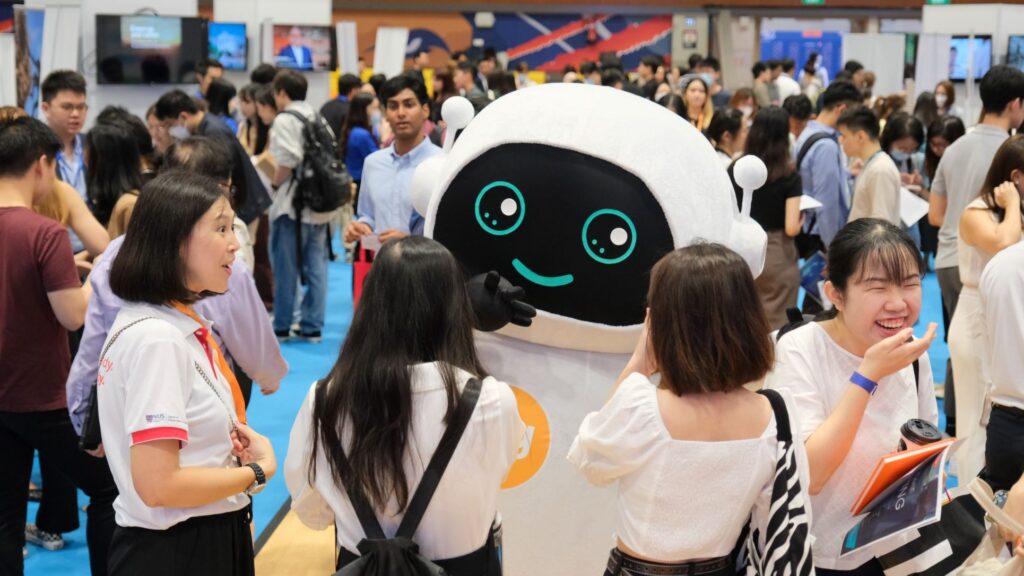
A palpable buzz of excitement was generated at the University Sports Centre and Multipurpose Sports Halls on 10 February as thousands of enthusiastic NUS undergraduate and postgraduate students streamed into the venues hosting the NUS Career Fest 2023 The event offered valuable opportunities for them to network with more than 1,200 employer representatives from 300 companies, and score one of the 14,000 full-time roles and internships available.
Green Light for the Green Sector
Organised by the NUS Centre for Future-ready Graduates (CFG), the NUS Career Fest 2023 shone a special spotlight on the sustainability sector − a fast-growing emerging industry sector − with a number of targeted activities aimed at deepening students’ understanding of sustainability and sustainability-related careers as well as providing opportunities for interested students to engage with industry experts.
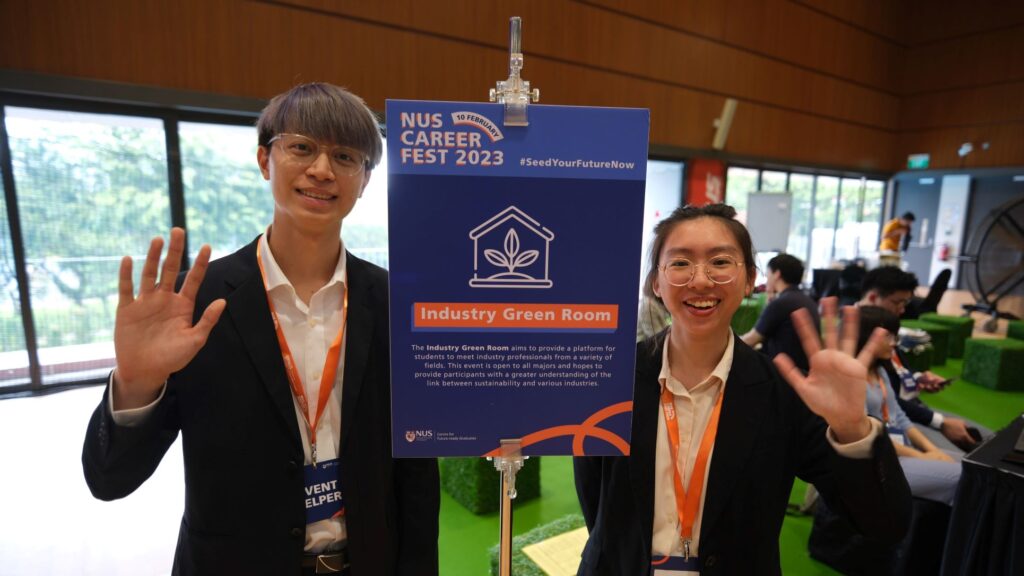
These activities included the inaugural session of the CFG Industry Green Room (IGR) – a series of industry engagement events co-created with student groups specifically to provide students with greater exposure to the sector. Developed in partnership with the Bachelor of Environmental Studies’ (BES) Student Committee, this first session of IGR saw students actively engage with industry thought leaders from across diverse fields of sustainability.
Students could also express their interest in green careers by submitting their resumes via the NUS Career Fest 2023 Green Book on the NUS career+ app, with these resumes then provided to all participating employers with sustainability-related opportunities.
Employers responded enthusiastically to the call, with more than 100 participating employers collectively putting up more than 800 sustainability-related jobs or internships openings.
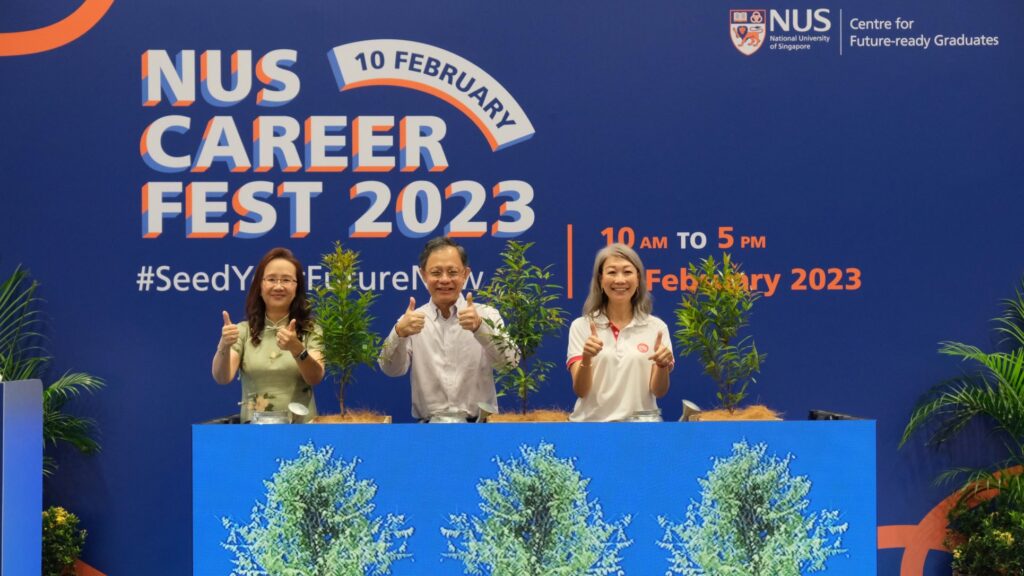
NUS Career Fest 2023 kicked off with an opening ceremony graced by Senior Vice Provost (Undergraduate Education) Professor Bernard Tan, and was attended by numerous industry leaders, NUS senior management and students.
“NUS students have continued to enjoy strong graduate outcomes, bearing testament to the efforts the University has made. Our focus on interdisciplinary learning equips students with the foundational and functional skills required to harness exciting emerging opportunities,” Prof Tan shared.
“At the same time, through a structured career preparation roadmap that includes events like NUS Career Fest 2023 and exciting digital platforms such as Internship-As-A-Service (IAAS) and conNectUS, we provide numerous opportunities for students to be exposed to industry and to amass professional working experience,” he added.
Poised and Prepared for the Working World
On top of career opportunities and networking, the Career Fest also prepared students for their first jobs in practical ways. At the Styled for Success zone, students both gleaned professional grooming tips and work wardrobe advice, and received complimentary headshot photographs. Students also enjoyed interactive career exhibits from Young NTUC, and visited the CFG Career Pitstop to receive instant resume critiques and practise their mock interviews with CFG Career Advisors.
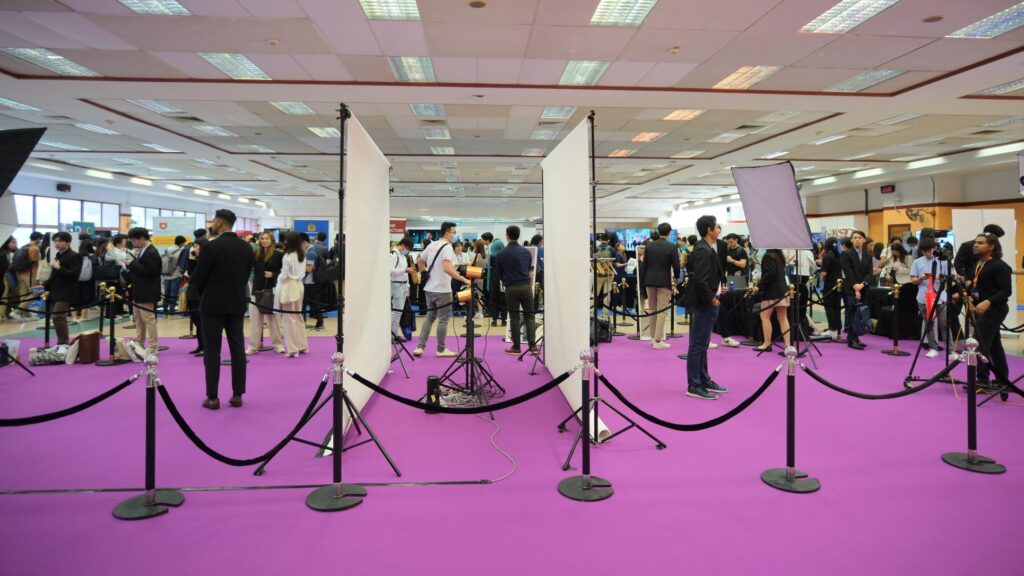
Students needing an energy boost could even sip on an artisanal coffee brewed by a robot barista, and sample sustainable granola made from spent brewers’ grains – with compliments from Moonbeam Co, a start-up founded by a trio of NUS alumni and students.
The opportunity to engage with diverse employers in a single day was very fruitful for students. Year 2 NUS Economics undergraduate Sunny Ren, who attended the Career Fest with course mate Bebin Joseph, shared that their experience at the Career Fest went beyond just seeking to secure an internship role.

“Being able to speak with employers helped me to learn about different industries, and offered me broader horizons and new ways of looking at industries that I may be interested in,” he shared. “The people here were helpful and approachable, and enthusiastic to share about the work they do every day, which goes beyond what I can find out from a website or an academic module.”
Employers also rose to the occasion to engage with enthusiastic NUS students. “We were thrilled to be back here in person at NUS Career Fest after three years,” enthused Mr Daniel Loo, Senior Manager of Talent Acquisition at Changi Airport Group.
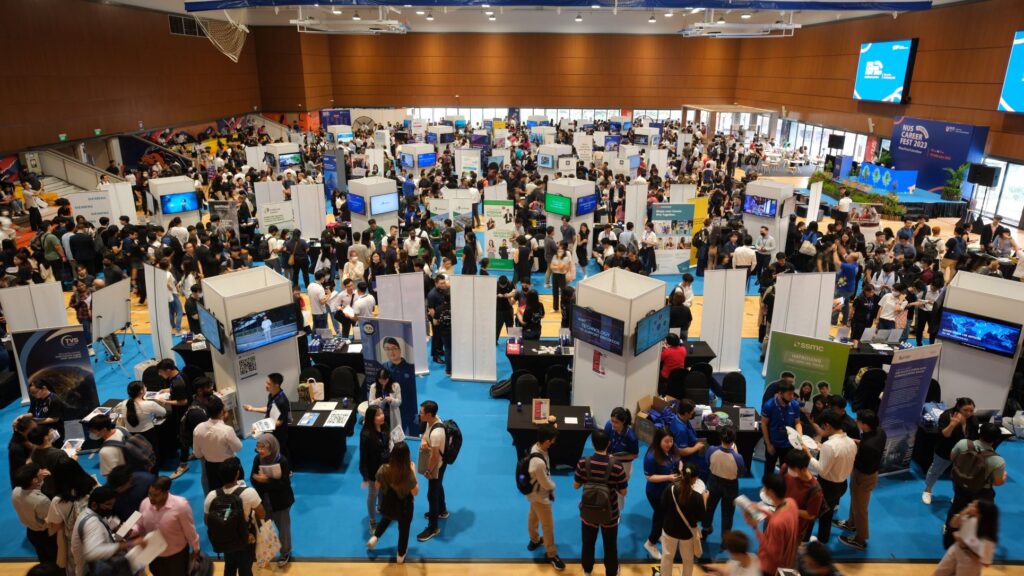
“As with previous editions, we found the event extremely well-organised, and students we met were intelligent, diverse and actively engaged in seeking both internship and career opportunities with us. CFG, the organiser, had also been truly collaborative and did a wonderful job promoting the fair to the NUS community. I would highly recommend participation for other companies looking to expand their network of talent,” he shared.
This story by the NUS Centre for Future-ready Graduates (CFG) first appeared on NUSnews on 16 February 2023.
Celebrating Love and Generosity
IN BRIEF | 15 min read
- NUS alumni couples and donors raise over S$357,000 for financially-challenged NUS students.
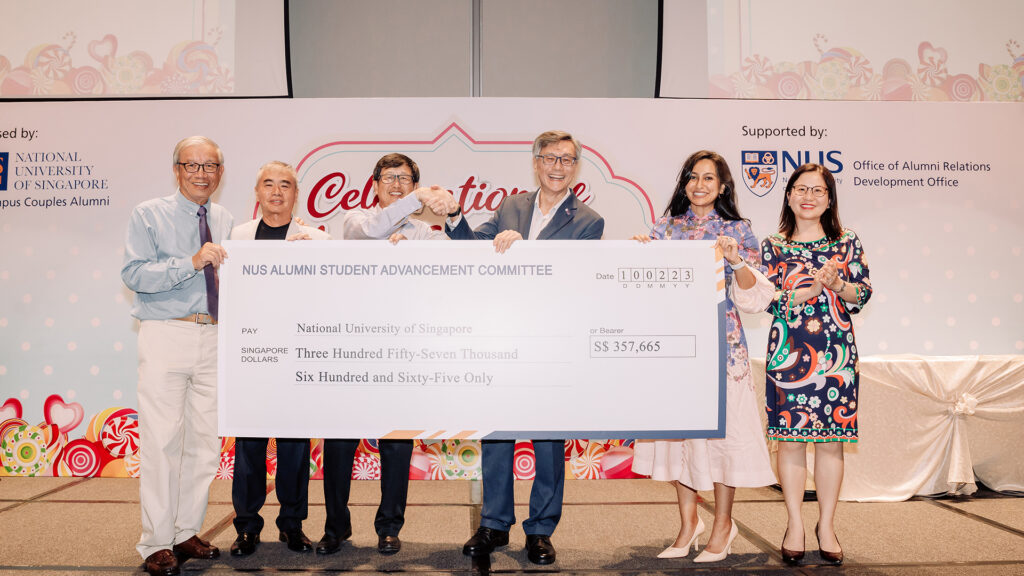
In line with Valentine's Day, the NUS Campus Couples Alumni hosted more than 200 alumni couples and donors at its annual Celebration of Love and Giving Dinner in appreciation of their efforts to support financially-challenged NUS students.
This year, alumni couples raised a total of S$357,665 for the NUS Campus Couples Bursary Fund and other bursaries. Over S$816,000 has been raised since the NUS Campus Couples Bursary’s inception in 2015, benefitting 127 financially disadvantaged NUS students.
Held at the National University of Singapore Society Kent Ridge Guild House on 10 February 2023, the event brought together a community of campus couples from various generations to celebrate love and generosity. The heart-warming celebration was also a meaningful occasion to acknowledge and thank the donors who help raise funds for underprivileged students in NUS.
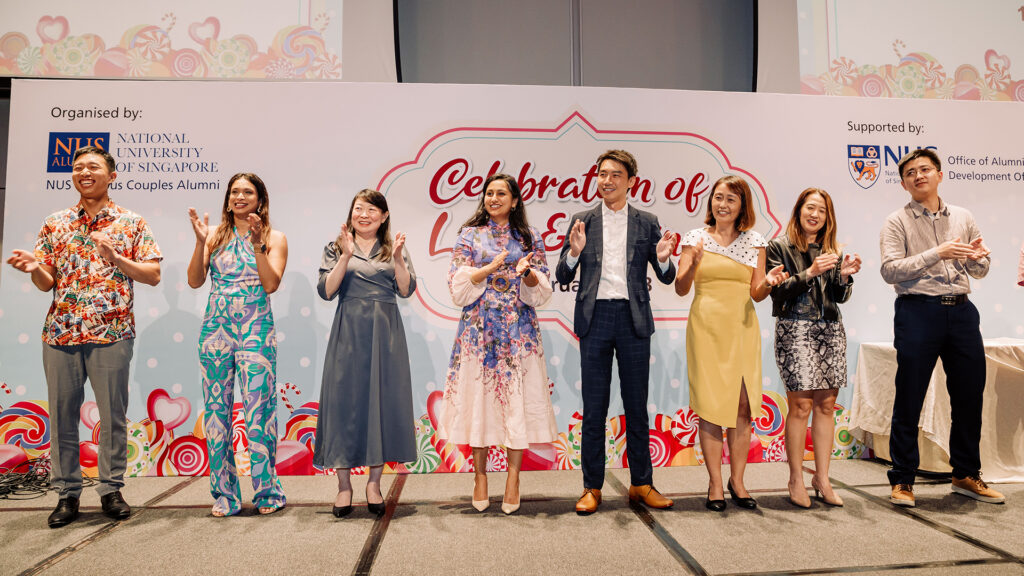
Supported by the Alumni Student Advancement Committee, NUS Office of Alumni Relations and NUS Development Office, the event saw a lively turnout as alumni cheerfully reconnected with each other – some for the first time in person in three years.
Guests were treated to a romantic musical performance by the NUS Jazz Band during the dinner. The night continued with a heartfelt recognition of the donors' generosity, concluding with a cheque presentation to NUS President Professor Tan Eng Chye (Science ’85).
Ms Khalijah Masud (Science ’92) and Mr Aznan Ghazali (Arts ’92, Economics and Malay Studies) said they were grateful for the chance to be able to give back to their alma mater. “Reflecting on our blessed life (and) giving back commemorates the remarkable time we had in NUS and specifically in Sheares Hall. At this point in our lives, it's also important for us to leave a legacy and set an example for our children,” said Ms Khalijah.
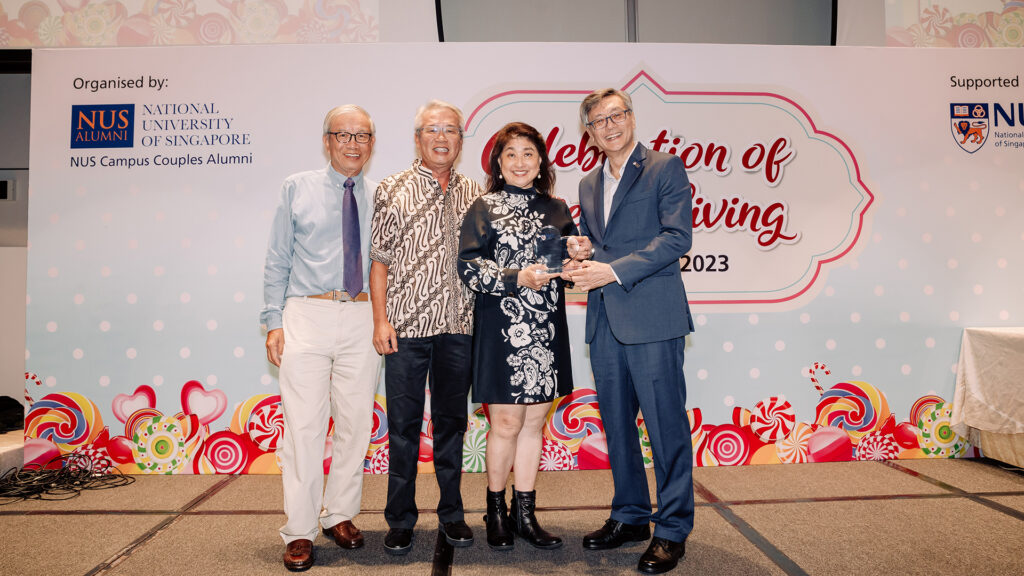
Ms Jessica Leong (Arts ’85) shared that she and her husband, Mr Wong Jin Kok (Engineering ’85), were keen to contribute as education held a special place in her husband’s heart.
Their first gifts to NUS were made in honour of their parents, particularly Mr Wong’s father who was a school headmaster and set an example by supporting the education of relatives and close friends in need. The Sheares Hall couple said they understood the financial struggles faced by some undergraduates and hoped to “make it easier for current students in need”.
The NUS Campus Couples Bursary Fund was initiated by Mr Yeo Keng Joon, who met his wife, Madam Kong Yuet Peng (Business ’86), when they were pursuing their MBA degrees at NUS Business School. The pair had established the bursary as a way to give back to the NUS community after receiving financial assistance with their education.
This story first appeared on NUSnews on 14 February 2023.
A Winning Vision of a City on Cleaner Energy in 2060
IN BRIEF | 15 min read
- NUS undergrads crowned national champions of Shell Singapore’s ‘Imagine the Future Scenarios’ competition.
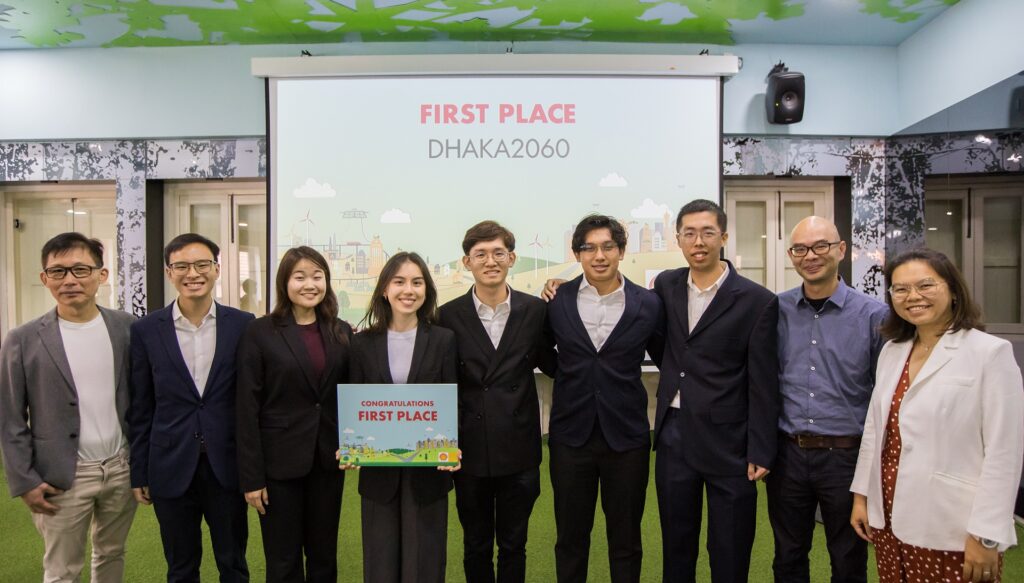
Over the year-end holidays, six second-year students from the College of Humanities and Sciences and NUS College at the National University of Singapore banded together to take on the interdisciplinary challenge of envisioning what the future could be if a city ran on cleaner energy.
Signing up for the 2022/2023 ‘Imagine the Future Scenarios’ competition to dream up two such alternate scenarios for an Asian or Middle Eastern city, the students envisioned how Dhaka’s ability to tackle climate change and rapid urbanisation would chart the future of Bangladesh’s capital city, eventually emerging national champions in the competition.
This is the seventh edition of the competition organised by Shell Singapore to encourage students to use their knowledge and imagination to anticipate the future and the challenges it could bring.
Team leader for ‘Team DHAKA2060’, Sophie Du Toit, said she and her team mates were drawn to the competition’s blue-sky proposition which allowed breadth for exploration, creativity and critical thinking, while challenging participants to consider the future from a grounded, realistic perspective.
Sophie, who is currently majoring in Global Studies with a keen interest in what sustainability could look like for current and future generations, said, “It was the competition’s strong emphasis on future planning vis-a-vis a transition to green energy which really drew us to participate in it. The prospect of engaging a nexus of issues – governance, clean energy and urban resilience – in order to craft plausible scenarios of a world 30 to 40 years into the future was “both exciting and deeply interesting.”
The team spent two months researching and brainstorming to demonstrate how Dhaka can capitalise on its existing resources and investments to make the green switch and develop a strategy that can accommodate potential policy changes. This led them to formulate two divergent scenarios of what work, life and play would be like for the city’s future citizens in 2060.
In the first ‘Green Straitjacket’ scenario, they speculated on what a city governed by a centralised government, with strict domestic controls over energy production and supply, would look like. Conversely, in the second ‘Silicon Delta’ scenario, they envisioned the city under decentralised, laissez-faire governance with a high reliance on foreign powers for energy imports.
Elaborating on their choice of city, Daniel Poon, who is currently pursuing a double major in Chemical Engineering and Political Science, said, “The city of Dhaka presents many unique opportunities alongside challenges, which have generally been sidelined in favour of bigger-name cities in the region. It is our hope that our project will be able to convincingly demonstrate the potential and corresponding pitfalls of Dhaka’s industrial and social future in the decades to come.”
Using theatrics to take their audience on a journey
Having scoped out plausible visions for the city’s future, the team took on the challenge of creating a skit to bring their audience on the journey to a ‘future’ Dhaka in the year 2060.
Morris Yang, a Philosophy, Politics and Economics (PPE) major, said the group made a unanimous decision to go with a more unconventional approach instead of presenting a typical slide show to bring the concept to life. With the goal of engaging the audience through relatable characters and realistic scenarios, Team DHAKA2060 mustered up ‘theatrical courage’ to create a skit to project how life in Dhaka might be in 2060.
“A skit opens up another dimension for us to demonstrate their lives, hopes and dreams – and even their anxieties – beyond words and pictures.” This approach, explained Morris, was both risky and challenging as it was different from the structured academic presentations the students were familiar with in their university projects.
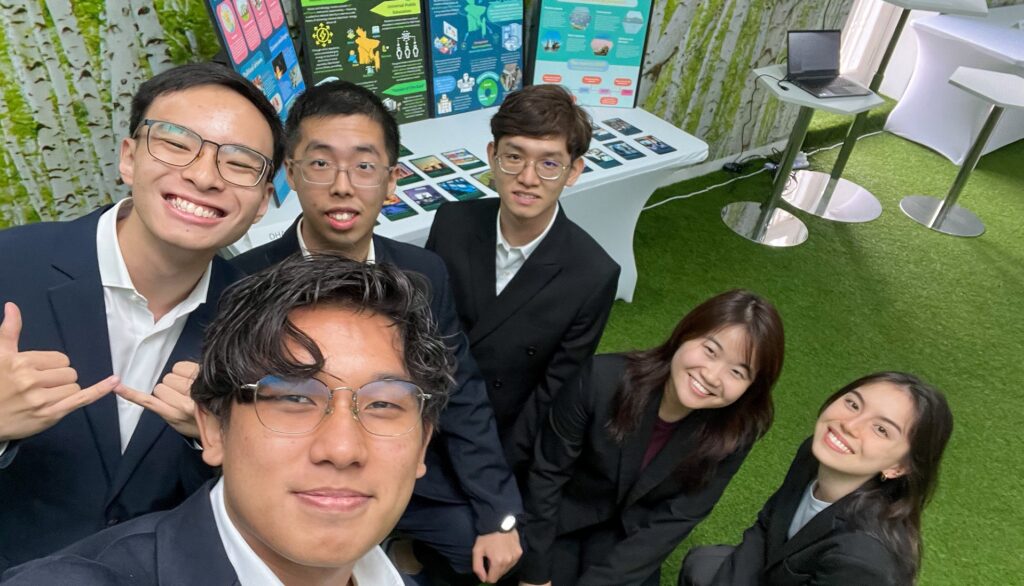
The team spent many evenings and nights rehearsing and polishing their skit in front of their classmate and residential hallmates. Not only did the rehearsals make for a fun experience, it unearthed hidden acting talent among the group and the risk taken paid off as the presentation turned out to be the most rewarding moment of the competition for each member.
“The theatricality of our presentation really immersed the audience in the worlds we’ve created. Being able to express our point with confidence was what helped us stand out in the competition,” said Eleyn Yap, a fellow PPE undergraduate.
History and Political Science double major Jeff Chin shared, “It was really gratifying to hear from the judges that they enjoyed our skit presentation and the energy it brought to the competition. The time and effort we put into bringing our ideas to life paid off, and it was a proud moment for us.”
Solutions that emerge from a confluence of ideas
Apart from daring to take a path less travelled in their presentation method, Team DHAKA2060 also credited the team’s win to its academic diversity which allowed them to consider multiple dimensions for each future scenario.
“While some of us were inclined to analyse the political possibilities for Dhaka, others pointed out (the) geographical constraints. The diversity in the way we think and see things became very obvious when it came to discussing Dhaka’s future. Everyone shared from their own perspective, yet ultimately, it was these differing and individual worldviews that strengthened the nuance of our case,” Eleyn said.
Iyan Danial Mohamad agreed that having many brilliant minds all pondering the logic of each idea helped immensely in ensuring they were sound. The Communications and New Media major who is also pursuing a double minor in History and Interactive Media Development, said, “Naturally, the fact that all of us came from different backgrounds as well also allowed us to expand the scope of our ideas, which was important so that we were able to cover more aspects of how a city could develop over the next few decades.”
“We were considerably more open to reiterating and challenging existing ideas without adhering to a dogmatic belief in the tried-and-tested,” said Morris.
Leaning on and trusting each other’s strengths, the team overcame their initial worry that they may have bitten off more than they could chew taking on a city that was rapidly evolving politically and socio-economically. However, it was the team’s varying view points and opinions that ultimately drove them to look at the issues from a macro perspective led to more convincing and multi-layered arguments that withstood questions from the judging panel.
This story first appeared on NUSnews on 10 February 2023.
NUS Economics Researcher Interview: Emeritus Professor Chew Soo Hong
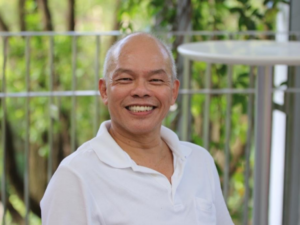
Chew Soo Hong grew up in Singapore and obtained his doctorate from the University of British Columbia in 1981. He had appointments in Hong Kong and the US before returning to Singapore in December 2009, where he joined the NUS Economics Department. While Professor Chew formally retired in 2022, he is still very much involved in research and has a continuing stream of new research papers that will put many of his younger colleagues to shame.
Chew is one of the world’s foremost experts on economic models of decision-making. His first published paper (entitled “A Generalization of the Quasilinear Mean with Application to the Measurement of Income Inequality and Decision Theory Resolving the Allais Paradox” Econometrica, 1983) is one of the earliest to propose an alternative to the paradigmatic expected utility model established by John von Neumann and Oskar Morgenstern. Chew’s paper proposes a weakening of the independence axiom that underpins the expected utility model; the new axioms laid out in that paper allow for a more flexible model that could accommodate widely observed choice behavior excluded by expected utility (such as behavior of the type highlighted by Maurice Allais). Since then, Chew has gone on to explore other aspects of decision-making important to economists (such as temporal choice and mechanism design) and his research has embraced other methodologies beyond mathematical modeling, including experiments, neuro-imaging and genetic studies.
Tell us a bit about your early life and its effect on your intellectual development.
Since before going to school, drawing and piano playing came naturally to me. Thanks to my mother, I went to a Chinese school and was quickly attracted to science and mathematics. Like many kids, Einstein was my idol. In Primary 5, I wrote about wanting to be a scientist for my first composition under “My Aim”. That was also the year when the school started to adopt English texts for science and math subjects while instruction remained in Chinese. This contributed to my switch to an English school at age 14. By the time I finished school at 18, I was effectively bilingual and perhaps also bicultural. This aspect of my school education in Singapore – a form of yuan (缘) – has had a profound influence on my intellectual development. Little did I know that I would grow into an economic scientist. How did you first become interested in economics? And in decision theory, in particular?
Despite economics being the most popular 4th subject for A level students doing physics and double math, I chose art instead. My yuan (缘) with economics emerged years later when I was 23, several days after arriving at UBC to begin doctoral studies in applied math. My institute director asked me to explain my seemingly eclectic choice of classes – information theory from EE, AI from Computer Science, optimal control from Math, and gravitation from Physics. He asked pointedly, “Why gravitation?!”, and seemed distinctly unimpressed by my answer, “Relativistic physics is my intellectual first love”. He then explained that knowledge shopping through classes was an undergrad privilege and impressed upon me the need, as a PhD student, to develop a focus to build an academic career. He further shared his sense about the increasing “scarcity” of exciting challenges in theoretical physics compared to the days of Einstein and Schrödinger. He stressed his hope to see me leave UBC in three years and expressed concern that I might actually exemplify the archetype of a “professional grad student”, enjoying the pursuit of eclectic knowledge for its own sake … way past my 5th year.
I dropped gravitation! I then traversed the campus looking for something to fill the gap. One evening, quite by accident, I noticed an MBA micro class and sat in. I was struck by how much the optimisation orientation of the subject matter sounded like the physics of human behavior! Having missed the first semester, I enrolled in the doctoral micro sequence in the reverse order. I next took two concurrent classes, one on uncertainty economics and the other on information choice which was offered by an accounting professor who assigned, in the take-home final, the Allais paradox as discussed on page 103 of Savage’s (1954) The Foundations of Statistics.
I was quite captivated by Savage’s description of his having made a decision error in falling for the paradox and how he corrected himself using his sure-thing principle. Reflecting how sensible this allegedly “irrational” behavior seemed to me, I immediately set out to develop an axiomatic generalisation of expected utility, something which has engaged much of my intellectual energy to this day. My fate as an economic scientist through decision theory was sealed or perhaps unsealed.
How has your research in decision theory evolved over time?
I am driven by a basic curiosity about how people make decisions in the presence of uncertainty. In the beginning, my approach was based on identifying axioms on the decision maker’s preference over lotteries and deriving their implications on observable choice. My work has helped to spawn a new direction of research on axiomatic non-expected utility theories. Over the years, my interest has progressed to encompass temporal decision making involving the timing of uncertainty resolution as well as preference over sources of uncertainty (which, among other things, can shed light on the nature of home bias in financial economics).
More recently, I have been working on the neurobiological underpinnings of human decision making. I am particularly interested in the interaction between top-down attention (which is conscious and goal-directed) and bottom-up salience (which is unconscious and stimulus driven). I think this research holds promise in delivering a unifying approach to modeling decision making under limited attention, which is an unavoidable feature of decision-making in today’s stimuli rich environment.
What advice would you give researchers at the beginning of their careers?
Rather than advice, perhaps it is more appropriate to share experience. In my intellectual and academic journey, I have been accompanied by a mindset which may be summarised by “being true to one’s heart”. Here, I have in mind the essential quality of “innocence” which comes through rather visually in the Chinese expression 赤子之心. In facing an uncertain and possibly turbulent future, discovering and relying on one’s heart of innocence – filled with wonderment even of the most mundane and encompassing hope and aspiration more so than anxiety or fear – may lend us a measure of stability, even steadfastness, as we begin our careers. Decision Making Over Risky Alternatives
Suppose an individual is presented with Option A, which gives him 400 dollars for sure and Option B, which is a gamble where he gets nothing with probability half and 1000 dollars with probability half. How should someone choose between these two options? One way of choosing is to work out the expected value of the alternatives. The expected value of Option A is 400 while it is 500 dollars for Option B. By that criterion, Option B is more attractive but it is clear that not everyone will pick B since it is also more risky and a person who chooses B could walk away with nothing.
Expected utility theory posits that each person behaves as though he has a utility function defined on the monetary prizes and evaluates gambles by its expected utility. So one person with utility function U prefers Option B to A because 0.5U(0)+0.5U(1000) is bigger than U(400) whereas another person, with a different utility function V, will prefer Option A to option B because V(400) is greater than 0.5V(0)+0.5V(1000). (For example, choose V to be the square-root function.)
The axiomatic foundations of expected utility theory were laid out by John von Neumann and Oskar Morgenstern in the 1940s. The use of this theory in economic and financial modeling is pervasive. An important part of research in decision theory consists of developing and testing alternatives to expected utility theory. Besides Chew Soo Hong, other economists in NUS who have carried out research in this area include John Quah and Zhong Songfa.
This story first appeared on the NUS Economics department website on 9 February 2023.
Student-led Green Action Week: Taking Small Steps Towards a More Sustainable Lifestyle
IN BRIEF | 15 min read
- During NUS SAVE’s inaugural Green Action Week, over 140 NUS students discovered different fun and fulfilling ways to incorporate climate-conscious behaviours into their day-to-day lives.
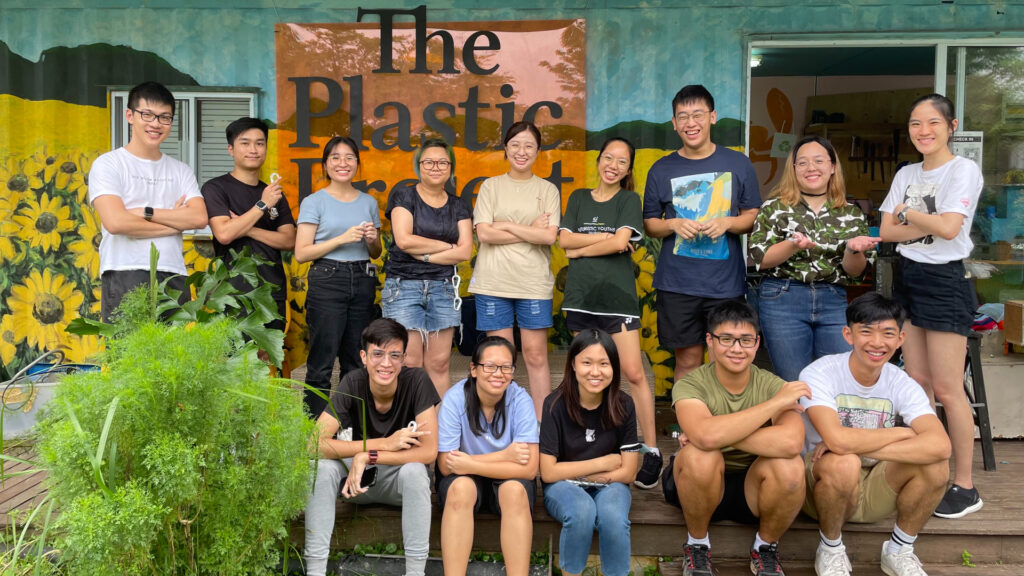
From cleaning beaches and redistributing unwanted food, to repurposing old clothes and plastic waste, over 140 NUS students learnt that there are many different ways to do their part for the environment, during NUS SAVE’s (Students’ Association for Visions of the Earth) inaugural Green Action Week held in December 2022. NUS SAVE, which recently celebrated its 30th anniversary, is an environmental student group that seeks to work with fellow students, the University administration, and other NUS stakeholders to inspire a more sustainable culture on campus.
Third-year FASS student Vania Xu (NUS Economics and NUS Psychology) who is the current Co-President of NUS SAVE (Students' Association for Visions of the Earth), shared that the diverse line-up of activities for Green Action Week – from volunteering sessions and workshops to guided tours – were planned with the aim of exposing the NUS community to the myriad of ways that individuals can incorporate sustainable practices into their everyday lives.
“With our very first Green Action Week, we wanted to show people that there isn’t only one way to lead a more sustainable lifestyle. You can engage in activities that suit your own personal habits and interests, and that also happen to be good for the environment,” Vania said.
“It was heartening to meet so many like-minded individuals who are passionate about sustainability during the course of the week,” she added.
Volunteering for the Good of the Environment
Thirty-seven student volunteers led by NUS SAVE’s Biodiversity team set out on a clean-up activity at Pasir Ris beach –– and ended up collecting a staggering 270 kg worth of trash ranging from plastic food packaging, drink bottles, and even huge signboards. For many of the volunteers, it was a sobering reminder of the impact that marine litter can have on local wildlife and biodiversity.
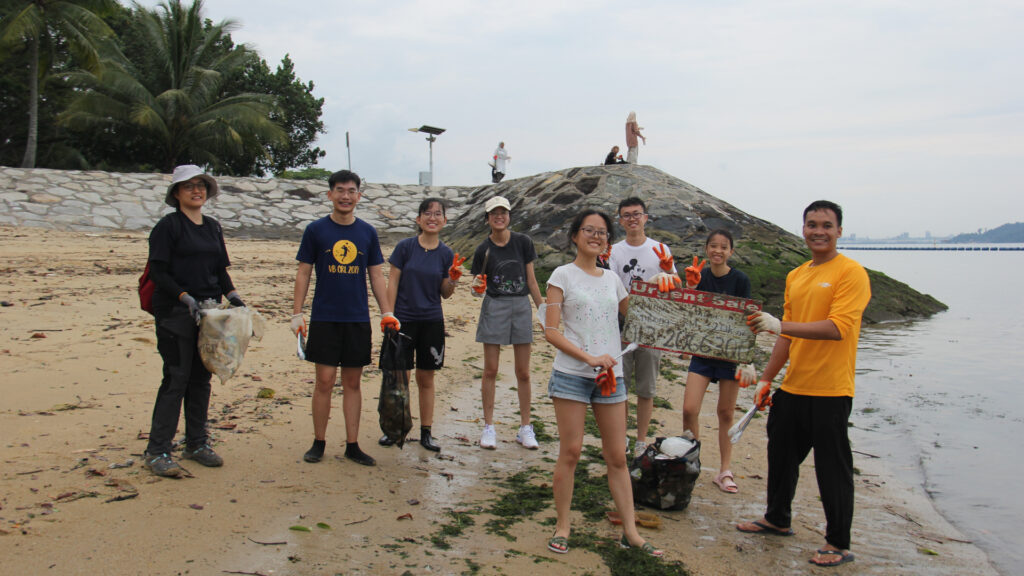
Another 25 student volunteers also helped to redirect and redistribute food that would otherwise have been wasted or thrown away, during an afternoon at MoNo Foods’ warehouse in Chinatown. MoNo Foods is a company that takes unsold food items from suppliers and resells them at lower prices to prevent food wastage. These unsold food items are still edible and safe to consume, but need to be taken off shelves and discarded by suppliers for various reasons – for example, damages to product packaging during transportation or changes in product branding labels.
Chee Koi Jun, a first-year student in the Faculty of Science, was one of the volunteers who helped to sort through the large amount of food donations received by MoNo Foods from various suppliers. He shared: “It was an eye-opening experience because I could actually see the impact of my efforts – in just one afternoon, we sorted through six pallets of food donations that would otherwise have been headed for the incinerator.”
Breathing New Life into Old Clothes and Plastic Waste
Apart from encouraging students to volunteer their time to support sustainable causes, NUS SAVE also sought to promote the ethos of sustainable consumption during Green Action Week. The group organised several workshops on upcycling and repurposing old and used items, so as to help their peers in the NUS community pick up functional tips on reducing waste and living more sustainably.
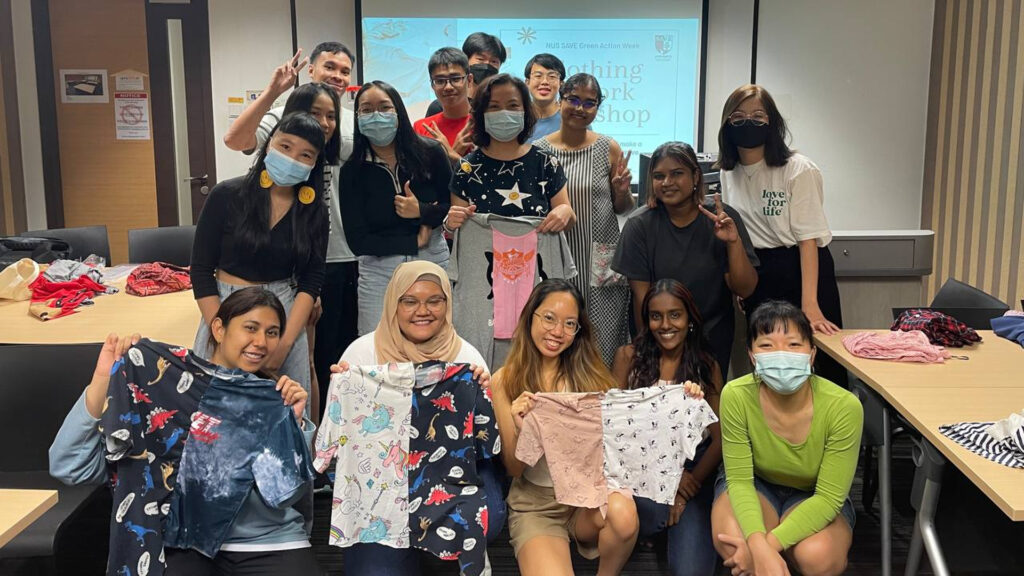
For example, at a ‘Half-and-Half’ workshop conducted by Alt.Native – a company founded by NUS Business School (Class of 2021) alumna Amanda Lim – 15 participants learnt how to refashion two old clothing items into a unique half-and-half shirt. Alt.Native’s reputation for reworking preloved clothing items into new bespoke pieces impressed participants like first-year Business School student Ramesh Babu Poornima, who shared that she signed up for the workshop because she wanted to find a creative way to reduce her fast fashion footprint while still maintaining a fashionable and trendy wardrobe.
“It was also useful to learn new stitching techniques – they will come in handy if I want to mend or alter clothes on my own in the future,” Poornima added.
To further promote the idea of sustainable fashion, NUS SAVE’s Green Wardrobes team also organised a tour of six different thrift stores in Lucky Plaza. For many on the tour, it was their first foray into “thrift shopping” – that is, buying second-hand items (usually clothes) at discounted prices – and a welcome way to kickstart their sustainable fashion journeys.
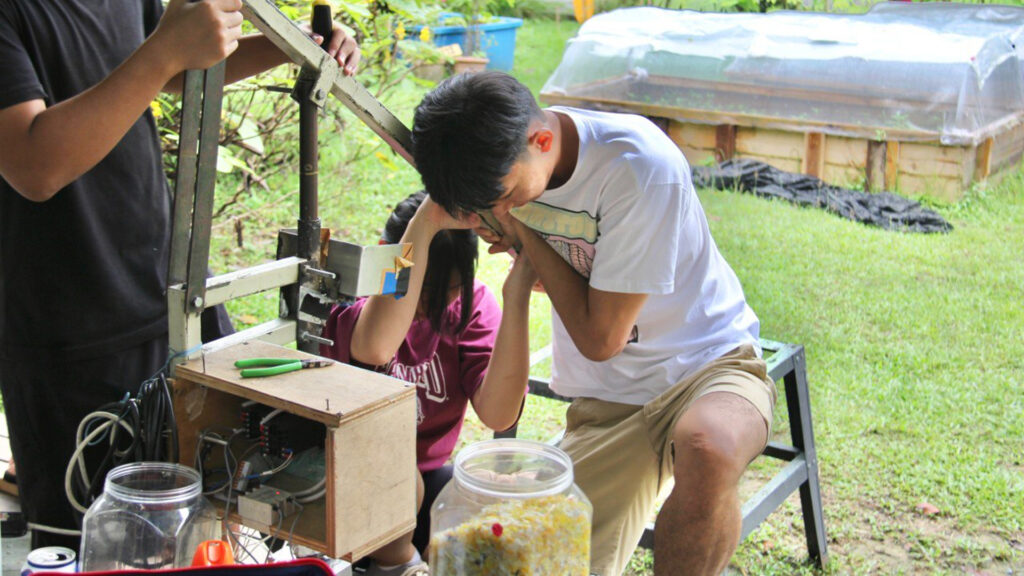
At another workshop conducted by The Plastic Project, 14 NUS participants got a taste of how the volunteer-run environmental organisation tackles plastic pollution by repurposing plastic waste into new products, such as earrings, Christmas ornaments, keychains and coasters – and even churned out some 40 brand new carabiners. All of the organisation’s signature products are made of recycled plastics of Type 2 (HDPE) and 5 (PP), collected from community donations and beach clean-ups.
Volunteer Chelsea Ooi, who has helped out at The Plastic Project for over half a year, said that more experienced volunteers usually target to make 40 to 50 carabiners per hour. The first-year Business School student added that she was drawn to The Plastic Project because she shares its vision for creating a circular economy and promoting mindful consumption.
“I also like that they came up with a creative solution to reduce plastic waste, by upcycling it into new products,” commented Chelsea.
This story by NUS SAVE first appeared on NUSnews on 6 February 2023.
Eminent Macroeconomist Ricardo Caballero Appointed MAS Term Professor at NUS
IN BRIEF | 10 min read
- Professor Ricardo Caballero will be the MAS Term Professor in Economics and Finance at the National University of Singapore from 14 to 25 Nov 2022.
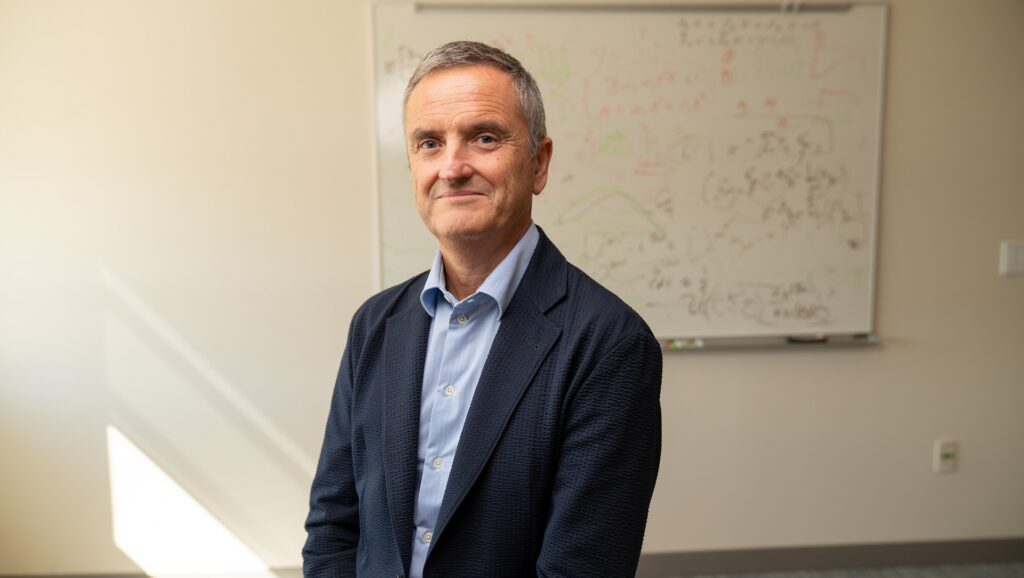
The National University of Singapore (NUS) and the Monetary Authority of Singapore (MAS) have jointly appointed Professor Ricardo Caballero as the MAS Term Professor in Economics and Finance from 14 to 25 November 2022. Professor Caballero will be hosted by the NUS Faculty of Arts and Social Sciences’ Department of Economics, and the Economic Policy Group of MAS during the term of the Professorship.
Professor Caballero is the Ford International Professor of Economics, a director of the World Economic Laboratory at the Massachusetts Institute of Technology (MIT), and a research associate of the National Bureau of Economic Research, United States. He was the Chairman of MIT’s Economics Department from 2008 to 2011. In addition, he has been a visiting scholar and consultant at various central banks and government institutions including the European Central Bank, the Federal Reserve Board, the International Monetary Fund as well as the World Bank.
Professor Caballero is a renowned authority in macroeconomics, international economics and finance, and has an extensive list of publications in all major academic journals in economics. Among his major awards are the Frisch Medal of the Econometric Society in 2002 and the Smith Breeden First Prize in 2008 for the best paper in the Journal of Finance. Professor Caballero is also a Fellow of the Econometric Society and a member of the American Academy of Arts and Sciences.
Professor Lionel Wee, Dean of NUS Faculty of Arts and Social Sciences, said, “We are deeply honoured to host Professor Ricardo Caballero as the MAS Term Professor and look forward to his collaboration with our Department of Economics. His extensive knowledge and research, particularly in the areas of monetary and fiscal policies, adds breadth and depth to the global learning experience we offer, greatly benefitting our faculty and students.”
Mr Edward Robinson, Deputy Managing Director (Economic Policy) and Chief Economist at MAS, said, “Professor Caballero is a highly regarded international macroeconomist who has made significant contributions to policy issues of relevance to open economies. He is known for his research on global financial imbalances, capital flows, and the causal mechanisms behind financial crises. He also has a keen understanding of financial markets, having worked with the asset management industry. It is a great privilege to welcome him as the MAS Term Professor and we look forward to learning from such a distinguished scholar.”
Professor Caballero will deliver a public lecture on ‘Inflation and Markets Post-Covid: An Upside Down World’ at NUS on 16 November 2022. He will discuss the implications of higher inflation for financial markets. In addition, Professor Caballero will give a research seminar, engage in dialogue sessions with NUS faculty members to discuss his latest research findings, and advise PhD students on their research.
At MAS, Professor Caballero will also give a seminar, and engage senior policymakers and economists on international finance and monetary policy issues.
About the MAS Term Professorship in Economics and Finance
First established in 2009, the MAS Term Professorship in Economics and Finance is awarded to distinguished scholars, who are appointed as Visiting Professors at both the Department of Economics at the NUS Faculty of Arts and Social Sciences and the NUS Business School. It aims to strengthen Singapore’s financial and economics research infrastructure and contribute to a vibrant research community and culture at local universities.
The MAS Term Professorship in Economics and Finance has been awarded to 21 distinguished scholars over the last 13 years.
This news release first appeared in NUSNews on 11 November 2022.
The Half-life of Knowledge
IN BRIEF | 10 min read
- There is now an indisputable requisite to equip graduates with interdisciplinary knowledge and skillsets. We need both the agile lenses of interdisciplinarity as well as the deep-cutting laser of deep domain expertise. The former trains us to aim and focus the laser, while the latter allows us to cut to the heart of a problem.

| By Professor Tan Eng Chye |
“Teach a person to fish, and you may feed them for three-and-a-half years” may sound less inspiring than “Teach a person to fish, and you feed them for a lifetime”, but the former more accurately reflects the current realities of tertiary education.
Breaking news travels at warp speed, accelerated by social media and instant messaging. In a matter of minutes, news can reach the four corners of the world. Such interconnectedness highlights the leaps made in information technology over the years while underscoring a persistent and inexorable phenomenon – the reduction of the half-life of knowledge.
The half-life of knowledge, coined by Fritz Machlup in 1962, refers to the amount of time elapsed before half of the knowledge in a particular field is superseded or becomes obsolete. Given the speed with which knowledge develops and is shared, it is perhaps not surprising that this value is ever decreasing in many fields.
This phenomenon raises fundamental questions about our university degree programmes. How should a fresh graduate, filled with aspirations to change the world, deal with the harsh reality that a significant portion of their undergraduate training may be rendered irrelevant by the simple passage of time?
Distilling a degree programme is one possible, albeit drastic approach. We can consider equipping students only with evergreen core domain concepts. This training should take less time than our current degree programmes. As and when students require specific new knowledge, or need to upgrade existing knowledge, they can take short courses to bridge knowledge gaps and meet their professional needs. This type of “just in time” learning, also known as micro-credentialing, helps to circumvent the shortened half-life by injecting cutting-edge knowledge at just the right time.
Another less disruptive approach is revitalisation. We can maintain the current degree programme structure, but provide avenues for graduates to return to university in the future. Such short stints of study can follow existing models for bite-sized, self-contained courses, or semester-long study periods undertaken with the support of employers.
One certainty is that university study will cease to be just one stage of life. Instead, “university studies” will become the de facto way of studying, with a person continually refreshing and renewing their knowledge in tandem with or in anticipation of developments in industry, society and the world.
In anticipation of this, we created the NUS Lifelong Learners Programme (or NUS L3), which promises a 20-year period of student enrolment, from the point of undergraduate or postgraduate admission. In other words, a graduate of NUS can choose to come back to campus to take courses for at least 20 years from the day of matriculation.
Interdisciplinarity
Beyond the way knowledge is acquired, we are also grappling with working in an increasingly VUCA (volatile, uncertain, complex, and ambiguous) world. In such a context, can we continue to hold a siloed view of domain disciplines? In training law students, for example, we would be remiss not to show them basic programming, which can allow them to create customised commands to quickly and easily trawl through databases, with millions of legal records, to identify precedents.
Deep domain expertise is like a laser – a focused beam of knowledge that can cut through dense problems. However, real-world issues are increasingly multifaceted and ill-defined, often lacking a clear vulnerable spot at which a laser beam can be aimed.
As a mental experiment, consider the challenge of introducing autonomous electric vehicles to a city. This proposition involves urban design, city planning, the law, and engineering for accessibility. We can form a multidisciplinary team of experts, where each member is a domain expert, to tackle the issue. However, in all likelihood, we will encounter misalignment between domains, simply owing to differences in problem-solving methodology, thinking models or even nomenclature.
If we liken domain training to equipping students with specific lenses through which they can see and focus on information to solve a problem, then interdisciplinarity suggests that we should train students to operate across more than one domain. By educating them in core ideas from multiple domains and providing opportunities to apply their knowledge in authentic settings, students with interdisciplinary training can switch domain lenses as needed, solving problems using novel and unorthodox approaches that transcend domains.
To be clear, we are not advocating for dismantling deep domain training. Rather, we recognise that there is now an indisputable requisite to equip graduates with interdisciplinary knowledge and skillsets. We need both the agile lenses of interdisciplinarity as well as the deep-cutting laser of deep domain expertise. The former trains us to aim and focus the laser, while the latter allows us to cut to the heart of a problem.
NUS strongly believes in providing interdisciplinary pathways for our students. In 2020, we created the College of Humanities and Sciences (CHS) to provide an enhanced interdisciplinary undergraduate experience for students of the Faculty of Science and the Faculty of Arts and Social Sciences. CHS undergraduates can choose between deep domain training or the flexibility of interdisciplinary training of varying breadth and depth in modules offered by both faculties. Continuing our efforts to pave more interdisciplinary pathways for students, in 2021, we merged the School of Design and Environment and the Faculty of Engineering to form the College of Design and Engineering. More recently, NUS launched NUS College, Singapore’s first honours college offering pathways to more than 50 majors across a half dozen degree programmes. The aim of NUS College, as explained by its inaugural dean, Professor Simon Chesterman, “[is to offer] broad, interdisciplinary competencies that equip students for life, along with the opportunity to dive deep into areas in which you are passionate.”
To quote Charles Dickens, “It was the best of times, it was the worst of times, it was the age of wisdom, it was the age of foolishness.” Indeed, our experiences with the global pandemic and its effects on education over the past two years have given us the rare opportunity to engage in deep reflection and introspection. Witnessing the breakdown of resistance to adopting and adapting technology for teaching and learning during this time, we should be emboldened to re-examine and revolutionise some of our established, and perhaps outmoded, notions of how to offer higher education.
About the Author
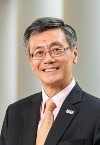 Professor Tan Eng Chye is President of the National University of Singapore. A passionate academic and educator, Prof Tan is a member of the World Economic Forum’s Global University Leaders’ Forum, as well as Singapore’s Future Economy Council, which is tasked with driving the growth and transformation of the country’s future economy.
Professor Tan Eng Chye is President of the National University of Singapore. A passionate academic and educator, Prof Tan is a member of the World Economic Forum’s Global University Leaders’ Forum, as well as Singapore’s Future Economy Council, which is tasked with driving the growth and transformation of the country’s future economy.
This article was first published in the Times Higher Education World University Rankings 2023 supplement and first appeared in NUSNews on 4 November 2022.
Call for Nominations | FASS Inspiring Mentor Award 2022
IN BRIEF | 3 min read
- We invite NUS FASS members of staff to nominate the colleagues who have served as their truly inspiring mentors - who have gone beyond the call of duty to positively impact their work and life - for FIMA 2022 honours.
Click through image below (or just write to fassmentoraward@nus.edu.sg) to file your nomination.
FASS Establishes LBKM Social Sciences Scholarship to Nurture Top Talents in the Social Sciences
IN BRIEF | 5 min read
- The scholarship was established through a S$300,000 gift from Lembaga Biasiswa Kenangan Maulud, LBKM (Prophet Muhammad's Birthday Memorial Scholarship Fund Board).
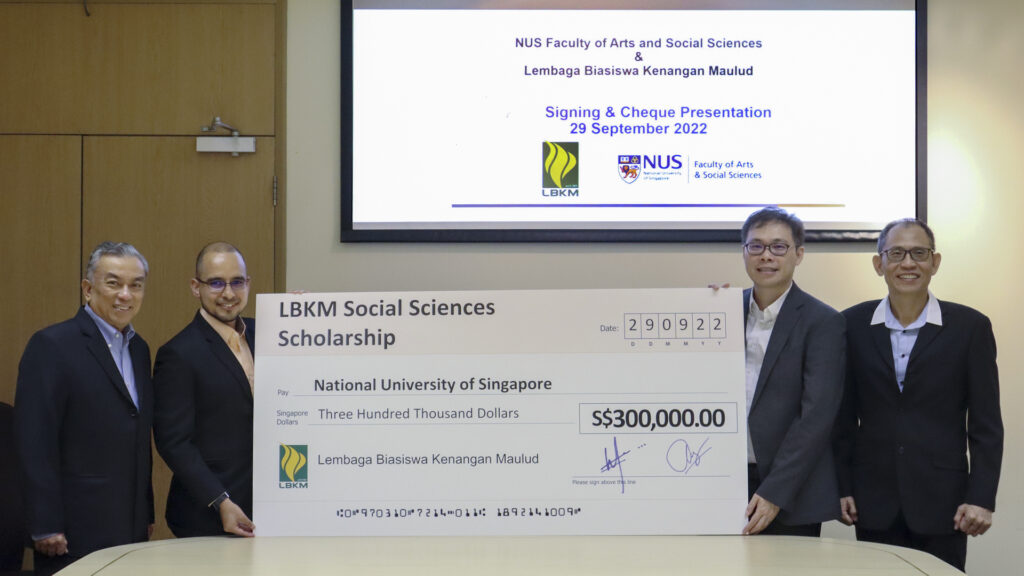
The NUS Faculty of Arts and Social Sciences (FASS) has received a generous endowment gift of S$300,000 from Lembaga Biasiswa Kenangan Maulud (LBKM) - or Prophet Muhammad's Birthday Memorial Scholarship Fund Board - to establish the LBKM Social Sciences Scholarship.
The Scholarship will be available to academically outstanding full-time third- and fourth-year Singaporean students pursuing majors in Communications and New Media, Economics, Global Studies, Philosophy, Politics and Economics (PPE), Political Science, Psychology, Social Work, as well as Sociology and Anthropology. This aims to further spur academic excellence in the social sciences amongst FASS undergraduates and encourage them to distinguish themselves in their scholastic activities.
Applications for the Scholarship worth $5,000 each will open in the academic year beginning in August 2023.
Professor Lionel Wee, Dean of NUS FASS, said, "The rise of the digital economy has driven up demand for social scientists as their knowledge and skills are needed to understand the impact of new technology on people and societies, provide social support in the wake of fast-moving changes, and overcome cultural differences in an increasingly shrinking world. These are roles robots and technology cannot replace. This Scholarship will enable us to attract and nurture exceptional social science students keen to grow their skills and achieve their fullest potential. We are grateful to LBKM for their trust and strong support."
Associate Professor Loy Hui Chieh, Vice Dean of NUS FASS, and Dr Syed Harun Alhabsyi, President of LBKM, signed the agreement today to establish the Scholarship, with a ceremonial cheque presented by LBKM to NUS FASS.
Dr Syed Harun said, "LBKM's continued support for undergraduates in the study of social sciences remains of extreme importance as societal and community needs become more complex, ever-changing and inter-disciplinary. It is hoped that LBKM's contributions will continue to inspire students to do well in the area of social sciences and groom future leaders who will not only perform exceptionally in their academic pursuits but also give back to the community."
The new LBKM Social Sciences Scholarship is an extension of LBKM's longstanding relationship with NUS FASS and past community donations that have supported undergraduate students financially and encouraged them to excel in their studies since 2007.
This story first appeared in NUSNews on 29 September 2022.
Embracing Diversity and Equality in the Workplace
IN BRIEF | 10 min read
- On the back of two successful WoW: In Conversation online sessions, NUS Alumni Relations organised the WoW: Ignite session on 7 September 2022 to inspire women in the NUS community to expand their horizons, enhance ties and networks, unlock their potential, and scale greater heights.
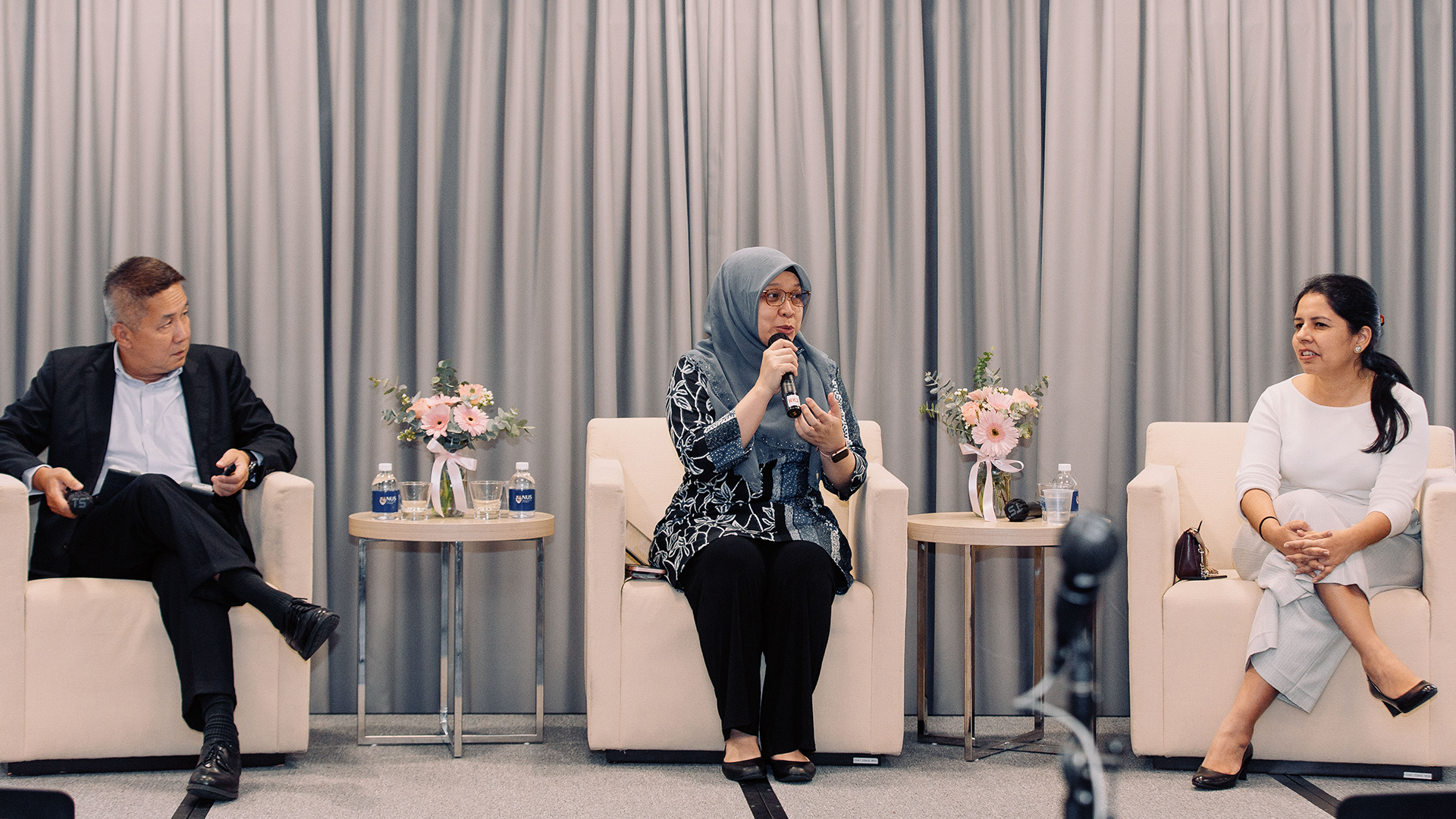
On the back of two successful WoW: In Conversation online sessions, NUS Alumni Relations organised the WoW: Ignite session on 7 September 2022 to inspire women in the NUS community to expand their horizons, enhance ties and networks, unlock their potential, and scale greater heights.
Addressing the topic "Towards a fairer and more inclusive society", panellists and participants discussed the issue of ensuring equal opportunities in the workplace - a key area in the first White Paper on Singapore Women's Development that was endorsed unanimously by Parliament on 5 April 2022.
In her pre-recorded opening address, Ms Sun Xueling (NUS Economics, '03), Minister of State for Social and Family Development, and Home Affairs, spoke about the challenges women face in the workplace and how the government is helping to mitigate these challenges.
In supporting the continuous progress of Singapore women and advancing towards a fairer and more inclusive society, the White Paper outlined 25 action plans in five key areas: equal opportunities in the workplace, recognition and support for caregivers, protection against violence and harm, other support measures for women, and mindset shifts.
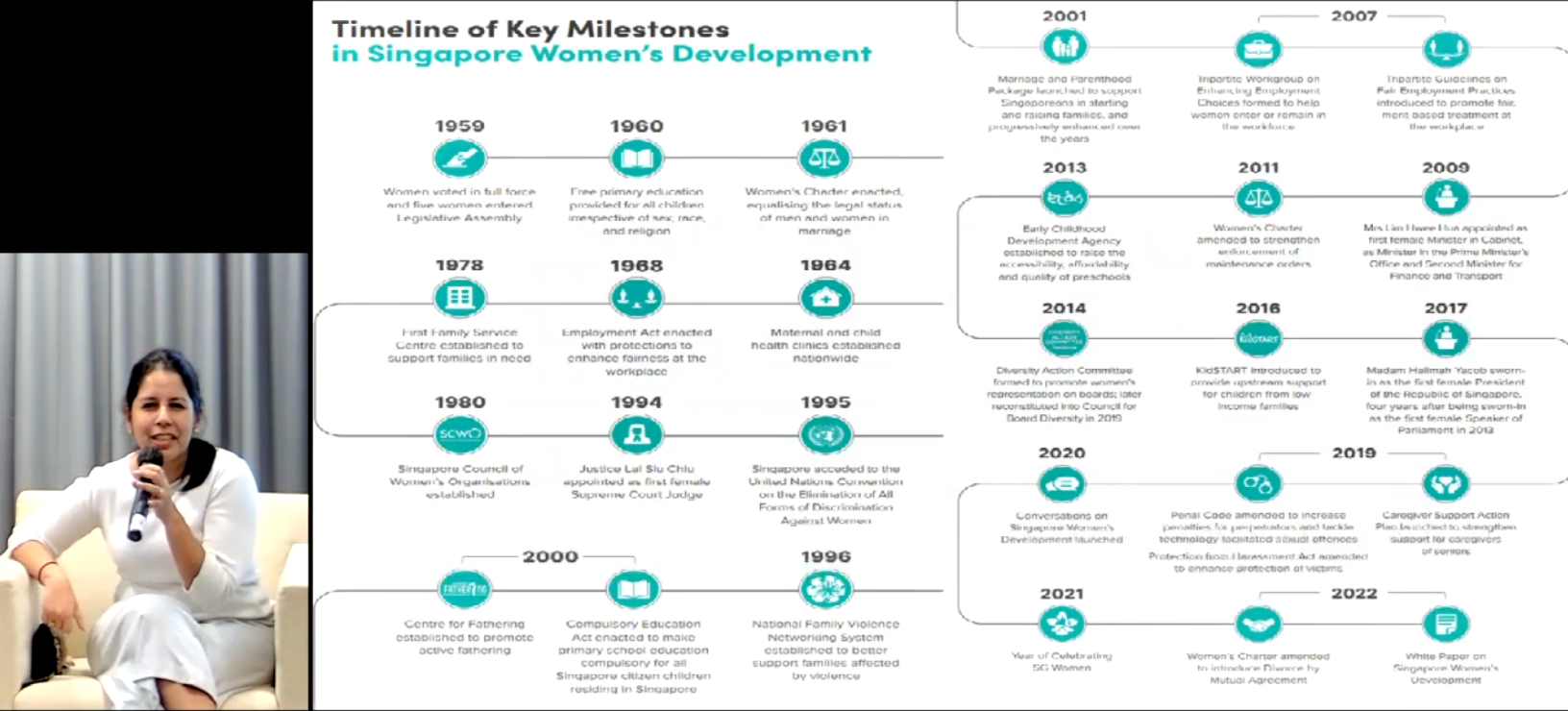
On the panel were Mr Max Loh (NUS Business '86), former Managing Partner at Ernst & Young for Singapore and Brunei, and Ms Renita Sophia Crasta (NUS Law '06), Legal Counsel and Co-President of Singapore Corporate Counsel Association. Together with moderator Dr Intan Azura Mokhtar (NUS Science '98), member of the NUS Alumni Advisory Board and Founding Chairperson of WoW, they offered anecdotes and insights on changing mindsets, the ways in which women in Singapore's workforce can be empowered, and how organisations can bring about impactful change towards equality and equity.
Panellists also took questions from the floor during a lively Q&A session, where participants had the opportunity to share personal experiences and inspiring stories of women in their lives who have overcome obstacles and realised their full potential in both the personal and professional spheres.
'WoW' stands for Women of W - wonder, wisdom, wealth of experience and other words of empowerment that start with 'w'. It is a series of panel discussions founded by Dr Intan to celebrate women and their achievements, through bringing together a panel of distinguished NUS alumnae to discuss impactful change in organisations, corporations, government and society by women leaders.
By NUS Alumni Relations
This story, by NUS Alumni Relations first appeared in NUSNews on 16 September 2022.
Inaugural Tembusu Conversations: Artificial Intelligence and the Great Leap into an Age of Plenitude
IN BRIEF | 10 min read
- Initiated by Tembusu College Rector, Mrs Lim Hwee Hua, who assumed the role in July 2022, Tembusu Conversations is a new series of dialogue sessions held every semester at Tembusu College. The dialogues aim to acquaint students with issues related to technological innovations and financial, geopolitical and social shifts, through close engagement with experts from diverse fields.

Dr Lee Kai-Fu, CEO of Sinovation Ventures and former President of Google China, envisions the future of artificial intelligence (AI) and automation to be a plenitude. As defined in Oxford English Dictionary, 'plenitude' refers to 'an abundance' and 'the condition of being full or complete'.
Speaking at the inaugural Tembusu Conversations on 7 Sep 2022, Dr Lee outlined five key driving forces which will shape the future in his 30-minute keynote address titled "How AI Will Transform the World: Upcoming Disruptions from Life Sciences to New Energy". These are Artificial Intelligence, Automation, New Energy, Quantum, and Life Sciences.
Initiated by Tembusu College Rector, Mrs Lim Hwee Hua, who assumed the role in July 2022, Tembusu Conversations is a new series of dialogue sessions held every semester at Tembusu College. The dialogues aim to acquaint students with issues related to technological innovations and financial, geopolitical and social shifts, through close engagement with experts from diverse fields.

An Age of Plenitude
These five driving forces bear great potential in transforming and changing the future as they not only can work in silos to effect change, but can also come together synergistically - such as the confluence of automation and energy which is expected to lower material and labour costs through the development of autonomous robots. Dr Lee also touched on how automation could enable medical devices in the life sciences field to become "smaller, faster, cheaper and more accurate".
Referring to quantum computing as "the greatest transformation in computing humans will witness in our history", Dr Lee shared that he expects quantum computing to mature in the next two decades and power the next wave of innovation. The speed at which quantum computing has advanced in recent years has put much of today's encryption, including cryptocurrency Bitcoin, at risk of being exposed.
Living with AI
Dr Lee also took the time to respond to questions from the floor, sharing his views on how humans can adapt to living with the changes AI will bring to jobs and lifestyles, and how we can approach ethical AI. Students took the opportunity to engage with Dr Lee in the 45-minute question-and-answer session moderated by Ayushi Lahiry, a second-year student from NUS Economics and President of the NUS Economics Society.

While it is inevitable that some jobs will be replaced along with the advancement of AI in the next decade, Dr Lee emphasised that AI is currently not able to fully supplant the human in the workplace. This, therefore, underscored the importance of identifying and nurturing career skills for jobs that are intellectually challenging and hold longevity in the advancing AI landscape, whilst embracing technology as a tool and partner in one's work. With a tongue-in-cheek reference to AI as a "glorified spreadsheet", Dr Lee encouraged students to "be happy and aspire to do things that AI cannot do".
Dr Lee also countered the notion that AI would lead to a loss of deep literacy - including capacity for thought, conceptualisation and reflection - in humans, pointing out that human-to-human services such as eldercare, sales and concierge services would likely see a surge in demand, due to an increased need for human interactions.

Dr Lee also acknowledged the existence of biases in AI, and sounded a clarion call for more focus on ethical AI through enhancing education on such topics for AI engineers. Alluding to the popular adage, "with great power comes great responsibility", Dr Lee shared the need for AI engineers to develop tools which can "send more warnings to AI, train data sets which are reasonably balanced, and cleanse data".
Referring to the multi-faceted features of AI, Dr Lee also warned that regulation of AI in itself would not serve as a panacea. He cited how computer viruses had spurred innovators to invent anti-virus software, and encouraged the invention of new technologies.
"I found his point on the need for methods to detect biased datasets to be a very critical reminder as companies can often overlook ethical considerations when developing AI, such as bias reduction, in the pursuit of efficiency," shared Ramu Lakshmanan, a Year 1 student from NUS Computer Science. "I've realised the need to be aware of bias should I have to work on AI in the future".
Jonah Lo, a first-year student from NUS Political Science, expressed his appreciation for Dr Lee's problem-solving approach. "Perhaps inspired by his broad entrepreneurial and technological background, he noted how problems like racial bias could be resolved through technical solutions like compilers," he said, referring to the software that translate source code written in a high-level language into machine-language instructions.
"Such angles are novel for a political science student," he added.

Opportunities for the Future
In response to how other countries such as Singapore can survive and thrive, Dr Lee offered some optimism that many opportunities are waiting to be discovered. Referring to examples of tech giants Grab and TikTok which have established offices locally, Dr Lee encouraged young people to embark on careers with such companies, which he believes will offer valuable learning points about entrepreneurship that would be helpful in founding startups. Referring to numerous successful Chinese startups which emerged from former employees of China's BAT - Baidu, Alibaba, Tencent - Dr Lee expressed his belief that the same could be achieved by future entrepreneurs in Singapore despite its small market size.
This story by Tembusu College first appeared in NUSNews on 16 September 2022.
OCBC Bank and NUS Collaborate on Nationwide EV Adoption Study
IN BRIEF | 10 min read
- This will be Singapore's largest dedicated study to understand the factors that best influence the adoption of electric vehicles.
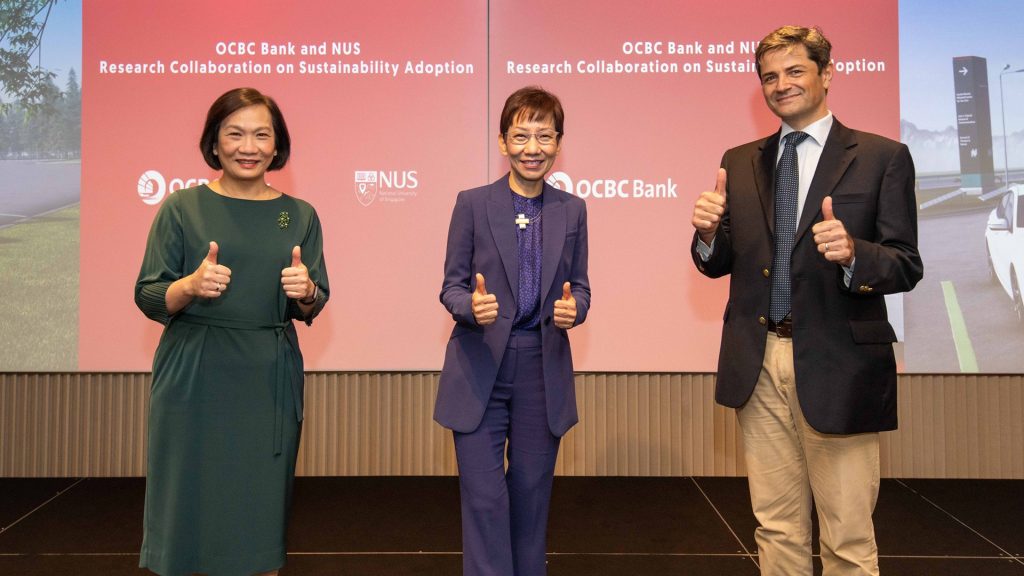
OCBC Bank and the National University of Singapore (NUS) announced the start of the nation's largest dedicated study to understand the most effective nudges to adopt electric vehicles (EV) by Singaporeans. A total of 32,000 OCBC Bank customers will contribute to the study, which is expected to span three months. They will be selected on the basis of having a high likelihood of replacing their cars in the coming years.
Through the study, OCBC Bank and NUS aim to uncover nudges that best push consumers to make the switch to EVs, such as concerns over cost of EV ownership in the long-run or climate-damaging carbon emission levels of petrol and diesel vehicles. The persuasiveness of the different factors will be gauged by studying anonymised data from the 32,000 customers, including transit spending, fuel purchases on OCBC cards and EV transition rate.
Leading the NUS research team is Associate Professor Alberto Salvo from the Department of Economics at the NUS Faculty of Arts and Social Sciences. Prof Salvo is also Associate Director at the NUS Global Asia Institute (GAI). The team also comprises GAI environmental and behavioural economists, along with an expert on the US and Chinese EV markets from Cornell University.
The findings from the study will help businesses and organisations accelerate consumers' adoption of EVs and other green practices, and also to support Singapore's current push to electrify its vehicle population by phasing out petrol and diesel vehicles by 2040. Currently, EVs represent less than one per cent of Singapore's total car population according to Singapore's Land Transport Authority.
OCBC Bank has seen the take-up rate of its enhanced electric vehicle loan or the OCBC 'Eco-Care' car loan more than double since its launch in March 2021. With the surge of demand and interest in EVs, the bank expects the overall OCBC 'Eco-Care' car loan business to achieve growth of more than 250% by the end of the year. The study of the findings will allow OCBC bank to further refine and tailor its green products to make them more attractive to customers.
Mr Sunny Quek, Head of Consumer Financial Services Singapore, OCBC Bank, said, "Supporting our customers in the transition to a low-carbon world is an area of focus for OCBC and this has been formalised in our corporate strategy. To that end, we have made a concerted effort to launch sustainable products and services, including green investment products and our OCBC 'Eco-Care' home, renovation and car loans - and the take-up rates have been encouraging thus far. However, given the urgency of the climate crisis, more needs to be done to speed up adoption rates. That is why we embarked on this study with NUS. Only by understanding what makes consumers tick, and which factors really tip the scale for them in favour of electric vehicles, can we effectively encourage our customers to go green."
Associate Professor Salvo said, "The EV market is very fluid, information frictions are substantial and there is little carbon literacy. We believe that relationships built on trust, such as a person's relationship with their bank, as in the case of OCBC's customers, have a key role to play in educating current petrol car owners on just how attractive EVs can be, both for themselves and for the betterment of society. Our partnership is ultimately about helping Singapore meet its carbon mitigation pledges."
After the study is concluded and the results analysed, a research paper will be released. This is expected to be in Q2 2023. This study is the latest initiative from OCBC Bank to build up Singapore's EV ecosystem. Previously, the bank announced a strategic partnership with Charge+, an operator and provider of EV charging solutions, to give a boost to Charge+'s plans of installing 10,000 EV charging points islandwide by 2030. The bank also has the largest EV charging hub in Singapore's Central Business District with 10 charging points, again in collaboration with Charge+. For more on OCBC Bank's sustainability-related initiatives, please click here.
This story first appeared in NUSNews on 18 August 2022.
A Lot of Swot – Good or Not?
IN BRIEF | 6 min read
- Dr Kelvin Seah Kah Cheng, Senior Lecturer and Director of Undergraduate Studies from NUS Economics answers questions from The Straits Times readers.
Click through image below to read this piece.
This article first appeared in The Straits Times and NUSNews on 10 August 2022.
Raise salaries to attract more locals to hospitality and F&B? It’s not so simple.

Photo: ‘Hotel service bell, Concept hotel, travel, room, Modern luxury hotel reception counter desk on background’, iStock/davit85
As COVID-19 safe distancing measures were eased, demand for hotels and F&B experiences bounced back. However, the hospitality sector has been plagued with slow service due to a labour crunch. In “Commentary: Raise salaries to attract more locals to hospitality and F&B? It’s not so simple” (Channel NewsAsia, July 2022), Dr Kelvin Seah (NUS Economics) discusses how to best address this manpower shortage. The labour crunch began at the peak of the pandemic. Initially, border closures limited the supply of incoming foreign manpower. With the lifting of border restrictions, many foreign workers in Singapore are returning home to visit their loved ones, and not all will return here for work. Local workers are also seemingly disincentivised to work in the hospitality industry, even with higher salaries offered. Dr Seah points out that the manpower shortage is likely to be temporary, and will improve in the long run. Many foreign workers returning to their home countries will eventually come back to Singapore for work. Moreover, the strength of the Singapore dollar against other regional currencies can translate into attractive salaries, enticing prospective foreign workers and compensating for any outflow in foreign labour due to borders opening. However, Dr Seah notes that new COVID-19 variants may cause outbreaks in other countries, disrupting the inflows of foreign labour to Singapore. Despite some calls for the government to loosen quotas on foreign labour, Dr Seah argues that it will not be necessary to do so, given that the manpower crunch is temporary. In fact, easing companies’ access to foreign manpower will result in lower wages, which makes hospitality jobs even more unattractive to local workers and reinforces companies’ reliance on foreign labour. Since easy access to foreign labour will reduce the incentives for companies to upgrade, improve working conditions, and raise productivity, maintaining the quotas is integral for improving balance in the labour market. As such, Dr Seah suggests two solutions for hotels and F&B outlets to address the labour crunch in the long run. Firstly, companies can rely less on manpower and more on technology, to work smarter and raise productivity. More processes can be automated and more functions can be performed by robots. Some jobs still need to be carried out by humans, but automation will help in redeploying existing manpower and boosting these workers’ productivity. Moreover, software utilising data analytics can help hotels predict expected demand for accommodation, allowing them to take on only as many guests as they can manage with the predicted level of manpower for that period. Secondly, companies can attract local workers by offering better work conditions, which matters more to them than token pay increases. Currently, in the hospitality industry, the working hours and demands of the job can be tough, both physically and mentally. Furthermore, despite salary raises, the median monthly salary of hotel managers still remains well below that of their counterparts in the retail and recreation sectors. Hence, it is important for firms to bolster salaries, explore how to help workers upskill in tandem with career progression, and consider shorter and more flexible work hours. Overall, Dr Seah recommends putting staff first by improving their salaries in a meaningful way, raising their productivity through technology, and improving their work conditions, in order to address the short-term labour crunch. Read the full article here.NUS University Awards 2022: Eight Individuals Recognised for Exceptional Contributions to Education, Research and Service
IN BRIEF | 10 min read
- The annual Awards pay tribute to those who are trailblazers in their fields and have made sterling contributions to NUS, Singapore, and the global community.
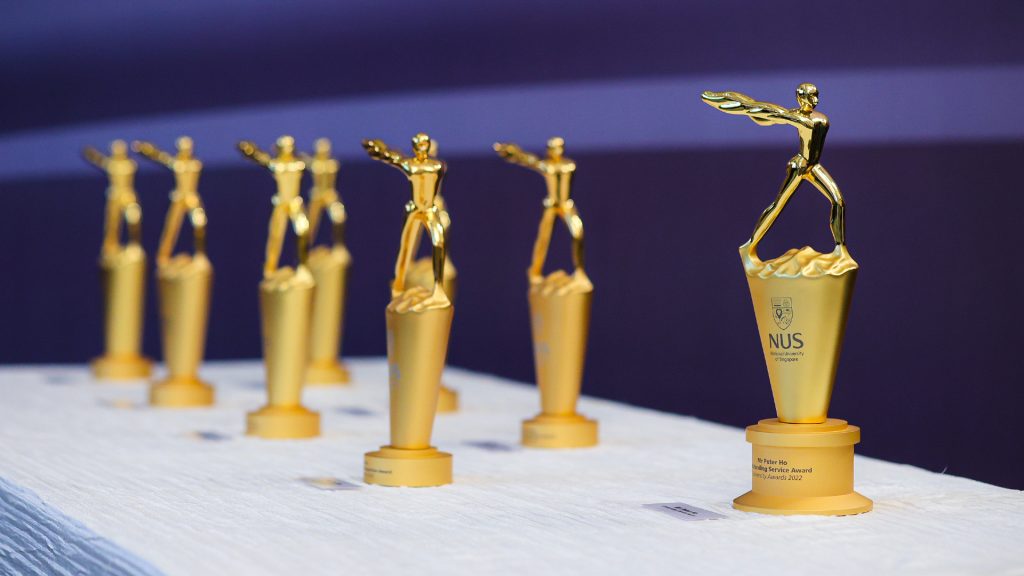
Eight distinguished educators, researchers and professionals were feted for exemplifying excellence in their respective spheres at the NUS University Awards 2022. The annual Awards pay tribute to those who are trailblazers in their fields and have made sterling contributions to NUS, Singapore, and the global community.
Speaking at the ceremony held at Shangri-La Singapore on 29 July, NUS President Professor Tan Eng Chye said, "I would like to convey my heartiest congratulations to all our award winners. You have distinguished yourself in your respective fields, and have flown the NUS flag high. The NUS community is immensely proud of you and we are delighted to honour your accomplishments and contributions."
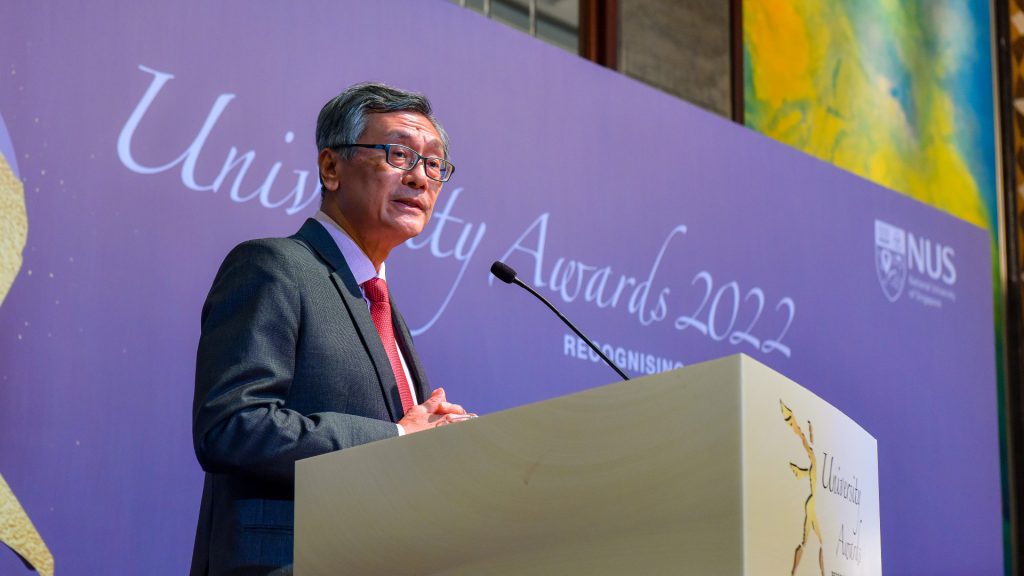
Top accolade - Outstanding Service Award
This year, the prestigious Outstanding Service Award was conferred on Mr Peter Ho, member of the NUS Board of Trustees, Senior Advisor at the Centre for Strategic Futures, and Chairman of the Urban Redevelopment Authority of Singapore.
A long-standing member of the NUS Board of Trustees since 2011, Mr Ho has been a source of strategic wisdom in helping to chart the University's future direction in education and research. As a mark of his unwavering commitment to NUS, he is concurrently Chair of the Campus Planning and Development Committee, and Nominating Committee, and serves on the Executive Committee and Remuneration Committee.
Selfless in the dedication of his time and resources to serve the University, Mr Ho is also a member of the Board of Governors and Executive Committee, and Chair of the Finance Committee of the Lee Kuan Yew School of Public Policy (LKYSPP). Among his many contributions were his insights on how LKYSPP could draw on Singapore's experience in policy, governance and strong international reputation to distil thought leadership and position itself globally as a leading school of public policy.
Additionally, as Founding Chairman of the NUS Faculty of Engineering's Advisory Board from 2017 to 2021, Mr Ho pioneered a 3R framework - Rapid Change, the Real World and Relevance (to Industry) - to steer top-level discussions between the Faculty and the Board on areas spanning curriculum revisions, student outreach, and industry engagement.
Delivering the citation for Mr Ho's conferment, Professor Danny Quah, Dean and Li Ka Shing Professor in Economics at LKYSPP, expressed deep gratitude to Mr Ho for his tireless dedication and contributions to NUS over the past decade, noting that the University has "benefitted tremendously from [his] wealth of experience, stemming not least from his illustrious 34-year career in Singapore's Administrative Service."
Sharing his vision for the University, Mr Ho said: "NUS has made tremendous progress in driving research, innovation and interdisciplinary education, establishing itself successfully as a comprehensive university of world-class standing. I hope NUS will hold fast to its sense of wonder about the world ─ to be always forward-looking and seeking new ideas."
"I'm very grateful and honoured to be bestowed this award," he added.
Watch this inspiring video on Mr Ho's dedicated contributions towards the University and society.
*Mr Peter Ho was unable to attend the the awards ceremony in person.
Scaling new peaks in education and research
NUS also celebrated the achievements of seven outstanding educators and researchers from the College of Design and Engineering (CDE), College of Humanities and Sciences (CHS), and School of Computing (SoC).
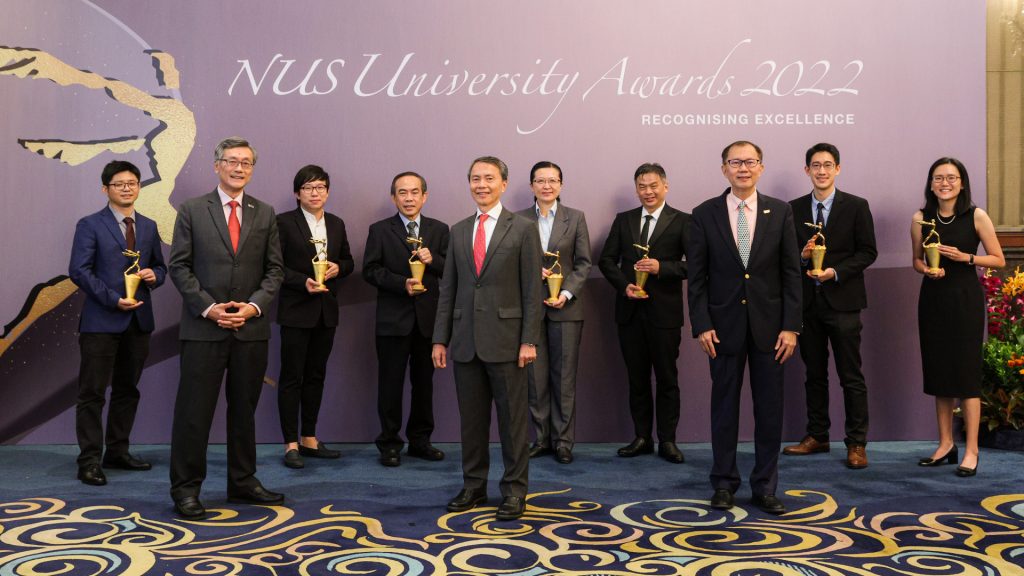
University Research Recognition Award
Professor Chua Tat Seng, Kwan Im Thong Hood Cho Temple Chair Professor from the SoC's Department of Computer Science, and Professor Liu Bin, Distinguished Professor and Senior Vice Provost (Faculty and Institutional Development), were both recognised for their groundbreaking research that has positioned NUS at the forefront of their areas of expertise.
Renowned for his work in multimedia information retrieval and social media analytics, Professor Chua is a pioneer in neural and explainable recommendation, and has conducted innovative research on causal reasoning framework towards robust Artificial Intelligence.
Professor Liu Bin, on the other hand, is a prolific researcher in the field of organic functional materials, and is highly regarded internationally for her work on polymer chemistry and applications of organic nanomaterials in medicine, environmental monitoring, and energy systems.
Young Researcher Award
Three up-and-coming researchers were also commended for the potential of their research to extend the frontiers of knowledge in their respective fields:
1) Associate Professor John Ho from the CDE's Department of Electrical and Computer Engineering, and the Institute for Health Innovation & Technology, is a rising star in the field of bioelectronics, whose work focuses on developing wireless medical technologies to remotely monitor and treat disease;
2) Associate Professor Lu Jiong from the Department of Chemistry in the CHS' Faculty of Science, and Institute for Functional Intelligent Materials, specialises in research involving large-scale synthesis of atomically precise single-atom catalysts - technologies which are important for many industrial applications related to sustainable chemical and energy transformations;
3) Associate Professor Jessica Pan from the Department of Economics in the CHS' Faculty of Arts and Social Sciences, is an empirical labour economist whose research is highly relevant to the development of effective policies to address gender-based disparities in the labour market. Her recent work examines gender differences in labour market and educational outcomes, the labour market effects of immigration, and the economics of higher education.
Outstanding Educator Award
Associate Professor Heng Cheng Suang from the SoC's Department of Information Systems & Analytics, and Mr Donn Koh from the CDE's Division of Industrial Design, were honoured for being exemplary educators who have excelled in engaging and inspiring their students in their quest for knowledge.
Having taught a generation of students to adapt nimbly to an IT industry evolving at lightning speed, Associate Professor Heng successfully integrates theory and practice in the design of modules with real life applications, and injects awareness of social causes into projects to cultivate in his students a sense of social responsibility.
The other recipient, Senior Lecturer Donn Koh, is a leader in teaching innovation who has delivered authentic learning with high levels of real-world results, such as enabling student teams to commercialise and market their designed products. He is also well-regarded for developing transformative mentoring relationships with students − often through using technology in humanistic ways.
Read more about the NUS University Awards recipients here and refer to the NUS press release here.
This story first appeared in NUSNews on 29 July 2022.
NUS Economics’ Associate Professor Jessica Pan Among Eight Honoured at NUS University Awards
IN BRIEF | 10 min read
- NUS Economics' Associate Professor Jessica Pan - whose recent work focused on gender differences in labour market and educational outcomes, the labour market effects of immigration, and the economics of higher education - has received a Young Researcher Award by the University.
The National University of Singapore (NUS) celebrated on 29 July 2022 the accomplishments of eight outstanding members of the NUS community who have scaled new peaks of excellence and set new benchmarks in education, research and service. The annual NUS University Awards 2022 recognises educators, researchers and professionals for their exceptional contributions to the University, Singapore and the global community.
NUS President Professor Tan Eng Chye said, "Excellence is an enduring core value and a hallmark of NUS. I am very proud of the award winners who have exemplified excellence in spite of the changes and challenges brought about by the pandemic. Undeterred, they pressed on towards the high mark of excellence in their respective spheres. They are trailblazers and have flown the NUS flag high. My heartiest congratulations to all the award winners!"
Among the winners féted was one of NUS Faculty of Arts and Social Sciences and NUS College of Humanities and Sciences' own. Associate Professor Jessica Pan (NUS Economics) received a Young Researcher Award, along with two other colleagues from across campus, in recognition of her work in examining, among other factors, the "various constraints that women might face in attaining their full earnings potential", including "persistent gender identity norms, increasing returns to working long hours coupled with the lack of affordable and flexible childcare and prejudice-based discrimination," according to the award citation.

"I am delighted to receive this award and very much appreciate all the support that NUS has given me in terms of my research and professional development. There has been renewed interest in understanding the barriers to social inequities and I'm very excited to continue to contribute research that is relevant to the public and policy discourse on these issues," said Assoc Prof Pan, who also expressed hopes that the award win could also help draw more attention to the subject of her research, including the many prejudices and inequalities facing women in society, particularly at work.
"Indeed, the work that I've been doing in the gender space resonates strongly with recent policy debates in Singapore on how to address the remaining gender disparities in the labor market. I think a lot of the research findings really help to zoom in on what policies are likely to work and what wouldn't," she said. "I believe that there is a lot more that needs to be done to figure out the sources and the appropriate policy responses to gender inequality, but the research is certainly heading in the right direction. I do hope this award will reaffirm the importance of such research and encourage more work in this area among both academics and policymakers."
Below is a rundown of all the awards presented: Outstanding Service Award, University Research Recognition Award, Young Researcher Award and Outstanding Educator Award.
Outstanding Service Award
The prestigious Outstanding Service Award was conferred on Mr Peter Ho, Senior Advisor, Centre for Strategic Futures; Chairman, Urban Redevelopment Authority of Singapore; and member of the NUS Board of Trustees, in recognition of his sustained contributions in selflessly serving the University and society.
As former Head of Civil Service, Mr Peter Ho carved a distinguished 34-year career in the Singapore public service, including permanent secretary appointments at the Ministries of Defence and Foreign Affairs, and the Prime Minister's Office. He was also inaugural Chairman of the Maritime and Port Authority of Singapore. A strong believer in a networked government, he played an instrumental role in galvanising various agencies to work together on key national challenges.
Serving as a member of the NUS Board of Trustees since 2011, Mr Ho has provided invaluable guidance and perspectives in charting the University's growth and direction in education and research. He is concurrently Chair of the Campus Planning and Development Committee, and Nominating Committee; and is a member of the Executive Committee and Remuneration Committee.
A member of the Board of Governors and Executive Committee, and Chair of the Finance Committee of the Lee Kuan Yew School of Public Policy (LKYSPP), Mr Ho provides strategic guidance and counsel to the School in various aspects, from strategic planning and school development, to finances and programme development. Among his many contributions, he imparted knowledge on how LKYSPP could draw on Singapore's experience in policy, governance and strong international reputation to distil thought leadership and position itself as a leading school of public policy globally.
As Founding Chairman of the NUS Faculty of Engineering Advisory Board from 2017 to 2021, Mr Ho pioneered a faculty framework termed the 3Rs-Rapid Change, the Real World and Relevance (to Industry)-to steer top-level discussions by faculty management and Board members on areas spanning curriculum revisions, student outreach and industry engagement.
Seven Exemplary Educators and Researchers
The University recognised and honoured the accomplishments of seven outstanding educators and researchers at the event:
University Research Recognition Award
1) Professor Chua Tat Seng, Kwan Im Thong Hood Cho Temple Chair Professor from Department of Computer Science, School of Computing
Well-known for his work in multimedia information retrieval and social media analytics, he is a pioneer for neural and explainable recommendation as well as causal reasoning framework towards robust Artificial Intelligence. 2) Professor Liu Bin, Senior Vice Provost (Faculty and Institutional Development) and Distinguished Professor
A world-renowned researcher in the field of organic functional materials, she is particularly known for her prolific work on polymer chemistry and applications of organic nanomaterials in medicine, environmental monitoring, and energy systems.
Young Researcher Award
1) Assistant Professor John Ho from the Institute for Health Innovation & Technology; and Department of Electrical and Computer Engineering, College of Design and Engineering
A rising star in the field of bioelectronics, he is internationally known for his work on wireless technologies for remotely monitoring and treating disease. 2) Associate Professor Lu Jiong from the Department of Chemistry, College of Humanities and Sciences; and Institute for Functional Intelligent Materials
Known for his creative works involving large-scale synthesis of atomically precise single- atom catalysts, he is at the forefront of technologies which are important for many industrial applications related to sustainable chemical and energy transformations. 3) Associate Professor Jessica Pan from the Department of Economics, College of Humanities and Sciences
An empirical labour economist whose recent work focuses on gender differences in labour market and educational outcomes, the labour market effects of immigration, and the economics of higher education, she has won an award for a paper on gender segregation in occupations and published many highly-cited research articles. Outstanding Educator Award
1) Associate Professor Heng Cheng Suang from the Department of Information Systems & Analytics, School of Computing
Successfully integrating theory and practice in the design of modules with real life applications, he leverages diverse instructional methodologies and pedagogies as well as new materials and engaging class activities that effectively overcome the challenges of online teaching. 2) Mr Donn Koh, Senior Lecturer from the Division of Industrial Design, College of Design and Engineering
An exemplary leader in teaching innovation who has delivered authentic learning with the highest level of real-world results the faculty has ever seen, he has achieved distinction in developing transformative mentoring relationships with students - often through technology in humanistic ways.
This story first appeared in NUSNews on 29 July 2022.
FASS Students Dominate 2022 USP Awards
IN BRIEF | 10 min read
-
NUS Faculty of Arts and Social Sciences (FASS) students have topped 9 out of 14 prize categories in 2022 University Scholars Programme (USP) Awards, achieving the USP Overall and Domain Prizes for academic excellence.

Students of the NUS Faculty of Arts and Social Sciences (FASS) in the University Scholars Programme (USP) have topped 9 out of 14 categories at the 2022 USP awards, including the Joanna Wong Medal, NUSS Medal for Outstanding Achievement, Izzudin Taherally Prize, Chan Bibe bte Syed Mohd Shah Prize, Albert Teo Prize, Tin Chew Hong Prize, Syed Ahmad Khan AMU Memorial Prize and Sung Kah Kay Memorial Prize. FASS students have also swept the USP Overall and Domain Prizes, with Philosophy, Politics, and Economics major Nickson Quak Jun Hao (Philosophy, Politics, and Economics) taking Best Overall Performance, in addition to sharing top spot with his compatriot Terence Mah (Psychology) under Best Performance in Science and Technology.And to stamp FASS’ dominance in this year’s awards, Archana Dhinakar Bala (Economics) – winner of the Joanna Wong Medal and the Syed Ahmad Khan AMU Memorial Prize – served as valedictorian for the USP commencement ceremony.
In full, the list of FASS winners of this year’s USP awards are.
Joanna Wong Gold Medal Award
Presented to the graduating student from USP who best embodies the ethos of the programme—demonstrating academic excellence and commitment to co-curricular activities.
Winner: Archana Dhinakar Bala (Economics) NUSS Medal for Outstanding Achievement
Presented to the graduating USP student with outstanding all-round achievements, who demonstrates academic excellence as well as significant participation in NUS students activities and/or impactful contribution in community service/voluntary work, preferably in leadership capacities.
Winner: Teow Jun Hao (Philosophy, Politics, and Economics) Sung Kah Kay Memorial Prize
For the graduating USP student who best exemplifies scholarship and academic excellence, and who demonstrates leadership in independent and interdisciplinary scholarship.
Winner: Yip Sze Kay (Majors: English Literature and Philosophy, Minor: French) Izzuddin Taherally Prize
For the graduating USP student who is well-rounded and has exemplified academic excellence and demonstrated a strong commitment to promoting interfaith dialogues or activities related to social harmony.
Winner: Ahmad Zaki bin Yazid (History) Chan Bibe Bte Syed Mohd Shah Prize
For the graduating USP student who is well-rounded and has demonstrated academic excellence as well as a strong commitment to wide-ranging learning through co-curricular acivites, or to community service.
Winner: Rachel Teng Ying Xin (Sociology) Albert Teo Prize
For the well-rounded graduating USP student who has exemplified academic excellence and demonstrated a strong passion for entrepreneurship or innovation in the social or business sector.
Winner: Peng Yun Ting (Philosophy, Politics, and Economics) Tin Chew Hong Prize
For the graduating USP student who is well-rounded, has exemplified academic excellence, and demonstrated strong commitment to community service preferably in the areas of eldercare, ageing or gerontology.
Winner: He Shiying (Major: Global Studies, Minor: Public Health) Syed Ahmad Khan AMU
For exemplifying academic excellence and reflecting a strong commitment or made a significant contribution to South Asian studies and culture.
Winner: Archana Dhinakar Bala (Economics) USP Prizes: Overall and Domain
For graduating USP students who have demonstrated academic excellence in USP modules.
- Best Overall Performance
Winner: Nickson Quak Jun Hao (Philosophy, Politics, and Economics)
- Best Performance in Humanities and Social Sciences
Winner: Belle Koh Rae Qi (Psychology)
- Best Performance in Science and Technology
Winners: Nickson Quak Jun Hao (Philosophy, Politics, and Economics) and Terence Mah Cai Jun (Psychology)
Commencement 2022: Kickstarting a Season of Celebration and Achievement
IN BRIEF | 10 min read
- NUS celebrates the milestone accomplishments of 13,975 graduates through 28 in-person ceremonies.
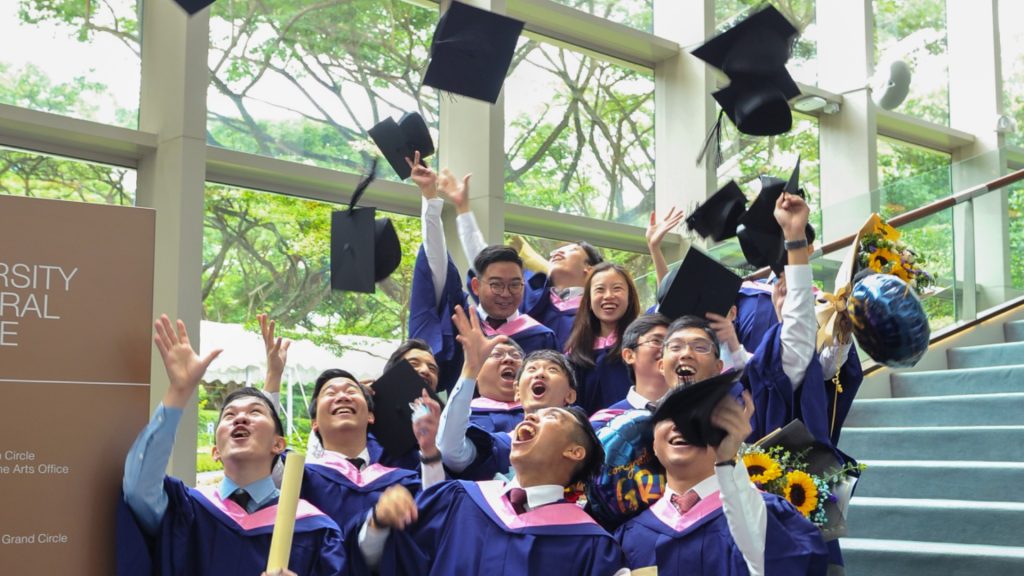
A long-awaited season of celebration is officially under way, with the inaugural ceremony of Commencement 2022 marking the milestone achievements of some 200 Faculty of Arts and Social Sciences (FASS) graduates, and seeing the conferment of two Honorary Graduates, Professor Tommy Koh and Professor Wang Gungwu.
Taking place at the University Cultural Centre, the ceremony kicked off bright and early on 6 July to an effervescent buzz of anticipation from the graduates and their loved ones, inaugurating a total of 28 in-person ceremonies to be held over the following 10 days.
In keeping with the Commencement traditions and the proud ceremonial heritage of NUS, the ceremony showcased the pageantry of the Ceremonial Procession, the fanfare, and playing of the National Anthem, all culminating in the highlight of the ceremony-the presentation of graduates. Graduates from the Class of 2022 celebrated their achievements amid the applause of family and friends, a momentous apogee of their time in NUS.
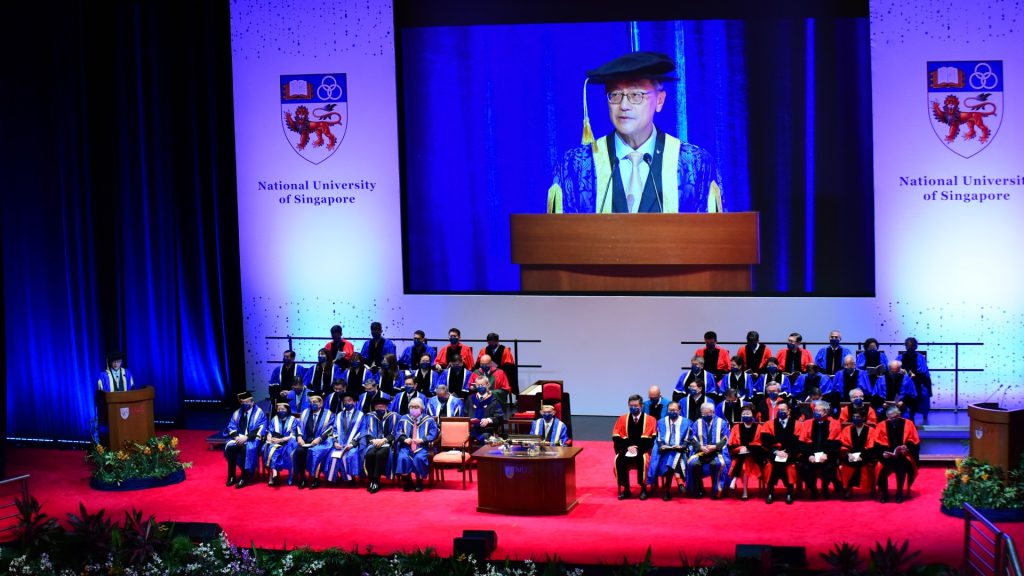
Speaking at the ceremony, NUS President Professor Tan Eng Chye reflected on the qualities needed for graduates to thrive in today's dynamic environment: an attitude of resilience and adaptability to overcome challenges, and a willingness and boldness to view problems as opportunities, exercise creativity, and apply their skills and knowledge to create solutions.
"For the Class of 2022, you are crossing the threshold into a wider world of dynamic change and great possibilities, but also of discomforting uncertainty," he said.
"But I am fully confident that the NUS graduates of today share the same ethos of excellence and service to community of generations past. In time to come, you will undoubtedly make your own unique contributions, and become the vanguard in elevating our collective prosperity and well-being."
Contributions to Law, Nature and Culture: Prof Tommy KohTwo illustrious NUS alumni were also honoured as Honorary Graduates for the Class of 2022-lawyer and diplomat Professor Tommy Koh, and historian Professor Wang Gungwu.
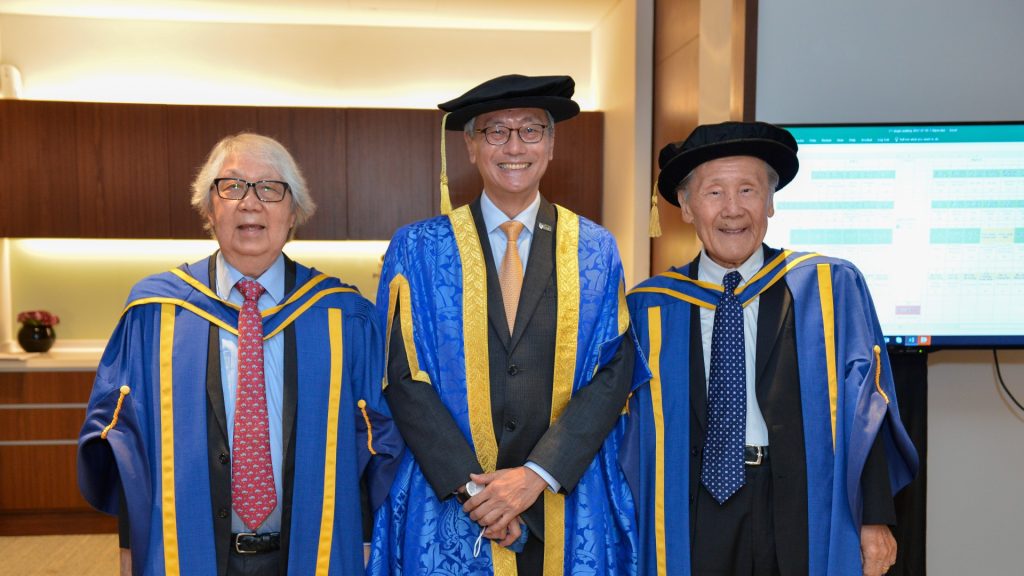
In recognition of his dedication as a practitioner-scholar and decades of service to the University, Singapore, and the world, Prof Koh, who wears many hats including Ambassador-at-Large at Singapore's Ministry of Foreign Affairs, Special Advisor of the Institute of Policy Studies, and founding Rector of NUS' Tembusu College, was conferred the Honorary Degree of Doctor of Laws.
Highlighting three areas on which he has focused his energies - law, nature, and culture - Prof Koh said, "I chose to study law, not to enrich myself, but to pursue justice and to promote the rule of law."
He also spoke about his work concerning nature and the environment, including chairing the 1992 Earth Summit, being patron of the Nature Society, and helping NUS establish the Lee Kong Chian Natural History Museum as its founding Chairman. "My vision is to live in harmony with nature. My agenda is to promote sustainability in all our endeavours," he added. "I am [also] glad that I have been able to play a very small role in transforming Singapore, from a cultural desert to a cultural oasis."
Delivering the citation for Prof Koh's conferment, Professor Simon Chesterman, Vice-Provost (Educational Innovation) and Dean of the NUS Faculty of Law and NUS College, referred to Prof Koh's "academic milestones [which] are but one strand of the rich tapestry of his professional life", as well as his leadership and guidance in education at NUS, and his eminent contributions to state and environmental diplomacy.
An Inspiring Story Worth Retelling: Prof Wang GungwuProf Wang, one of the world's foremost experts on the Chinese diaspora and Sino-Southeast Asian historical relations, was conferred the Honorary Degree of Doctor of Letters, the latest in a long list of accolades that includes the prestigious Tang Prize in Sinology, and the Distinguished Service Order of Singapore.
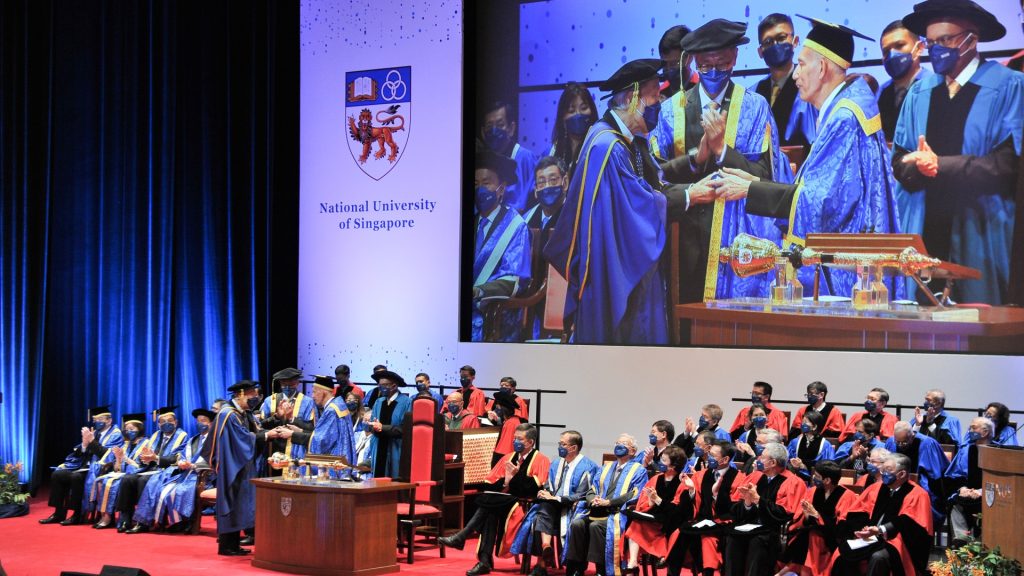
Reflecting on his time as a student of the University in colonial Malaya, Prof Wang said: "You can imagine how happy I am to be a graduand again with my alma mater. The university gave my generation a good start in life. It went on to adapt to the rapid changes of our time. In so doing, it has come out better and stronger."
He spoke about the "inspiring story worth retelling" of how the University had set out and followed its own aspirations, becoming a major centre of learning by being actively connected to the world, as well as regularly reinventing itself.
"The way our university strives to keep our humanity always in our sights is something to be very proud of. I hope that all of us graduating today, no matter where life leads us, will never hesitate to help our university to enhance this capacity to advance our human condition," Prof Wang stressed.
Prof Lionel Wee, Dean of FASS and co-Dean of the College of Humanities and Sciences, who delivered the citation on Prof Wang's conferment, lauded the latter as "an eminent figure and brilliant mind" who has made manifold contributions as a leading figure in Sinology, a renowned public intellectual, and a visionary leader and administrator at leading academic institutions around the world.
"This doctorate symbolises the meaningful connections between Professor Wang and the University, and it celebrates the long-standing contributions and value that Professor Wang's scholarly insights bring to Singapore, to Southeast Asia and, indeed, to the world," he said.
Parsing the Path ForwardInfusing the celebrations with a spirit of introspective gratitude, Valedictorian Mr Nickson Quak, who is graduating with a Bachelor of Arts with Honours (Highest Distinction) in Philosophy, Politics, and Economics said, "As varied as our journeys may have been, each and every one of us graduates here could have only made it thus far because of the unwavering support that our parents, our families, our loved ones, and our friends have so generously afforded us."
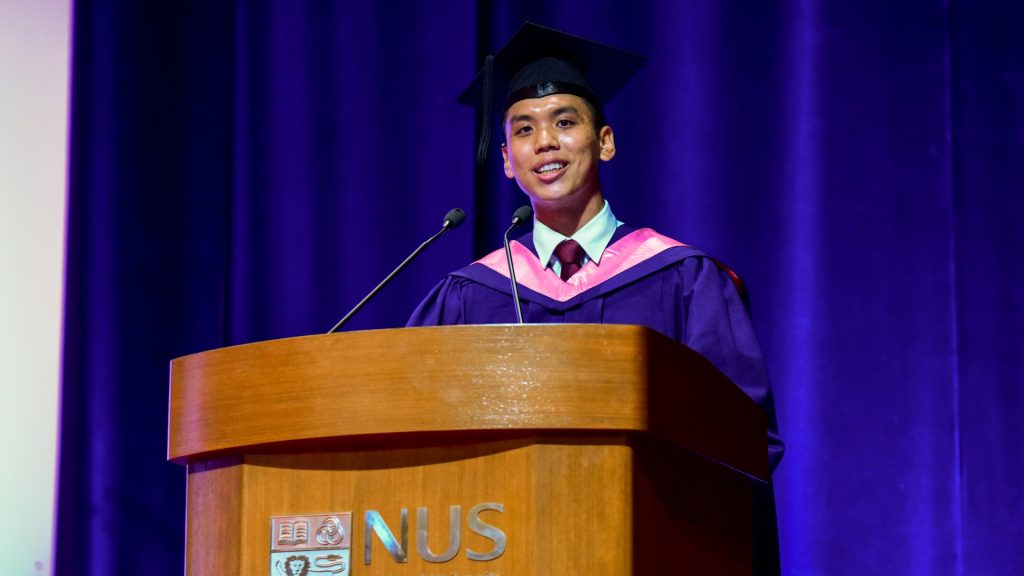
His words further summarised the spirit of determination and community that will carry graduates onwards in their lives: "If [the journey ahead] appears daunting to you, I say to you: fret not… because when you look to your left and your right, you see the resilient men and women who, forged by the challenges brought upon by the global pandemic, will always offer you a helping hand."
This story first appeared in NUSNews on 6 July 2022 as part of NUS News' coverage of Commencement 2022, which celebrates the achievements of our 13,975 graduates through 28 in-person ceremonies. For more on Commencement, look out for our upcoming graduate profiles, check out the official Commencement website, or look up (and tag) #NUS2022 and #NUSFASS on NUS' and FASS' social media channels!
#ICYMI: FASS@CHS Open House 2022 — View On Demand Here!
IN BRIEF | 3 min read
- If you missed the NUS College of Humanities Open House 2022, worry not. All the talks and engagement sessions of 11 and 14 May are available for your viewing on-demand here.
Prospective students considering their offer but have missed the NUS College of Humanities Open House 2022 do not have to worry about missing out on information and insights they may need to make their decisions.
All the talks and FASS@CHS engagement sessions listed below are available for your viewing on-demand here or at https://bit.ly/FASSatCHSOH2022.
NUS CHS Open House 2022 Online (11 May 2022)
- Introduction to CHS, CHS Core Curriculum, Student Experiences & Learning Pathways
- Experiential Learning & Career Preparation, and Student Leaders Sharing
- BES-XDP (Bachelor of Environmental Studies Cross-Disciplinary Programme)
- DSE-XDP (Data Science and Economics Cross-Disciplinary Programme)
- PPE-XDP (Philosophy, Politics, and Economics Cross-Disciplinary Programme)
Introduction to CHS
Experiential Learning, Career Preparation, Student Leaders
BES-XDP
DSE-XDP
PPE-XDP
South Asian Studies
Education@FASS Depth, Diversity, and Difference I (11.30–1200)
Communications and New Media
Languages
Chinese Studies
Education@FASS Depth, Diversity and Difference II (1430–1500)
Anthropology
Economics
FASS@CHS Open House 2022 On-Campus (14 May 2022)
- The CHS Common Curriculum: FASS@CHS Integrated Modules
- South Asian Studies
- Education@FASS: Depth, Diversity & Difference I (11.30 am -12.00 pm)
- Communications and New Media
- Languages
- Chinese Studies
- Education@FASS: Depth, Diversity & Difference II (2.30 -3.00 pm)
- Anthropology
- Economics
NUS CHS Open House 2022: Discover #Interdisciplinary Education!
IN BRIEF | 5 min read
- The NUS College of Humanities and Sciences is hosting its Open House 2022 next week and all prospective students who have received offers are invited!
- A two-day hybrid programme – 11 May on Zoom (and viewable on CHS’ Facebook page) and 14 May on several locations across the NUS Kent Ridge campus, specifically the areas around the Faculty of Arts and Social Science (FASS), and the Faculty of Science (FoS) – CHS Open House 2022 aims to address all concerns a prospective undergraduate may have before committing to academic at the University and College.
- Highlights include opportunities to engage, discuss and explore academic pursuits, career development and student life at the College with key faculty and administrative staff and leadership — live and in person.
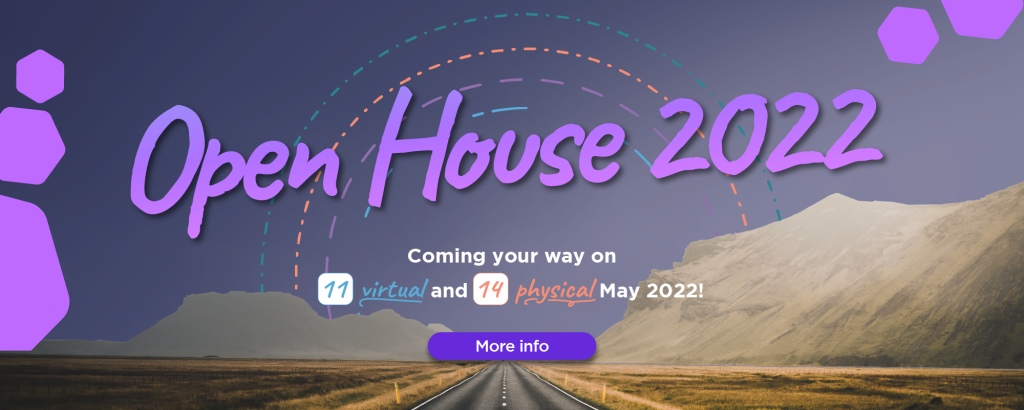
The NUS College of Humanities and Sciences is hosting its Open House 2022 next week and all prospective students who have received their offers are invited. As the deadline for them to accept their offers is looming, CHS has put together a programme aimed at answering all the questions they may have and clarifying all their concerns as much as possible.
Marking a cautiously calibrated return of the University to the normalcy of hosting large on-site events, this year’s CHS Open House is a two-day hybrid programme: 11 May on Zoom (and viewable on CHS’ Facebook page) and 14 May on several locations across the NUS Kent Ridge campus, specifically the areas around the Faculty of Arts and Social Science (FASS), and the Faculty of Science (FoS).*
11 May 2022 (Wednesday): The Essentials, OnlineThis a series of comprehensive information sessions (on Zoom and livestreamed on Facebook Live) covering everything new undergraduates need to know to get the most out of their education journey with CHS, including the:
- CHS Core Curriculum
- College’s three challenging but rewarding cross-disciplinary programmes
- Data Science and Economics (DSE-XDP)
- Environmental Studies (BES-XDP)
- Philosophy, Politics, and Economics (PPE-XDP)
- myriad Learning Pathways laid for you
- versatile career development programmes designed to prepare you for the future workplace
- CHS Student Experience—eye-opening and busy, yet energising and enriching
Speakers and panelists include CHS Co-Deans, Vice-Deans, key faculty staff members, career preparation and student services leader.
For more information and links to the 11 May sessions, click here.
14 May 2022 (Saturday): Get Personal, On CampusThe College is calling for prospective students to come on site, visit where they could well be spending their undergraduate years very soon, and speak to their future instructors and potential mentors. The full-day programme – running in key FASS and FoS locations across the NUS campus – offers:
- entry to witness and even participate in talks/lectures and panel discussions presented and hosted by award-winning instructors on a variety of academic subjects, interdisciplinary topics and specialised research areas
- face-to-face engagement with faculty, admin and student representatives from ALL Departments and student organisations under CHS, and opportunities to explore academic, financial aid and student activity options with the people in the know
- consultation with the career development teams of CHS
- guided Walking Tours across the facilities of FoS and FASS
For more information on the activities planned for 14 May, click here.
Discover Your #Interdisciplinary Future @ CHSThis Open House is the last chance for prospective students to learn more about the complete #interdisciplinary educational experience that they can expect at CHS. One that opens up a world of possibilities and equips them with skills and knowledge across the humanities, social sciences, physical sciences and applied sciences. One that inspires, cultivates and prepares them to work across diverse industries and sectors, with multidisciplinary teams, to solve some of the most complex wicked problems facing the world today — from social inequality to food shortage, unsustainable development and global warming. And one that grooms them to be the leaders of public institutions and private enterprise tomorrow.
* Campus shuttle bus services will be made available on 14 May to all visitors for easier movement across campus, which extends to Kent Ridge MRT.
FASS Alumni Honoured for Sterling Contributions to Nation and Society
IN BRIEF | 5 min read
- The NUS Faculty of Arts and Social Sciences (FASS) honoured five eminent alumni on 29 April 2022, presenting each with a FASS Distinguished Arts and Social Sciences Alumni Award 2021.
- The outstanding alumni were:
- Mr Peter Tan (Japanese Studies, ’92), Singapore’s Ambassador to Japan
- Mrs Josephine Teo (Economics, ’91), Minister for Communications and Information and Second Minister for Home Affairs
- Mr Haresh Sharma (English Language and English Literature, ‘90), Resident Playwright of The Necessary Stage
- Ms Denise Phua (English Language and Political Science, ‘83), Mayor of Central Singapore District
- Mr Low Thia Khiang (Chinese Studies, ‘81), former Secretary-General of the Workers’ Party
It was all smiles as five eminent alumni from the NUS Faculty of Arts and Social Sciences (FASS) took to the stage on 29 April to receive the FASS Distinguished Arts and Social Sciences Alumni Award 2021.
The outstanding alumni who took home the honours were:
- Mr Peter Tan (Japanese Studies, ’92), Singapore’s Ambassador to Japan
- Mrs Josephine Teo (Economics, ’91), Minister for Communications and Information and Second Minister for Home Affairs
- Mr Haresh Sharma (English Language and English Literature, ‘90), Resident Playwright of The Necessary Stage
- Ms Denise Phua (English Language and Political Science, ‘83), Mayor of Central Singapore District
- Mr Low Thia Khiang (Chinese Studies, ‘81), former Secretary-General of the Workers’ Party
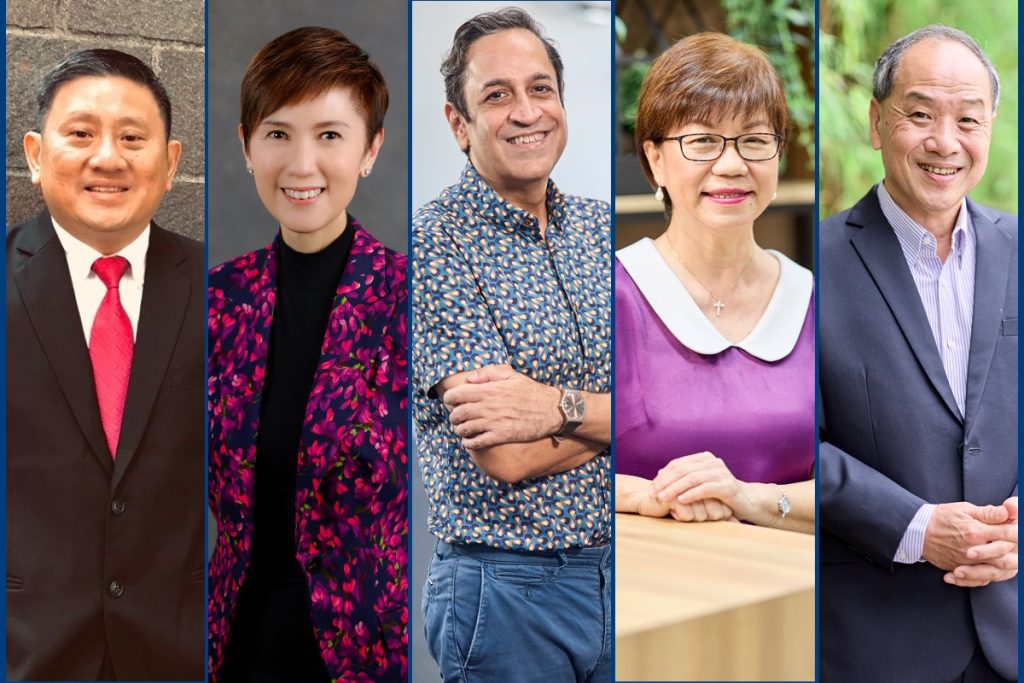
The 2021 awards ceremony had been postponed to this year due to the COVID-19 pandemic.
“These five individuals have contributed to Singapore in distinctive ways, and their passion, perseverance and pursuit of excellence serve as an inspiration to current and future generations of FASS students,” said NUS President Professor Tan Eng Chye.
“NUS is proud to have them as our alumni, and I hope they will continue to maintain close ties with their alma mater and with FASS. There is much we can do together, to nurture and inspire the next generation of Singaporeans to realise their potential.”
Echoing similar sentiments was FASS Dean Professor Lionel Wee who added that the five epitomise the spirit of service to the community. They play pivotal roles in Singapore and globally, through the arts, shaping of policies, diplomatic relations and community engagement.
The Honourees and their Contributions to Nation and SocietyMr Peter Tan has over three decades of foreign service experience under his belt. He has served with distinction in various capacities on issues related to areas including Southeast Asia, Northeast Asia, Europe and the United Nations since joining the Ministry of Foreign Affairs in 1992. He has vast diplomatic experience with regard to Japan, having previously served in the Singapore Embassy in Tokyo as First Secretary, as Counsellor, as well as Acting Minister-Counsellor and Deputy Chief of Mission. Mr Tan was awarded the Public Administration Medal (Silver) in 2008 for his contributions.
Playing a critical role in policymaking is Mrs Josephine Teo who is Singapore’s Minister for Communications and Information, Second Minister for Home Affairs, and Minister-in-charge of Smart Nation and Cybersecurity. She is also a member of the National Jobs Council and the Future Economy Council. Mrs Teo was the Minister for Manpower from May 2018 till May 2021, and previously served in the Prime Minister’s Office and other heavyweight ministries like Finance, Transport and Foreign Affairs. She has been a member of Parliament (MP) since 2006.
A critically-acclaimed playwright known for his socially-conscious plays, Mr Haresh Sharma began writing plays during his undergraduate days. As Resident Playwright of homegrown theatre The Necessary Stage, he has written more than 120 plays which have been staged in over 20 cities. His play on mental illness, Off Centre, was the first Singapore play selected by the Ministry of Education as a Literature text for the GCE N- and O-Levels. A 2015 Cultural Medallion recipient, Mr Sharma was also the first non-American to be awarded the prestigious Goldberg Master Playwright by New York University's Tisch School of the Arts in 2011.
Ms Denise Phua gave up a successful corporate career in 2005 to become a full-time special needs volunteer before joining politics in 2006. An MP for Jalan Besar Group Representation Constituency (GRC), she is best known for her advocacy for those at risk of being left behind in Singapore. She is one of the key architects behind three 5-year Enabling Masterplans for the Disabled in the country, and she is the President of Autism Resource Centre (Singapore) and Chairman of Autism Association Singapore – both being established autism charities. She supervises the Pathlight School – Singapore’s first autism special school which she co-founded – and helped start The Purple Parade, an annual parade to support inclusion.
Making his mark in politics is former politician Mr Low Thia Khiang who served as Secretary-General of the Workers’ Party between 2001 and 2018. He was one of two opposition MPs between 2001 and 2011 and was the de facto opposition leader between 2006 and 2018. Following the 2011 General Election, Mr Low became one of five elected opposition MPs of Aljunied GRC – and went on to represent the Bedok Reservoir–Punggol division between 2011 and 2020. Mr Low stepped down as the MP for Aljunied GRC prior to the 2020 General Election, making him Singapore's longest serving opposition MP with 29 years in service.
The Journey with FASS and BeyondDinner guests were treated to videos of the awardees who shared about their FASS experience – how it has shaped their lives and careers thereafter – as well as their career milestones.
Both Mr Sharma and Mr Tan shared fond memories of spending time in the libraries and reading rooms, as well as the invaluable friendships that blossomed beyond the classrooms in FASS. For Mr Sharma, NUS played a pivotal role in his theatre journey. He explained, “There was the huge support structure all around me, from the lunchtime performances where we could perform, to my lecturers and tutors, who when they found out that I was interested in Singapore theatre and literature, started encouraging me.”
Reminiscing on her university “days of freedom”, Ms Phua appreciated the considerable latitude afforded to her to select subjects that she loved and pick the lecturers she wanted to learn from. FASS, she shared, had helped hone her ability to think critically, developed her confidence to speak up, and made her realise the importance of finding solutions to problems to make a difference.
Established in 2015, the Awards recognise individuals for their distinguished scholarship and exemplary service to the Faculty, the University and Singapore. These outstanding recipients have made significant impact in various fields locally and internationally, which has contributed to the betterment and promotion of the arts and social sciences.
Click here for more info on this year’s award recipients.
This article first appeared in NUSNews on 29 April 2022.
If These Walls Could Talk
IN BRIEF | 15 min read
- The Bukit Timah Campus is a throwback to NUS’ early beginnings and a rarity in Singapore’s modern built environment. For close to a century, generations of students have passed through the campus, their memories adding to its long history — a story that continues to be written.
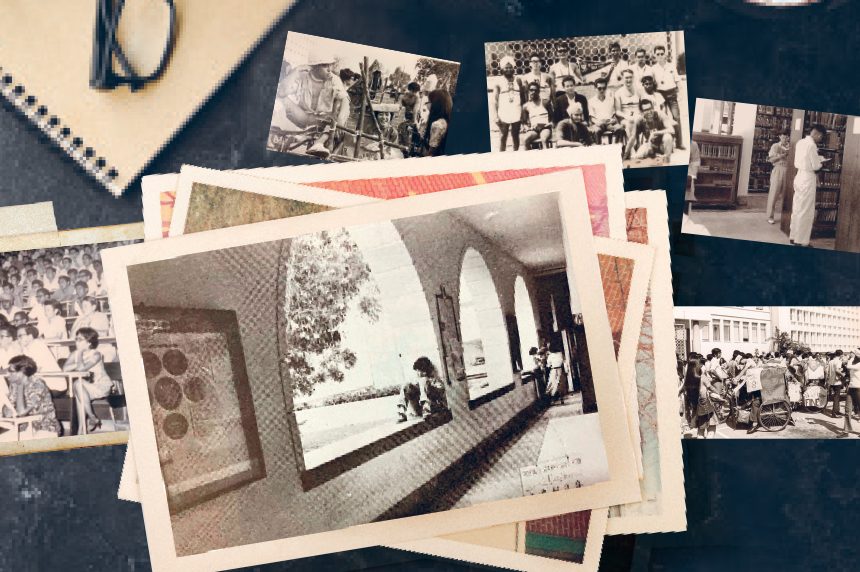
A history major, Ms Elizabeth Tan (Arts and Social Sciences ’09) has a healthy respect for the past. So, when she pursued a Master in Public Administration at NUS Lee Kuan Yew School of Public Policy (LKYSPP) in 2019, the sense of history at Bukit Timah Campus (BTC) — where LKYSPP is located — was apparent to her from the first day of class.
“The buildings at BTC are unique, with British colonial-era architectural features such as the arched corridors, pillars and red pitched roofs,” says Ms Tan, 37. She was also struck by the quotes from famous figures that adorn the walls of the buildings, particularly one from former Prime Minister Lee Kuan Yew (’41), who had briefly studied at BTC (then called Raffles College) between 1940 and 1941. “Knowing that Lee Kuan Yew had studied there before, and that the School is named after him, provided a sense of continuity and awe. As a student, I felt inspired and empowered by the setting.”
That said, one need not be a history buff to appreciate the special place that BTC holds in the larger Singapore story — and in the hearts of those who consider themselves privileged to have studied there. Through conversations with BTC alumni of yesteryear as well as more recent times, and with faculty leaders who helped usher in NUS’ ‘second act’ with BTC in the mid-2000s, The AlumNUS strings together a narrative of a campus steeped in tradition, while still fit for 21st-century learners.
It was easy to run into and make friends with peers from different faculties. I’m still close to them, after nearly 50 years.
Mr David Ho, a senior alumnus from Bukit Timah Campus
The Good Old DaysIn many ways, students attending BTC today have inherited a space that is not too different from the one created for the inaugural batch of 43 Raffles College students in 1928. Much of the campus’ original layout and architecture remains intact — the two quadrangles (grassy courtyards) flanked by stately, low-rise buildings with covered walkways and wide arches; the majestic Angsana tree at the Lower Quadrangle, planted shortly after the campus was built; the pylon-like tower and the two small domes distinguishing the roof of the Manasseh Meyer Building; and the circular driveway leading to the main entrance in front of Oei Tiong Ham Building. Even the names of these buildings have been kept, in a nod to BTC’s earliest benefactors.
It all started back in 1918, when the British colonial administration proposed the establishment of a college to mark the centenary of Singapore’s founding by Sir Stamford Raffles. The idea was supported by local communities, and notably by individuals such as Oei Tiong Ham, Manasseh Meyer and Eu Tong Sen — prominent businessmen and philanthropists of the day — who made large donations. A decade later, on land formerly part of the Singapore Botanic Gardens, Raffles College commenced operations as the first institution for tertiary education in the arts and sciences in British Malaya.
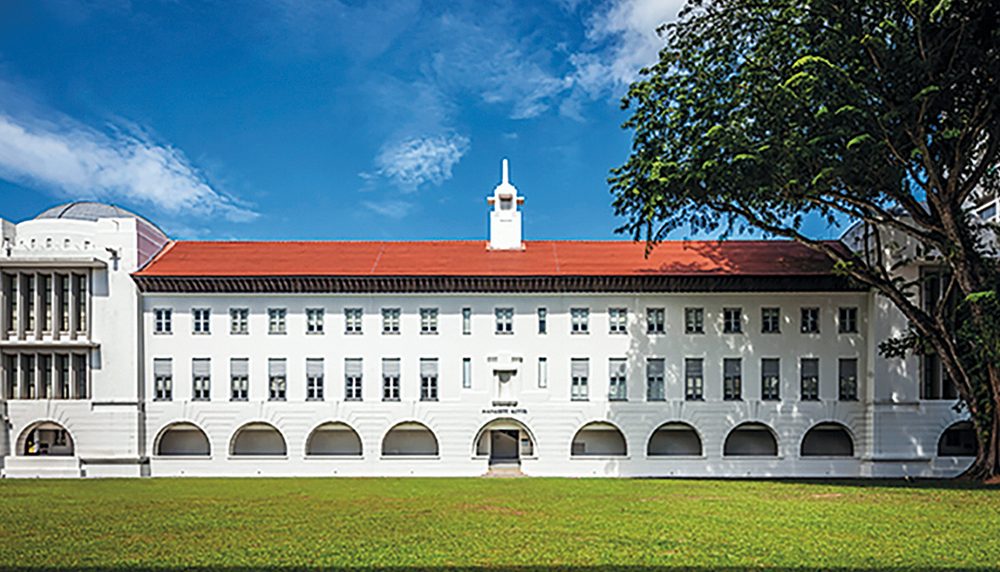
As the years passed and student numbers increased, the campus was steadily expanded to cater to their growing needs. More buildings were constructed between the 1940s and 1960s, including a new wing simply named Block A, a Library Building, a geometric-style Block B and a 10-storey Science Tower. It was also around this time that Raffles College was upgraded to university status and underwent a couple of name changes, to the University of Malaya in 1949 and then the University of Singapore in 1962.
This latter period in BTC’s history was the one that Professor Kishore Mahbubani (Arts and Social Sciences ’71), currently a Distinguished Fellow at NUS’ Asia Research Institute, entered as a young philosophy student. As the 73-year-old wistfully describes, there was a “magical aura” about the place. “It was a wonderful campus, very green and welcoming. I remember sitting for hours and hours in the library, devouring philosophy books…. Back then, the Philosophy Department was very small; I think there were fewer than 20 students and only six or seven professors. The professors were all open and accessible, and we socialised a lot with them, which is quite unusual now.”
For economics major Mr David Ho (Arts and Social Sciences ’72), his experiences outside the classroom were just as memorable as those inside, if not more so. “Our cohort was heavily involved in student activism — and our Class of ’72 is proud to have seven elected Members of Parliament,” says Mr Ho, also 73. The small, intimate campus bred familiarity as well. “It was easy to run into and make friends with peers from different faculties. I’m still close to them, after nearly 50 years.”
CAMPUS MILESTONES: ACT 1

1928
Raffles College is established at 469 Bukit Timah Road to provide tertiary education in the arts and sciences.
1941–1945
All academic activities are suspended during World War II as the College is turned into a medical facility, before being seized by the occupying Japanese military.
1949
Raffles College merges with the King Edward VII College of Medicine to form the University of Malaya, the first university in British Malaya.
1962
The Bukit Timah and Kuala Lumpur branches of the University of Malaya split up, and the former is renamed the University of Singapore.
1980
The University of Singapore merges with Nanyang University to become the National University of Singapore (NUS).
1981
NUS moves out of Bukit Timah to its current main campus at Kent Ridge.
However, it was only a matter of time before the University outgrew its campus and had to relocate to a bigger site. That moment came in 1981, not long after yet another name change to the present National University of Singapore. After NUS moved to its current main campus at Kent Ridge, the Bukit Timah site was subsequently occupied by other tertiary institutions, including the National Institute of Education (NIE), from 1982 to 2000; and Singapore Management University (SMU), from 2001 to 2005.
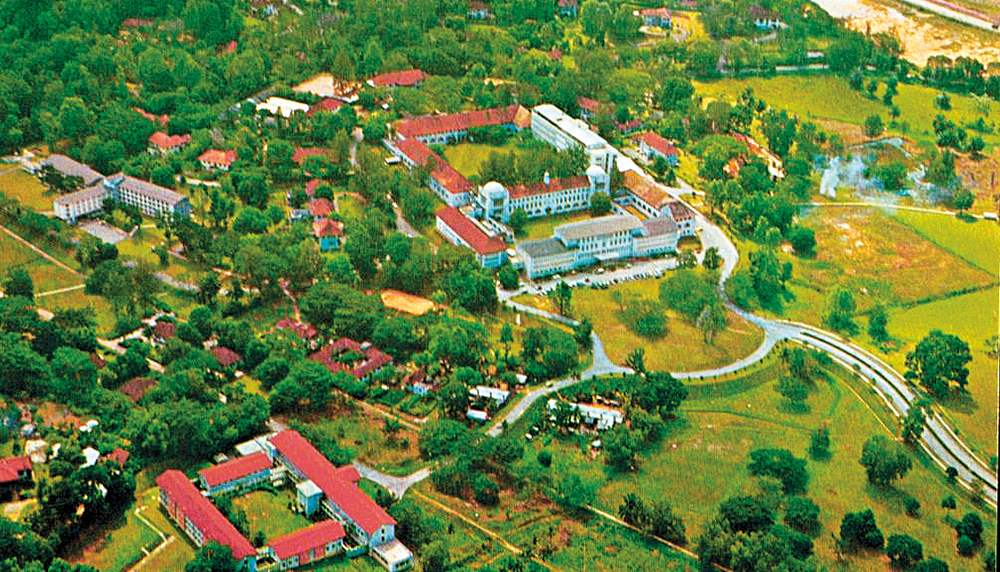
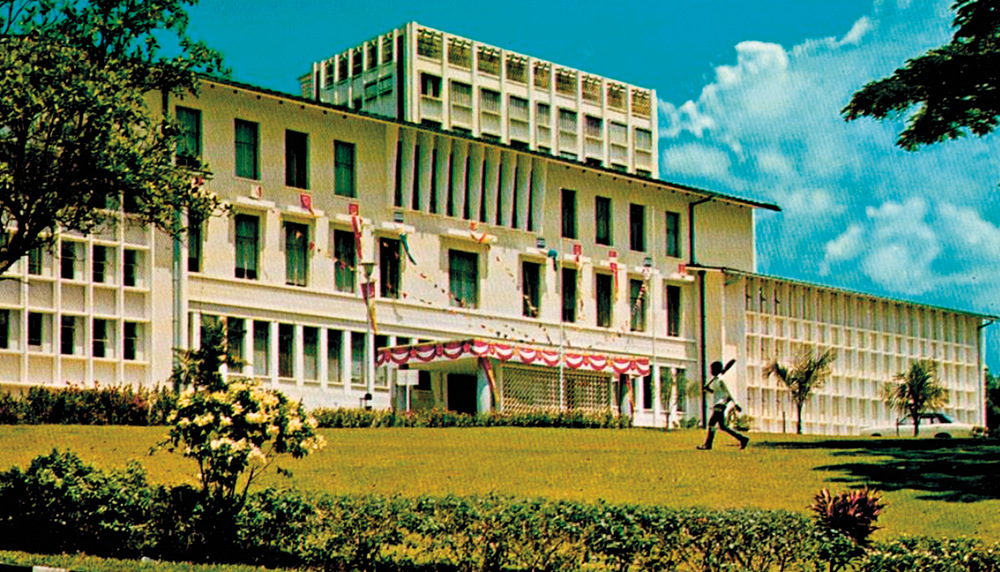
The shift to Kent Ridge heralded an ambitious new era for NUS, as it strove to excel further in both education and research, and become one of Asia’s top universities. By the early 2000s, NUS had arrived on the world stage and was well-regarded as a research-intensive university. Yet despite all this success, there was a nagging sense among many that something was missing: that without BTC — without a tangible heritage to hold on to — the University was incomplete.
Professor Shih Choon Fong, who served as NUS President from 2000 to 2008, picked up on this sentiment early in his tenure. “In my meetings with senior alumni who had graduated from BTC, they described feeling unmoored and expressed dismay and frustration because they didn’t have a place to call ‘home’,” he recalls. Although not an NUS alumnus, Prof Shih — who had studied at Harvard University and whose heart still “beats faster” whenever he goes back there — understood how they felt. “BTC is an integral part of NUS, and of the lives of those who studied there. It is where generations of alumni spent their most formative years, not just learning but making lifelong friendships and, sometimes, finding lifetime partners. I would say BTC is the ‘cradle’ of NUS. In fact, you could say BTC is the ‘cradle’ of all universities in Singapore,” Prof Shih explains. As NUS President, he was also acutely aware of the importance of honouring and preserving the University’s past; otherwise, NUS would lack rootedness and “roll like tumbleweed”, and its alumni would feel less connected to their alma mater.

With NUS’ centennial celebrations approaching in 2005 and SMU slated to move to Bras Basah in July that year, the timing seemed right to fight for the soon-to-be-vacated Bukit Timah premises. Prof Shih commented on this at NUS’ Commencement Dinner in July 2004, where he used the metaphors of the “Lexus” for global success in our innovation-driven world and the “olive tree” for rootedness (as symbolised by BTC) — references taken from the bestselling 1999 book by Thomas L. Friedman. “NUS has devoted much attention to building our Lexus,” Prof Shih told the audience — and rightly so — but the danger was that “we may lose sight of the need to grow our olive tree.” He went on, “We do not have to choose between the Lexus and the olive tree. We can have both. Let us grow our olive tree as we work towards building our Lexus.”
BTC is an integral part of NUS, and of the lives of those who studied there. I would say BTC is the ‘cradle’ of NUS. In fact, you could say BTC is the ‘cradle’ of all universities in Singapore.
Professor Shih Choon Fong, former NUS President
NUS, through the Office of Alumni Relations (OAR), worked in tandem with the alumni community on an all-out lobbying campaign to get back BTC in time for NUS’ Centennial Celebrations. While OAR engaged in overall coordination and marshalling of resources, NUS alumni contributed in various ways. Mr Harry Chan (Arts ’50), a former civil servant and diplomat, wrote an appeal letter which was submitted to the Minister for Education in July 2004. Others like Mr Lai Kim Seng (Engineering ’71), then-President of NUS Society, took part in the signature drive to garner alumni support for the petition. A Bash @ BTC was also planned for mid-2005, and leading this initiative was student activist-turned-entrepreneur, Mr David Ho. According to him, the event had initially been conceived as an opportunity for his Class of ’72 and their contemporaries to gather and celebrate. “BTC had never hosted a reunion for its alumni before, so we wanted to be the first to make this happen. We weren’t sure if we would get another chance later, as no one knew yet who would be taking over the campus after SMU,” says Mr Ho. He and his batch mates set about organising the event independently at first, including getting approval from SMU, hiring the marquee, and inviting then-Deputy Prime Minister Dr Tony Tan (Science ’62) to attend as the guest of honour. As the date drew closer, word started trickling out that the Government would be returning BTC to NUS and that Dr Tan would use that occasion to announce it. Hence, OAR stepped in to help with the organising, such as scheduling post-event press conferences.
On 28 May 2005, about 800 people showed up at BTC for the big bash, their excitement palpable. Everyone had heard by then that BTC would be returned to NUS; all that was left was an official confirmation. When Dr Tan finally made the announcement that night, the five-minute standing ovation, whoops and cheers which followed showed just how much NUS alumni had wished for the news. “We didn’t go into planning the event knowing that it would be such a momentous occasion for NUS, but we’re happy with how things ended up,” Mr Ho says modestly. Adds Prof Shih, “It gave deeper meaning to NUS’ centennial — reconnecting with the University’s past and the founding of Raffles College.”

Barely had the festivities died down when NUS began renovating BTC to make sure it would be a conducive learning environment for present-day students. First, the decision about who would relocate there had to be settled.
LKYSPP was an obvious choice — and not just because its namesake had studied there back in the day. Prof Mahbubani, Founding Dean of LKYSPP from 2004 to 2017, cites other political leaders besides the late Mr Lee Kuan Yew who had received their education at BTC, such as Mr Goh Chok Tong (Arts ’64) and Mr S. Dhanabalan (Arts ’60). A few, including Dr Tony Tan (Science ’62) and Professor S. Jayakumar (Law ’63), had even studied and taught there. “BTC has strong links with a critical generation of Singaporeans — the first builders of Singapore’s success story — and I dare say our country would not be so successful had BTC not trained them. In that sense, the campus is a precious part of our nation’s history,” says Prof Mahbubani. Personally, as a BTC alumnus, he was elated to “come home” as well.
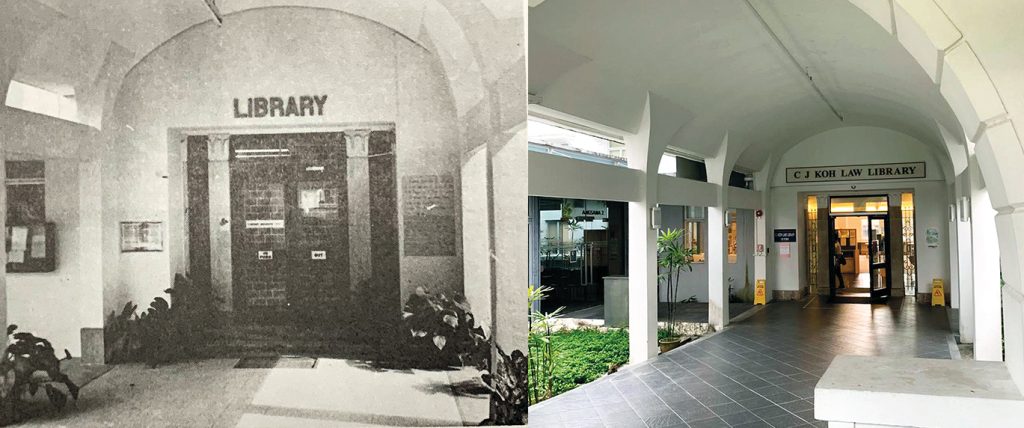
CAMPUS MILESTONES: ACT 2
2005
The Government reallocates the old Raffles College grounds to NUS.
2006
All academic activities are suspended during World War II as the College is turned into a medical facility, before being seized by the occupying Japanese military.
2009
Raffles College merges with the King Edward VII College of Medicine to form the University of Malaya, the first university in British Malaya.
More pragmatic considerations were behind the Faculty of Law’s (NUS Law) move back to BTC. “BTC would not have been suitable for very large faculties or those requiring specialised equipment, so the decision for us to move was a somewhat practical one,” says then NUS Law Dean, Professor Tan Cheng Han (Law ’87). His undergraduate years had been spent at Kent Ridge Campus, and to this day he has a soft spot for it, but Prof Tan was nonetheless excited to lead NUS Law’s shift to BTC. “What was striking to me was how enthusiastic BTC alumni were about the move. It was an honour and privilege to engage with them and to see how happy they were that NUS was reclaiming its heritage. It was nice to be a part of this history that I had not experienced previously.”
Relocating from Kent Ridge to BTC meant greater space available for both LKYSPP and NUS Law, which enabled them to better accommodate the increasing student intake and offer more teaching and study spaces, faculty offices and other facilities such as larger student lounges. To facilitate travel between the two campuses, free shuttle bus services were provided for students taking double-degree programmes and cross-faculty modules, those involved in NUS clubs and societies, as well as hostelites staying at Kent Ridge.
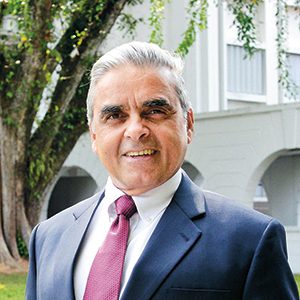
BTC has strong links with a critical generation of Singaporeans — the first builders of Singapore’s success story — and I dare say our country would not be so successful had BTC not trained them. In that sense, the campus is a precious part of our nation’s history.
Professor Kishore Mahbubani, Founding Dean, Lee Kuan Yew School of Public Policy, NUS
Crucially, NUS elected to preserve the existing buildings, upgrading or refurbishing them where necessary. Classrooms and lecture theatres were of course equipped with air-conditioning and modern technologies. Some areas were converted into a moot court and a multi-purpose auditorium, or reconfigured to encourage student-centred learning and peer discussion. Many renovations, however, were carried out to restore the buildings to their former glory, such as reinstating Block B’s original façade and the coffered ceiling at the lobby of the Oei Tiong Ham Building. The quadrangle lawns also underwent landscaping to maintain their design intent as communal interaction spaces.
One year after being handed the keys to the place, NUS made the historic return to its old stomping grounds in July 2006. NUS Law and LKYSPP, along with several research institutes, moved back to BTC. So did the CJ Koh Law Library, which fittingly took over the old Library Building. Other renamed structures included the Science Tower, now called Tower Block; and Block A, which was unveiled as the Li Ka Shing Building in 2007 in recognition of the Hong Kong tycoon’s generous gift to LKYSPP.
NUS had successfully pulled off the challenge of retaining BTC’s rich history and character, while adapting it in a manner befitting a world-class university. In 2009, BTC’s posterity was assured when the six buildings that made up the former Raffles College — Oei Tiong Ham Building, Manasseh Meyer Building, Federal Building, Eu Tong Sen Building, Li Ka Shing Building and CJ Koh Law Library, plus the two quadrangles — were gazetted as national monuments. This affirmed BTC’s status as a venerated institution and would protect it from redevelopment in the long run.

What was striking to me was how enthusiastic BTC alumni were about the move. It was an honour and privilege to engage with them and to see how happy they were that NUS was reclaiming its heritage.
Professor Tan Cheng Han, former Dean, Faculty of Law, NUS
Linking Past, Present and FutureLike Kent Ridge Campus, BTC sits on hilly ground with gentle slopes. Both have plenty of greenery and are well-integrated with the natural environment — which, in BTC’s case, is the Singapore Botanic Gardens. “BTC’s location in the middle of the Botanic Gardens, Singapore’s first UNESCO World Heritage Site, makes the campus even more special,” says LKYSPP alumna, Ms Elizabeth Tan, who is currently based in the United States. “It was amazing to be able to study there, in a place which embodied history and where I also felt connected to nature.”
If she were to change anything about BTC, it would be for the campus to host more University-wide events. “One of the things I liked most about my undergraduate years at Kent Ridge was how there were so many opportunities to meet people beyond my faculty. It would be nice for students from both campuses to congregate at BTC, which would also allow the Kent Ridge community to visit and appreciate the site,” Ms Tan suggests.
ACROSS THE ROAD
Another piece of its history that NUS has reclaimed is the old Dunearn Road Hostels, a cluster of pre-war terrace houses located just a short walk from BTC. Opened in 1952 for undergraduates of the then-University of Malaya, it used to house such luminaries as former President of Singapore, the late Mr SR Nathan (Arts ’54). Following NUS’ move to Kent Ridge in 1981, the estate was leased out to the public until NUS returned to BTC in 2006, after which it was converted into a hostel for graduate students of LKYSPP. In 2010, the site — now called College Green — was officially reopened by then-President Nathan.

Mr Ryan Kwan (Business and Law ’20), a Justices’ Law Clerk at the Supreme Court of Singapore, also enjoyed the best of both worlds while pursuing a double degree at NUS. On the one hand, he observes jokingly, the sprawling Kent Ridge Campus promotes “exercise”; on the other hand, the smaller BTC promotes “efficiency”. Adds the 27-year-old, “Since graduating from NUS, I’ve returned to BTC on a few occasions to help coach the moot court teams for competitions. The unchanged physical space is a powerful reminder of all the good memories that I had on campus.”
The years post-2005 have been kind to BTC, with relatively minor modifications being made here and there to improve the facilities and infrastructure. The campus has been the venue for annual Bukit Timah Homecoming reunions ever since the big bash in 2005, although recent instalments have switched to an online or hybrid format due to COVID-19. And with the transition from pandemic to endemic, students are returning to in-person learning, hence reviving the campus spirit and re-establishing BTC as the bastion of higher education that it was always designed to be.
As far as the future goes, who knows what may happen at or to BTC? It could continue to anchor LKYSPP and NUS Law for years to come; or, as Prof Tan posits, it could one day be transformed into an interdisciplinary research institute or a one-stop lifelong learning hub. But one thing’s for sure: everyone affiliated with the University wants BTC to remain with NUS, and its core look and feel to stay the same. As Prof Shih notes, “Let’s preserve the old while exploring the new. Let’s keep the olive tree instead of constantly rebuilding the Lexus.
What Was Your Favourite Spot?
BTC old and young alumni reveal some of their most cherished memories on campus.
"“I stayed at the old Raffles Hall for two years while studying at BTC. In the valley between Raffles Hall and Eusoff College, there was a sarabat stall where my friends and I would often grab tea and hang out.”
Prof Kishore Mahbubani (Class of ’71)
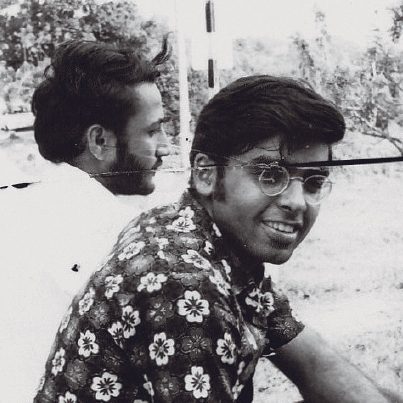
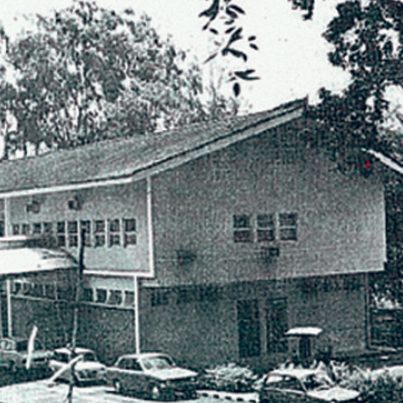
“We ran the Union House ourselves, including the canteen. As Secretary-General of the Students’ Union, I had my own office there too. Sadly, the building is no longer around, as it was torn down to make way for the Botanic Gardens’ expansion.”
Mr David Ho (Class of '72)
“On the upper levels of Block B, there are study spaces set up outside the seminar rooms. I had many discussions there with friends that would begin with questions on lecture topics, before inevitably digressing into what to eat later.”
Mr Ryan Kwan (Class of ’20)
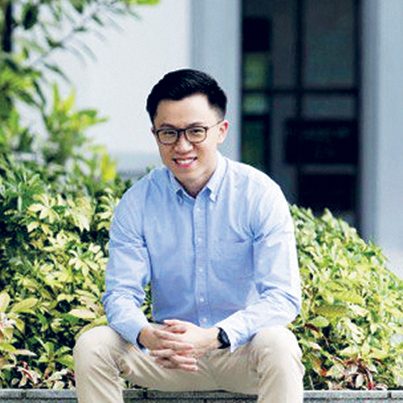

“The Upper Quad was where I usually had lunch and hung out with friends. From there, you can sit and reflect while admiring the surrounding buildings. The view is prettiest in the evenings, when shadows fall on the buildings and hallways.”
Ms Elizabeth Tan (Class of ’09), clockwise, 2nd from left
This article was written by Wanda Tan, and first appeared in The AlumNUS (Issue 129, Apr-Jun 2022).
Open House 2022 Engages and Excites
IN BRIEF | 30 min read
- The ever-popular NUS Open House hit new heights this year, attracting over 8.61 million visitors – a 26.2 per cent increase from the 6.83 million visitors that attended last year's online Open House.
- From 26 Feb to 5 Mar, visitors crowded the websites, livestreams, webinars and social media sessions hosted by the University's colleges, faculties and schools. There was something for everyone, and the event covered everything from academic courses to student life and entrepreneurship programmes.

The ever-popular NUS Open House hit new heights this year, attracting over 8.61 million visitors – a 26.2 per cent increase from the 6.83 million visitors that attended last year's online Open House.
From 26 Feb to 5 Mar, visitors crowded the websites, livestreams, webinars and social media sessions hosted by the University's colleges, faculties and schools. There was something for everyone, and the hybrid event covered everything from academic courses to student life and entrepreneurship programmes.
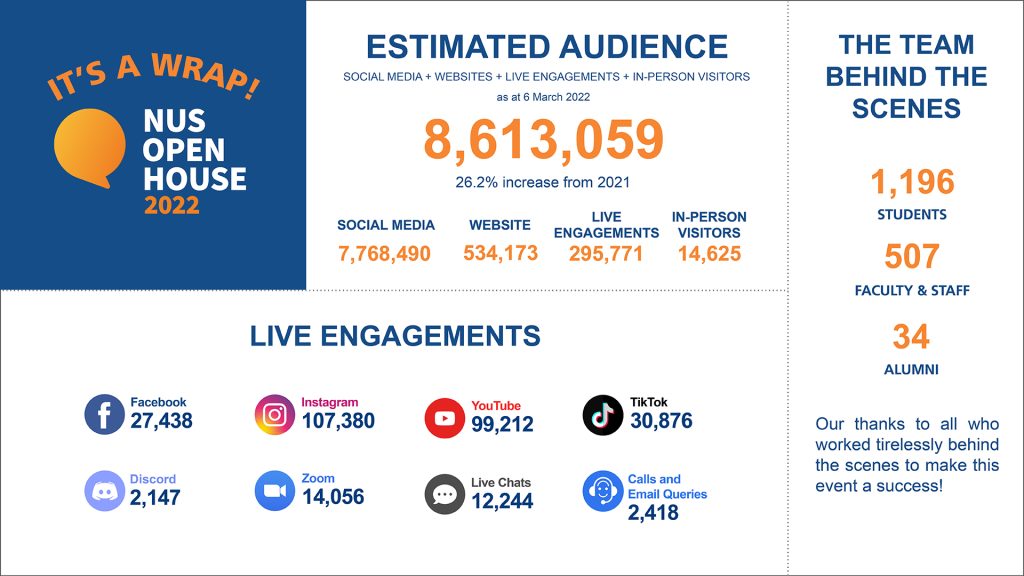
While much of the engagement happened online, prospective students got to meet NUS students and staff face-to-face for the first time since the pandemic started.
The physical Open House, held one sunny Saturday on 5 Mar, included numerous booths showcasing the University’s wide-ranging academic options and vibrant student life; sample classes and talks to get a taste of varsity life; and tours of the different colleges, faculties, and schools.
Prospective students gave the hybrid format a thumbs-up.
Joshua Chua, an alumnus of Anderson Serangoon Junior College, appreciated the online sessions and felt the physical Open House was a huge differentiating factor.
“The (physical) Open House really gave me a good image of what living and studying at NUS could look like by virtue of being an in-person event as opposed to it being virtual, so I'm really grateful to NUS and everyone involved for having this opportunity during the pandemic,” he said.
On her part, Hwa Chong Institution alumna Elsie Woo, who attended both the online and in-person sessions, said, “The experience was really welcoming and wholesome, and really exposed me to NUS as a whole.”
Showcasing the country’s first honours college
One of the highlights this year was the NUS College, Singapore’s first honours college. It will accept its first batch of students this year.
Prospective students were treated to online webinars on the College’s distinctive curriculum, its global pathways, and its focus on hands-on experiential learning. In more intimate breakout rooms, staff and student volunteers readily answered questions about student life and academic pathways. By having a home college or faculty – say Business or Science – while simultaneously being enrolled at NUS College, students will be able to get an educational experience that is as broad as it is deep.
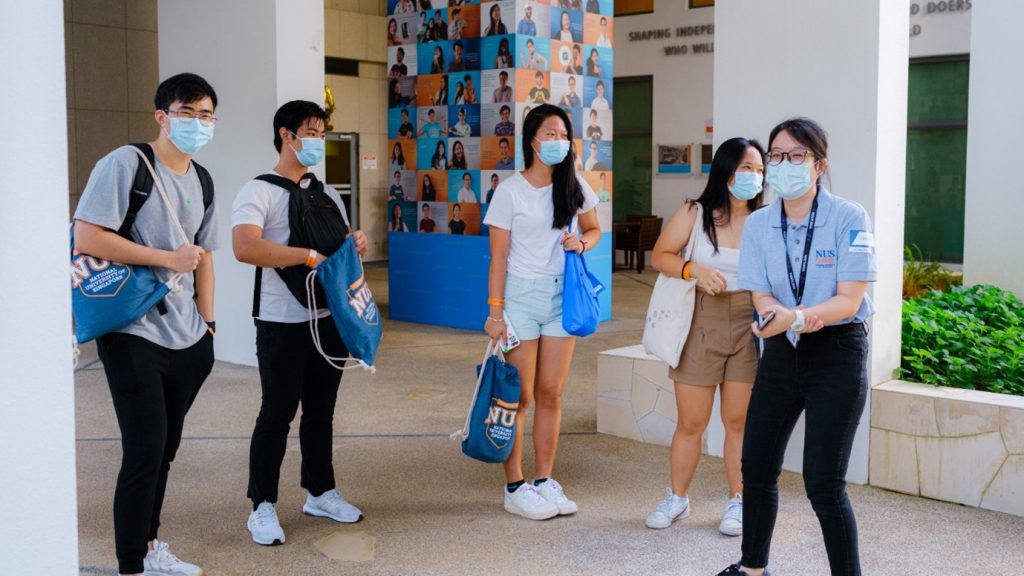
The in-person activities featured a tour of the facilities and residential options that NUS College students would be able to enjoy.
Elsie Woo was one of many students drawn to NUS College’s unique offerings.
“I attended a few webinars, including introductory talks for NUS College and Food Science and Technology,” said Elsie, who also visited many booths in-person.
“The sessions were very well-planned and the seniors were extremely helpful and patient.”
Nanyang Polytechnic alumnus Koh Jin Yuen focused his time on NUS College, attending the College’s guided tour and virtual sharing sessions.
“The NUS College tour was informative as I got to ask the facilitators about their experiences. I think the curriculum is very meaningful,” said Jin Yuen.
“The Open House helped to deepen my understanding of how NUS College works, and allowed me to better understand the lifestyle of a student from NUS College.” He is intending to apply for the Information Systems programme offered by NUS Computing, as well as NUS College.
Ramping up interdisciplinary offerings
Exciting developments in the realm of interdisciplinary education—a major theme that NUS has been championing—were foregrounded at the Open House, with the College of Design and Engineering (CDE) also taking in its inaugural cohort. A result of the merger of the Faculty of Engineering and the School of Design and Environment, CDE is set to transform the NUS educational experience.
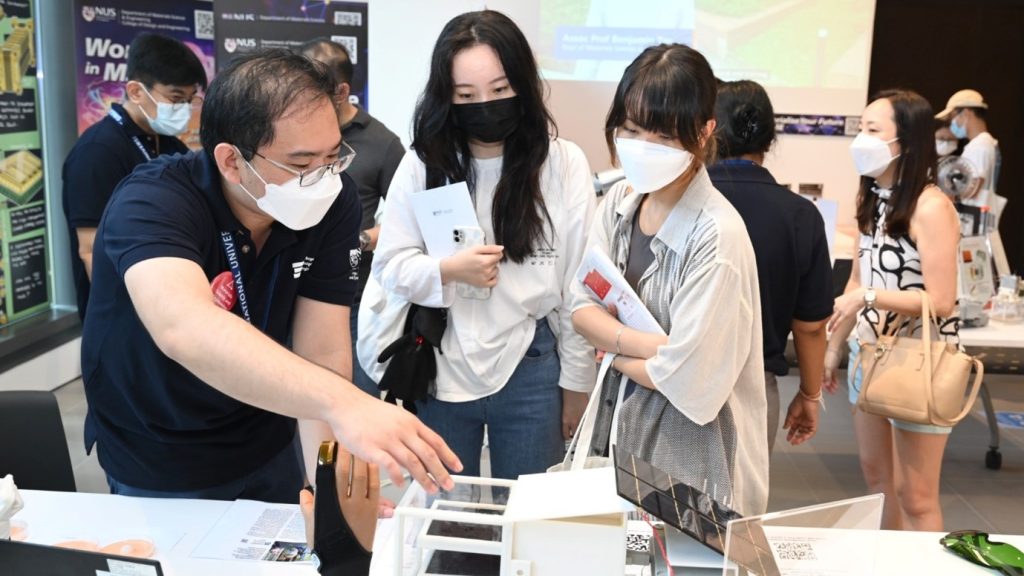
Across five galleries and 19 sub-categories, including Architecture, Industrial Design, Materials Science and Engineering, Biomedical Engineering, and Civil Engineering, visitors were presented with an informative display of the wide range of courses and programmes that will be on offer in the new College.
Raffles Institution alumna Grace Zai, who visited the Designing the Future exhibition and galleries, said, “The Engineering galleries were very informative as I could ask questions I had about the course, as well as student life, and get a clearer picture of what I would be studying and doing. It helped me make a more informed decision on my choices.”
Grace is considering applying to Engineering Science and Architecture, as well as Mechanical Engineering and Electrical Engineering with a specialisation in robotics.
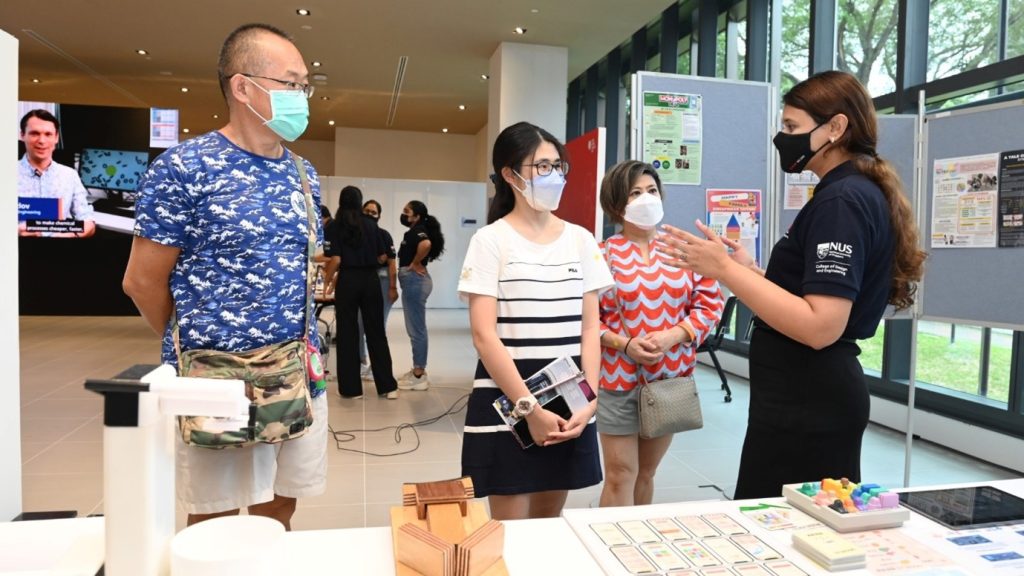
There were also panel discussions, both online and in-person, where faculty and current students interacted with prospective students to share their experiences and answer questions about the new interdisciplinary curriculum.
“As a prospective student, I got to see first-hand the school facilities, as well as the accommodations. My experience was pretty enriching and enlightening because I could ask the professors questions I had in mind and learn more about the courses,” said Timothy Tay, a graduate of Victoria Junior College who visited the SDE gallery on Sustainable Innovations.
“For example, I did not realise Project Facilities Management (PFM) was recently changed to Infrastructure Project Management (IPM). The professor explained that students will now graduate with a BEng degree rather than a BSc degree,” he recalled, referring to the first interdisciplinary full-time undergraduate programme to cover engineering, design, management, technology, building science and law modules.
Information was also available on the vibrant student life of the College’s various clubs and societies, as well as career programmes that enable students to better understand their interests and what it takes to marry that with industry skills and experience.
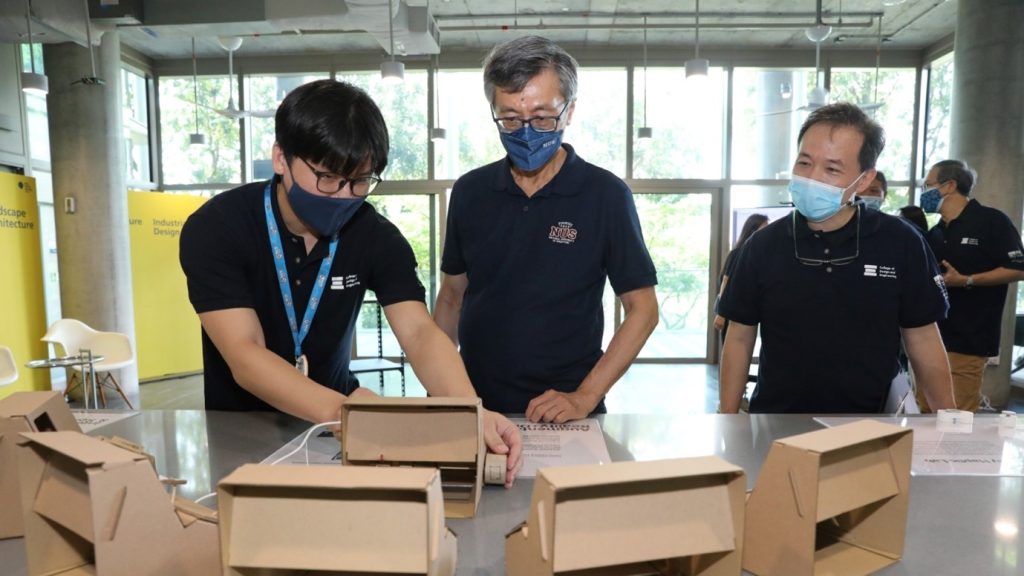
“The NUS Open House provided me with a more informed perspective on the courses offered in NUS. The various booths set up and run by students allowed for quick chats about what the courses have to offer. The responses by the students and professors were engaging and genuine, which I found informative in making my choice for courses in NUS,” said Kalepu Sai Sri Akshath, who attended CDE’s online and in-person events with his family and is intending to apply to Computer Engineering.
Drone-sensing demonstrations and the Solar Roof Tour, 5G Lab Tour, and BEEHUB Tour further showcased the College’s manifold facilities. Visitors also got a first-hand experience of NUS’ very own net-zero energy building through tours at SDE4, itself a product of both architecture and engineering, and the first of its kind in Singapore.
A marriage of the humanities and sciences
Continuing in the vein of interdisciplinarity and equipping students with a multifaceted, integrated toolbox of skills to thrive in the future economy is the College of Humanities and Sciences (CHS), which will be accepting its second intake this year.
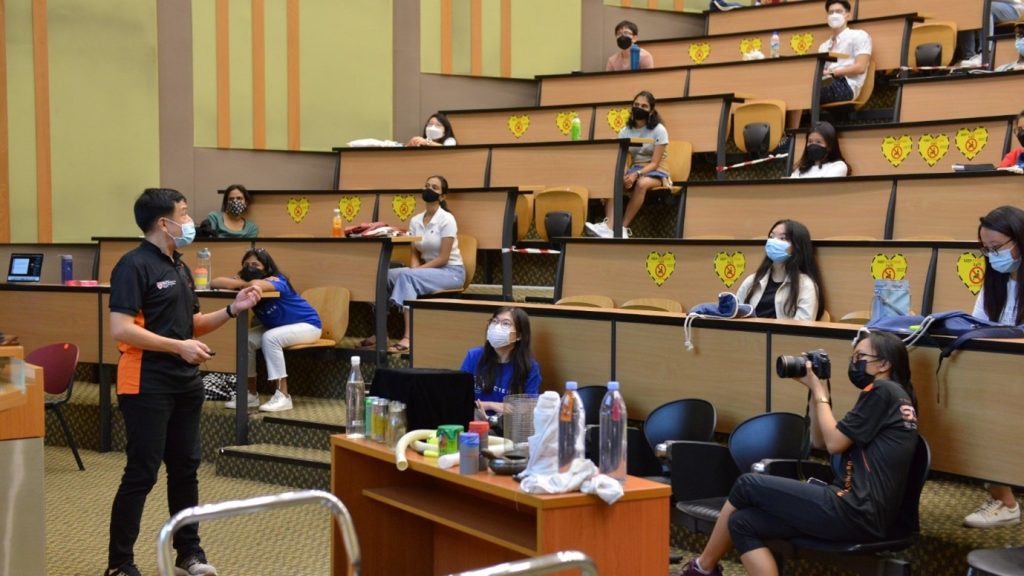
Seminars about the CHS Core Curriculum were available at the Open House, as well as informative masterclasses that covered a vast range of interdisciplinary topics.
The Data Science and Economics masterclass saw Assoc Prof Lim Tiong Wee and Assoc Prof Chen Ying (Statistics & Data Science, Faculty of Science) and Dr Denis Tkachenko (Faculty of Arts and Social Sciences) break down the complexities of the digital economy with real-life examples, and explicate its relevance to Singapore’s Smart Nation goals.
The new Data Science and Economics (DSE) cross-disciplinary programme will be the first of its kind in Singapore to integrate knowledge across these two disciplines.
“I got to understand how data science and economics complement each other,” said Russell Hor, a graduate of St. Joseph's Institution who has finished National Service and is enrolling in CHS this year.
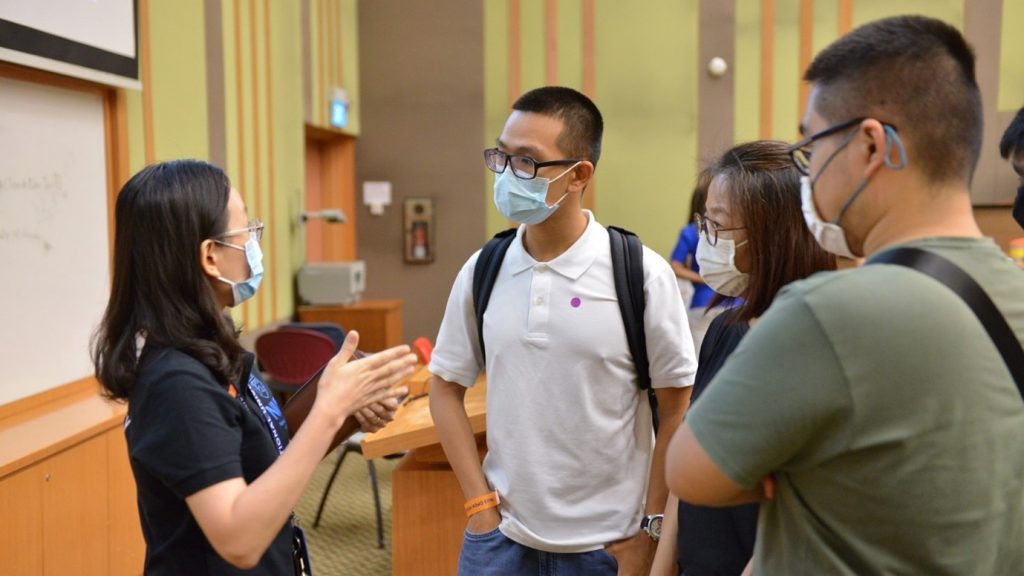
Vanille Goh, who graduated from Anglo-Chinese Junior College and attended the Geography and Environmental Studies masterclasses, said, “[The masterclasses] provided me with a good overview of how passionate the lecturers were and how each course will adequately prepare me for what I would want to do in the future.”
Nanyang Junior College alumna Wen Xinyue also appreciated the in-person masterclasses, adding that they gave her a first-hand glimpse into studying humanities at the university level.
“I am interested in studying English, and from the English Language and Literature masterclass on Gender, Sexuality and Language, I learnt about how entrenched gender roles and stereotypes can be within the language we use,” she shared.
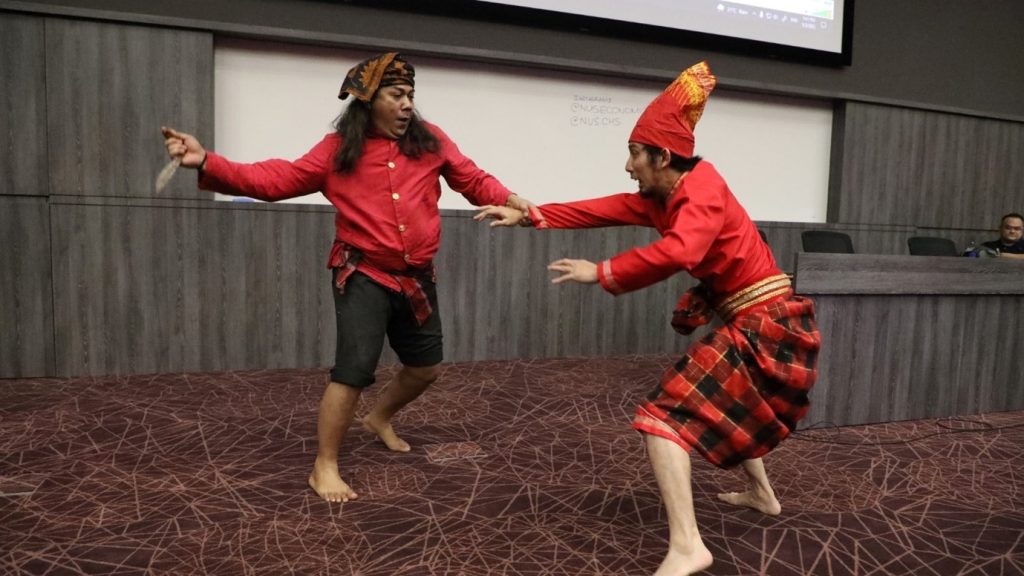
Meanwhile, over at the “Insights into Southeast Asia from the Martial Arts Perspective” masterclass, Dr Mohamed Effendy of NUS Southeast Asian Studies presented prospective students with a riveting intellectual and visual treat, demonstrating how useful unique perspectives on the region’s myriad communities can be gleaned by studying them through the lens of the martial arts. Students saw the concepts brought to life – witnessing first-hand an exciting live demonstration by practitioners of pencak silat – of how Southeast Asian warriors of old defended themselves using a wide array of techniques and weapons.
Action aplenty
There was action aplenty among other faculties. NUS Business School’s programmes included a 360 live tour, as well as live chats with the BBA Deans on the different majors offered by the School. Its in-person sessions included sharing sessions by the BBA Deans, BIZCareers advisors, and student ambassadors.
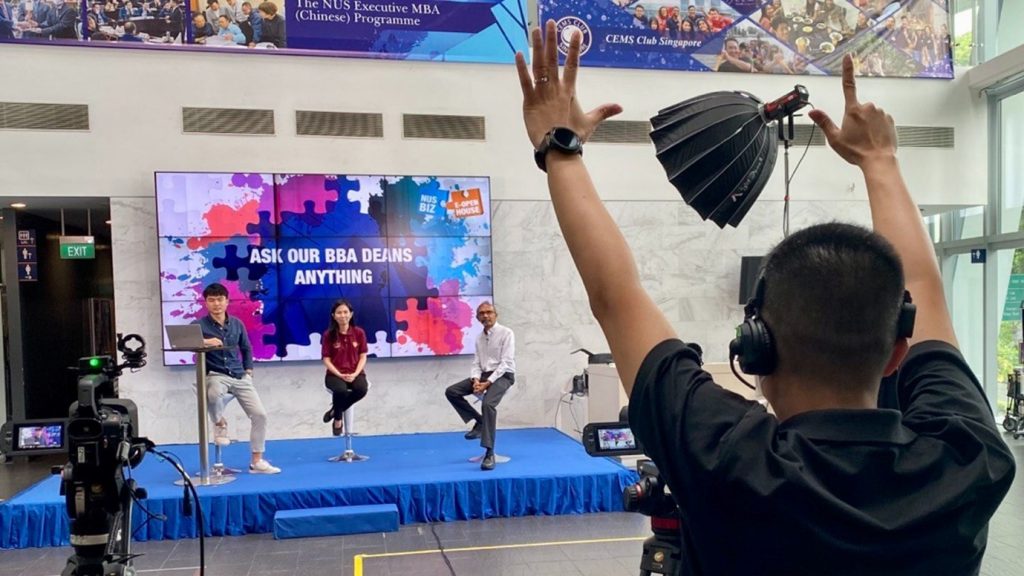
Year 4 Accountancy and Finance undergraduate Calvin Chur was one such student volunteer, serving as an emcee for the online Open House and sharing in-person on 5 Mar about life at the Business School.
“It was a tiring, but extremely fulfilling day engaging with prospective students, learning about their concerns with regards to entering a new phase of life and trying to address those concerns,” said Calvin. “In fact, many of their concerns mirrored those that I had as a fresh A-level graduate attending the NUS Open House back in 2016 – and I am glad that I could offer insider insights to help them make an informed decision at this major milestone of their lives.”
Year 4 Real Estate undergraduate Natasha Liem, another student volunteer who served as an emcee, added, “There was quite a large number of viewers for the panel and a prospective student actually sent me a message on Instagram to enquire more about real estate from a student's perspective. I think the panel went well!”
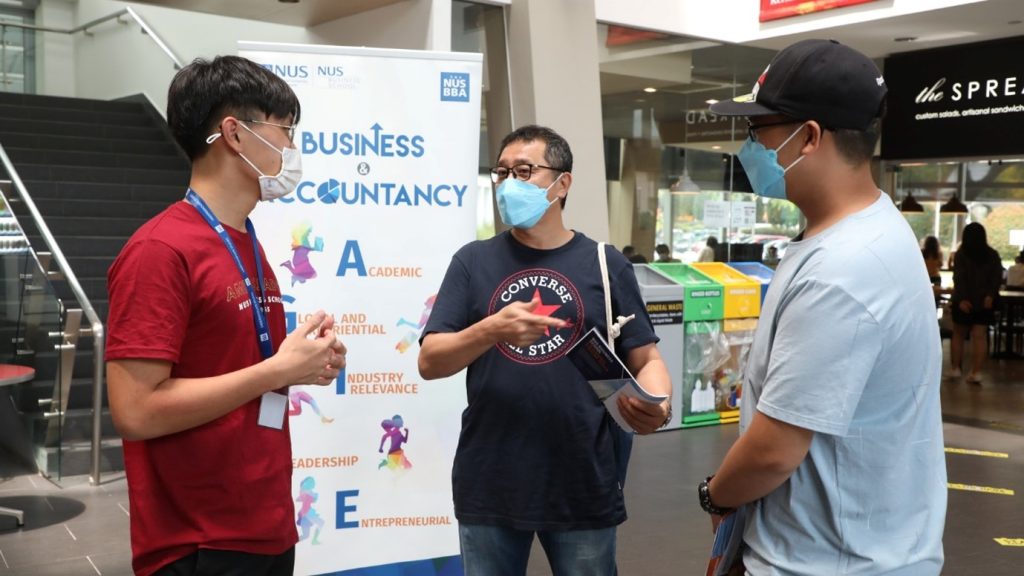
For NUS Business School Executive (Marketing & Outreach) Ms Casey Jean Grant, it was an eye-opener to experience the whole planning process.
“Most of the students and parents were very curious and excited about the prospect of coming to NUS Business School,” she added. “Their excitement definitely rubbed off on us and made the rest of us excited to share about our School.”
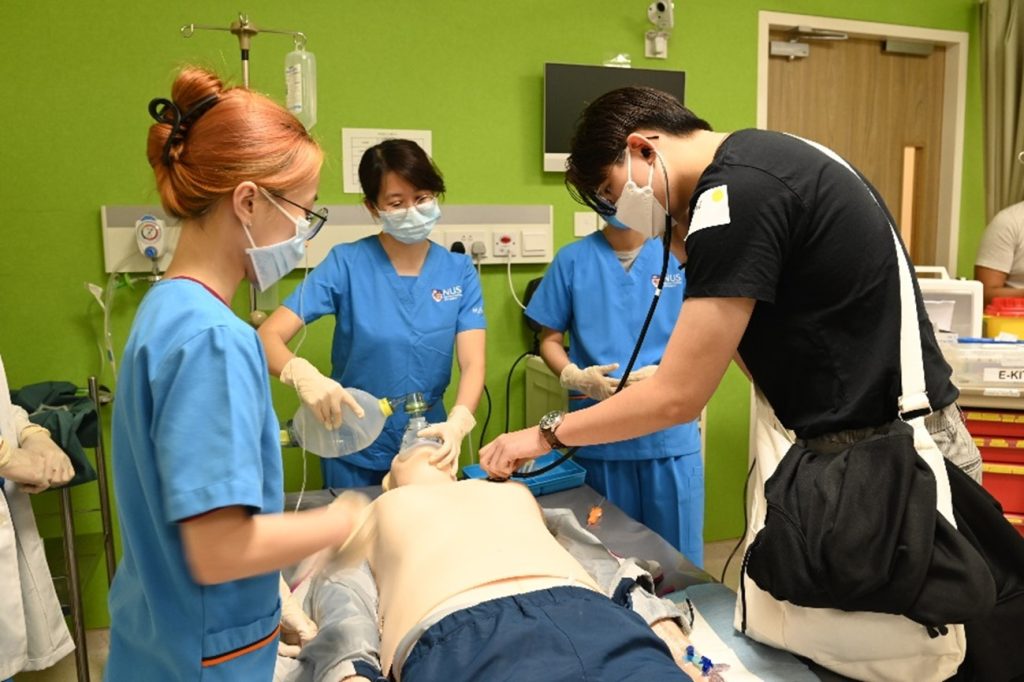
With frontline healthcare workers being in the spotlight these couple of years, there was plenty of interest in NUS Dentistry, NUS Nursing, NUS Medicine, and Duke-NUS Medical School. Live demonstrations were conducted and prospective students got a taste of what it would be like to be a dentist, nurse or doctor.
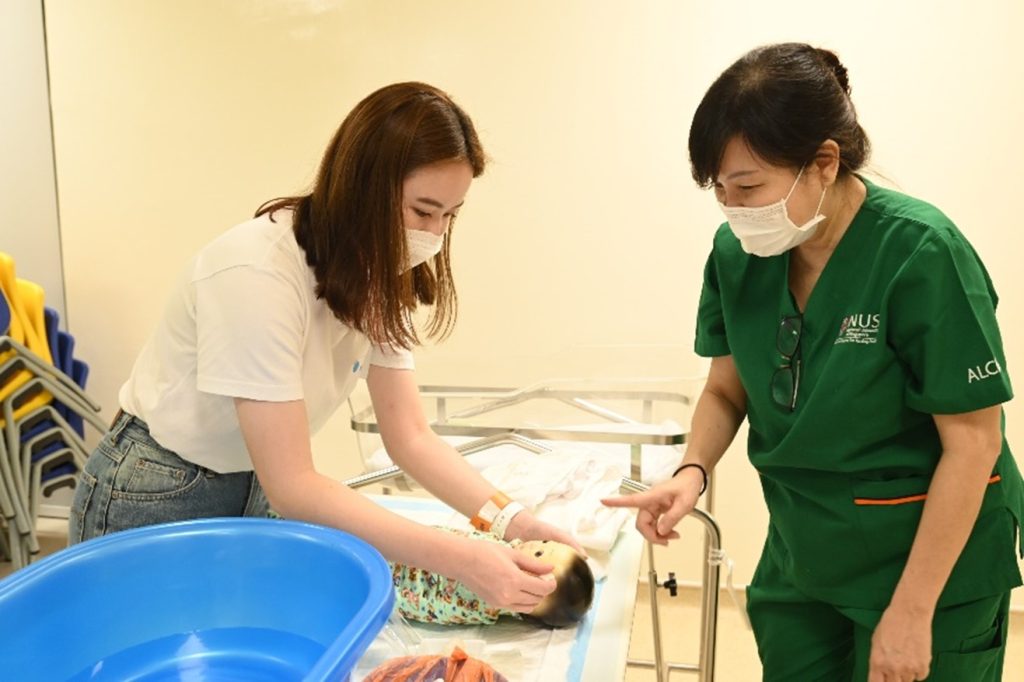
Serving up a slice of campus life
Whether on the screen or in the flesh, visitors to the Open House also witnessed the rich and vibrant student life beyond the classroom that NUS is known for.

Besides holding talks to acquaint visitors with the wide range of co-curricular activities available, student clubs and societies rose to the occasion at the Student Village showcases to feature a spectacular smorgasbord of music, dance and sporting performance across the eight days that Open House was on. Visitors were serenaded by soulful tunes by the NUS Jazz Band and wowed by the moves of NUS Kendo Club. They were also treated to cheerleading displays, snazzy dance performances by NUS Funkstyle and BreakiNUS, catchy renditions of contemporary pop and choral music by the a cappella group Resonance, and the dulcet tones of TheNUSChoir and the NUS Mandopop group Voices.
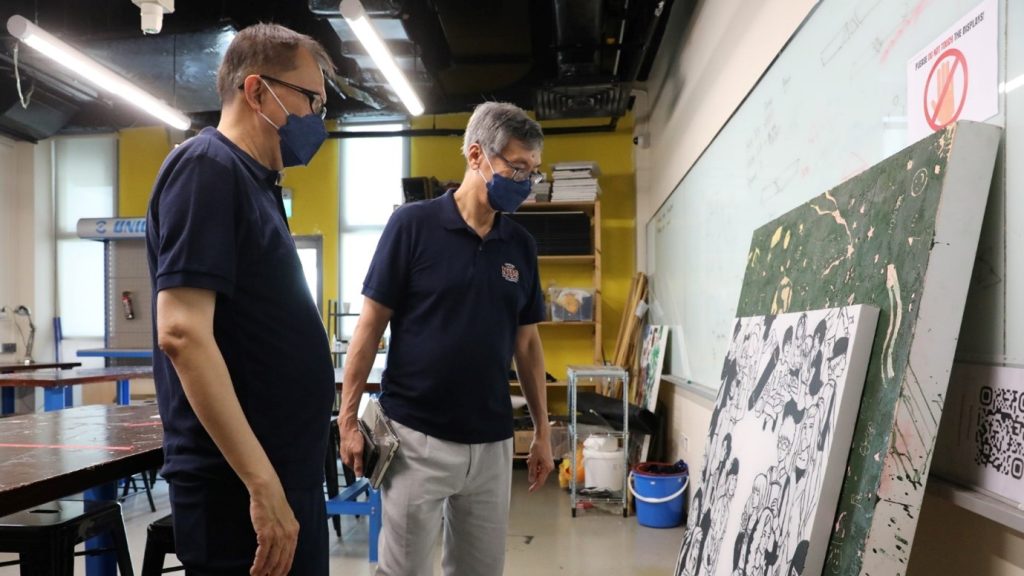
"It was really lively with dozens of booths as well as live performances put on by really talented students! It truly allowed me to understand the culture here and makes me want to be a part of it after experiencing first hand,” Vanille Goh shared.
Students and hall masters from the halls and residences also conducted informative residential life talks, A-Day-in-the-Life-Of vlog sessions and Ask-Me-Anything sessions to help students interested in on-campus living understand its manifold aspects like academic programmes and pastoral care.
These were complemented by in-person tours of King Edward VII Hall, NUS College, Ridge View Residential College, Tembusu College, RC4, and Pioneer House, NUS’ newest housing model, giving participants a real taste of the sense of community and camaraderie that comes with residential life in NUS.
Joshua Chua, who also participated in the RC4 tour, said, “The RC4 tour was definitely a highlight because the tour guide, as with most staff and students, was welcoming and frank, which eased my nervousness.”
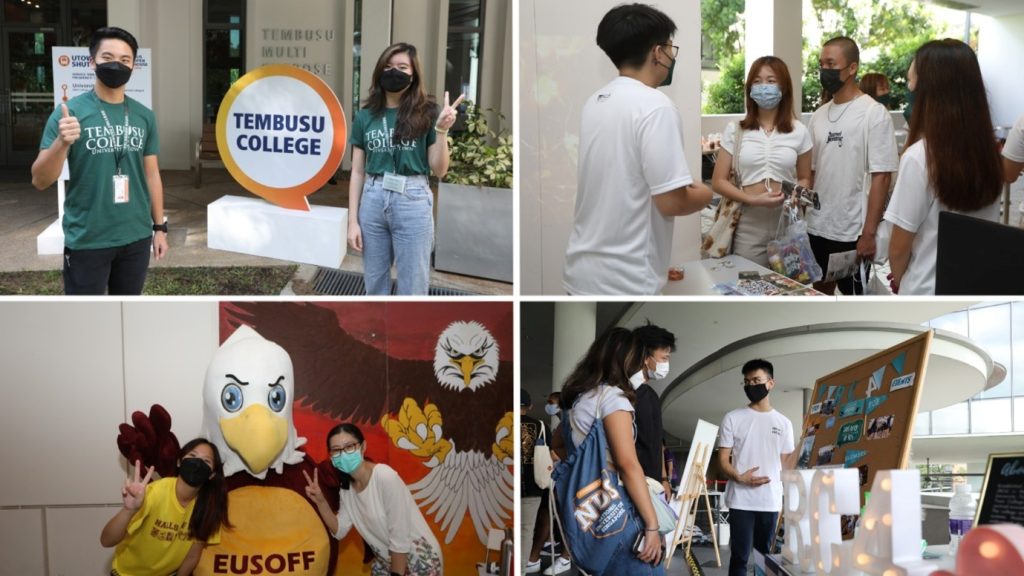
Matthew Yeow, an alumnus of Anglo-Chinese School (Independent) who attended both online and in-person sharing sessions by student residents of the Residential Colleges, said, “During the physical Open House, I had the opportunity to find out a lot more about the residential colleges and what made them distinct from halls. Furthermore, I also got to find out more about the individual residential colleges and their communities, as well as the additional modules they took.”
“As a prospective student, I think the Open House was executed effectively through both the online and physical mediums. Having the opportunity to come down and visit the University and talk to the current students gave me a better understanding of student life in NUS,” he added.

This story first appeared on NUSNews on 8 March 2022.
New Courses for the New Economy
IN BRIEF | 5 min read
- NUS is offering a number of new programmes to prepare graduates for the future, including the much-anticipated Major in Anthropology, and Minor in Interpreting by the NUS Department of Chinese Studies.
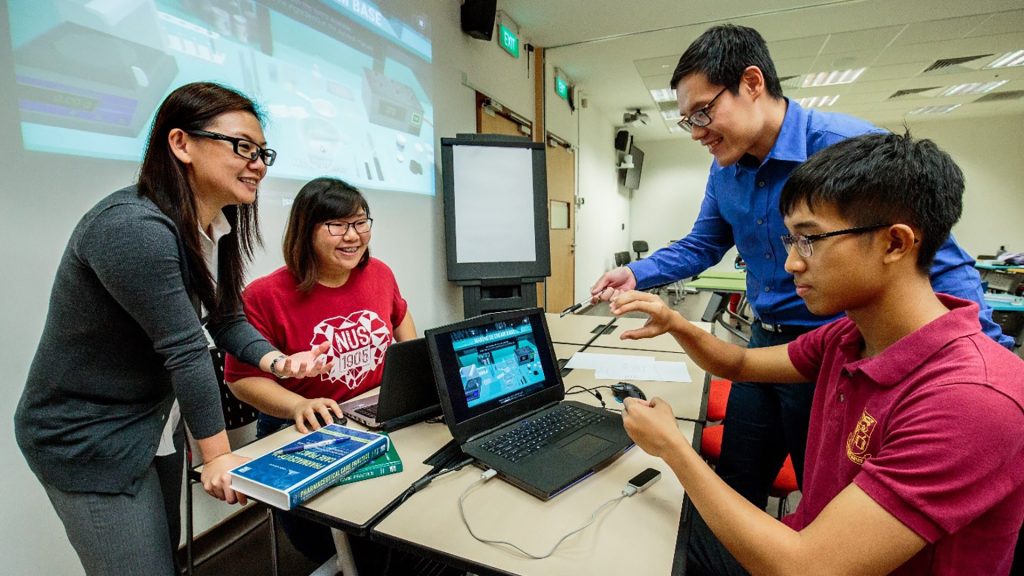
The University’s key theme of preparing undergraduates for the workplace of the future will be further enhanced with the launch of new majors, minors and degree specialisations in the upcoming academic year. About 10 new courses are on the cards.
New programmes from the NUS College of Design and Engineering (CDE), NUS Faculty of Science, NUS School of Computing, and NUS Faculty of Arts and Social Sciences will cover areas such as Artificial Intelligence, technology, data science, sustainability, globalisation. They will add on to the interdisciplinary offerings by the flagship NUS College, Singapore’s first honours college welcoming its first cohort in August – as well as those by the College of Humanities and Sciences (CHS).
“The overall goal of all our education reform efforts is to advance a university curriculum that prepares students well for a Fourth Industrial Revolution world and workplace,” said Professor Bernard Tan, NUS Senior Vice Provost (Undergraduate Education).
“Our education, focused on both breadth and depth, ensures that our graduates are held in high regard by employers. Last year, more than nine in 10 NUS graduates secured a job within six months of their final examinations.”
New majors and minors
Bachelor of Engineering (Infrastructure and Project Management)Offered by CDE’s Department of the Built Environment, this degree will equip graduates with the knowledge and interdisciplinary skills to excel in the multifaceted built environment. This is the first interdisciplinary full-time undergraduate programme to cover engineering, design, management, technology, building science and law modules. Major in Anthropology
Offered by the NUS Faculty of Arts and Social Sciences to all CHS students, this major will study the range of human diversity, accounting for how people in different times and places have developed into distinctly different societies. The degree will expose students to a vast variety of different beliefs and health practices, economic and political systems, material culture, and even different notions of beauty, the environment, food, family, and the good life.
Anthropology is much sought after for the sort of training it offers its students – a ground up approach to developing deep understanding on just about every aspect of the human condition. Students will be equipped to better understand and deal with the chaos, uncertainty, and ambiguity that characterises the contemporary age.
Second Major in Sustainable Urban DevelopmentOffered by CDE’s Department of Civil and Environmental Engineering, it aims to train the next generation of urban problem-solvers. They will be equipped with interdisciplinary knowledge and skills to create sustainable urban environments in the context of the changing climate. Open to all NUS undergraduate students, this major is stackable to students’ primary major in their chosen field, and can be completed in four years with no additional academic workload. Second Major in Nutrition
This will be offered by the Faculty of Science to all CHS students, including those reading Food Science and Technology as the primary major. It is designed to equip students with knowledge in human nutrition, providing them with the necessary foundation to develop a cross-disciplinary perspective along the food supply chain – from farm to fork to health. Minor in Interpreting
Multilingualism is a defining characteristic of Singapore’s multi-ethnic, immigrant society. With four official languages and with English as the working language, translating and interpreting between each of the mother tongues and English has always been a prominent feature of Singapore society. Against this backdrop, the NUS Department of Chinese Studies has placed as one of its core objectives, the training of graduates with strong Chinese-English bilingual skills who can become leaders in the translation and interpreting arenas.
This new Minor will allow students a related alternative to translation, or as an affiliated Minor to Translation which is already being offered at the Department.
New specialisations
Three new specialisations will be offered by the NUS School of Computing:
Specialisation in Digital Product and Platform ManagementThis will be offered to students pursuing the Bachelor of Computing (Information Systems) Degree. They will build up a repertoire of knowledge and skills sought after by both technology companies and the digital immigrant companies that are fast adopting the product- and platform-centric technology and business operating models. Specialisation in Intelligent Systems Solutioning
Students pursuing the Bachelor of Computing (Information Systems) Degree can also take this new specialisation to learn to implement and apply intelligent system solutions buttressed by the new technologies of Artificial Intelligence, the Internet of Things, and Augmented Reality. They will learn to apply these new technologies in software engineering, and to implement and manage intelligent system solutions. Graduates will be able to take on job roles in intelligent systems engineering and solutioning. Specialisation in Machine Learning-based Analytics
This new specialisation for Bachelor of Science (Business Analytics) students will enable students to tap into the analytics capabilities of Machine Learning, a sub-field of Artificial Intelligence. They will learn to rapidly and automatically develop models that can quickly and accurately analyse massive, complex data sets, in order to help businesses unlock the value of corporate and customer data and enact decisions that keep them ahead of the competition. Graduates will be able to take on careers in the rapidly-growing business and data analytics field, among others.
New modules
Aside from the new majors, minors and specialisations, a number of new modules are being offered. For instance, the NUS School of Computing is starting a Digital Ethics and Data Privacy module to educate students on this pertinent and pressing issue.
The NUS Faculty of Law is introducing two modules – one on Law & Technology and one on Data Literacy – as technology and data are increasingly being key drivers for the legal industry.
Find out more about the courses offered by the University, and explore this year’s Open House. Here are four things to look out for at the Open House.
This story first appeared on NUSNews on 24 February 2022.
NUS Open House 2022: Interdisciplinary Offerings, In-person Activities and More!
IN BRIEF | 5 min read
- NUS Open House 2022 is back with opportunities for prospective students to meet NUS professors, students and alumni face-to-face, after two years of connecting virtually.
- Running from 26 February through 5 March, NUS Open House 2022 will begin with a comprehensive line-up of informative activities, including the online segment, during the week leading up to the physical Open House, which takes place on Saturday, 5 March from 9 am to 7 pm across NUS’ campuses in Kent Ridge and Bukit Timah.

NUS Open House 2022 is back with opportunities for prospective students to meet NUS professors, students and alumni face-to-face, after two years of connecting virtually.
The physical event will take place on Sat, 5 Mar from 9am to 7pm across NUS’ campuses in Kent Ridge and Bukit Timah. This will be preceded by a comprehensive line-up of informative activities during the week leading up to the physical Open House.
Including the online segment, NUS Open House 2022 takes place from 26 Feb to 5 Mar. Here’s a heads-up on four things to check out:
1. Exciting interdisciplinary offerings
NUS College, Singapore’s first honours college, was formed by the merger of the University Scholars Programme and Yale-NUS College. Offering an immersive, experiential and interdisciplinary educational journey, it will welcome its first batch of students this year. Students will have a home college or faculty, say, Business or Engineering, while simultaneously being enrolled at NUS College. There, they will have the opportunity to enjoy a holistic interdisciplinary curriculum that is complementary to their major.
Another option for interdisciplinary learning can be found at NUS College of Design and Engineering. The College offers a programme that prepares students for the future through interdisciplinary learning and robust research in the fields of engineering and design. At the College, students are given the flexibility to build and design their own learning experience.
The NUS College of Humanities and Sciences, the enhanced undergraduate experience for students of the Faculty of Arts & Social Sciences and the Faculty of Science, is accepting its second intake this year. The College offers 13 Common Curriculum pillars consisting of modules such as scientific inquiry, humanities, digital literacy, design thinking, artificial intelligence and many more exciting options. These are complemented by majors and minors spanning the arts, humanities and sciences, such as global studies, philosophy, theatre and performance studies, quantitative finance, data analytics and pharmaceutical science. Students can pick and choose modules to create a customised curriculum that matches their interest and aspirations.
To ensure that graduates are ready to take on leading roles in the New Economy, NUS constantly develops new courses. Here are this year's new offerings.

2. Meeting you in person - again
After two years of meeting virtually, the NUS community is excited to get together in real life with prospective students once again!
You can look forward to an enlightening schedule of in-person activities including a tour of the Centre for Healthcare Simulation by NUS Nursing; tours of residential living options such as Tembusu College, CAPT (College of Alice & Peter Tan), and RC4; a live demonstration of a moot court session and tour of the NUS Bukit Timah campus by NUS Law; tours and a showcase of NUS College; as well as a live question-and-answer session with Duke-NUS Medical School.
3. Webinars, talks, live chats, hotlines and more
Get a taste of life as an NUS student, even before the physical event. A host of insightful webinars, talks, question-and-answer sessions, live chats, hotlines, and virtual tours have been arranged starting 26 Feb to give you a head start on topics such as admissions, student life, and on-campus living, as well as programmes offered by NUS College, the College of Design and Engineering, the College of Humanities and Sciences, Business, Music and many more.
Obtain behind-the-scenes knowledge from NUS student ambassadors and the NUS Students’ Union on the rich student life available at NUS, and be serenaded by NUS Choir and NUS Jazz Band.
Professors will be on hand to share information on their respective programmes, and you’ll even have a chance to sit in on classes. Have a question that is not covered by the briefing? No sweat! There’ll be chat sessions with NUS Admissions, professors and students from selected programmes during which you can get your queries addressed.
Click here for the list of virtual and in-person activities for NUS Open House.

4. Exciting student life
NUS offers a myriad options for a rich student life, and NUS Open House is the perfect place to start exploring the possibilities. Many alumni recall their NUS days fondly, remembering not only the academic progress they made, but the camaraderie forged with friends from clubs, societies and on-campus residences.
Throughout the period of the online Open House and during the physical event, representatives from various student-led groups will speak on topics including hall life, clubs and societies, as well as campus performing groups. Take part in a live session with music and dance groups, embark on a virtual residential tour, and more.
We’re looking forward to seeing you online from 26 Feb and in-person on 5 Mar!
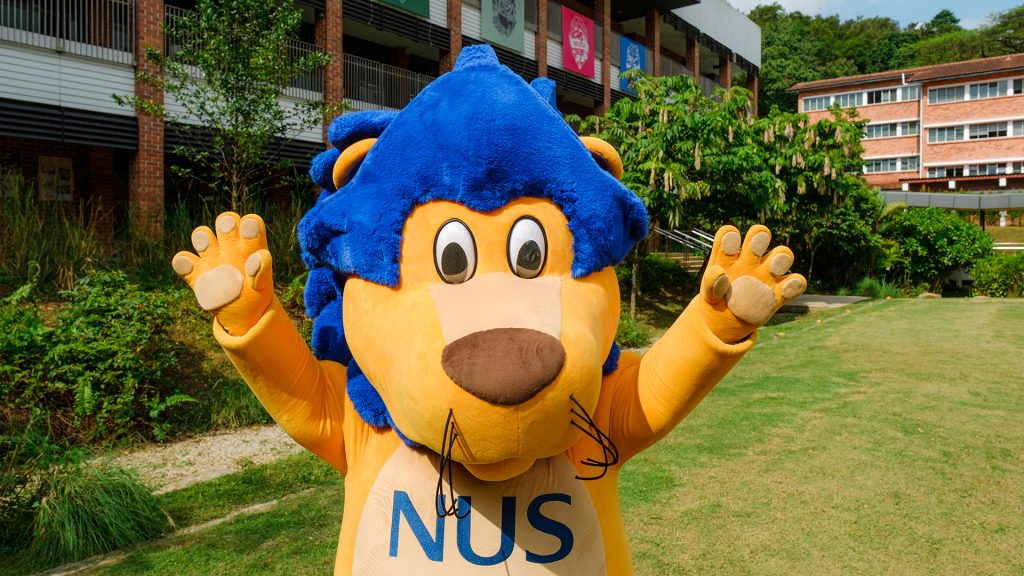
This story first appeared on NUSNews on 23 February 2022.
FASS Inspiring Mentor 2021 Award Winners Announced

The NUS Faculty of Arts and Social Sciences is proud to announce the winners of the 2021 FASS Inspiring Mentor Awards.
Congratulations to:
- Prof Jack Qiu Linchuan, Professor, Department of Communications and New Media
- Assoc Prof Loy Hui Chieh, Associate Professor, Department of Philosophy
- Assoc Prof Robin Loon Seong Yun, Associate Professor, Department of English Language and Literature
- Dr Michael Yoshitaka Erlewine, Assistant Professor, Department of English Language and Literature
- Dr Nina Laurel Powell, Senior Lecturer, Department of Psychology
Winners of AY2020-21 Faculty Teaching Excellence Awards Unveiled
 The NUS Faculty of Arts and Social Sciences is proud to announce the 37 winners of the Faculty Teaching Excellence Award for their work in AY2020‐21, 16 of which have also been nominated for the Annual Teaching Excellence Award(ATEA) and Annual Digital Education Award (ADEA).
The NUS Faculty of Arts and Social Sciences is proud to announce the 37 winners of the Faculty Teaching Excellence Award for their work in AY2020‐21, 16 of which have also been nominated for the Annual Teaching Excellence Award(ATEA) and Annual Digital Education Award (ADEA).
Special thanks are due to members of the Faculty Teaching Excellence Committee–Dr Susan Ang (English Language and Literature and Chair of FTEC), A/P Loy Hui Chieh (Philosophy; FASS Vice‐Dean), A/P Lim Wee Hun, Stephen (Psychology), Dr Gilbert Yeoh (English Language and Literature) and Mrs Chen Ing Ru (Centre for Language Studies)–for their efforts in shortlisting and nominating the winners.
|
NAME |
DEPARTMENT |
|
Mr Appriou Yannick Francois |
Centre for Language Studies |
|
Ms Baranska, Malwina |
Centre for Language Studies |
|
Ms Klayklueng, Sasiwimol |
Centre for Language Studies |
|
Ms Morita, Kazuko |
Centre for Language Studies |
|
Dr Chaidaroon Suwichit |
Communications and New Media |
|
Dr Hong Renyi |
Communications and New Media |
|
Dr Mitchell, Alexander Ian |
Communications and New Media |
|
Dr Shobha Avadhani |
Communications and New Media |
|
Mr Tan Kai En |
Communications and New Media |
|
Dr Timothy Wong Chong Ji |
Economics |
|
Dr Vu Thanh Hai |
Economics |
|
A/P Michelle M. Lazar |
English Language & Literature |
|
Dr Miguel Escobar Varela |
English Language & Literature |
|
A/P Starr Rebecca Lurie |
English Language & Literature |
|
A/P Thell Anne Marie |
English Language & Literature |
|
Dr Roy, Tania |
English Language & Literature |
|
A/P Chang Tou Chuang |
Geography |
|
A/P Daniel Adam Friess |
Geography |
|
Dr Gretchen Christina Coffman |
Geography |
|
Dr Kamalini Ramdas |
Geography |
|
Dr Kenney-Lazar Miles Richard |
Geography |
|
Dr Teo Sheng Kiat, Shaun |
Geography |
|
Dr Donna Maree Brunero |
History |
|
Dr Lawrence, Kelvin |
History |
|
Dr Sayaka Chatani |
History |
|
Dr Beddor, Robert Speeter |
Philosophy |
|
Prof Bain, William Ward |
Political Science |
|
Dr Dunya Deniz Lepori |
Political Science |
|
Dr Jia Lile |
Psychology |
|
Dr Nina Laurel Powell |
Psychology |
|
Dr Wong Shi Hui Sarah |
Psychology |
|
Dr Peace Wong Yuh Ju |
Social Work |
|
Dr Chua Hui Ching, Emily |
Sociology |
|
Dr Elliott Edward Prasse-Freeman |
Sociology |
|
Dr Jennifer Emily Estes |
Sociology |
|
Dr Noorman Abdullah |
Sociology |
|
Dr Radics, George Baylon |
Sociology |
Congratulations to them all!
FASS Announces New Additions to Leadership Team
IN BRIEF | 2 min read
The NUS Faculty of Arts and Social Sciences is pleased to announce recent new appointments to the Faculty's leadership team.
Three eminent members of the Faculty received new appointments to the Deanery at the beginning of this year:
- Professor Joseph Park (English Language and Literature)
Vice-Dean (Undergraduate Studies) - Dr Zhang Yang (Economics)
Associate Dean (Undergraduate Studies) - Dr Noorman Abdullah (Sociology)
Assistant Dean (External Relations and Student Life)
We wish them the very best with their new portfolios. Click here to visit the FASS Deanery page.




NUS Bags Major PR Award for College of Humanities and Sciences Campaign

One year since the official inauguration of the NUS College of Humanities and Sciences (CHS), the publicity campaign for the new College has gained recognition at the recent Public Relations in the Service of Mankind (PRISM) Awards.
The University bagged a Distinction Award in the category “Outstanding Campaign by a Non-Government Organisation or Not-For-Profit Organisation” for the launch and publicity of the interdisciplinary College.
The award recognises NUS’ effective communications regarding the necessity of an interdisciplinary education to faculty members, prospective students and their parents, alumni, employers, and members of the public.
The campaign also underscored what CHS offers students in a world plagued by complex challenges that require integrated interdisciplinary approaches. The campaign included the launch event, student profiles, social media, and CHS collaterals and media assets in the form of CHS-specific infographics, news and FAQs.
The campaign also included a video series on interdisciplinarity, a podcast series by the teaching team of the common curriculum Humanities module, and stakeholder endorsement in the form of testimonials from students and alumni of NUS Faculty of Arts and Social Sciences (FASS) and the NUS Faculty of Science (FoS) who have pursued interdisciplinary studies. A successful admissions publicity campaign was run, including the 2021 NUS Open House which drummed up interest in the College with student and employer panels, small group tours, and student chat rooms.
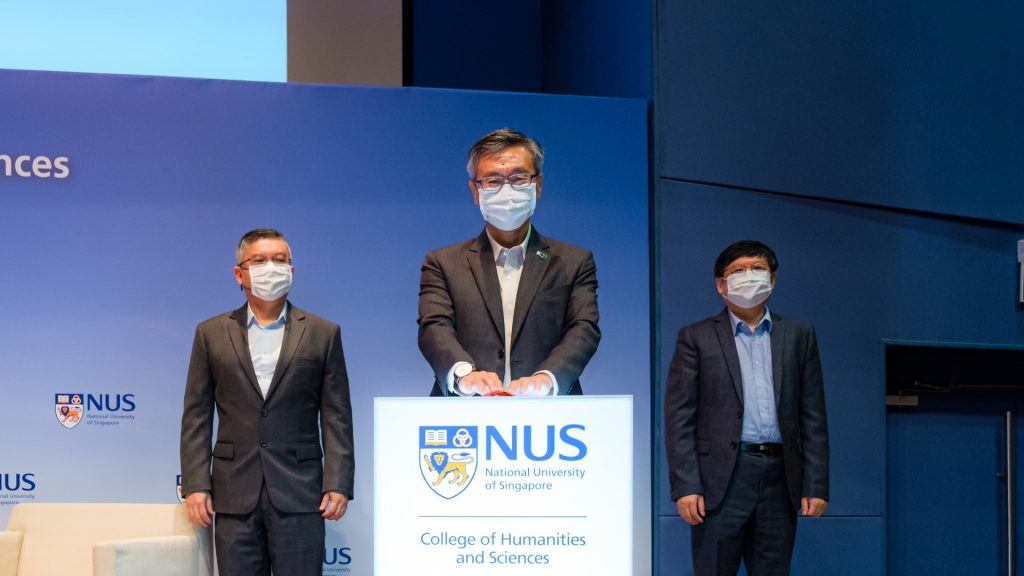
The accolade from PRISM, which coincides with the one-year anniversary of the official inauguration of CHS, bears testament to the concerted effort on multiple fronts of the campaign by various stakeholders, including the Communications teams from FASS and FoS, the NUS Office of University Communications and communications agency AKA Asia.
“The award comes as a truly wonderful one-year anniversary gift to all our colleagues involved in the CHS campaign,” said NUS Chief Communications Officer Ms Ovidia Lim-Rajaram.
“It is gratifying to know that our efforts to kickstart a meaningful, groundbreaking programme at the College are paying off, and that the journey to promoting an interdisciplinary, 21st-century educational experience at NUS is off to a great start.”
Communications at CHS is co-led by Mr Nisar Keshvani, Associate Director for Strategic Outreach and Communications at FASS, and Ms Janice Quah, Associate Director for Corporate Communications at FoS.
“The campaign award, a result of the synergy and collaboration across diverse University faculties and departments, epitomises the spirit of interdisciplinarity that CHS values, and the idea of capitalising on each other’s strengths to achieve the best outcomes,” Mr Keshvani said.
Ms Quah added, “It has been a challenging journey but seeing our communications ideas collectively come to fruition is truly fulfilling! The validation of the hard work motivates us to continue raising the bar, to sustain the impactful profiling of CHS to students and stakeholders.”
Recognising the best in public relations
Celebrating 44 winners across 27 categories, the PRISM awards ceremony was held on 15 Dec by the Institute of Public Relations Singapore (IPRS), the only accrediting body for public relations practitioners in Singapore. The Guest of Honour was Mr Tan Kiat How, Minister of State at the Ministry of Communications and Information (MCI).
Acknowledging the challenges of a shifting communications landscape, Mr Tan said, “MCI recognises the importance of excellence in public relations and communications across all sectors of the economy.”
“The campaigns up for awards today show how all of you have worked around these challenges and continued to achieve excellent levels of reach and impact.”
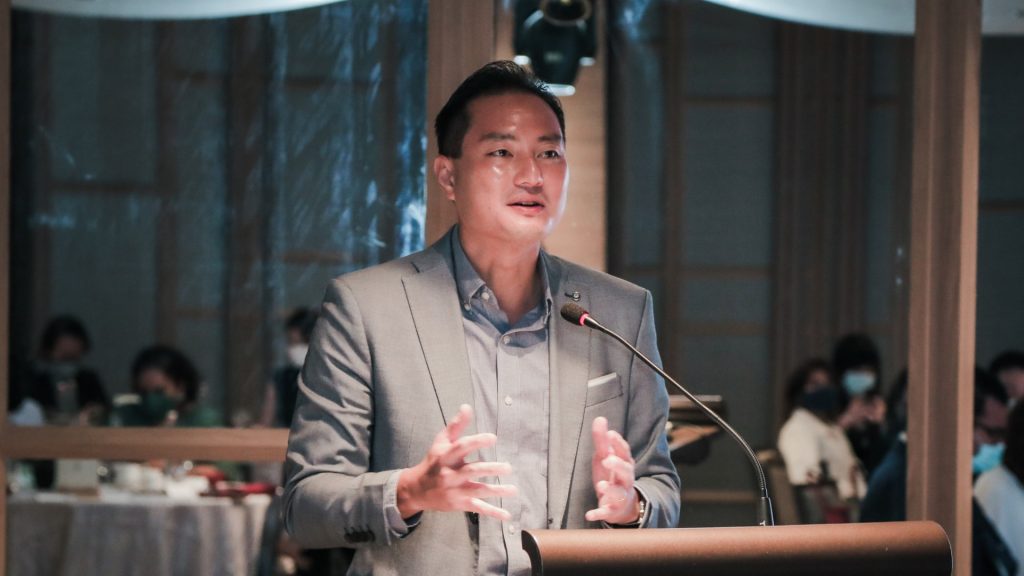
Held biennially since 1987, the PRISM Awards is one of the oldest and most prestigious awards in the industry, celebrating Singapore’s brightest stars in the communications and public relations industry. It is judged by a panel of established business leaders and senior practitioners, recognising and honouring organisations and individuals for excellence in public relations and communications.
Ms Koh Juat Muay, President of the IPRS Council 2021/2023 said, “The winning entries and the winners this year reveal a singular story – the resilience of our people, the ingenuity of the campaigns and strength of the organisations that continues to thrive in an evolving local and global communications landscape.”
“IPRS is privileged to hold PRISM Awards 2021 and share in the pride of profession demonstrated by our people and in the brilliance of their campaigns. Our winners truly embody the meaning of PRISM and that is Public Relations In the Service of Mankind,” she added.
This story first appeared in NUSNews on 21 December 2021.
An Interview with Emeritus Prof S. Vasoo and Assoc Prof Winston Goh on The Strange Start of Psychology at the National University of Singapore
The Strange Start of Psychology at the National University of Singapore (NUS Department of Psychology, 2021), showcases the history of the NUS Faculty of Arts and Social Sciences' Department of Psychology, Singapore's oldest psychology programme. The programme, which kicked off during the 86/87 academic year at the Department of Social Work (renamed the Department of Social Work and Psychology), became a department in 2005.
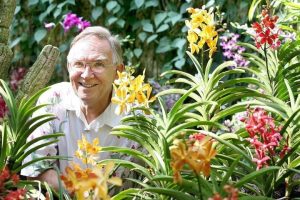
Author Dr John Michael Elliott (1945-2019), who was at the time a psychologist at the then Ministry of Social Affairs, joined the programme six weeks after it began and retired in 2018.
As the book explains, in Singapore, historically psychology was viewed more as clinical work that supported psychiatry, and mental health care was deprioritized. Instead, during the island's colonial era, patients requiring mental health treatment were institutionalized in The Insane Hospital, which commenced operations in 1841 with 30 beds. This hospital evolved into The Lunatic Asylum (1862, 100 beds), followed by The New Lunatic Asylum (1887, 300 beds), and then the Mental Hospital in 1928, which became Woodbridge Hospital in 1951.
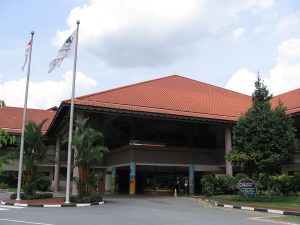
In 1993, Woodbridge Hospital moved to Buangkok Green, becoming the Institute of Mental Health's new inpatient facility.
There was a definite need for trained psychologists in Singapore, as well as a programme to train them, since, post-independence, all psychologists in the country completed their education abroad. When the NUS psychology programme got started in July 1986, however, the discipline was still often seen as non-Asian and more as medical training than a social sciences course, and also as a luxury in the realm of social work. The Department of Social Work was an ideal place for the new programme, Dr Elliott notes, as it would contribute to the department's own development, enabling it to offer an honours degree in social work and psychology.

The NUS psychology programme's initial cohort had 72 students and 1 staff and grew rapidly. There are currently around 900 students in the introductory psychology module and 220 honours graduates annually. At its inception 35 years ago the programme offered a three year general degree with a competitive fourth year honours degree. In 1989, 50 students received a general degree, 11 of whom went on to get an honours degree. Today, the department's own clinical psychology master's programme graduates approximately 15 annually, and psychology graduate students can also obtain a Master of Social Sciences or PhD.
The NUS Department of Psychology ranks 16 out of 303 on the Quacquarelli Symonds list and psychology is a well recognized and respected course of study in Singapore. Many graduates go on to engage in psychological work in the public sector, such as in Singapore's Ministries of Health, Defense, Home Affairs, and Social and Family Development. A number of graduates are also employed in private sector positions involving psychological work like human resource management and marketing, or in private practice in the fields of clinical, counselling, and industrial-organisational psychology, among others.

We discussed the The Strange Start of Psychology at the National University of Singapore, which has an online launch on Friday, 10th December at 11 am, with Associate Professor Winston D. Goh, the current NUS Department of Psychology Head, and Emeritus Professor S. Vasoo, who led the then NUS Department of Social Work and Psychology from 1987 to 1999.
 A/P Vasoo Q & A
A/P Vasoo Q & A
1. What were your most memorable experiences developing the new psychology programme during your term leading the NUS Department of Social Work and Psychology?
I have been teaching students and working with academic staff for about 50 years. In the course of these years, I always encouraged and advised them not to look back on events that had surpassed them. This is because memorable matters would not come back and one would not be able to deal with the bygones. No point spending time lamenting over things that have gone past as it can be emotionally costly and tiring. I always encourage students and academic staff to look ahead on events that will be forthcoming as these can be managed as they unfold and are within their control. I am of the opinion that various human issues that we can grasp at hand are largely solvable as long as we persistently tackle them with empathy. It is only with good empathy that we can have clearer insights to deal with human issues and relationships.
I recall that one of the challenging tasks that I had to deal with as the Head of the Department of Social Work and Psychology was to quickly recruit a group of Psychology academic staff to deliver the undergraduate psychology programme in 1986. I had selected staff with diverse psychology training such as a developmental psychologist, a cognitive psychologist, a social psychologist, an experimental psychologist, a clinical psychologist, and a psycholinguist. You can imagine with these varied backgrounds coming together to agree on a basic undergraduate curriculum was not easy. Each of them had different hobby horses to ride, which was understandable while mind-boggling, as there were protracted views within the group and at times heated arguments that I had to mediate. I brokered a deal as a non-partisan and drew a consensus among the different psychological academic personalities for the need to develop a top-notch undergraduate psychology programme based on the best psychology departments in the United Kingdom and United States. The foundation laid for the early phase of the psychology programme saw the fruition of some of our top psychology scholars in the Faculty of Arts and Social Sciences. I am indeed proud to witness that some of these accomplished scholars have become lead anchors of the NUS Department of Psychology and later appointed Heads. The nurturance of these top scholars have helped stabilize the psychology programme and provided succession of leadership. They also supported the Deanery of the Faculty of Arts and Social Sciences.
2. What can psychologists learn from social workers, and what can social workers learn from psychologists?

To put it simply, both psychology and social work are non-identical twin disciplines with each having to deal with human behaviour and social issues. As a psychologist, one has to understand human behaviour and the cause of such behaviour, and as a social worker, one has to understand the cause of social and human problems and then enable people to find ways to problem solve. Both disciplines deal with human and psychosocial issues, and human behaviour requires a multidisciplinary focus. I would say that no single discipline is adequate to solve human life course issues. I must add that a good psychologist will require social work lenses and a competent social worker needs to have helpful psychological lenses. As one will appreciate, we are all human beings and are ecologically bounded. Therefore both psychological and social work analyses are critical to better appreciate human behaviour and social interactions, and these can contribute to effective human and social problem solving.
3. What do you see as the most notable impacts in practice of social work and psychology in Singapore so far and in the future?

Psychology graduates as well as social work graduates are making robust contributions in public service, private enterprises, and non-governmental organisations. Psychologists hold highly respectable positions in areas such as clinical services, rehabilitation, health, human resources, education, the armed forces and the police, besides others. Increasingly, psychologists are needed to contribute psychological solutions to strengthen our psychological defences against various societal crises.
Likewise, social workers are also appointed in highly regarded positions in fields such as social services, rehabilitation, health, social research, counselling and mental health, education, the armed forces, and childcare, among others. Both psychologists and social workers have so far given valuable suggestions and inputs to policy changes to the care and protection of children, youth, and women, and in the support of the vulnerable and the promotion of inclusiveness of people with special needs.
Singapore like the rest of the world will be confronted with serious social and ecological changes, including the consequences of unabated climate change. In view of these changing scenarios, our future psychologists will have to be equipped with psychological skills in assessing the impact of human behaviour on mitigating issues related to the environment and climate change as well in order to have good insight into the social and psychological consequences of an ageing Singapore community. Trainee social workers can be better equipped with social analytical skills, which will make them more versatile in predicting specific vulnerable sectors of the community. Thereby, the future social workers can enhance their community problem solving capacity by building more support networks to build a socially healthy community. Specifically, more attention can be paid by both social workers and psychologists to deal with the social and psychological implications of the growing social divide between the haves and have-nots, and find more innovative ways to deliver services to enable the less well-off to move up.
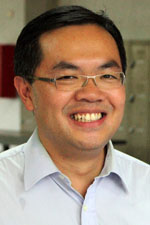 A/P Goh Q & A
A/P Goh Q & A
1. What are some of your fondest memories of Dr John Elliott, first as a teacher, and later as a colleague?
John encouraged critical thinking and we always had very illuminating discussions during his tutorials (see photo on page 28); of course, tutorials at that time only had between 5 and 7 students, so very difficult to hide! He was quite a tough marker though - never got an A from him for my term papers; but then again, As were given out very sparingly during that period (and there were no CAs at that time; the term paper grades were not counted). As a colleague, he was always willing to give advice to young hires, and his experience helped me immensely in the crafting of exam questions when I first started helming my own modules. I also remember he was very particular in signing or agreeing to legal documents - he once refused to upload materials into IVLE (the forerunner of LumiNUS) because he felt NUS did not provide enough protection for staff.
2. What motivated you to study psychology at NUS as an honours and then Masters student, and what prompted you to return to the department to teach and carry out research projects?
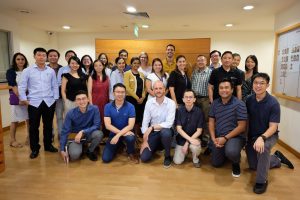 I was in the pre-med programme in junior college, so the path seemed straightforward for me. But I started reading about psychology as a course in various government information booklets and thought this was more interesting than medicine - I also didn't do well at the A levels, so perhaps this was fate telling me to take another path. However, this meant you had to go overseas as there was no psychology programme offered locally and my parents could not afford an overseas education. So when I was accepted in FASS, I was set to major in the closest one at the time - Sociology. I didn't start right away as I had to serve National Service; and in my second year of NS, I found out that NUS had started a psychology programme (again, fate may have been looking out for me!). Fortunately, I did well enough in the aptitude test (required then) to be allowed to major in Psychology. Everyone was hoping to do Honours, and at the time, you had to be invited, so I was elated when the Department of Social Work and Psychology offered me Honours, no motivation required. As for the Masters, I worked as an RA after completing my Honours, so I wanted to see if a research and academic career appealed to me, and decided to do my Masters while I was a TA for the Department. After that, NUS funded my PhD overseas on a staff development scheme, so I was obligated to return to serve a bond. In a sense, NUS Psychology has been my home since I started as an undergrad student, for I never left!
I was in the pre-med programme in junior college, so the path seemed straightforward for me. But I started reading about psychology as a course in various government information booklets and thought this was more interesting than medicine - I also didn't do well at the A levels, so perhaps this was fate telling me to take another path. However, this meant you had to go overseas as there was no psychology programme offered locally and my parents could not afford an overseas education. So when I was accepted in FASS, I was set to major in the closest one at the time - Sociology. I didn't start right away as I had to serve National Service; and in my second year of NS, I found out that NUS had started a psychology programme (again, fate may have been looking out for me!). Fortunately, I did well enough in the aptitude test (required then) to be allowed to major in Psychology. Everyone was hoping to do Honours, and at the time, you had to be invited, so I was elated when the Department of Social Work and Psychology offered me Honours, no motivation required. As for the Masters, I worked as an RA after completing my Honours, so I wanted to see if a research and academic career appealed to me, and decided to do my Masters while I was a TA for the Department. After that, NUS funded my PhD overseas on a staff development scheme, so I was obligated to return to serve a bond. In a sense, NUS Psychology has been my home since I started as an undergrad student, for I never left!
3. What future plans are in the works for NUS Psychology and how do they connect to the need for scholars and practitioners of the discipline in Singapore and the region?

Top psychology departments in the world are very well resourced with research spaces, laboratories, and facilities; so we hope to move in that direction and provide all of our research-active staff dedicated lab spaces to do research that will benefit Singapore and the discipline in general. We will also need to see how many more students (we have always been one of the more in-demand majors since inception) will want to be Psychology majors with the advent of the College of Humanities and Sciences, and perhaps develop various teaching innovations to serve an even more expanded student body (the days of 5-7 pax tutorials, or a 10-student Honours cohort in my year, are long gone). But we have very good educators in the department, so I am not worried about that. Our Clinical Psychology Masters programme is also in very high demand, given the focus on mental health needs nowadays. So we will need to see how we can support training for manpower needs in the public and private sectors in terms of workshops for associate psychologists, in additional to training people to be professional clinical psychologists.
Thank you very much for your time and answers, Prof Vasoo and A/P Goh! Readers can learn more about the history of the NUS Department of Psychology here. Catch the book launch on Friday December 10th at 11 AM by registering via Zoom.
Care Hub to be Built with Funds Raised from ESM Goh Book
IN BRIEF | 3 min read
- About S$5.6 million of proceeds from the second volume of Singapore Emeritus Senior Minister Goh Chok Tong (Economics, '64) will be devoted to developing an integrated community care hub in Marine Parade.
Click through to read this article.
This story first appeared in:
- CNA, 1 October 2021
- Channel 5 News, 1 October 2021
- 8world, 1 October 2021
- Channel U News, 1 October 2021
- Vasantham News, 1 October 2021
- The Straits Times, 2 October 2021, Singapore, pB7; Online 1 October 2021
- Lianhe Zaobao, 2 October 2021, p6
NUS Faculty of Arts and Social Sciences' 18th Dean Takes Office
IN BRIEF | 2 min read
-
Dean of the Faculty of Arts and Social Sciences, Professor Lionel Wee, and other members of the Deanery take on their leadership roles today.
Professor Lionel Wee has assumed the position of Dean of the NUS Faculty of Arts and Social Sciences (FASS) and Co-Dean of the College of Humanities and Sciences (CHS) as of today, Friday, 1 October 2021. Prof Wee takes over the helm from Professor Robbie Goh, who is now the Provost of the Singapore University of Social Sciences.
Before becoming FASS' 18th Dean, Prof Wee was the Faculty’s Vice Dean of Research (2014-2021) and is a Provost's Chair Professor of Linguistics with the Department of English Language and Literature, which he headed from 2010 to 2014.
“It is an honour to be given the opportunity to helm the Faculty of Arts and Social Sciences. The Faculty has achieved much since its founding nearly a century ago, continually evolving to anticipate and address the needs and challenges of a changing society," said Professor Wee.
"Together with the Deanery, colleagues, and students of the FASS, I am confident that we will continue to make breakthroughs in both education and research. While these benchmarks are important, diversity and inclusion are priorities for me, and essential pillars of every organisation. My plan is to further emphasise and ensure our staff and students feel empowered and safe in the Faculty in the coming years," he said.
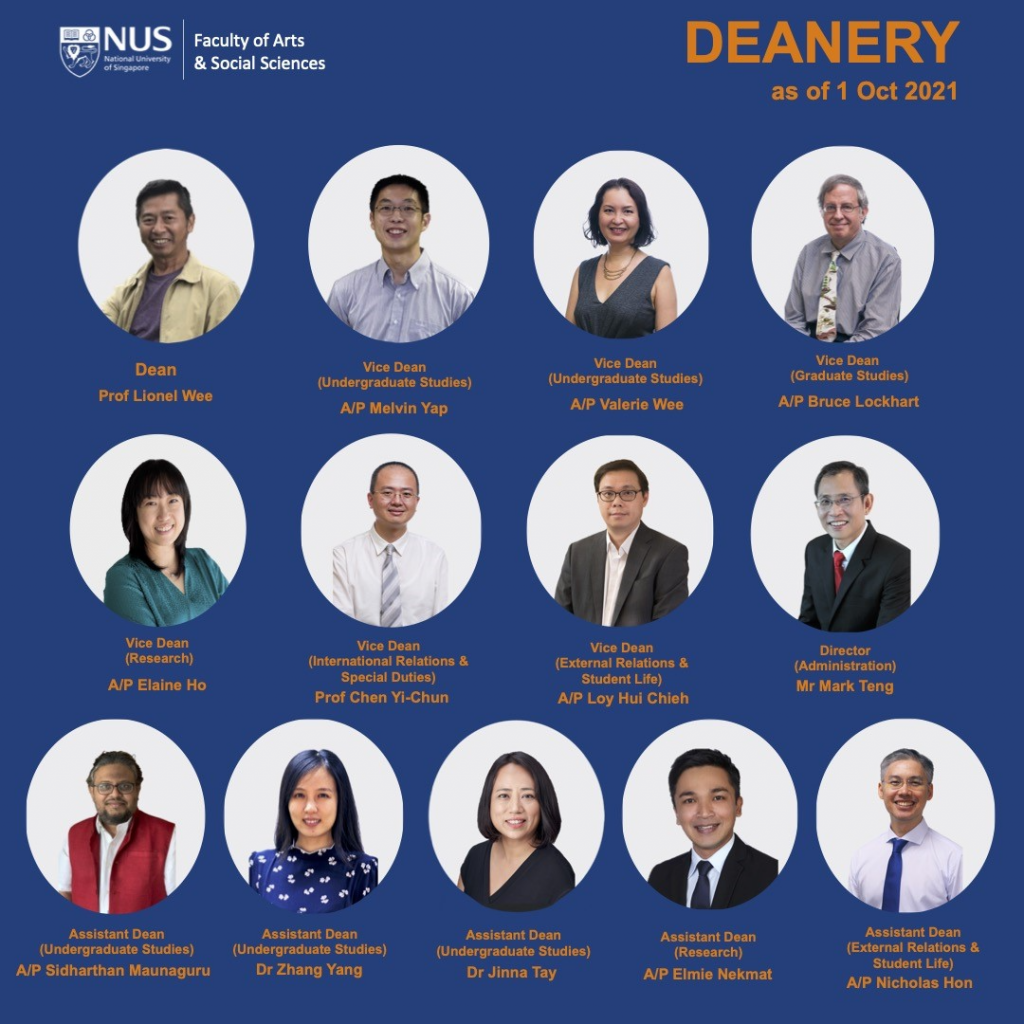
New Appointments to the Strong Leadership
Beginning their new roles with the FASS Deanery today are:
- Associate Professor Elaine Ho (Geography) as Vice Dean (Research). She was previously Assistant Dean (Research).
- Associate Professor Elmie Nekmat (Communications and New Media) as Assistant Dean (Research).
The following members of the Deanery will continue to serve in their respective positions:
- Associate Professor Melvin Yap, Vice Dean (Undergraduate Studies)
- Associate Professor Valerie Wee, Vice Dean (Undergraduate Studies)
- Associate Professor Bruce Lockhart, Vice Dean (Graduate Studies)
- Professor Chen Yi-Chun, Vice Dean (International Relations and Special Duties)
- Associate Professor Loy Hui Chieh, Vice Dean (External Relations and Student Life)
- Mr Mark Teng, Director of Administration
- Associate Professor Sidharthan Maunaguru, Assistant Dean (Undergraduate Studies)
- Dr Zhang Yang, Assistant Dean (Undergraduate Studies)
- Dr Jinna Tay, Assistant Dean (Undergraduate Studies) – recently appointed to the Deanery on 1 July 2021.
- Associate Professor Nicholas Hon, Assistant Dean (External Relations and Student Life)
NUS Study Estimates Low Long-Run Discount Rates Using Singapore Condominium Transactions
IN BRIEF | 5 min read
-
Estimates of long-run discount rates, that is, the rate at which economic agents discount future cash flows and other benefits, is an essential ingredient for analyses of policies guiding climate mitigation and long-term infrastructure projects.

Climate change mitigation and other long-term infrastructure projects such as housing and public transportation networks are costly investments but they provide benefits to society for decades or even centuries in the future. By being able to conduct cost-benefit analyses accurately, policymakers determine which policies are beneficial to society over the long run.
Estimates of long-run discount rates, that is, the rate at which economic agents discount future cash flows and other benefits, is an essential ingredient for such policy analyses. A study by researchers from the National University of Singapore (NUS) found low and declining discount rates using data on Singapore condominium sales from 1995 to 2015. Using housing assets that pay benefits over very long but varying horizons, they estimated a substantial price premium of property as the ownership duration increases, concluding that market discount rates are declining to levels that are lower than estimated previously. This raises the value society places on costly policy changes and investments made today that provide benefits in the far-distant future.
Associate Professor Alberto Salvo from the Department of Economics at the NUS Faculty of Arts and Social Sciences and an author of the study, said, “There has been little research that has estimated long-run market discount rates. However, these are essential for climate-change policy analysis as well as evaluating other long-run investments such as electrifying Singapore’s public bus fleet or building a new MRT line, which typically cost a lot initially and provide benefits for many years in the future. Our study is able to estimate long-run discount rates using market prices of Singapore condominiums, given how these residential assets are one of few that have long and varying horizons – where housing is owned either for decades, centuries or in freehold.”
The results of the study were published in the Journal of Applied Econometrics.
Low long-run discount rates imply premium placed on long-run assets
The research team, which included Assoc Prof Liu Haoming from the NUS Department of Economics and Assoc Prof Eric Fesselmeyer who was formerly from the Department and now at Monmouth University, used statistical models that compared the prices paid for properties with different lease lengths – 99-year and 999-year leasehold properties, as well as freehold (perpetual) properties – to estimate the discount rate.
“People buy property today – a costly investment – because this gives them housing benefits many years into the future: and this is what the price of a home captures. The premium paid for a freehold property over a 99-year or a 999-year leasehold property tells us about how people value the future, because the utility provided by a freehold property extends beyond that of a 99-year or even a 999-year leasehold property. Less discounting of the future means you value it more,” explained Assoc Prof Liu.
Applying nonlinear panel regression analysis to condominium sales data, the team estimated discount rates that start at about 2.5 to 4 per cent per year for the first 100 years, and fall to 0.5 to 1.5 per cent per year by the fourth century. This explains why a freehold property typically sells for 15 to 20 per cent more than a 99 year leasehold property and about 3 to 5 per cent more than a 999 year leasehold property. To isolate price differentials due to differences in lease length, the team was careful to control for housing features that also drove price differences, such as the apartment’s neighbourhood, floor space, and storey.
Assoc Prof Fesselmeyer shared, “Singapore’s residential property buyers show us through their actual choices that they are surprisingly patient, that they value the future, and are willing to pay a premium for very long-run assets. It is like paying a premium out of today’s consumption to safeguard the environment in the future – and in this case, it is their housing in a safe, clean, and liveable Singapore.”
The team noted that the discount rates they inferred from their research are significantly lower than the rates typically used to evaluate public policy. Equipped with lower discount rates that attach more value to protecting its future, society around the world can, for example, more emphatically choose renewables over environmentally dirty coal to generate electricity, clean transportation over dirty diesel to power urban trains and buses, or investment in carbon sequestration over current consumption.
Assoc Prof Salvo observed, “Our finding of discount rates declining to 0.5 to 1.5 per cent per year implies greater value for public investments made today that provide returns to society many years in the future. This is important because using a constant discount rate of say 4 per cent yearly means that benefits realised in just a few decades from now are rendered worthless in today’s dollars in a cost-benefit calculation, incorrectly undervaluing the benefits of slowing climate change or investing in long-term infrastructure.”
The team noted that as lower and declining discount rates imply higher carbon prices – the so-called ‘social cost of carbon’ – this translates into the notion that governments should act in concert globally to raise carbon prices substantially, for the benefit of future generations.
The researchers hope that these findings can guide policymakers in the use of cost-benefit analysis, especially to appropriately value costly climate-change mitigation policies. To take the project further, they are exploring the collection of residential market data from more recent years and in different jurisdictions such as the United Kingdom which has a similar ownership lease structure to Singapore’s – as there may be interesting cultural and demographic differences in how the future is discounted in favour of the present.
This story first appeared on NUSnews on 6 September 2021.
New NUS Dean of Arts and Social Sciences Appointed
IN BRIEF | 5 min read
-
Professor Lionel Wee will be appointed the new dean of the NUS Faculty of Arts and Social Sciences (FASS) and co-dean of the College of Humanities and Sciences from 1 October 2021.
-
Prof Goh, who has served as the Dean since 2017, will be taking a leave of absence from the University, but will continue to contribute in the Singapore education sector as the new Provost at the Singapore University of Social Sciences from 1 October 2021.
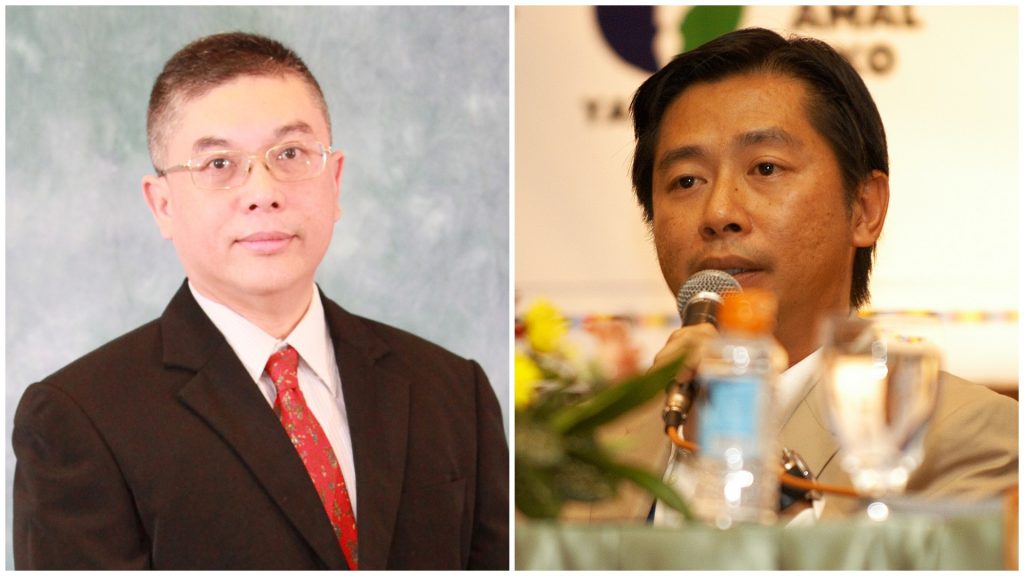
The University today announced the appointment of Professor Lionel Wee as the new Dean of its Faculty of Arts and Social Sciences (FASS) and Co-Dean of the College of Humanities and Sciences. Prof Wee will take over the helm from Prof Robbie Goh as the Faculty’s 18th Dean from 1 October 2021.
Currently FASS Vice Dean of Research and Professor of Linguistics in the Department of English Language and Literature, Prof Wee was appointed Provost’s Chair Professor in July 2017 for his outstanding scholarly achievements.
After graduating from NUS in 1988 with a Bachelor of Arts (First Class Honours) degree majoring in English Language and Sociology, Prof Wee embarked on an academic career, joining the University as a Teaching Assistant with the Department of English Language and Literature. He was awarded the NUS Overseas Graduate Scholarship where he pursued his PhD in Linguistics at the University of California, Berkeley. Prof Wee was appointed as a Lecturer upon his return to Singapore in 1995, and rose the ranks to full Professorship in 2012.
“NUS is pleased that after a rigorous global search, Prof Lionel Wee has been selected to be the next Dean. He is passionate about high quality education and research, and has an excellent understanding of FASS and the University, having served in numerous leadership roles at the department, faculty and university-levels. I am confident that he will bring the Faculty to new heights of international excellence,” said NUS President Professor Tan Eng Chye.
Besides serving as Vice Dean of Research at FASS from 2014 to present, Prof Wee was also the Head of the Department of English Language and Literature from 2010 to 2014. He had also contributed on various committees such as Chair of the FASS Faculty Promotion & Tenure Committee II, Chair of the University Mid-Term Advisory Report Committee, and Member of the University Promotion and Tenure Committee. In recognition of his dedicated service and contributions to NUS and education in Singapore, Prof Wee was awarded the National Day Awards Public Administration Medal (Bronze) in 2020 and the Long Service Medal in 2018.
“I am excited and honoured to be given this opportunity to lead my alma mater as its next Dean. Having spent more than three decades at FASS, both as a student and a faculty member, I have experienced firsthand the selfless commitment of my colleagues and impressive insights our students bring to the study of the arts, humanities and social sciences. I am confident that together, we can continue to make significant contributions to society while enhancing our Faculty’s standing as one of the leading humanities and social sciences faculties in the world,” said Prof Wee.
Besides his passion in linguistics, Prof Wee feels very strongly about animal welfare and is also very much an avid city traveller, although the pandemic has put quite a damper on travel in the past year or so. He also enjoys the cafes, a habit which he picked up during his time as a graduate student in Berkeley. Students and colleagues at FASS may have many a times seen Prof Wee deep in thought at the cafes across the NUS campus. He is very much focused in developing a particular idea or argument once he is seated down and would need to walk around before he can move on to another new idea.
Prof Wee has published widely in international and local journals, and also sits on the editorial boards of a number of academic journals and publications, including Applied Linguistics, English World-Wide, Multilingual Margins, The Journal of Asian Linguistic Anthropology, the “Cambridge Elements: World Englishes” book series, and the “Multilingualisms and Diversities in Education” book series. He is a well-respected scholar with research interests in the areas of language policy (especially in Southeast Asia), the grammar of Singapore English, metaphorical discourse, and general issues in sociolinguistics and pragmatics.
Prof Goh, who has served as the Dean since 2017, will be taking a leave of absence from the University. However, he will continue to contribute in the Singapore education sector as the new Provost at the Singapore University of Social Sciences from 1 October 2021.
Prof Goh said, “It has been a privilege and honour to serve as Dean of one of Singapore’s largest and most historied Faculties. I am grateful to my talented colleagues for all their hard work. I believe that together, we have brought the Faculty to new heights of excellence in teaching, research and service. I look forward to the work of creating new programmes and nurturing talent in my next role as Provost of the Singapore University of Social Sciences, and hope that I will also be able to forge new ties and collaborations between the two universities."
Having spent more than three decades at the University, Prof Goh has taken on numerous administrative and leadership roles outside of the Faculty. He was Deputy Director of the NUS Centre For the Arts from 1996 to 1999, and Deputy Director of the Asia Research Institute from 2008 to 2010.
“On behalf of the University, I would like to express my heartfelt appreciation to Professor Robbie Goh for his dedication and strong stewardship in leading NUS FASS. Under his visionary leadership, the Faculty has made significant contributions to the advancement of education and research in the humanities and social sciences. During his leadership, the FASS 2.0 Industry Tracks programme was started to enhance the employability of its graduates. New multidisciplinary initiatives such as the Philosophy, Politics & Economics programme were also established. The Faculty has also expanded collaborations with industry and further strengthened its high international reputation,” added Prof Tan.
This story first appeared on NUSnews on 13 August 2021. The full press release is here, and Professor Lionel Wee's biography is here.
From Careers for a Lifetime, to a Lifetime of Careers
IN BRIEF | 5 min read
-
The top skills desired by employers will include critical thinking, analysis, problem-solving and self-management skills such as active learning, resilience, stress tolerance and flexibility.
What does the future of work look like? In this evolving world, new occupations and roles which did not previously exist continue to emerge, while certain traditional skills and jobs continue to become obsolete.
The World Economic Forum’s (WEF) The Future of Jobs Report 2020 (October 2020) highlighted a few key trends.
First, technological adoption of cloud computing, Big Data and e-commerce in many businesses will accelerate the transformation of jobs, skills and entire industry value chains. 85 million jobs are expected to be displaced by a shift in division of labour from humans to machines by 2025, while 97 million new roles may emerge.
Second, online learning and training boomed during the pandemic. The shift was a watershed moment, and there is no turning back for many industries. The pandemic also brought into sharper focus the importance of lifelong learning, with more employees upskilling and reskilling to stay relevant in the volatile job market. More workers are now pursuing personal and professional development, especially in digital skills.
Last but not least, the top skills desired by employers will include critical thinking, analysis, problem-solving and self-management skills such as active learning, resilience, stress tolerance and flexibility.

What skills do employers seek?
Many of these in-demand skills highlighted in WEF’s report corroborate CFG’s Industry Insights Survey (2020). Drawing on insights from career events, industry surveys and engagements, CFG’s survey cited a similar list of soft skills that are becoming increasingly imperative at the workplace.
These are abilities learnt through life experiences that are impervious to change, and relevant across all professions and workplaces. They are attributes we take with us when we embark on job pathways in the New Normal - which are shifting from one defined career over a lifetime, to a series of dynamic and rapidly changing careers.
Our survey clusters these abilities into two main categories: Personal Qualities and Workplace Traits.
Personal qualities
Many employers are looking for individual cognitive abilities such as problem-solving, learning agility and pattern-recognition. They are also seeking graduates who are equipped with design and computational thinking, as well as proficiency in quantitative analysis.
They want graduates who are able to look at problems from different perspectives, to solve complex problems in real-world environments. For example, can a customer service issue be resolved with a combination of user interface design changes, IT infrastructure automation and manpower staffing? What are consumer consumption patterns and behaviours telling us?
Employers also seek character traits such as curiosity, resilience, empathy, proactivity, leadership and adaptability. These traits are predictors of future potential, and potentially determine career longevity and progression. For example, are you curious to learn what other teams or functions are doing beyond your job scope and discover potential synergies? Are you adaptable to changes in your project scope, and possess a “can-do” attitude in the face of obstacles?
Workplace traits
Besides personal qualities, employers are also looking for graduates who possess certain desirable workplace traits. These include good communication and presentation skills, cultural sensitivity and a global mindset. Graduates with business acumen, who are able to influence and negotiate, and are competent in managing different teams and projects, are much sought after.
These attributes mirror the realities of the modern workplace, where teams and projects are becoming more diverse, cross-functional, cross-cultural and business-driven. For example, can you work with a diverse team of colleagues towards achieving a common objective? Can you visualise your organisation’s business potential in an overseas market or a new customer segment?
The call to CHS students
In CHS, you will acquire interdisciplinary knowledge and skills by learning how to draw connections, links and insights across diverse disciplines. It is this important foundation of interdisciplinarity that will better prepare our students to become problem-solvers in an uncertain world beyond the pandemic.
Even as the pandemic has accelerated digital transformation, data is now the new asset that enables businesses to enhance efficiency and augment the ability of their teams to deliver greater value. CHS will focus on competencies like data literacy and design thinking, skills that are now in high demand by industries seeking to unlock value from Big Data.
Beyond academics, internships are one of the best ways to hone workplace experience. When you are on vacation, aim for at least two (if not more) internships, preferably one with an overseas employer. Immerse yourself in co-curricular activities, which provide hands-on opportunities to gain skills such as leadership, teamwork and project management. These experiences in your resume and portfolio will place you in a better stead with employers.

Enhancing employability, preparing for careers
CHS students will have a dedicated Career Advisor, who will guide you through the process of developing a personal career plan. You will be pre-assigned a career preparation module, Career Compass, closely following CFG’s four-year Career Readiness Roadmap which provides a formal framework for your career planning during your undergraduate journey.
You will be enrolled in Career Catalyst, a foundational freshmen module that identifies your core strengths and enhances your profile towards securing an internship. As you progress to Years Two/Three and your final year, you can also sign up for our Career Booster workshops or Career Advancement Webinar Series (CAWS).
Article contributed by the Centre for Future-ready Graduates (Ms Joan Tay, Director and Career Advisors Mr Ryan Ang and Mr Ng Buck Seng)
This story first appeared on CHS on 29 July 2021.
NUS CHS Case Competition: Driving EV Adoption in Singapore
IN BRIEF | 1 min read
- The just-released problem statement for NUS CHS' inaugural Case Competition – Encouraging electric vehicle (EV) ownership in Singapore – is an important real-world topic of especial relevance to us all, as the nation is driving toward a future of electric mobility that is essential to the Singapore Green Plan 2030.

Are you interested in translating your innovations to reality by applying interdisciplinary knowledge and skills?This is now possible with the inaugural College of Humanities and Sciences (CHS) Case Competition, launched on 26 July.
The competition is specially designed for NUS students, and enables participants to synthesise ideas and perspectives from different disciplines to solve complex, real-world challenges.
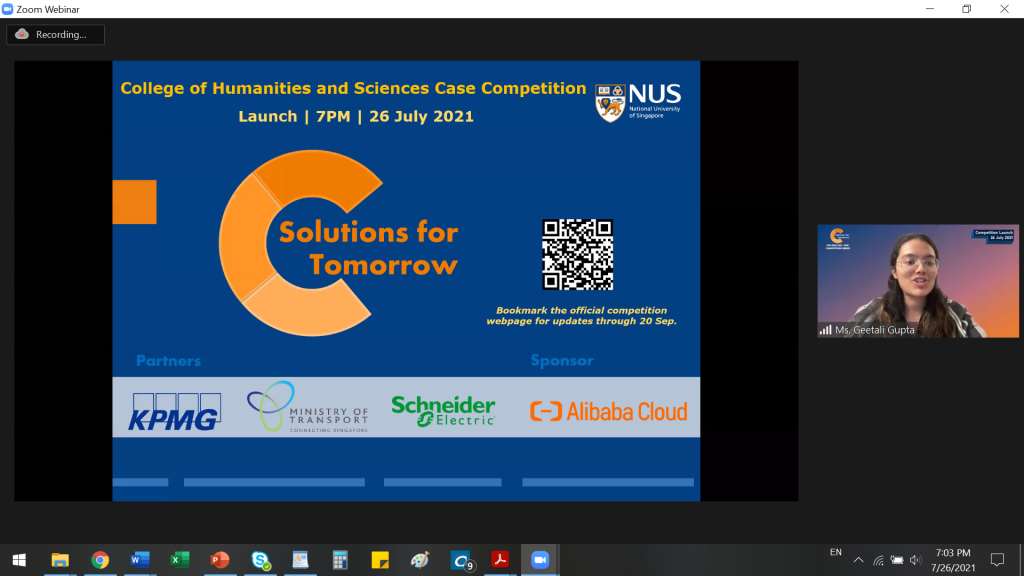
The competition themes, “Sustainability” and “Technology and Us”, are highly topical today. The problem statement - Encouraging electric vehicle (EV) ownership in Singapore - is an important real-world topic, even as Singapore ushers in a future of electric mobility as a key piece of the puzzle in the Singapore Green Plan 2030.
At the virtual launch, our competition partners - the Ministry of Transport, KPMG and Schneider Electric - discussed plans by the Singapore government to usher in the future of EV, Schneider Electric’s vision of a 100% electric mobility future with net-zero carbon emissions and upcoming trends in mobility solutions identified by the advisory arm of KPMG.
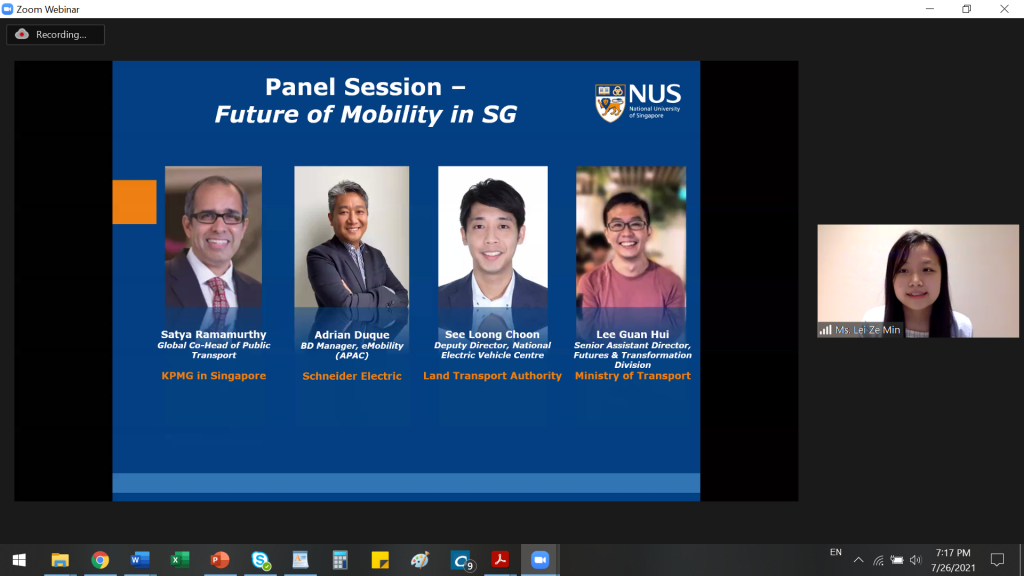
Participants will have the opportunity to attend mid-term workshops in mid-August, which provide important domain knowledge, including engineering and design, and communications skills.
The project submissions will be judged in the final round of the competition on 20 September by representatives from our competition partners. They will also be sharing their EV domain expertise with the participating teams throughout the competition.
The launch was attended by more than 100 participating teams (close to 200 individual attendees) from across NUS.
Find out more about the competition here and read the problem statement here.
Strong Interest in Interdisciplinary Learning With High Acceptance Rates
IN BRIEF | 5 min read
-
NUS President Professor Tan Eng Chye discusses the University’s recent interdisciplinary initiatives – the setting up of the College of Humanities and Sciences (CHS) and the new Common Curriculum for the Faculty of Engineering and the School of Design and Environment – and the importance of lifelong learning in ensuring that students are adaptable and future-ready.
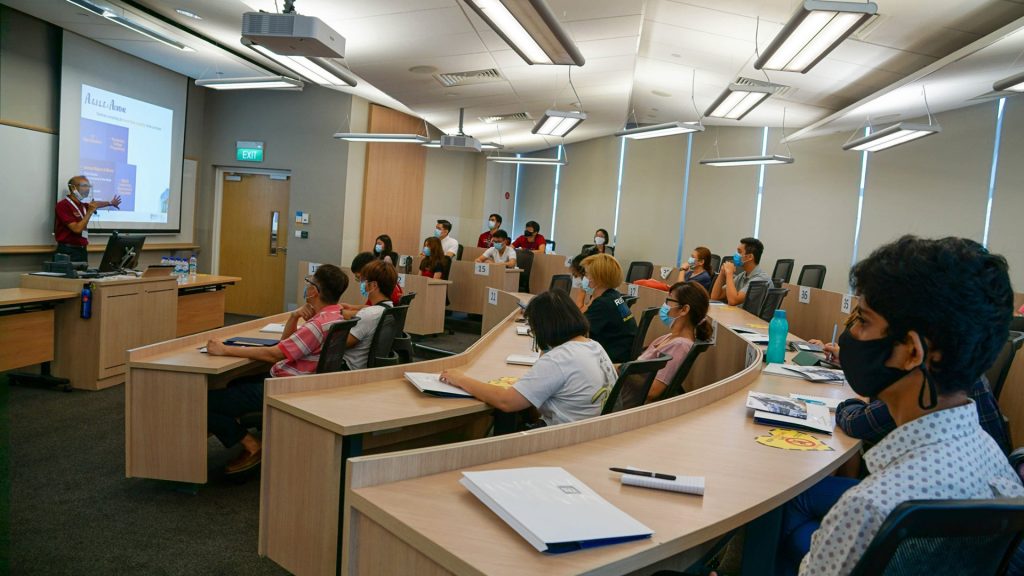
In today’s volatile, uncertain, complex and ambiguous (VUCA) world, staying stagnant is never an option. Now, more than ever, universities have to prepare students to thrive in a fast-changing and unpredictable post-COVID reality through an interdisciplinary education.
Just ask the incoming batch of freshmen, who have given a thumbs-up to the University’s recent interdisciplinary initiatives – specifically, the setting up of the College of Humanities and Sciences (CHS), and the new Common Curriculum for the Faculty of Engineering and the School of Design and Environment.
During the admissions exercise this year, 71 per cent of those who had applied to these programmes as the first choice accepted the offer. Among the incoming batch of freshmen, over 4,000 will be exposed to an interdisciplinary education. By August 2022, NUS hopes to push this number to more than 6,000.
“We are quite heartened that the applicants have responded very well,” said NUS President Professor Tan Eng Chye, as he spoke on the new changes in NUS’ curriculum. “They are receptive to the flexibility that they will have. No more are you confined to one discipline.”
Prof Tan noted that the world faces many wicked problems that cannot be solved with only one discipline.
He cited COVID-19 as a wicked problem, requiring more than just medical sciences to solve. “Even with the right medical knowledge, many countries had difficulties handling COVID-19 and its spread,” he noted.
The pandemic, in fact, prompted NUS to ramp up efforts in remodelling its educational philosophy and pedagogies to prepare its graduates for this dynamic reality.
At the centre of these reforms is the push for lifelong learning, as well as the shift towards interdisciplinary education to ensure students are adaptable and future-ready.
A lifetime of learning
While universities used to prepare their graduates for a single job, this approach is fast becoming obsolete. Today, graduates will change jobs at least 10 times over the course of their lifetime.
In line with this trend, NUS has been future-proofing its education to prepare students for lifelong learning.
“A student’s enrolment is valid for 20 years from the point they enter the university,” Prof Tan explained. “We want to remove the conception that university is only for four years. You can always come back to (NUS) to learn new skills and knowledge.”
For instance, the NUS Lifelong Learners (L3) programme upskills alumni through a wide array of skill-based, industry-relevant courses, carefully tailored to focus on emerging skills identified under SkillsFuture such as data analytics or digital literacy.
The process of returning to NUS for further studies is also made seamless. If a student does not complete a second major or degree in their initial four years, they are welcome to return to the university to read the necessary remaining modules even after graduation.
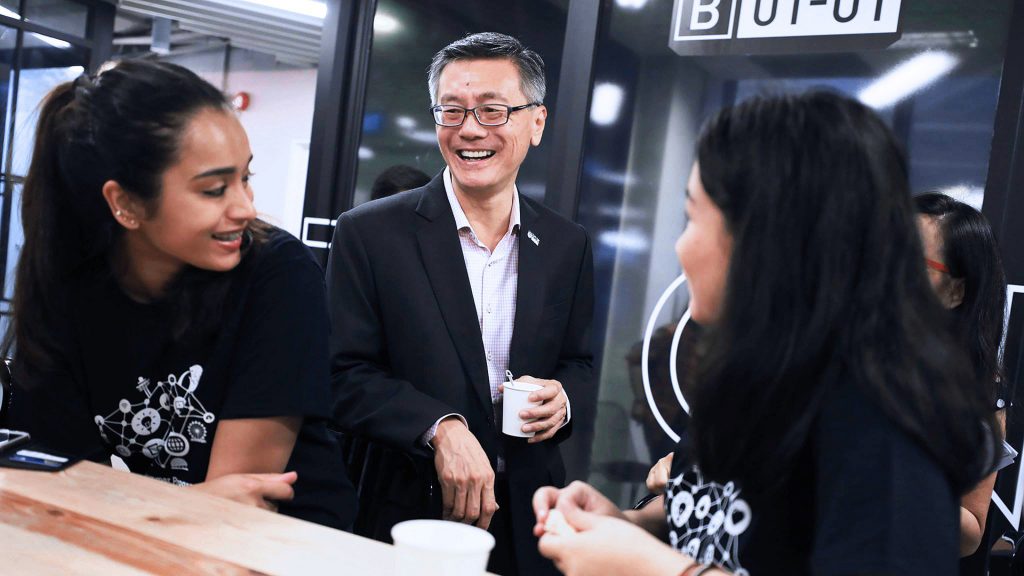
Towards interdisciplinary learning
Recognising the benefits of interdisciplinary learning, NUS is rolling this out to more students.
This started with the launch of CHS, which brings together the Faculty of Arts and Social Sciences and the Faculty of Science.
In the upcoming semester, CHS will admit 2,200 students and they will take a new Common Curriculum within their first three semesters – consisting of integrated modules with a problem-based pedagogy.
Similarly, a Common Curriculum has been introduced for the Faculty of Engineering and the School of Design and Environment to encourage knowledge transfer between the two complementary disciplines.
For instance, NUS’ very own net-zero energy building at SDE4 is a product of melding both architecture and engineering – the first of its kind in Singapore.
“The building’s beautiful architectural design alone doesn’t contribute to it being net-zero energy. What you have is a lot of deep engineering work embedded into it. It shows that architects have to work very closely with engineers in order to achieve this,” explained Prof Tan.
With interdisciplinary learning, the proportion of Unrestricted Elective modules a student can take has also been increased to up to 30 per cent, encouraging students to have two or more specialisations.
In the four faculties that now have an interdisciplinary common curriculum, this works out to more than 700 possible double major pairings, 1,700 major-minor pairings, and 100,000 major with double minor combinations.
Expanding choices for students
Ultimately, these educational innovations create greater flexibility for students to curate their own curriculum.
They will no longer have to make an immediate commitment to a single discipline. Instead, they are given time to decide on their academic calling through the common curriculum.
These efforts are central to NUS’ flagship role as a creator, integrator and propagator of knowledge.
Looking ahead, the structural barriers between faculties will further dissolve, allowing students to build even broader connections between disciplines.
“Right now, we have 70 majors and 80 minors, but we may actually have more as we go along. We start with a minor. If there’s enough interest, we push it to a second or full major. The possibilities are endless especially as we move online,” said Prof Tan.
This story first appeared on NUSnews on 26 July 2021.
Creating New Internship Opportunities: Engaging Employers to See Value in Humanities and Social Sciences
IN BRIEF | 4 min read
-
Mr Jonathan Sim, instructor from the Department of Philosophy, describes how he engaged with local employers to open internship opportunities to humanities and social sciences students who would not previously have been considered.

Humanities and social science majors are frequently misunderstood, in Singapore as in many other parts of the world. The value of their education is regularly questioned, and many employers are unaware of the value such majors can bring to the table. They prefer to hire graduates with more explicitly “practical” degrees for jobs that humanities and social sciences students could excel in.
As a result, humanities and social sciences students are not typically considered for many organisations and roles, despite offering relevant and useful skills.
So when developing an internship module, I began reaching out to organisations to create internship opportunities in such roles, to boost receptivity to hiring students from these disciplines. This enabled potential employers to better understand how students in subjects they might have previously overlooked can fill gaps in their talent pool.
Compounding the issue is that many humanities and social sciences students are unaware of the diversity of careers available to them and tend to limit themselves to roles stereotypical of their majors. There is a good reason for this. When these students apply for non-stereotypical roles, they are often turned down due to having an “impractical” major.
I regularly hear employers and people in the corporate sector lamenting the lack of creativity and critical-thinking and communication skills in their industries. These key capabilities are needed to challenge assumptions, innovate and improve processes within organisations. Employers’ lack of awareness of the value of humanities and social sciences is preventing them considering this potential talent pool.
Starting an internship module
I teach a module on data analysis and philosophical reasoning to hundreds of students each semester. With so many students under my charge, I was inspired by the idea that education is more than just about imparting knowledge. Rather, it is about facilitating growth in one’s students by providing them with opportunities for challenge and development.
As a result, I decided it would be worthwhile to experiment with an internship module where I approach employers, explain the value my students can bring to their organisation and ask them to offer temporary roles not typically filled by humanities and social sciences majors. A model designed to be mutually beneficial to both employers and students.
Here are my key lessons in how to do this:
Start by approaching contacts working in human resources (HR) and ask them to link you up with senior management or with department heads of your target companies. I initially spoke to friends in HR and some of them linked me up with HR professionals from other organisations.
Provide reassurance that you will be guiding and mentoring the students throughout the programme. My credentials as a university educator meant employers were generally open to exploring this strategic partnership.
Prepare and present a pitch clearly describing what value and skills your students can bring to the companies where you wish to secure internships. I explained how my students were excellent in data analytics, coding and problem-solving, and their training in humanities and social sciences meant they could bring unique perspectives thanks to creativity and critical thinking. Having worked with the students for one semester already, I could also vouch for their character, including attributes such as work attitude, independence and willingness to learn.
Discuss the job scope and be honest and realistic about what your students can and cannot do. I helped advise the hiring managers on my students’ capabilities, based on what I had taught them, and sometimes this meant suggesting new items in the job scope that the organisation may not have considered.
Invite students to apply for the roles available by submitting their CVs, then interview shortlisted candidates. I found interviews useful to get a better understanding of what students wanted to do and what they hoped to achieve during the internship. The application process also provided an opportunity to work with students to improve their CVs and interview skills before they spoke to employers.
Try to match students with internship roles that will best suit their personality, skills and career aspirations.
During the internships, check in on students regularly and ask them to share any challenges, so you can help them troubleshoot any issues. My role was more like an adviser pointing them to resources or giving life advice on how to handle novel social or professional situations.
Ask the students to write reflections centred on how their training in humanities and social sciences can be applied to the work they do as an intern. This helped me gauge the extent of their learning but also nudged students towards deeper reflection on their discipline to see its value and relevance in the work they did. It was very eye-opening to see concrete examples of how students found connections and applications between their studies and their work.
Benefits to organisations and students
These collaborations have proven mutually beneficial. They allow participating organisations to develop strategic partnerships with the university, helping employer branding and making it easier for them to attract talent.
At the same time, the student interns become living proof to employers that their major makes them as good as, if not better than, some students from more “practical” disciplines. The internships help inform humanities and social sciences students that they can take on roles they never thought were open to them.
We have completed one round of internships with organisations such as Henkel, a German multinational chemical and consumer goods company, and Azendian, a local AI data analytics start-up.
Students were pleased with the chance to take up roles they would not have ordinarily pursued, or been given a chance to try, in areas such as supply chain and logistics management, database management and data analytics for marketing. The internships provided profound insights on how they can apply the skills from their majors in ways that allow them to craft a niche in such roles.
The first round of placements seems to have persuaded employers to be more receptive when it comes to hiring humanities and social sciences students, as they have asked for more interns in subsequent iterations.
This is just the beginning, and there is a lot more that we can achieve in our capacity as university faculty by engaging with local organisations and employers. We can work to create more internship opportunities and help employers better understand the capabilities of our students across multiple disciplines here in Singapore and further afield.
This story first appeared on Times Higher Education on 21 June 2021.
Commencement 2021: Special Message of Congratulations to the Classes of 2020 and 2021!
IN BRIEF | 3 min watch
-
FASS Faculty and students congratulate the Classes of 2020 and 2021 and wish them all the best as they go out to change the world for the better!
“We believe in you. I believe in you. Go out there, do us proud. Make the world a better place.” — Associate Professor Loy Hui Chieh, FASS Vice Dean of External Relations and Student Life FASS, joint committee member of the NUS Philosophy, Politics, and Economics (PPE) programme, and also Faculty member of staff at the NUS Department of Philosophy.
Faculty and students talk about what life has been for them this past year, what they miss about campus life, and extend words of advice and congratulations to the graduating Classes of 2020 and 2021.
This video features Assoc Prof Loy and Dr Lohsnah Jeevanandam, Senior Lecturer, NUS Department of Psychology, as well as students from the graduating Classes of 2020 and 2021: Alvarez Brielle Clavel ('20); Somesh s/o Sailesh ('20); Douglas Ong ('20), Christina Chen (Doctoral Class of '20); Ng Qian Qian ('21); and, Lai Wei Na ('21).
Meet the Neighbours: The Seven Animals You’ll Spot in NUS
IN BRIEF | 5 min read
-
NUS is not only a second home for staff and students, but also a place for a wide range of biodiversity to call home. Mr Athanasius Koh, a management trainee with the NUS Faculty of Arts and Social Sciences (FASS) and FASS Political Science alumnus ('21) tells us about the interesting animals he has spotted around campus.
Beyond the lecture theatres, classrooms and student hangout spots, it is hard to miss the lush greenery that surrounds NUS. This has made the campus environs not only a second home for staff and students, but also a place for a wide range of biodiversity to call home.
These habitats are here to stay too. Emphasising NUS’ commitment to preserving its rich biodiversity, fighting climate change and being an environmentally responsible campus, the “Planting 10,000 Trees” initiative launched by NUS President Professor Tan Eng Chye in 2018 saw 500 mature trees planted throughout the campus, as well as 9,500 saplings nurtured in the NUS nursery. In addition, a strict policy to protect existing trees was also implemented.
Mr Athanasius Koh, a management trainee with the NUS Faculty of Arts and Social Sciences (FASS) Corporate Communications team for the past six months, and avid nature photographer, takes regular photo walks exploring these habitats. Mr Koh, who is also from the FASS Class of 2021, shares about the interesting animals he has spotted along the way.
Collared Kingfisher (Todiramphus chloris)
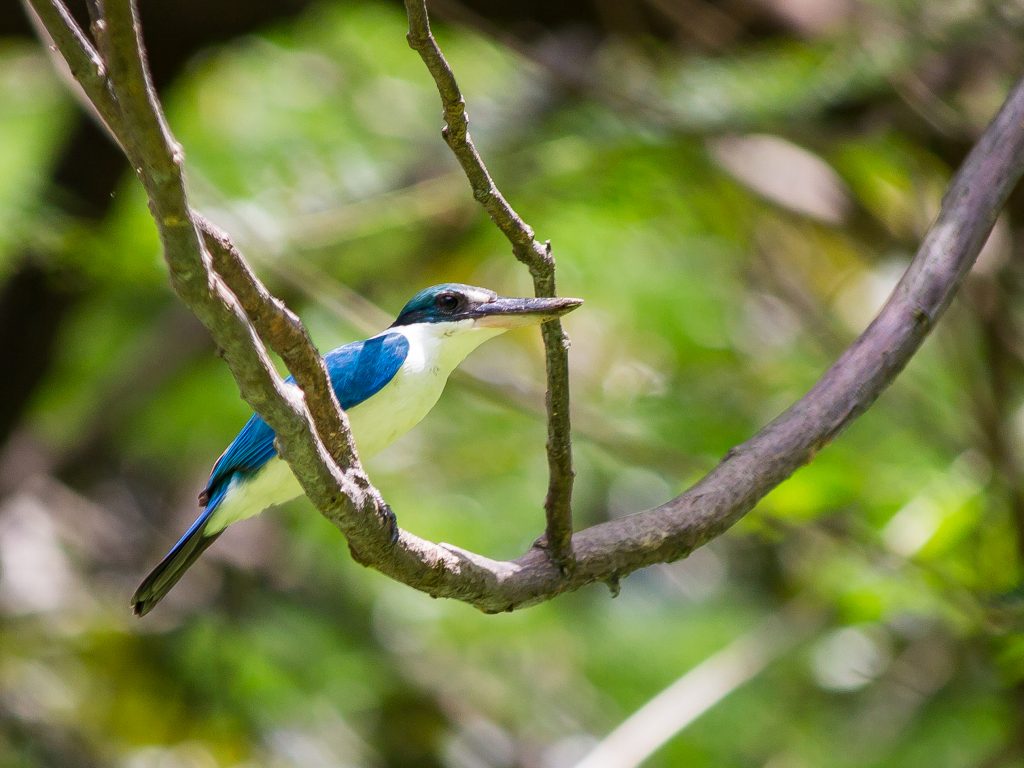 A collared kingfisher perched on a tree at AS8. (Photo: Mr Athanasius Koh)
A collared kingfisher perched on a tree at AS8. (Photo: Mr Athanasius Koh)
Dressed in beautiful blue feathers and a broad white “collar” around its neck, the collared kingfisher is a vocal bird spotted about campus with its series of harsh “kee-kee” notes, described by some as a maniacal laugh.
The collared kingfisher has also been quite the icon in Singapore’s history, gracing not only stamps but even the now decommissioned $10 note as part of The Bird Series Currency Notes from 1976 to 1984.
Look out for the collared kingfisher’s outstanding blue plumage as it rests atop trees and lamp posts. This sharply dressed celebrity is an easy spot around FASS and NUS Faculty of Engineering.
Red Junglefowl (Gallus gallus)
 Male red junglefowls proudly flaunt their dark green tail feathers and black primary feathers. (Photo: Mr Athanasius Koh)
Male red junglefowls proudly flaunt their dark green tail feathers and black primary feathers. (Photo: Mr Athanasius Koh)
Even if you have never personally caught sight of the resident FASS red junglefowl, you are more than likely to have heard its signature “cock-a-doodle-doo” around the faculty. Often confused for the domestic chicken, the red junglefowl is in fact its wild ancestor.
According to a study led by NUS ornithologist Associate Professor Frank Rheindt, the red junglefowl can be quite easily distinguished from the domestic chicken. Male red junglefowls proudly flaunt their dark green tail feathers and black primary feathers while females have distinguishing grey legs and sport black primary feathers.
While it remains a mystery why it crosses the road, the red junglefowl and its loud presence has certainly captured the attention of students and staff alike.
Plantain Squirrel (Callosciurus notatus)
 A plantain squirrel resting on a tree behind AS4. (Photo: Mr Athanasius Koh)
A plantain squirrel resting on a tree behind AS4. (Photo: Mr Athanasius Koh)
Scurrying and leaping from tree to tree, the plantain squirrel is an adorable sight if you are lucky to observe one at rest or enjoying its meal. This active animal is one of the most common mammals in Singapore and can be identified by distinctive black and white stripes on the sides of its body and its long bushy tail.
These physical features might have you thinking what a beautiful squirrel it is, and you are not alone! In fact, Callosciurus, the plantain squirrel’s taxonomic group, translates to “beautiful squirrel”.
Blink and you just might miss this nimble creature, but the plantain squirrel can be commonly found on the trees around NUS such as at the NUS Faculty of Science. Listen out for the rustling of leaves and you just might come face-to-face with this lovable rodent.
Rose-Ringed Parakeet (Psittacula krameri)
 A rose-ringed parakeet perches on a branch after breakfast along the AS6-AS8 walkway. (Photo: Mr Athanasius Koh)
A rose-ringed parakeet perches on a branch after breakfast along the AS6-AS8 walkway. (Photo: Mr Athanasius Koh)
Often moving in flocks and squawking in unison, the rose-ringed parakeet is a loud presence in NUS. Sporting a bright green plumage, orange beak and blue-tipped tail, males also have an added pink collar around their neck in their third year.
The rose-ringed parakeet was introduced to our green spaces as escaped pets. Native to the Indian subcontinent and northern Southeast Asia, it is a resilient bird that has thrived even in locations as far as Europe!
A bird that you might hear before you see, the rose-ringed parakeet has been spotted on sunny mornings at FASS’ Lovers’ Park and along the walkway between Blocks AS6 and AS8 grabbing its breakfast.
Yellow-vented Bulbul (Pycnonotus goiavier)
 The Yellow-vented Bulbul is easily distinguishable from its black eye-mask, olive-brown back and yellow undertail (Photo: Mr Athanasius Koh)
The Yellow-vented Bulbul is easily distinguishable from its black eye-mask, olive-brown back and yellow undertail (Photo: Mr Athanasius Koh)
One of the most common birds in Singapore’s many green spaces besides the mynah, the yellow-vented bulbul is an easy spot with its black eye-mask, olive-brown back and wings and most strikingly, yellow undertail.
An unfussy fellow, the yellow-vented bulbul has been observed to feed on a variety of small fruits and insects. In addition, it can sometimes be seen carrying strips of man-made waste like plastic bags and tissue paper to be used as nesting material. You might have heard its distinct chirps before, without knowing that it was the yellow-vented bulbul, but now you can keep an eye out for them too! Spot them in shrubs and trees around campus, such as the patch of greenery right outside NUS Press at Block AS3.
Changeable Lizard (Calotes versicolor)
 Adult male changeable lizards develop an orange-coloured head and black patches over their cheeks during the mating season (Photo: Mr Athanasius Koh)
Adult male changeable lizards develop an orange-coloured head and black patches over their cheeks during the mating season (Photo: Mr Athanasius Koh)
Often mistaken for the chameleon, the changeable lizard definitely is not one at all, but that does not stop it from changing its colours when it needs to! Usually brownish to greenish yellow with faint stripes along its body, adult males develop an orange-coloured head and black patches over their cheeks during the mating season.
As common as this rapid reptile is, you might be surprised to know that it is not native to Singapore. It is believed that it was accidentally introduced in the 1980s and has since populated in numbers, aggressively displacing the native green crested lizard (Bronchocela cristatella).
While the changeable lizard is somewhat adept at camouflaging, its timid nature means that you are more likely to find it scurrying away the moment there is a slightest disturbance, rustling up the grass. They can be seen all around campus such as at the FASS Fragrant Plant Garden or outside The Deck.
Oriental Pied Hornbill (Anthracoceros albirostris)
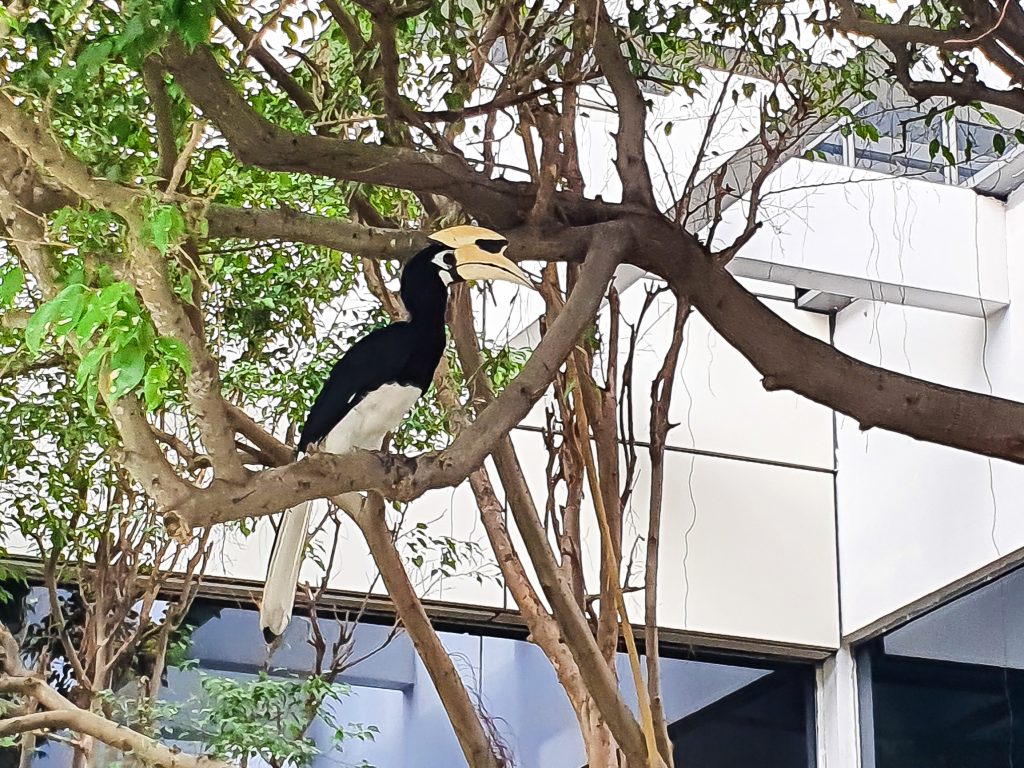 An oriental pied hornbill perches on a tree outside of AS7, Shaw Foundation Building. (Photo: Mr Athanasius Koh)
An oriental pied hornbill perches on a tree outside of AS7, Shaw Foundation Building. (Photo: Mr Athanasius Koh)
The oriental pied hornbill has certainly made an impactful comeback to Singapore’s shores. Once thought to be locally extinct, the large bird can be identified by its casque atop its beak as well as its black and white plumage.
Along with other “celebrity wildlife” like the otters in Singapore, the oriental pied hornbills’ return to the mainland can be largely attributed to conservation efforts by the National Parks Board, Wildlife Reserves Singapore and the local research community. These efforts include providing sufficient mature trees for hornbills that favour nesting in tree holes.
Spotted across a number of locations in Singapore, NUS is no exception. It has been spotted in University Town and around FASS Block AS1 as well as the trees outside AS7, Shaw Foundation Building.
Now that you have met some of the interesting wildlife that have called NUS their home, be sure to keep an eye out for our neighbours in nature between classes! Do appreciate them from a safe distance and refrain from feeding them.
This story first appeared on NUSnews on 17 June 2021.
NUS CHS Case Competition: Solutions for Tomorrow
IN BRIEF | 1 min read
- The NUS College of Humanities and Sciences has launched the Case Competition Series. Register your interest now!
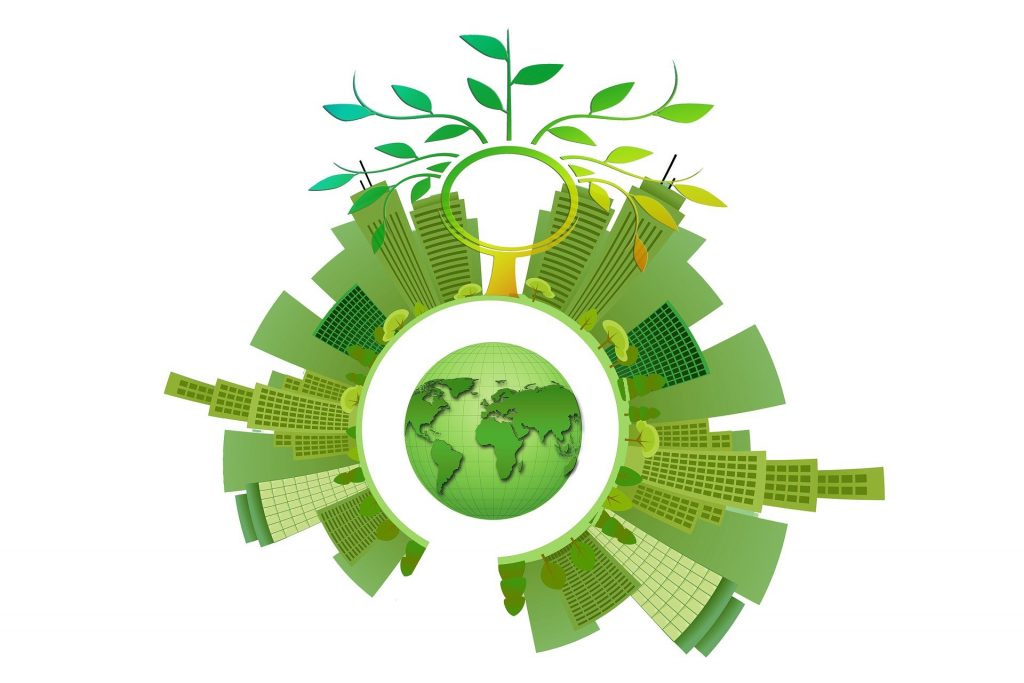 The NUS College of Humanities and Sciences has launched the Case Competition Series, which seeks to encourage undergraduate and post graduate students to apply their curriculum learning to tackle complex real-world challenges that require interdisciplinary approaches to their solution. The students, who are expected to work in teams comprising members from across different disciplines, will be presented with a complex problem (to be shared at the start of the competition in late July), and given four weeks to build their cases in consultation with participating industry and Faculty advisers before their presentation for the first round of judging. Scan the QR code below or just click here to register your interest as team leader for this competition now. More details will be released to participants next month.
The NUS College of Humanities and Sciences has launched the Case Competition Series, which seeks to encourage undergraduate and post graduate students to apply their curriculum learning to tackle complex real-world challenges that require interdisciplinary approaches to their solution. The students, who are expected to work in teams comprising members from across different disciplines, will be presented with a complex problem (to be shared at the start of the competition in late July), and given four weeks to build their cases in consultation with participating industry and Faculty advisers before their presentation for the first round of judging. Scan the QR code below or just click here to register your interest as team leader for this competition now. More details will be released to participants next month.
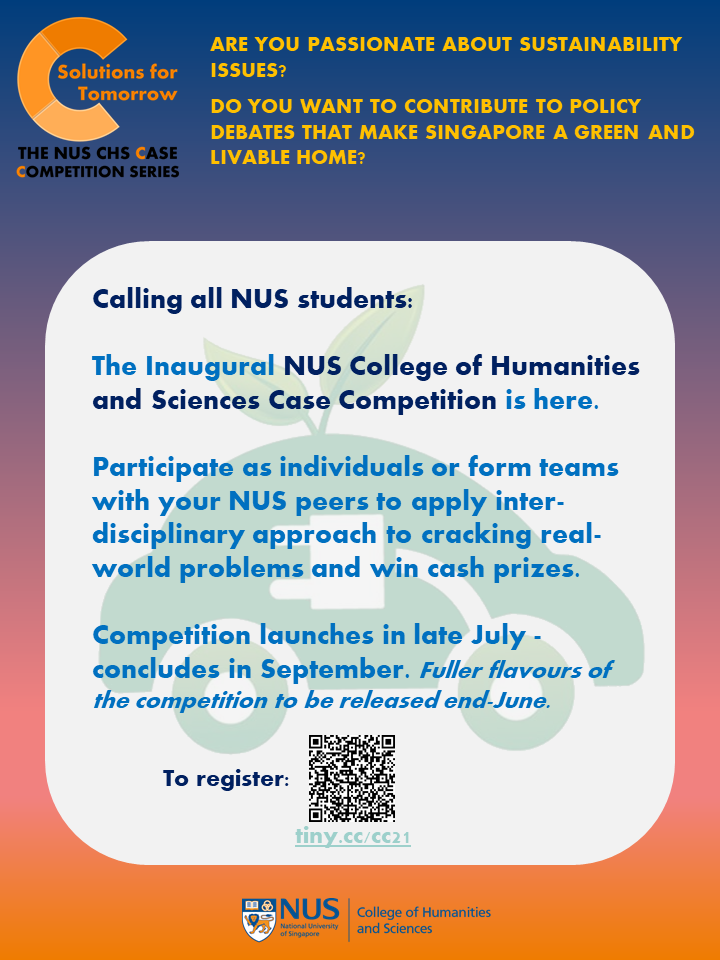
Honouring five outstanding alumni from Arts and Social Sciences
IN BRIEF | 3 min read
- Five exceptional NUS Faculty of Arts and Social Sciences (FASS) alumni from diverse backgrounds were lauded at the annual FASS Distinguished Arts and Social Sciences Alumni Awards 2020 in a simple presentation ceremony on 30 April at Swissotel The Stamford.
 (From left to right): FASS alumni Mr Yatiman Yusof, Mr Niam Chiang Meng, Ms Lim Sau Hoong, Mr Ravi Menon and Dr Liang Wern Fook have made singular contributions to the areas of the arts, education, media, finance, policy and community development.
(From left to right): FASS alumni Mr Yatiman Yusof, Mr Niam Chiang Meng, Ms Lim Sau Hoong, Mr Ravi Menon and Dr Liang Wern Fook have made singular contributions to the areas of the arts, education, media, finance, policy and community development.
Five exceptional NUS Faculty of Arts and Social Sciences (FASS) alumni from diverse backgrounds were lauded at the annual FASS Distinguished Arts and Social Sciences Alumni Awards 2020 in a simple presentation ceremony on 30 April at Swissotel The Stamford.
All have left their distinct mark in the wide-ranging fields that they serve. They are namely:
- Mr Yatiman Yusof (Geography and Malay Studies, ’72), Non-Resident High Commissioner of Singapore to Kenya
- Mr Niam Chiang Meng (Economics, ’83), Chairman of the Maritime and Port Authority of Singapore (MPA)
- Ms Lim Sau Hoong (Chinese Studies, ’83), Founder, Former CEO and Executive Creative Director of advertising agency 10AM Communications
- Mr Ravi Menon (Economics, ’87), Managing Director of the Monetary Authority of Singapore (MAS)
- Dr Liang Wern Fook (Chinese Studies, ’89 and Master of Arts, ’92), Writer, musician and educator
Congratulating the award recipients, FASS Dean Professor Robbie Goh said, “Ms Lim Sau Hoong, Dr Liang Wern Fook, Mr Ravi Menon, Mr Niam Chiang Meng and Mr Yatiman Yusof, have made singular contributions to the arts, education, media, finance, policy and community development. Not only do their wide-ranging achievements bring pride to the FASS family, but I believe that it also attests to the disciplinary range, intellectual curiosity and critical thinking that are the hallmarks of the FASS educational experience.”
This disciplinary diversity, Prof Goh elaborated, would soon be enhanced by FASS’ partnership with the NUS Faculty of Science in the NUS College of Humanities and Sciences (CHS) where students would be able to choose any major that is offered by both faculties. He added that this would be a major boost to FASS students’ educational experience as “the CHS common curriculum will prepare students for a disruptive world – by giving them a compulsory grounding in essential skills such as writing and communication, data literacy, digital literacy, design thinking and AI.”
Our alumni and their contributions
 Present at the ceremony were (clockwise from top left): FASS Dean Prof Robbie Goh; Mr Menon; Dr Liang; Mr Bernard Toh, Director of NUS Alumni Relations; Mr Niam; Ms Lim; Mr Yatiman; and NUS President Prof Tan Eng Chye.
Present at the ceremony were (clockwise from top left): FASS Dean Prof Robbie Goh; Mr Menon; Dr Liang; Mr Bernard Toh, Director of NUS Alumni Relations; Mr Niam; Ms Lim; Mr Yatiman; and NUS President Prof Tan Eng Chye.
A teacher and a journalist early on in his career, Mr Yatiman served key government appointments including as a Member of Parliament and Senior Parliamentary Secretary of the Ministry of Foreign Affairs and the then-Ministry of Information and the Arts, before his retirement in 2006. In addition to being Singapore’s non-resident envoy to Kenya, Mr Yatiman is a Board Member of the Singapore Press Holdings Foundation and the Chairman of the Malay Language Council of Advisors.
Contributing extensively to the public sector too was Mr Niam who served in the Ministries of Finance, Trade and Industry, Health, Law, and Information, Communications and the Arts – including Permanent Secretary appointments in several of these Ministries. He also served at the National Population and Talent Division, and the National Climate Change Secretariat. Aside from his current MPA chairmanship, Mr Niam is also the Chairman of Gardens by the Bay Pte Ltd and MediaCorp Pte Ltd.
A heavyweight in the media, marketing, and advertising industry, Ms Lim’s creative leadership of 10AM Communications has garnered over 300 prestigious global awards including The One Show, the Clio Awards, and the Communication Arts. Identified for her unique creative talent, Ms Lim was Visual Advisor to the Planning Committee for the 2008 Beijing Olympics’ Opening Ceremony and headed the Shanghai World Expo 2010 Singapore Pavilion Advisory Panel. In 2007, Ms Lim was awarded the President’s Design Award and was named Designer of The Year for her extensive contributions to media, marketing and culture in Singapore.
Prior to his appointment at MAS, Mr Menon served as Permanent Secretary at the Ministry of Trade and Industry, and Deputy Secretary at the Ministry of Finance. A recipient of the Singapore Government’s Meritorious Service Medal and Public Administration (Gold) Medal, he has served on boards in the public, private, and people sectors. He is currently Chairman of the Institute of Banking and Finance, and serves on the Board of Trustees of the Singapore Indian Development Association.
A singer-songwriter, poet and academic in Chinese literature and language, Dr Liang is a respected cultural figure and pioneer of Xinyao – a movement of locally composed Mandarin pop songs from the 1980s. To date, Dr Liang is the only artist who has received the National Arts Council’s Young Artist Award (Literature) and the prestigious Cultural Medallion (Music) across different art genres. He was also honoured recently with the Singapore Chinese Cultural Contribution Award for his outstanding contribution to the promotion, enrichment and development of Chinese Singaporean culture. His canon of work includes over 15 publications of literature, more than 200 songs, and two Mandarin musicals – a number of his most important works were written and composed during his university days.
On receiving the awards
Also present at the event was NUS President Professor Tan Eng Chye who presented the awards to the five alumni. Invited guests were also treated to videos of the award recipients who shared about their university days in FASS and their career highlights.
Recalling the moment he received news of the award, Mr Yatiman humbly shared, “To be frank, I’m quite surprised when I was told about it. And I thought there are hundreds, if not thousands of people who are more suitable to receive this award. I’m just a small worker in the community, not doing much in my lifetime. I think there are many others. So, for those who’ve been working hard for the good of the community, I take this award as recognition of their effort too.”
Mr Niam recalled some of his best memories were during university days where he learnt a lot about networking and life skills. It was also where he found his life partner. He said, “It is a privilege to be given this award. I would like to thank NUS and the organising committee for bestowing this honour on me and the other recipients…it means a great deal.”
 Taking the form of a rising star, the alumni award represents the inspiration these individuals bring to society through their brilliant contributions towards the Faculty, University and Singapore.
Taking the form of a rising star, the alumni award represents the inspiration these individuals bring to society through their brilliant contributions towards the Faculty, University and Singapore.
Established in 2015, the Awards recognise individuals for their distinguished scholarship and outstanding service to the Faculty, the University and Singapore. These outstanding recipients have made significant impact in various fields locally and internationally, which has contributed to the betterment and promotion of the arts and social sciences.
Previous recipients of the Awards include luminaries such as former President Mr S R Nathan, Emeritus Senior Minister and former Prime Minister Mr Goh Chok Tong, former United Nations Under-Secretary General Dr Noeleen Heyzer; Permanent Member of the Presidential Council for Minority Rights Mr Abdullah Tarmugi; and Executive Chairman of Banyan Tree Holdings Limited Mr Ho Kwon Ping.
Click here for more details on this year’s award recipients.
This story first appeared on NUSnews on 6 May 2021.
Singapore through the years: A digital cartographic record
IN BRIEF | 3 min read
- Professor Taylor and Associate Professor Feng Chen-Chieh, along with their department colleagues at NUS Geography, created Historical Maps of Singapore, an online resource hosted by NUS Libraries that provides a series of maps of different scales dating from 1846 to 2010.
 A plan of Singapore town and the adjoining districts produced by John Turnbull Thomson, a Government Surveyor, and published by J.M. Richardson in London in 1846.
A plan of Singapore town and the adjoining districts produced by John Turnbull Thomson, a Government Surveyor, and published by J.M. Richardson in London in 1846.
From quiet colonial backwater to thriving city-state, Singapore has undergone rapid transformation over the last 200 years or so.
If you are interested in finding out how the Central Business District has developed since the 1828 Jackson Plan or have a general interest in the country’s ever-changing landscape, do check out Historical Maps of Singapore, an online resource created by NUS Geography and hosted by NUS Libraries.
Historical Maps of Singapore provides a series of maps of different scales dating from 1846 to 2010. The maps have been carefully converted to a digital format and georeferenced to facilitate cross-comparison.
The work was funded through a Strategic Initiative award from NUS, and both the Singapore Land Authority and Ministry of Defence kindly provided permission for the maps to be made available online.
NUS Geography faculty members who worked on the project included the Head of Department Professor David Taylor, as well as Associate Professor Feng Chen-Chieh.
“Maps are extremely important resources, and not only for geographers. Maps are time-stamped windows not only on the ever-changing landscapes they represent in reduced form but also on the minds and values of the map-makers and those who they thought might be interested in the results of their endeavours,” said Prof Taylor.
“For example, the 1873 map shows the locations of 29 police stations, but only one hospital ~ was crime really a much greater concern than health in late 19th century Singapore? Making the maps available in digital form opens them to a wider audience and to new forms of analysis.”
 (From left to right) The changing landscape of the Telok Ayer Basin from 1860 to 1993.
(From left to right) The changing landscape of the Telok Ayer Basin from 1860 to 1993.
The online resource is being used in teaching by NUS Geography, and has proved particularly valuable during the COVID-19 pandemic when teaching was moved largely online.
The digitised maps have also been used in research. For example, geographers have used the maps as a basis for plotting changes in Singapore’s coastline and the extent to which coastal habitats such as mangrove forests have been lost, while researchers at NUS Chinese Studies have plotted changes in the locations of Chinese temples and kampungs – and in some cases their disappearances.
The Historical Maps of Singapore web-based resource has been made as straightforward as possible to use. Once on the website, users may select the maps that they are interested in and zoom in and out, revealing higher or lower levels of detail. They can also arrange several maps on top of one another as layers, and search for common features on the different maps. Layer swipes can also be done to compare different maps.
Clicking on the metadata, one can also view a description of the map, provenance and citation. These maps can be exported and viewed in Google Earth, QGIS or ArcGIS as layers. These features provide researchers and students from a range of disciplines with the analytical and visualisation tools needed to carry out more detailed studies of the digitised maps.
 Users may swipe to compare the maps over different years.
Users may swipe to compare the maps over different years.
Prof Taylor added, “The popularity of the Historical Maps of Singapore web-based resource has not surprised me. Singapore has changed so much in a relatively short period of time.
“Maps are one way of capturing and evaluating those changes. But they are capable of providing much more than a simple record of change. I hope that we are able to add to the current collection of digitised maps and associated resources in the coming years as we move increasingly into an era where geospatial information underpins so much of what we do and who we are”.
This story first appeared on NUSnews on 22 April 2021.
#DiscoverFASS@CHS 2021 | Sign Up for Masterclasses, Learn All About Our Majors
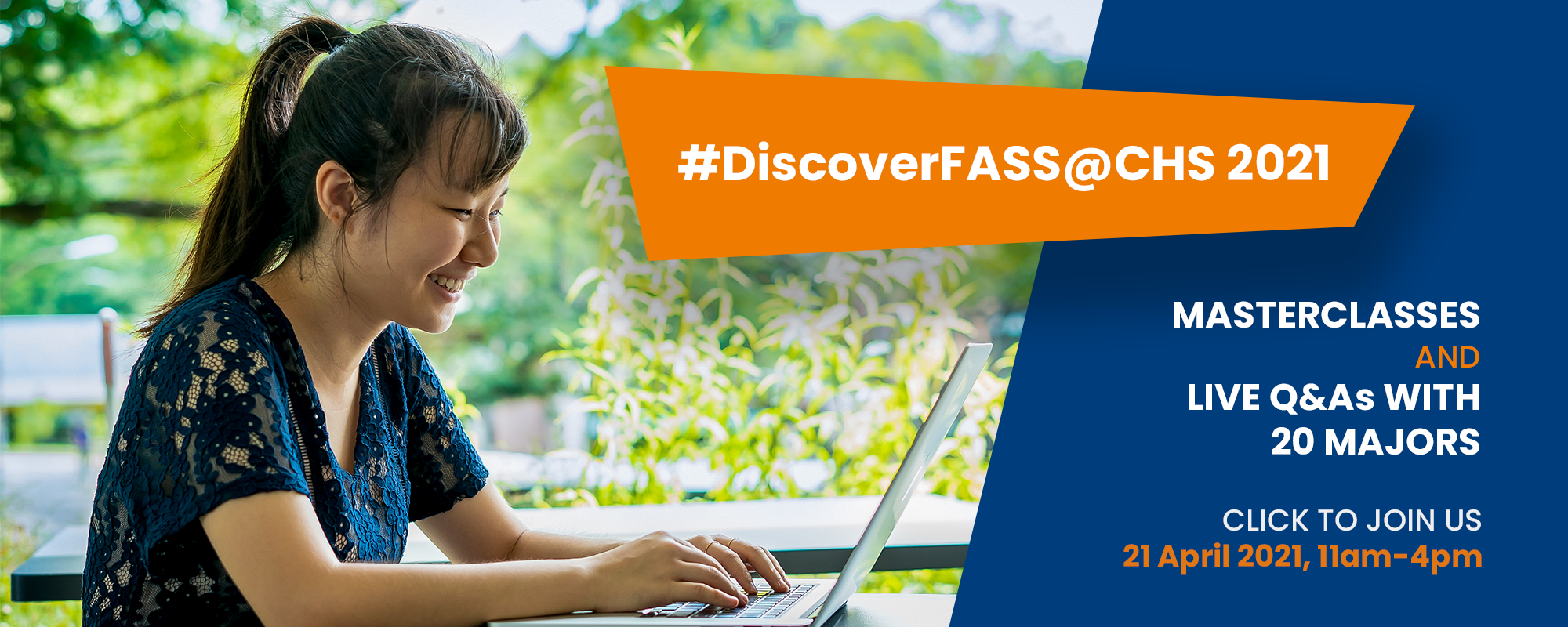
As part of the #DiscoverFASS@CHS campaign leading up to our Open House in May this year, we are holding 'live' Masterclasses presented by three of our award-winning Faculty members, and our Departments are hosting 'live' Q&A sessions for prospective students. These are opportunities not to be missed if you wish to know all you need to know about classes here and the myriad programmes available to you if you are a part of the FASS community. Masterclasses by Award-Winning Faculty
Experience lessons led by our dynamic faculty members.  Roasted Fetuses and Corpse Magic: An Introduction to Supernaturalism in Southeast Asia
Roasted Fetuses and Corpse Magic: An Introduction to Supernaturalism in Southeast Asia
Presented by Associate Professor Irving Johnson, Department of Southeast Asian Studies
The class aims to foreground the fascinating world of beliefs in supernaturalism that pervade Southeast Asian lives. Many of us enjoy telling and listening to creepy stories, watching horror movies on Netflix or dabbling in the esoteric. In this masterclass, we will look at some of the beliefs that structure constructions of the supernatural in modern Southeast Asia. The class revolves around a series of interrelated questions that seek to discover commonalities in popular belief systems and their prominence in the region, linking supernaturalism to larger issues of power, gender and politics. 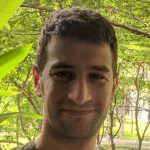 Evidence and Promise Making
Evidence and Promise Making
Presented by Assistant Professor Zachary Barnett, Department of Philosophy
Promise-making is an important part of life. We make promises to our friends, families, and significant others, and they make promises to us. We will look at a puzzle that arises when we think about "promising against the odds": How should I feel about making a promise, if I know that most of the people in my exact situation end up breaking that promise? For example, suppose that I promise to quit smoking cigarettes. At the same time, I know that most people who sincerely promise to quit smoking do not actually succeed on their first attempt. Should I believe that I will be the exception to the rule? If not, am I justified in making the promise in the first place? And if I do make the promise, should my friends and family believe me? These questions arise in many different contexts, ranging from the superficial to the serious, involving addiction or relationships. 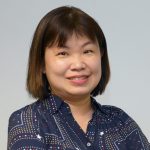 Making Sense of Self-Awareness and What That May Mean
Making Sense of Self-Awareness and What That May Mean
Presented by Dr Peace Wong Yuh Ju, Department of Social Work
In this talk, Dr Wong will attempt to broaden our understanding about ‘self’ and what that may mean to us. It is not uncommon for students in wanting to gain greater self-awareness with the attempt to learn more about one’s beliefs/feelings in relation to the observed world around us. Yet, how do we deepen our understanding of ‘self’, given that we are both familiar with who we are, and yet at times finding ourselves baffled by our reactions, and wondered why we respond in a certain manner? We will briefly discuss the various influences that may impact our values and beliefs, as well as consider what knowing your ‘self’ may mean to you.
To register for Masterclasses, click here.
Live Q&As with our Departments
Meet key Faculty and student representatives of every FASS Department and major programme in their respective Zoom meeting rooms and ask them specific questions about the requirements, content and value of the programmes they offer.
Department of Chinese Studies
The Chinese Studies Department provides training in diverse areas of Chinese Studies and Chinese Language, with the aim of preparing students for employment in a wide range of sectors. Graduates are offered career opportunities as professionals in the educational and business sectors, academia, the translation service industry and the mass media.
Join the Department's #DiscoverFASS@CHS 2021 'Live' Q&A session on 21 April (2-4 pm) here.
In the meantime, visit the College of Humanities Programmes page for more details on what this Department offers.
Department of Communications and New Media
Communications and New Media (CNM) at the National University of Singapore is the only Department in Southeast Asia that offers media studies, interactive media design, cultural studies, and communication management with a focus on new media.
Join the Department's #DiscoverFASS@CHS 2021 'Live' Q&A session on 21 April (2-4 pm) here.
In the meantime, visit the College of Humanities Programmes page for more details on the programmes offered by this Department.
Department of Economics
The Department of Economics has an established reputation as one of the largest and leading departments of Economics in the Asia-Pacific region. Faculty members’ research areas span a wide range of economic fields, with strength in the core areas of microeconomics, macroeconomics and econometrics, as well as in particular fields such as game theory and industrial organization, labor economics, education, financial economics, and growth theory and development with special reference to Asia.
The Department's #DiscoverFASS@CHS 2021 'Live' Q&A session on 21 April (2-4 pm) here. This session includes discussion of the Data Science and Economics Cross-Disciplinary Programme (DSE-XDP).
In the meantime, visit the College of Humanities Programmes page for more details on the programmes offered by this Department.
Department of English Language, Literature and Theatre Studies
The Department of English Language, Literature and Theatre Studies houses three undergraduate majors and three graduate programmes. The English Language major offers an education in linguistics, the study of human language. The undergraduate programme in English Literature is designed to provide a broad foundation in reading and analysing texts of all kinds. And, the Theatre Studies curriculum delivers education in all areas of theatre and performance history, production and interpretation.
The Department's #DiscoverFASS@CHS 2021 'Live' Q&A session on 21 April (2-4 pm) here.
In the meantime, visit the College of Humanities Programmes page for more details on the programmes offered by this Department.
Department of Geography
Modules in the Department of Geography are organized along four areas of enquiry: environmental processes and change; global political economy; society and culture; and regional specializations (with a focus on Asia). The Department also offers a Field Studies module in which students travel to countries in the region such as Thailand and Malaysia where they conduct field work and collect research material over a 3-5 week period. Home-stays and visits to local universities and key sites of interest are part of the overseas learning experience it delivers.
The Department's #DiscoverFASS@CHS 2021 'Live' Q&A session on 21 April (2-4 pm) here. This session includes discussion of the Bachelor of Environmental Studies Programme (BES-XDP).
In the meantime, visit the College of Humanities Programmes page for more details on the programmes offered by this Department.
Department of History
The Department of History offers training at undergraduate and graduate levels, and its teaching and research expertise lies primarily in the history of Southeast and East Asia, but there is strong selection of module offerings in European, American, and military history, as well as the history of art, business, religion, science and technology.
The Department's #DiscoverFASS@CHS 2021 'Live' Q&A session on 21 April (2-4 pm) here.
In the meantime, visit the College of Humanities Programmes page for more details on the programmes offered by this Department.
Department of Japanese Studies
Founded in 1981, the Department of Japanese Studies is one of the largest area studies departments devoted to the study of Japan in the Asia-Pacific region, and offers BA, MA and PhD degrees in Japanese Studies taught by specialists with qualifications from leading universities around the world.
The Department's #DiscoverFASS@CHS 2021 'Live' Q&A session on 21 April (2-4 pm) here.
In the meantime, visit the College of Humanities Programmes page for more details on the programmes offered by this Department.
Department of Malay Studies
The Department of Malay Studies actively engages in research on a wide range of issues concerning the Malay world from a multi-disciplinary perspective, promotes exchanges with centres of Malay studies worldwide, and encourages the development of new and alternative approaches to the understanding of Malay history, economy, politics, society and culture.
The Department's #DiscoverFASS@CHS 2021 'Live' Q&A session on 21 April (2-4 pm) here.
In the meantime, visit the College of Humanities Programmes page for more details on the programmes offered by this Department.
Department of Philosophy
The Department of Philosophy is one of Asia’s leading centres for philosophical education and research. It is the top English-language philosophy program in Asia, and the inaugural Asian member of the Australasian Association of Philosophy. The faculty members have a broad range of interests spanning diverse philosophical traditions, offer a philosophical education spanning diverse philosophical traditions.
The Department's #DiscoverFASS@CHS 2021 'Live' Q&A session on 21 April (2-4 pm) here. This session will also include discussion of the Philosophy, Politics, and Economics Cross-Disciplinary Programme (PPE-XDP).
In the meantime, visit the College of Humanities Programmes page for more details on the programmes offered by this Department.
Department of Political Science
The Department of Political Science offers modules in comparative politics, international relations, political theory, and public administration. It also houses the Global Studies Programme, a new, multidisciplinary field of inquiry that examines the processes and effects of globalisation across political, economic, social and cultural domains around the world.
The Department's #DiscoverFASS@CHS 2021 'Live' Q&A session on 21 April (2-4 pm) here. This session includes discussion of the Global Studies Programme.
In the meantime, visit the College of Humanities Programmes page for more details on the programmes offered by this Department.
Department of Psychology
The Psychology programme at NUS aims to equip students with knowledge in the key areas of psychology (such as human biological processes, developmental processes, social processes, cognitive processes, mental health and adjustment of individuals) as well as an understanding of the applications of psychology. It also develops skills for undertaking studies of behaviour, including statistical skills and the use of computers for data analyses.
The Department's #DiscoverFASS@CHS 2021 'Live' Q&A session on 21 April (2-4 pm) here.
In the meantime, visit the College of Humanities Programmes page for more details on the programmes offered by this Department.
Department of Social Work
The main objective of the undergraduate General and Honours degree programme offered by the Department of Social Work is to equip its graduates for entry into the social work profession at the direct-service level. Students are exposed to social service visits, skills laboratory training, fieldwork placements and module projects, among other applied learning methods.
Go to this Department's #DiscoverFASS@CHS 2021 'Live' Q&A session on 21 April (2-4 pm) here.
In the meantime, visit the College of Humanities Programmes page for more details on the programmes offered by this Department.
Department of Sociology
The Department of Sociology is a diverse, dynamic and innovative research and teaching unit with strong expertise in research on Southeast Asia, East Asia and South Asia as well as on Singapore society. One of the largest Sociology departments in the world, it offers comprehensive undergraduate, honours and graduate programmes, led by a group of dedicated and creative researchers and educators.
The Department's #DiscoverFASS@CHS 2021 'Live' Q&A session on 21 April (2-4 pm) here.
In the meantime, visit the College of Humanities Programmes page for more details on the programmes offered by this Department.
South Asian Studies Programme
South Asian Studies, as offered by the South Asian Studies Programme (SASP), focuses on the region comprising India, Pakistan, Bangladesh, Sri Lanka, Nepal, Bhutan and the Maldives. At the undergraduate level, students are offered a range of modules in economics, religious and cultural studies, history, international relations, philosophy, politics and gender studies. The aim is to provide graduates of the programme with a broad understanding of the region from different points of view - knowledge that will be useful in dealing with this changing region in the 21st century.
The Department's #DiscoverFASS@CHS 2021 'Live' Q&A session on 21 April (2-4 pm) here.
In the meantime, visit the College of Humanities Programmes page for more details on the programmes offered by this Department.
Department of Southeast Asian Studies
The Department of Southeast Asian Studies is located in the Asian Studies Division of the Faculty of Arts and Social Sciences, and offers distinctive programmes for anyone interested in studying Southeast Asia, from the undergraduate to the PhD level.
The Department's #DiscoverFASS@CHS 2021 'Live' Q&A session on 21 April (2-4 pm) here.
In the meantime, visit the College of Humanities Programmes page for more details on the programmes offered by this Department.
Centre for Language Studies
The Centre for Language Studies was established in 2001 to serve the foreign language needs of the Faculty of Arts and Social Sciences and has today over 80 full-time and part-time faculty members. It teaches thirteen different languages - Arabic, Bahasa Indonesia, Chinese, French, German, Hindi, Japanese, Korean, Malay, Spanish, Tamil, Thai and Vietnamese - to app. over 3,300 students per semester and thus helps them acquire a very valuable economic and social resource in today's world of growing globalisation and internationalisation.
The Department's #DiscoverFASS@CHS 2021 'Live' Q&A session on 21 April (2-4 pm) here.
In the meantime, visit the College of Humanities Programmes page for more details on the programmes offered by this Department.
Finding Hope for a Generation of Crises
IN BRIEF | 5 min read
- Ng Chia Wee, third-year student at the Faculty of Arts and Social Sciences, NUS College of Humanities and Sciences, majoring in Philosophy, Politics, and Economics (PPE), says the youth must adopt a new attitude with three new key shifts to get through the bad time coming their way.
Click through to read this article.
The Sunday Times, 21 March 2021, Views, pA23
This story first appeared in NUSnews on 21 March 2021.
Eminent NUS historian Professor Wang Gungwu receives prestigious Tang Prize
The 2020 Tang Prize in Sinology has been awarded to Professor Wang Gungwu, University Professor at NUS Arts and Social Sciences and one of the world's foremost experts on the Chinese diaspora.
Announced on 20 June 2020 by the Tang Prize Foundation, this prestigious award was conferred on Prof Wang in recognition of his trailblazing and dissecting insights on the history of the Chinese world order, overseas Chinese, and Chinese migratory experience.
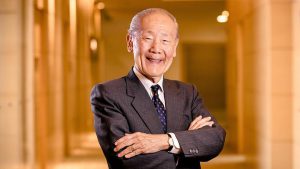
As a leading scholar on Sino-Southeast Asian historical relations, Prof Wang developed a unique approach to understanding China by scrutinising its long and complex relationship with its southern neighbours. His erudition and critical discernment have significantly enriched the explanation of China’s changing place in the world, traditionally developed from an internalist perspective or in relation to the West.
Prof Wang said, “It is a great honour to be awarded the Tang Prize in Sinology. When I was a student, Sinology was part of Oriental Studies and associated with classical studies, guoxue (国学) in China, Hanxue (汉学) in Japan and Europe. It was centred on ancient philology as the foundation for the study of literature, philosophy and history. The four previous awardees, Yu Ying-shih at Princeton, Ted de Bary at Columbia, Shiba Yoshinobu at Tokyo and Stephen Owen at Harvard, started with the study of classical Chinese. Yu and de Bary went on to enrich our knowledge of intellectual history while Shiba did the same for social and economic history. Although Owen is best known for his contributions to literature, his work on literary theory has illuminated key features of the historical imagination.”
“I am a historian who believes that China’s present cannot be separated from her total past. Living all my life outside China, I am fascinated by the way China had fallen and risen several times. Each time that happened had made a difference to the course of world history. For us to understand why that could happen requires us to go beyond the humanities to the social sciences. I am gratified that modern Sinology now recognises the centrality of shi (史) in Chinese civilisation,” he added.
One of Asia’s most important intellectuals
Prof Wang Gungwu has been University Professor at NUS Arts and Social Sciences since 2007, and Emeritus Professor of the Australian National University since 1988. He is Foreign Honorary Member of the History Division of the American Academy of Arts and Science and former President of the Australian Academy of the Humanities. Prof Wang received his BA and MA from University of Malaya (UM) in Singapore, and PhD at SOAS, London.
Spending much of his life immersed in different cultures gives Prof Wang diverse personae as a scholar. He is an “insider” in the academic tradition of Chinese Confucianism and British elite education, and an “outsider” in the interpretation of China’s perception of the world. His original approach to understanding China from the southern perspective is in part a natural choice given his personal experience. This same experience provided him with abundant inspiration in his formative years as he matured into an authoritative voice in the analysis of China’s worldview.
Besides being an outstanding scholar, Prof Wang has been an inspiring educator since he embarked on an academic career first at UM and subsequently at the Australian National University, before making his mark as Vice Chancellor of the University of Hong Kong from 1986 to 1995, Chairman of the Institute of East Asian Political Economy from 1996 to 1997, and Director of the NUS East Asian Institute from 1997 to 2007.
At 89 years old, Prof Wang is still very prolific as a scholar. “I am writing on Chinese hopes and fears following China’s opening and reforms, focusing on the period after the People’s Republic of China’s entry into the United Nations in October 1971,” he shared.
And when asked how COVID-19 has impacted him, Prof Wang said, “COVID-19 has moved me away from my routines and made me parcel my life more carefully and take into account how much time I might have to get my work completed.”
The biannual Tang Prize consists of four categories, namely Sustainable Development, Biopharmaceutical Science, Sinology and Rule of Law. It aims to promote the interaction and cooperation between cultural and technological research so as to find a 21st century path to the sustainable development of the world.
This article was first published on 22 June 2020 in NUS News at https://news.nus.edu.sg/highlights/eminent-nus-historian-professor-wang-gungwu-receives-prestigious-tang-prize.
Laptops for low-income families: Addressing digital inequity
 As the COVID-19 situation escalated in Singapore, additional measures were introduced, including home-based learning (HBL) for all schools and working from home for all workplaces except for essential services. These circumstances threw a light on the difficulties that some families who may not have any laptops at home or only one laptop to share between multiple children, are facing. These children are at risk of missing online lessons.
As the COVID-19 situation escalated in Singapore, additional measures were introduced, including home-based learning (HBL) for all schools and working from home for all workplaces except for essential services. These circumstances threw a light on the difficulties that some families who may not have any laptops at home or only one laptop to share between multiple children, are facing. These children are at risk of missing online lessons.
NUS staff, students and alumni are stepping in to help.
After speaking to founder of charity organisation Daughters of Tomorrow Ms Carrie Tan, Dr Natalie Pang, Senior Lecturer from the NUS Arts and Social Sciences (FASS) Department of Communications and New Media (CNM) learnt that many low-income families were struggling to find laptops to support their children’s learning needs, particularly those with more than one child at home. This kick-started CNM’s ‘Laptops for Families’ campaign.
Starting in April, the campaign aimed to raise funds for second-hand laptops to support these children and their families. The Department reached out to its faculty, students and alumni contacts via email and social media. In addition to the generous support from faculty and alumni, many students came forward and offered their smart devices and online tutorial assistance.
“When the number of COVID-19 cases began increasing in Singapore, I was concerned about the impact on families, especially low-income families. Things that many of us take for granted – an iPad, a laptop, and a fast Internet connection – have become essentials in this crisis, but may not be accessible to these families. Some families only have one laptop to share between multiple children and working parents,” said Dr Pang. Together with Ms Tan, Dr Pang worked quickly to raise the funds to purchase second-hand laptops for 16 families within two weeks, and right before the Circuit Breaker started.
These laptops were delivered directly to the 16 families by the laptop reseller. Later, thanks to the generosity of the donors, another 12 laptops were donated to the Kolam Ayer Youth Network to support their underprivileged students from YYD Education Centre.
With the success of the initial campaign, the Department is now working with the People’s Association Youth Movement (PAYM) to supply laptops to another 46 families. In this expanded campaign, CNM is also collaborating with the NUS FASS Club to reach out to more NUS students to volunteer as online tutors.
“Digital equity doesn’t stop at having access to devices. It is also about sharing knowledge and helping to build the children’s resilience against online dangers. In the movement, the Department also hopes to also train and prepare tutors in this area so they can better support the children,” said Dr Pang.
“It is part of NUS FASS Club’s vision to empower students in the Faculty of Arts and Social Sciences to impact and contribute to society. We are honoured to be able to extend our helping hand to vulnerable groups in our society; this meaningful campaign is an opportunity for students to make a difference to children from low-income families who are especially vulnerable during this crisis.” Year 2 CNM student Chen Jia Jia, NUS FASS Club Vice President (Operations).
Alumni have also been supporting vulnerable families. In April, FASS alumnus, former national sprinter Mr U.K. Shyam, initiated a donation drive, with the aim to collect 600 laptops and tablets for these families.
‘Laptops for Families’ is the first initiative under CNM’s ‘Communication for Public Good’ fundraising campaign. To contribute to this effort, please go to www.give.asia/cnmlaptops by Sunday, 31 May, 2359h.
By NUS Arts and Social Sciences







